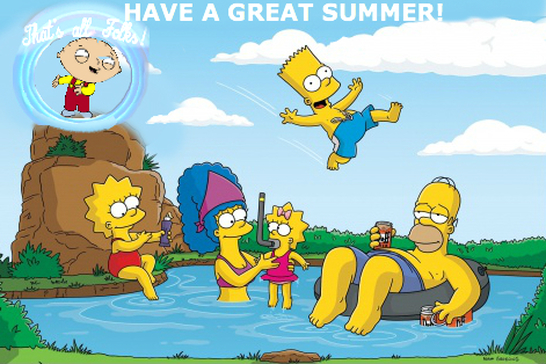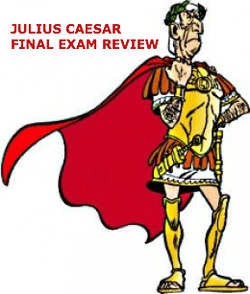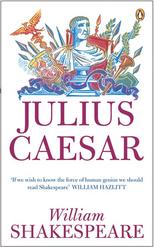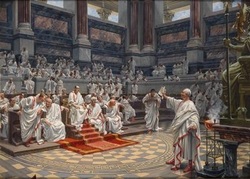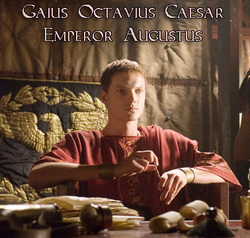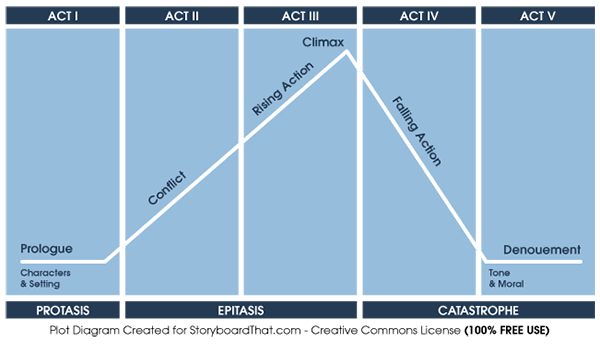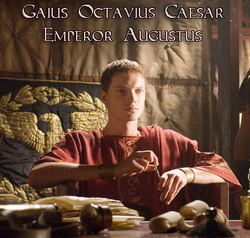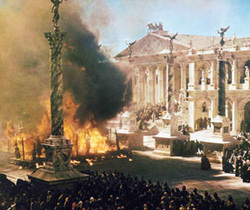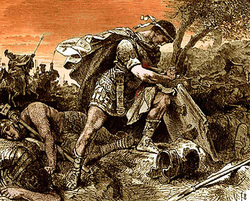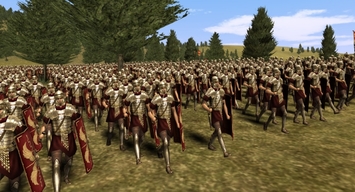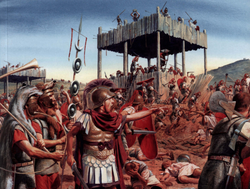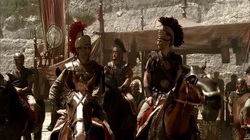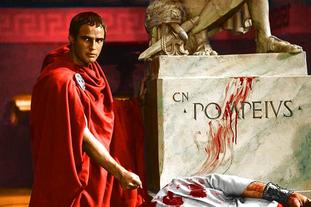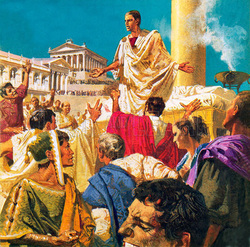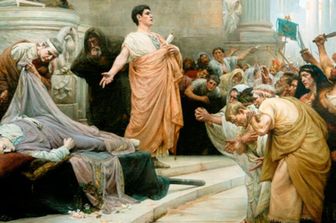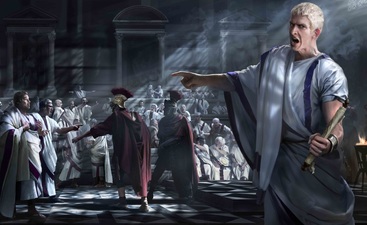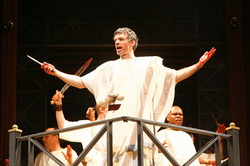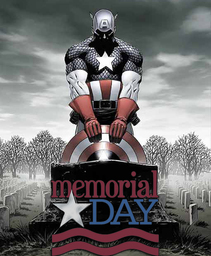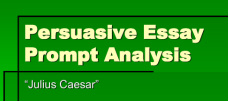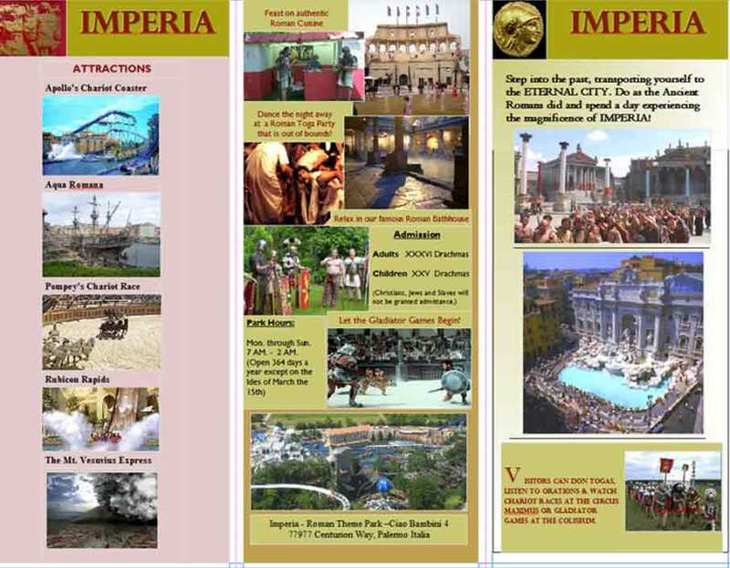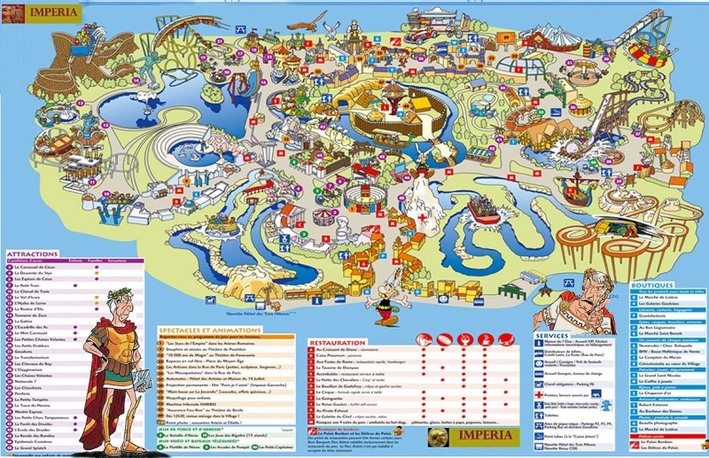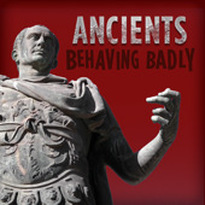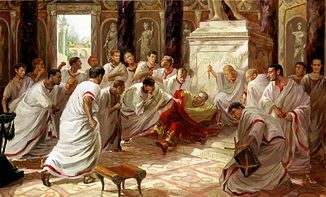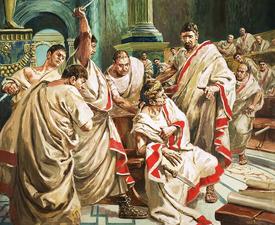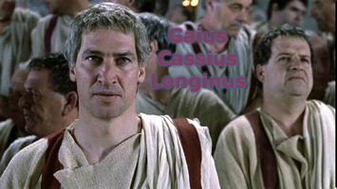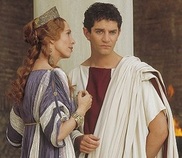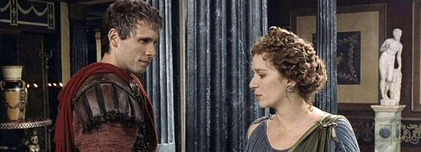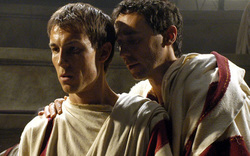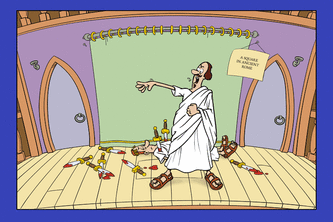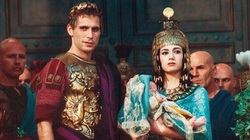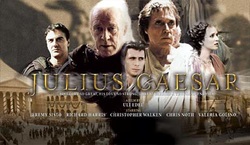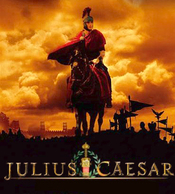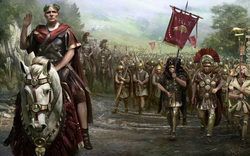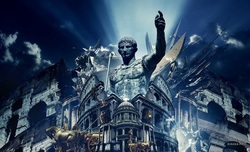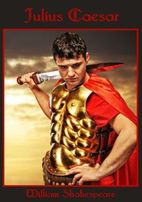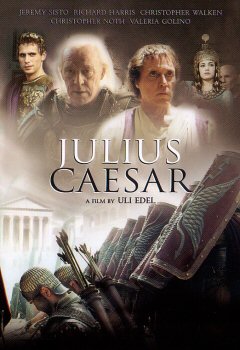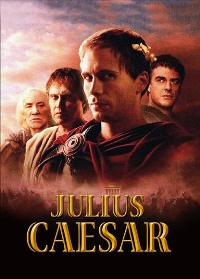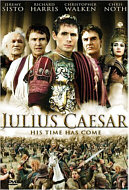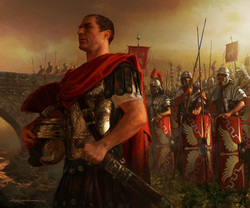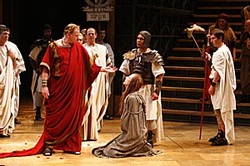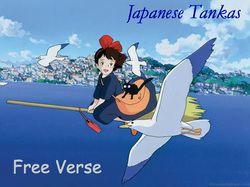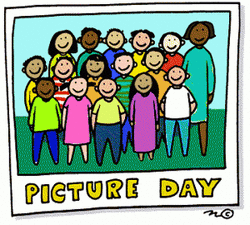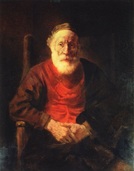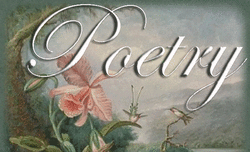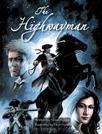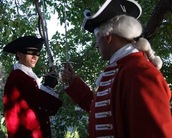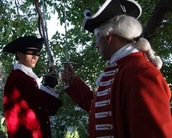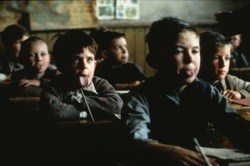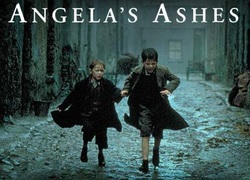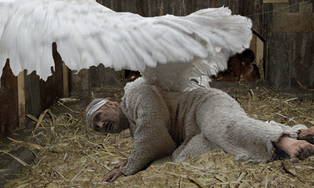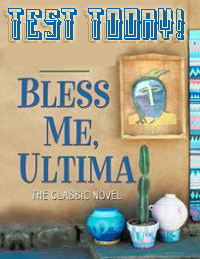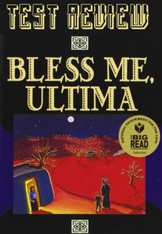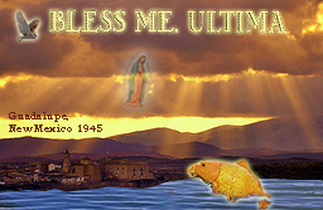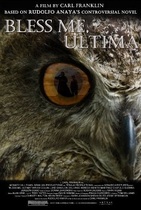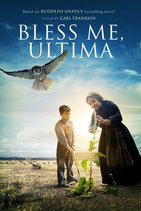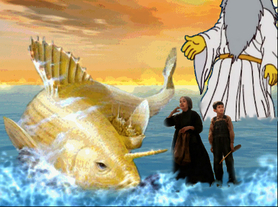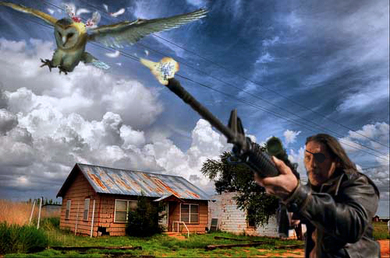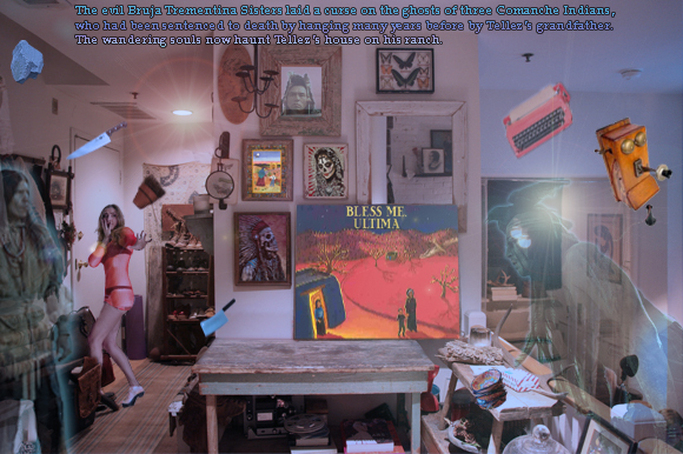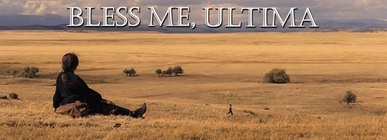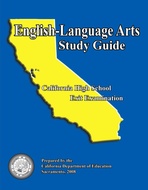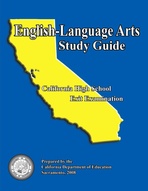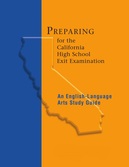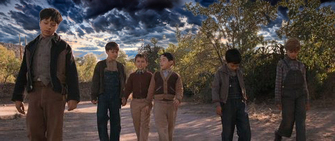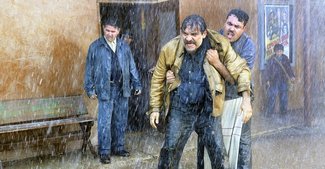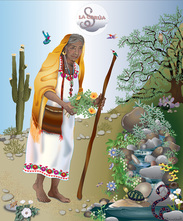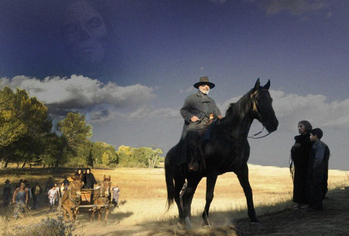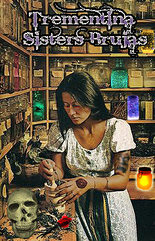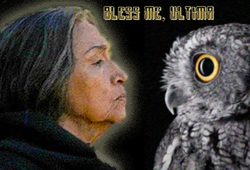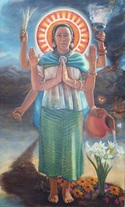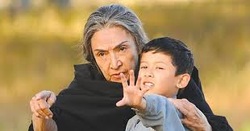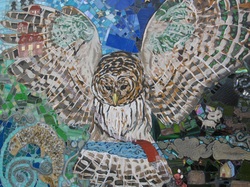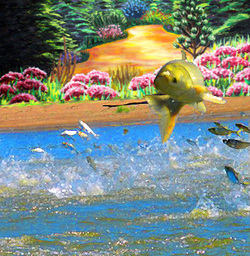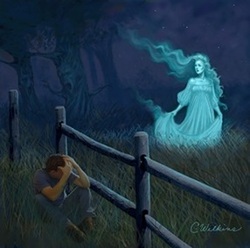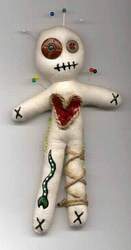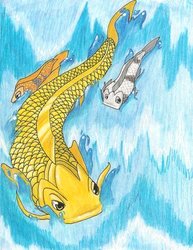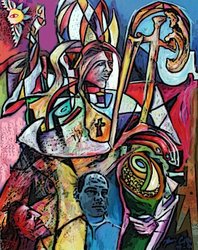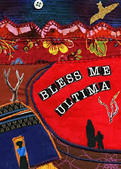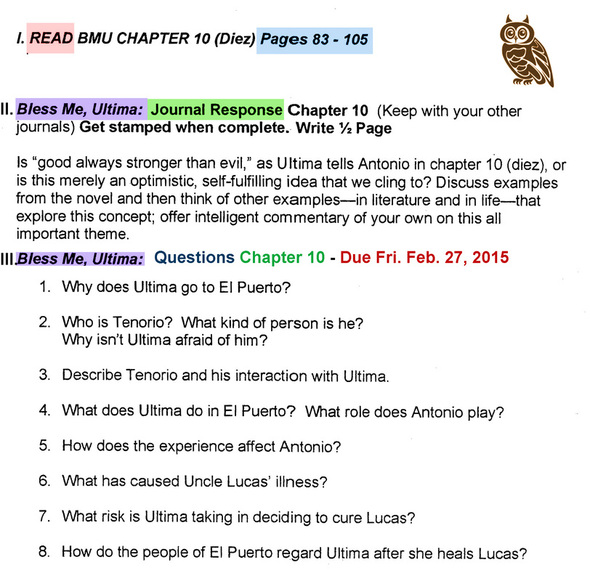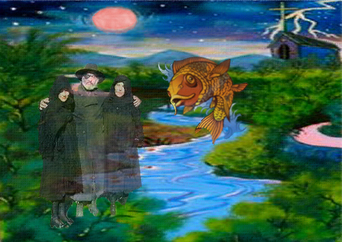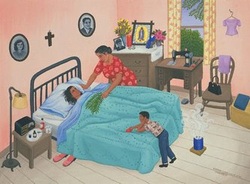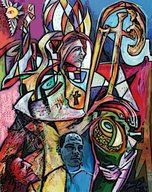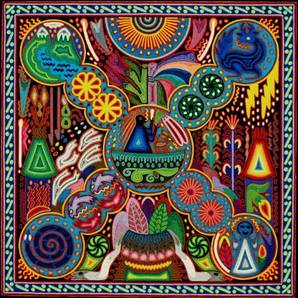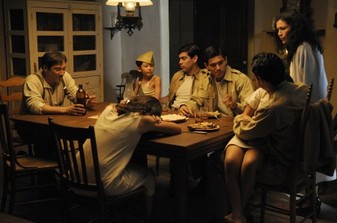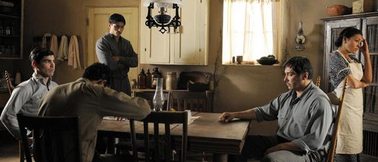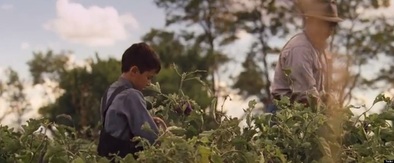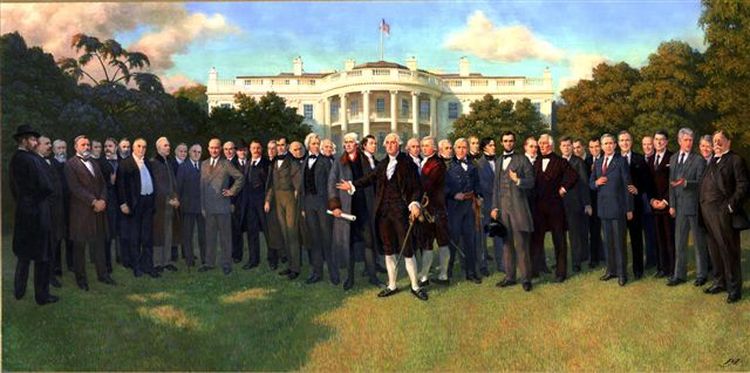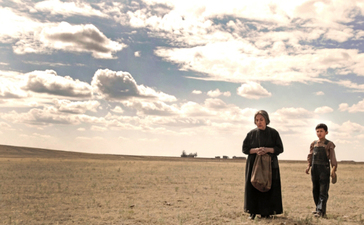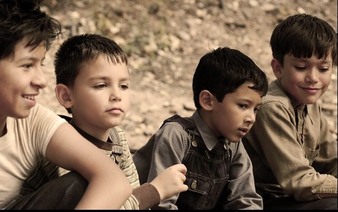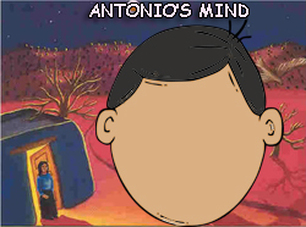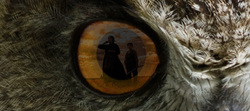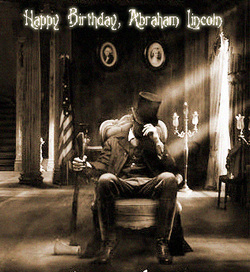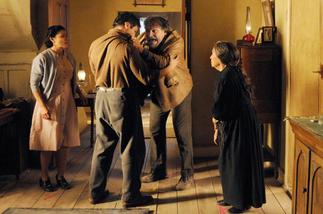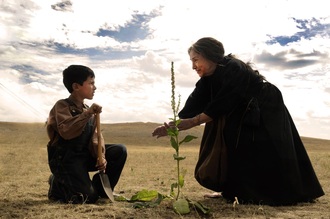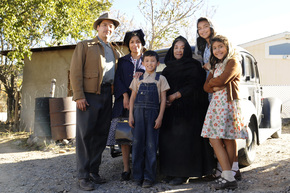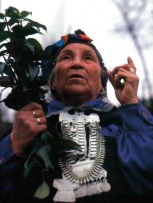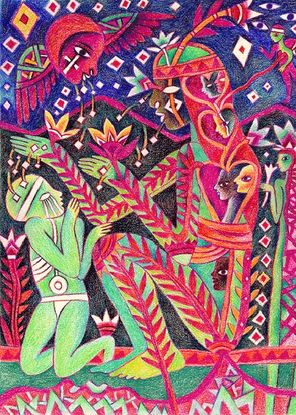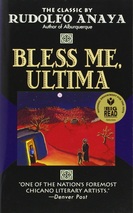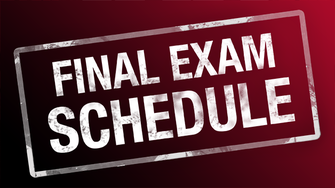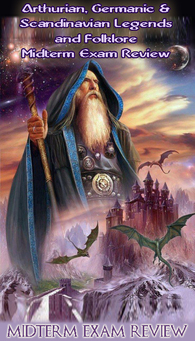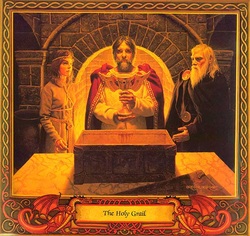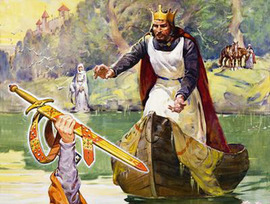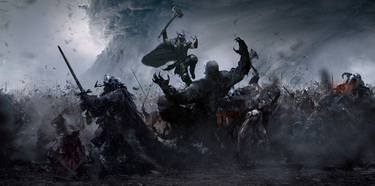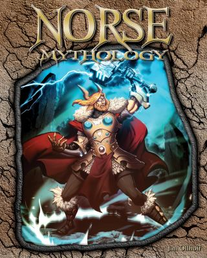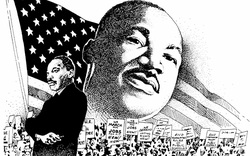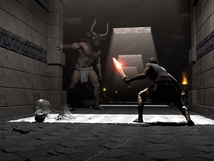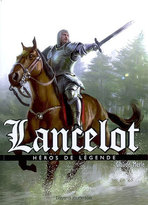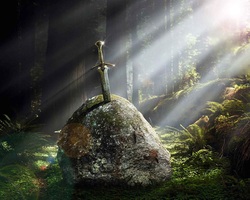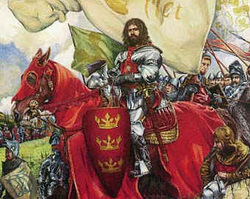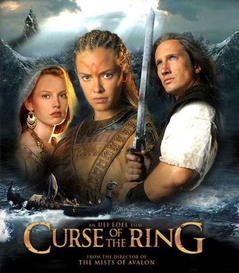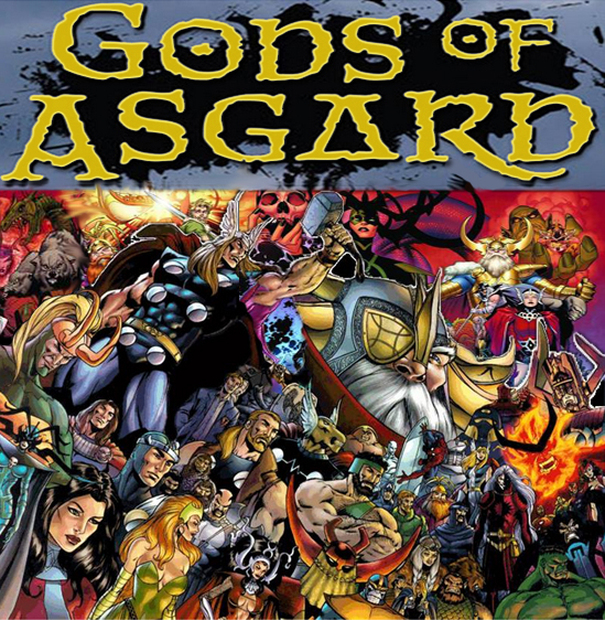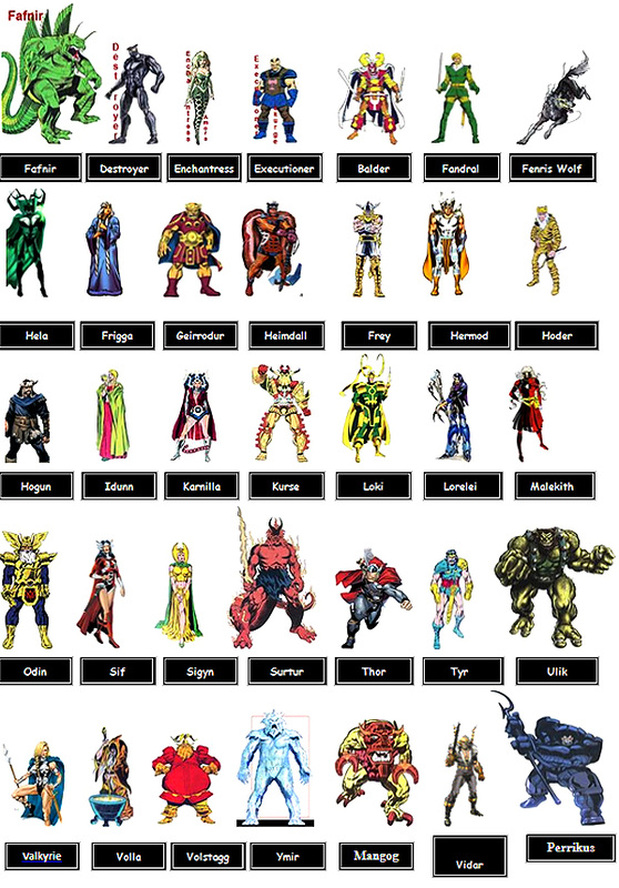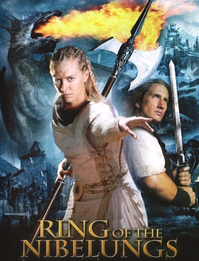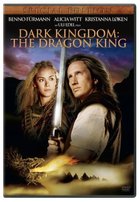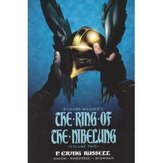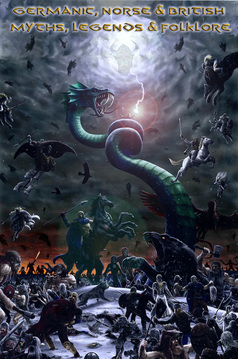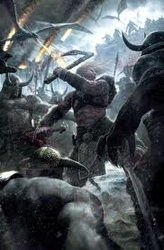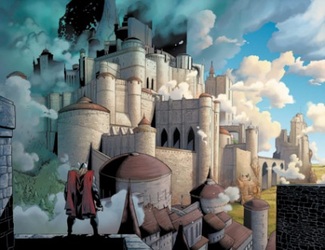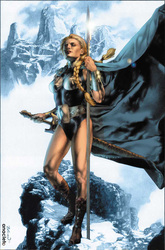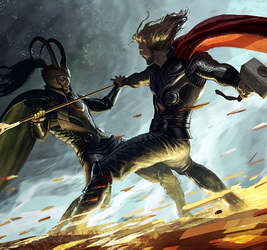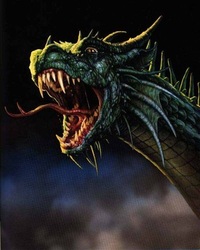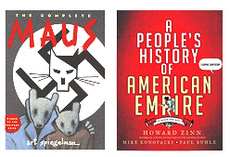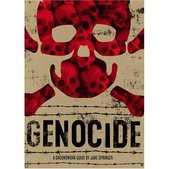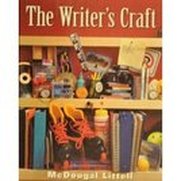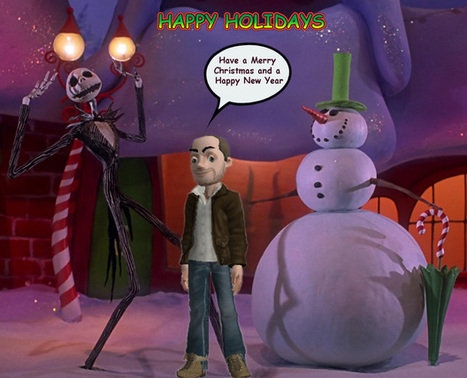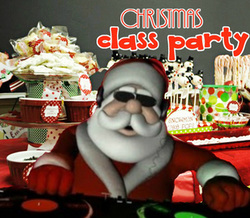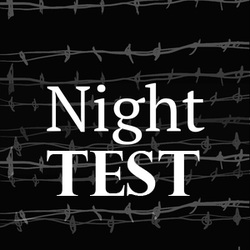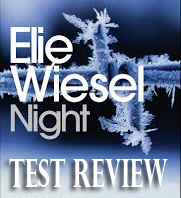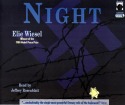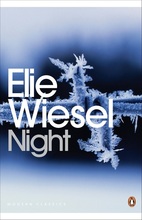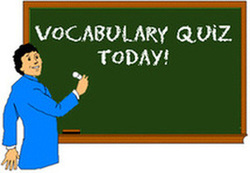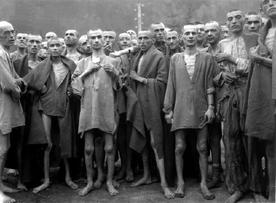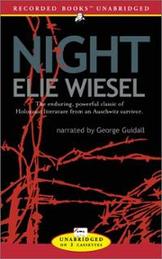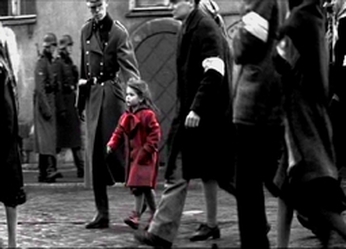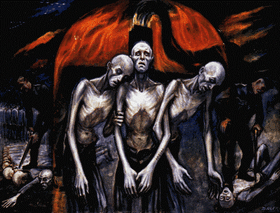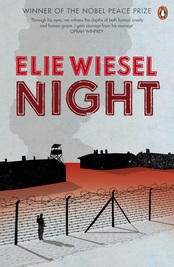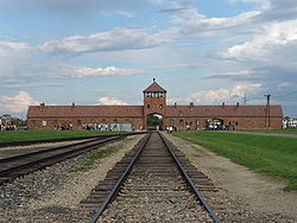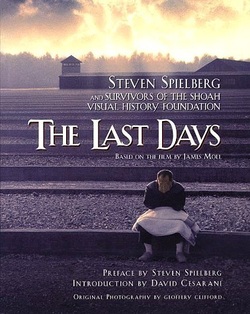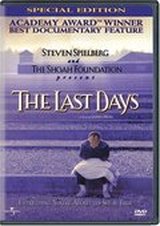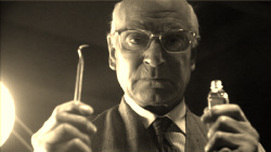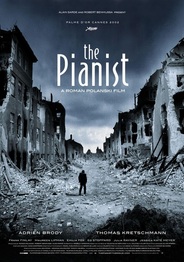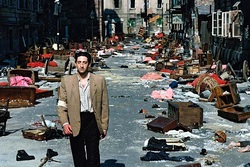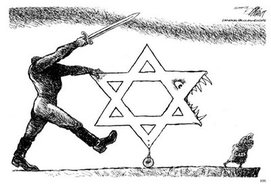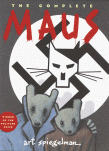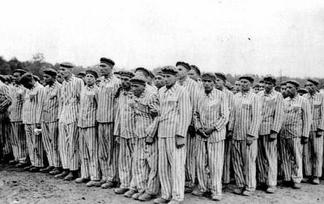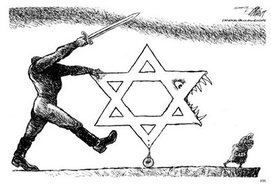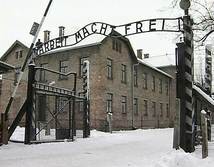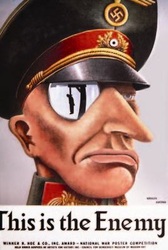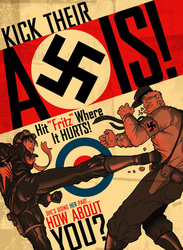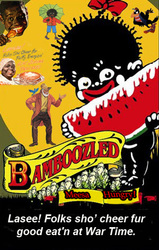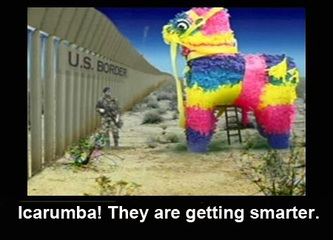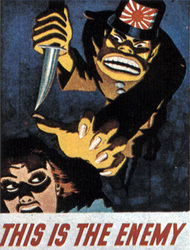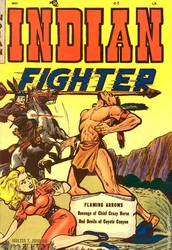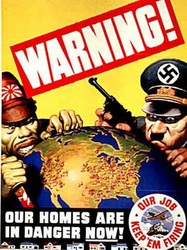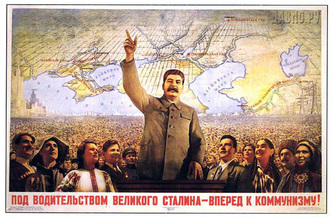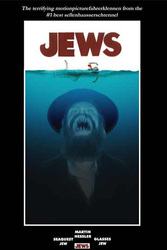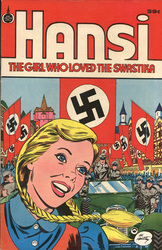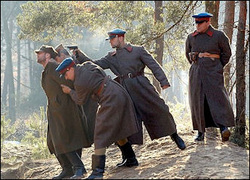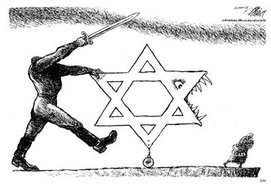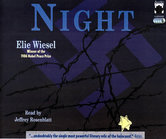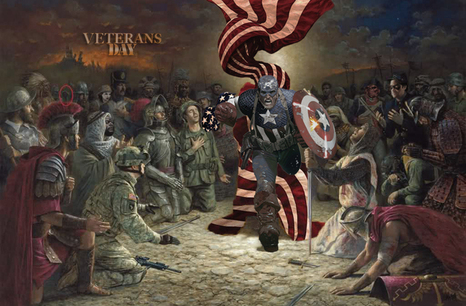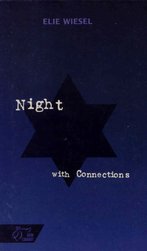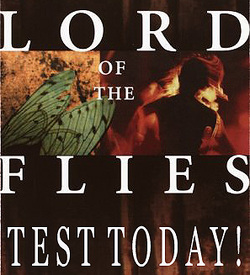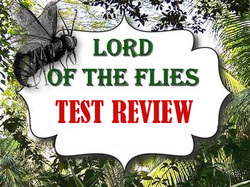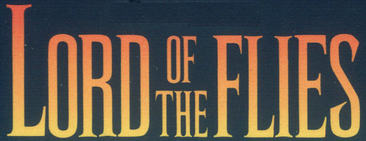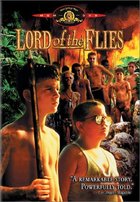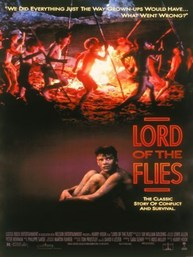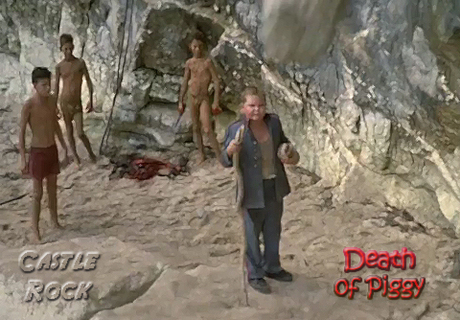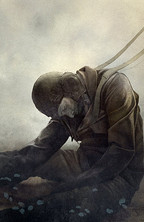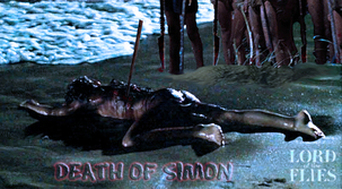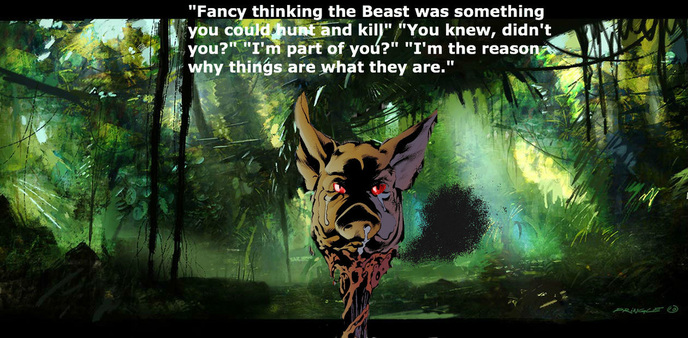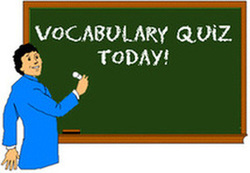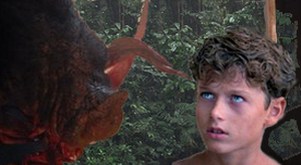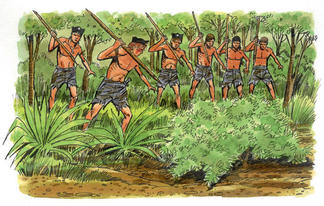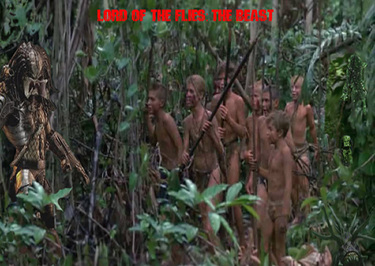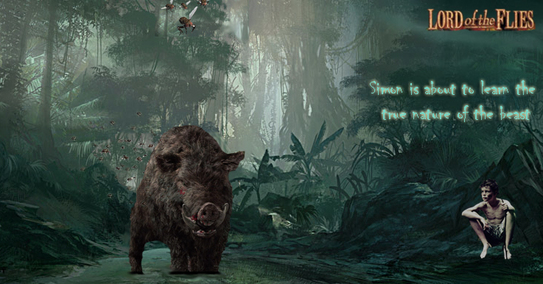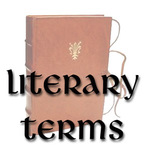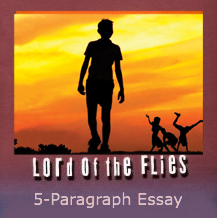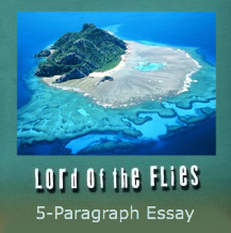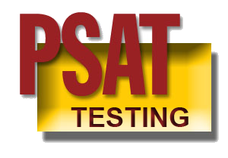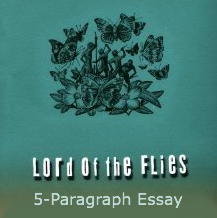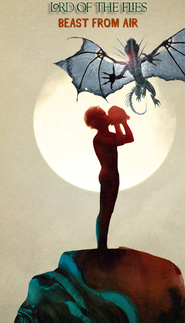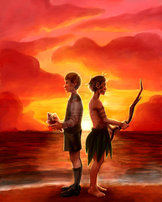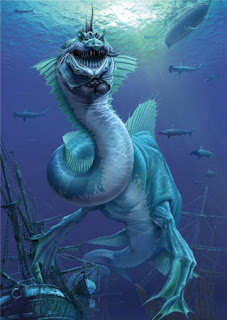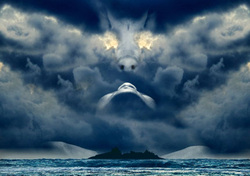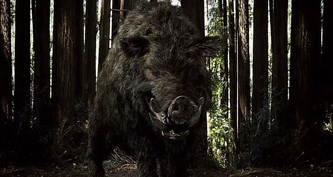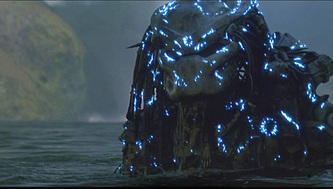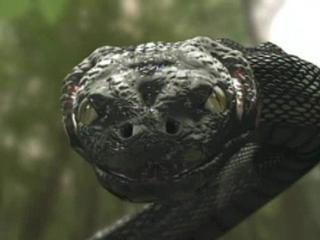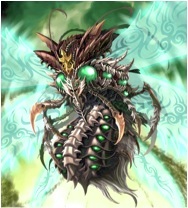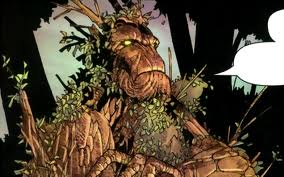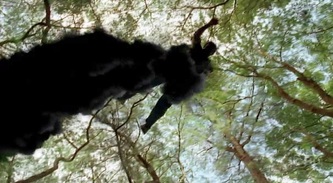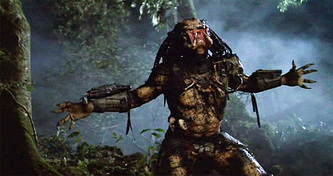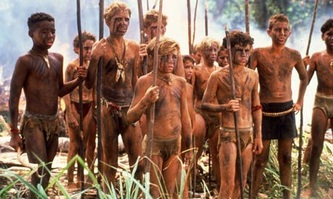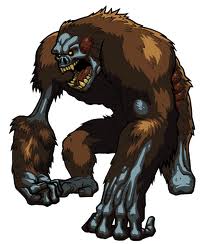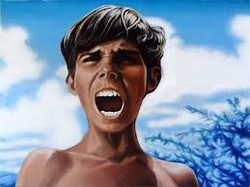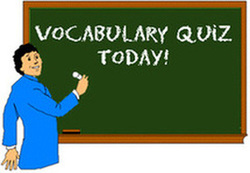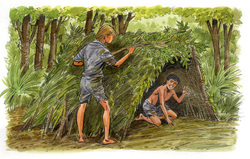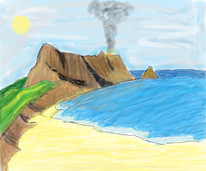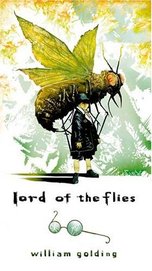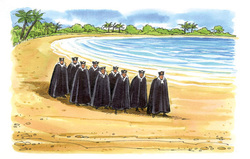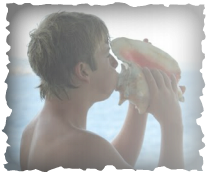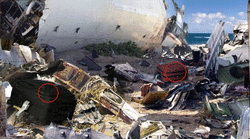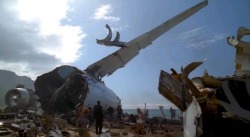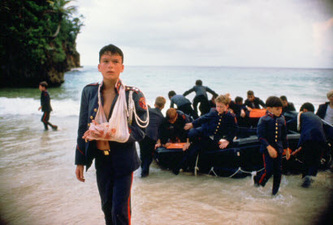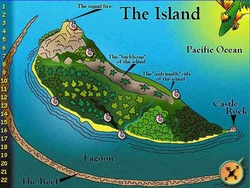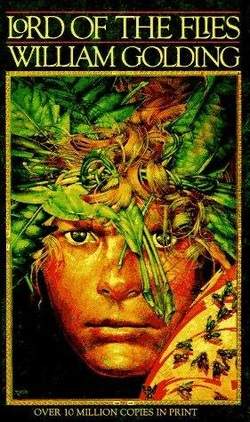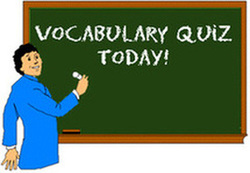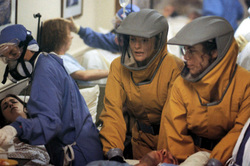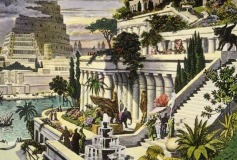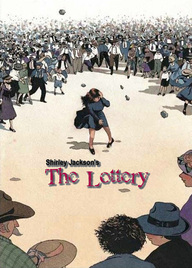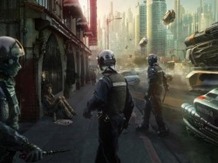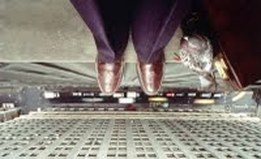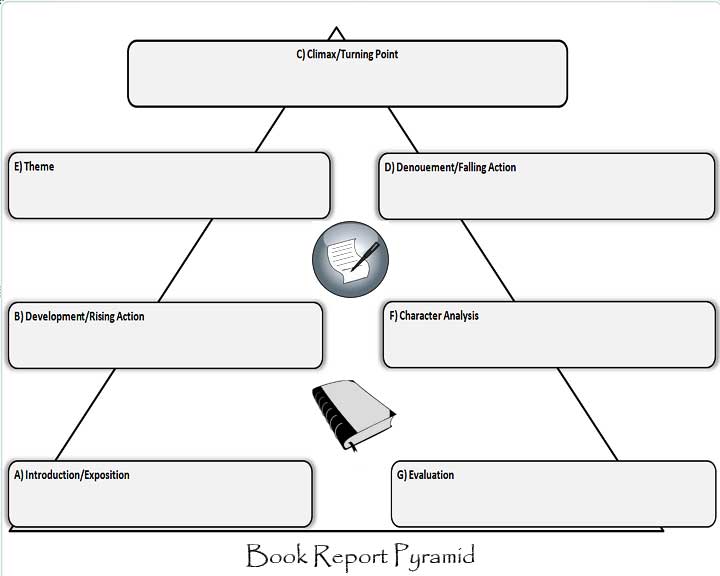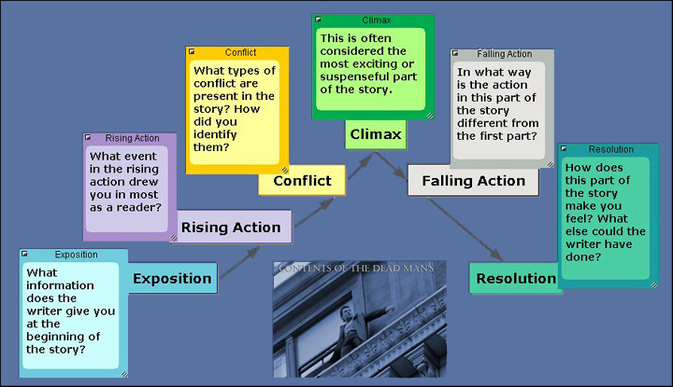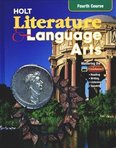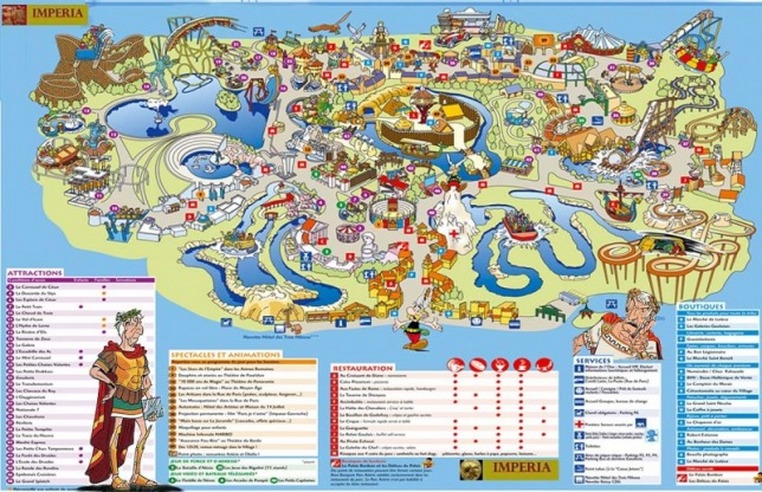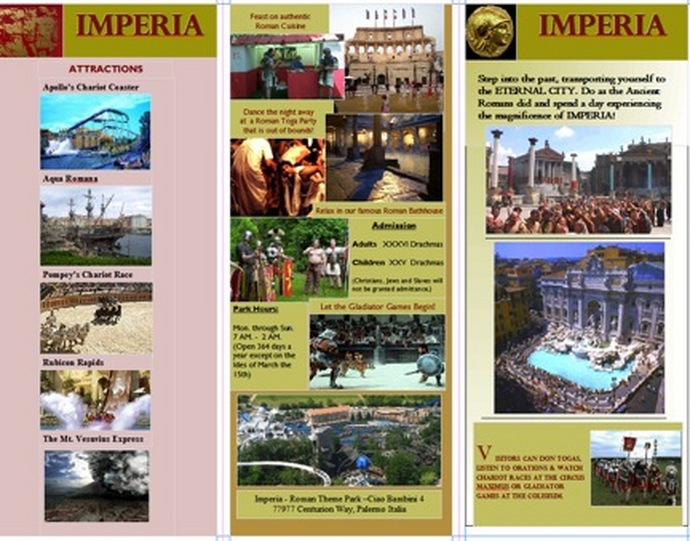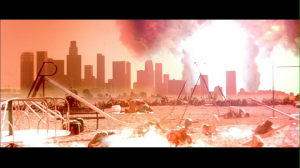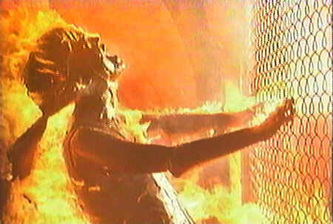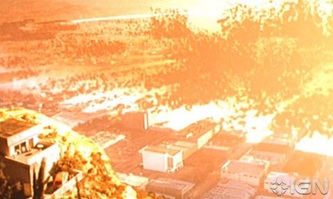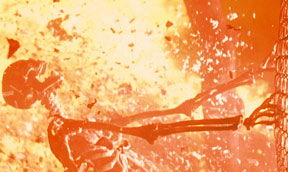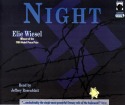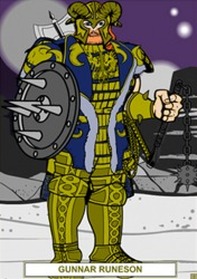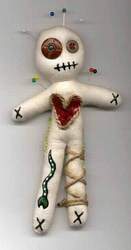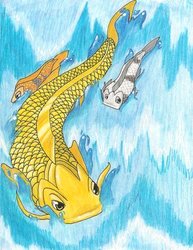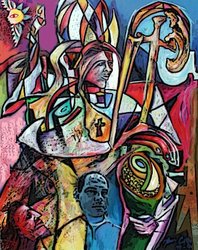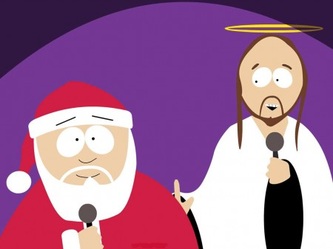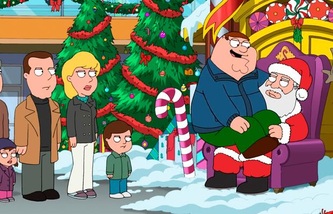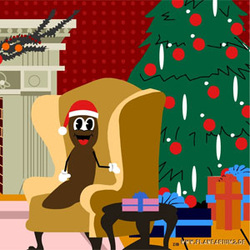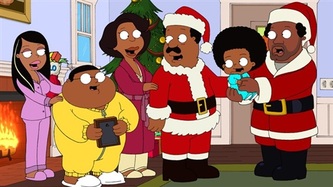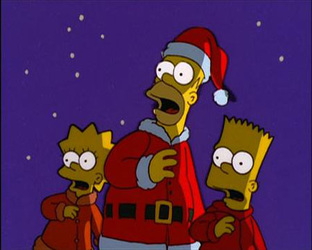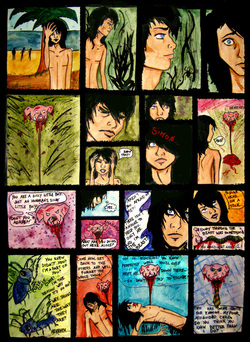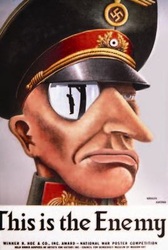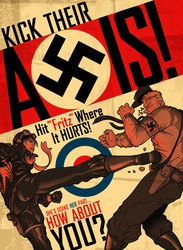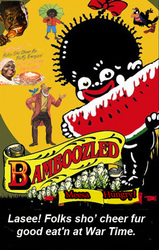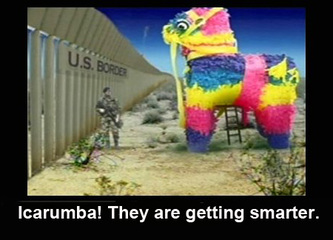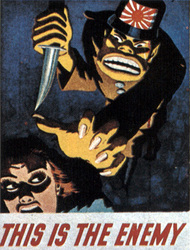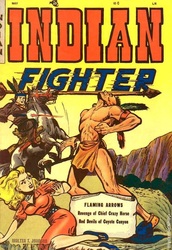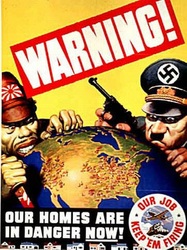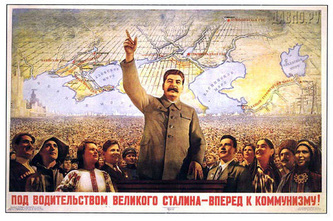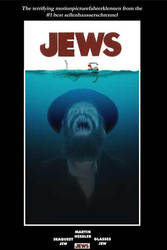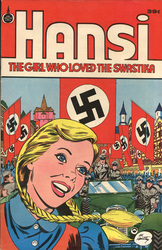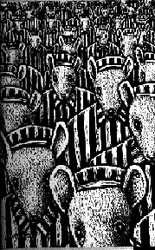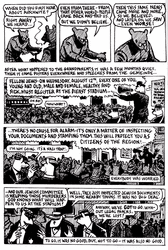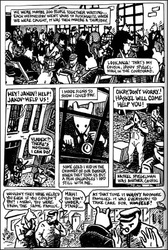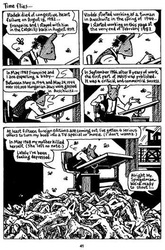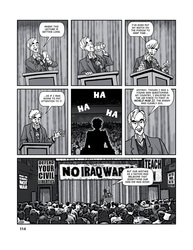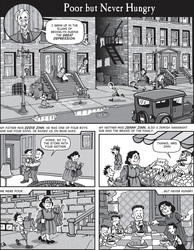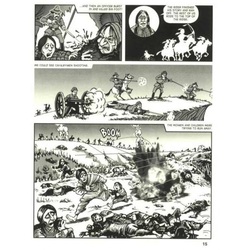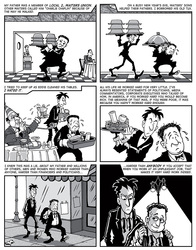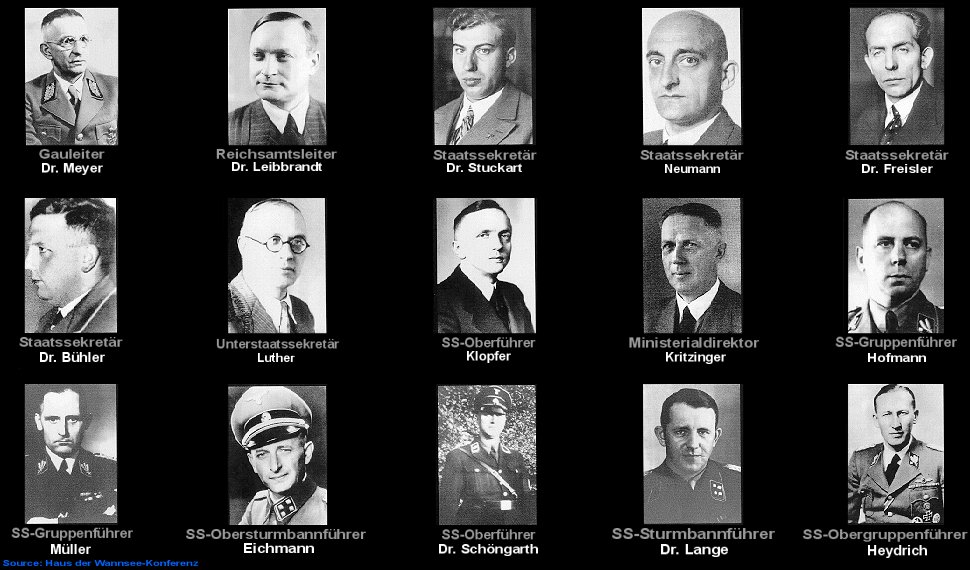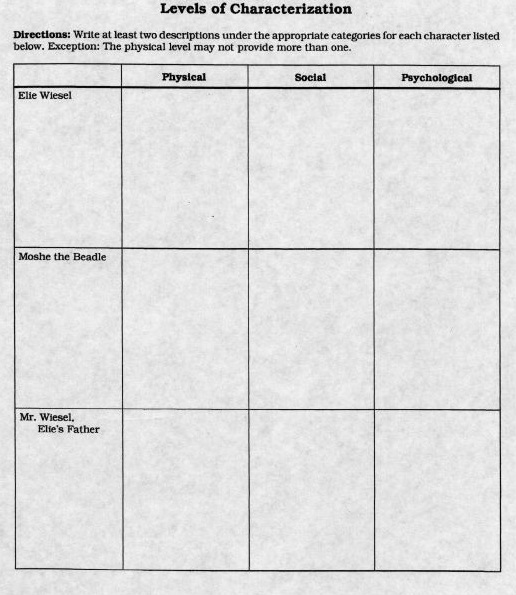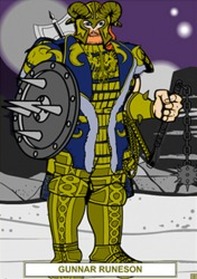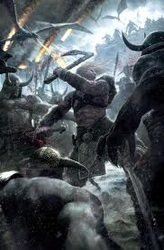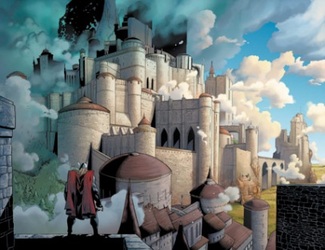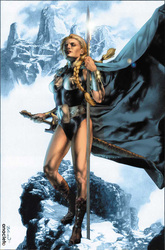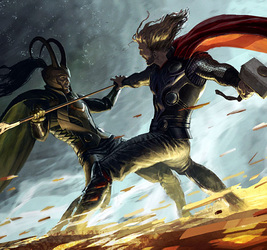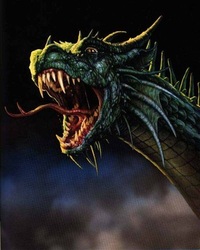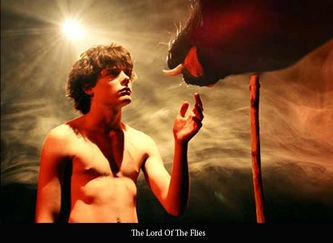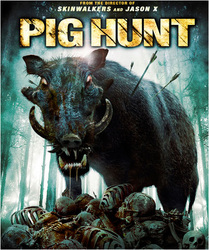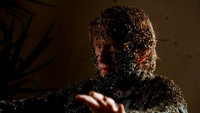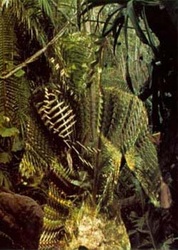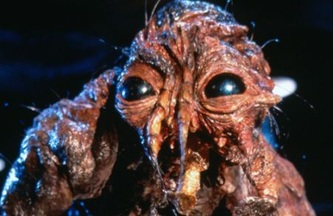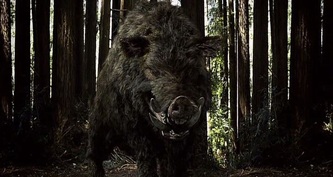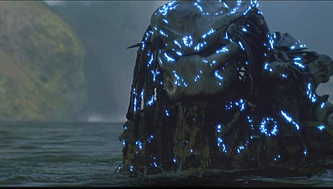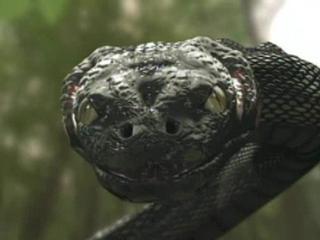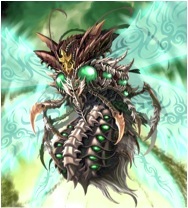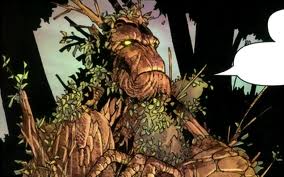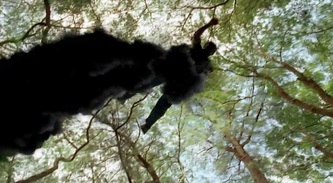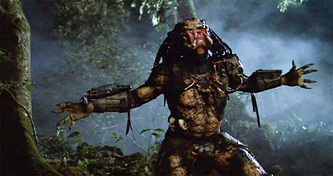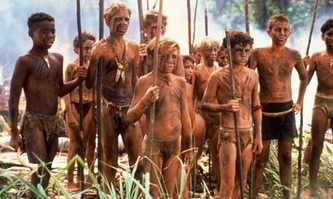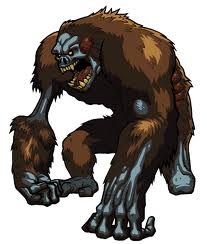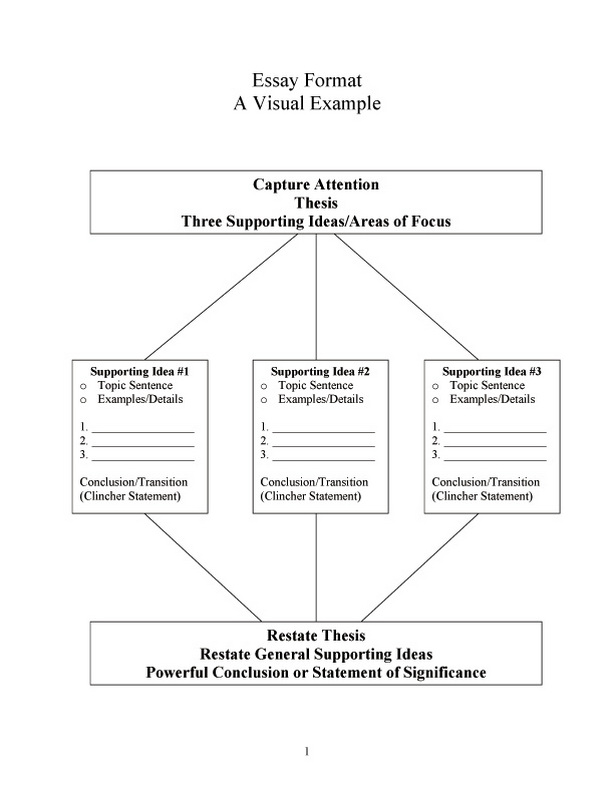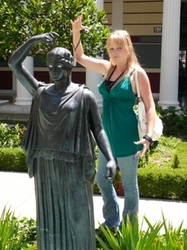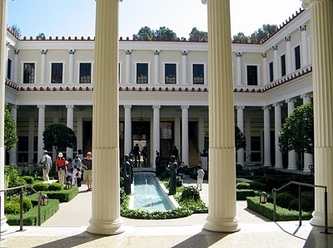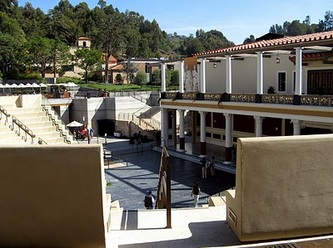|
MR. MARZO'S ENGLISH II (CP) WEB PORTAL |
|
Wednesday May 18, 2011
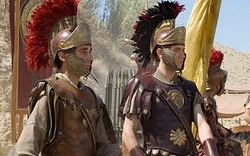
* Students you need to bring your
Julius Caesar book with you to class today.
Julius Caesar book with you to class today.
Friday May 13th & Monday May 16th, 2011

CST (California Standards Test)
Test will be administered in your 2nd period class
Mr. Marzo's Room 404 English II (CP) Students Period 2
Friday May 13th Testing Block Period 1
7:45 – 9AM CST Language Arts (Session 1), Grades 9, 10, 11
9:00 – 9:10 AM Break
9:10 – 11:00 AM CST Language Arts (Session 2), Grades 9, 10, 11
11:00 – 11:40 AM Lunch
Friday May 13th Testing Block Period 2
11:45 – 1:45 PM CST Science – END OF COURSE, Grades 9, 10, 11
(Physics, Chemistry, Biology) – All students without a testable science class will be dismissed.
---------------------------------------------------------------------------------------------------------------
Monday May 16th Testing Block Period 1
7:45 – 9AM CST Mathematics (Session 1), Grades 9, 10, 11
9:00 – 9:10 AM Break
9:10 – 11:10 AMCST Mathematics (Session 2), Grades 9, 10, 11
10:40 – 11:10 AM EAP test - Juniors ONLY
11:10 – 11:40 AM LUNCH
Monday May 16th Testing Block Period 2
11:45 – 1:45 CST Social Science, Grades 10, 11 (9th graders except those in
MUN World History will be dismissed during this time.
10th graders in Modern History MUN will be dismissed during this time)
Tuesday May 10, 2011
The Death of Julius Caesar
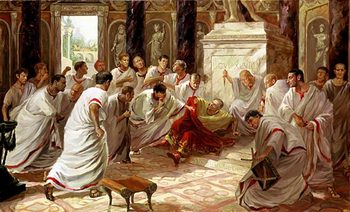
* Students you need to bring your
Julius Caesarbook with you to class today.
CLASSWORK
I. Read Julius Caesar Page 87 - 109 Act 3 Scene 1 - Follow along with CD
II. Review Julius Caesar Act III Scene 1
III. Film Clips - The Death of Julius Caesar
HOMEWORK
I. Questions from Literature Book Page 832 Q 1-4 and 6
REMINDERS
* Julius Caesar Theme Park Project - 50 points - Due Monday June 6, 2011
*Julius Caesar Persuasive Essay (100 Points) - DUE WEDNESDAY JUNE 8, 2011
(5-Paragraph Essay, Typed, Double Spaced, #12 Arial Font, 1" Margins)
* Book Report #4- Due Friday June 10, 2011
(See instructions under the BOOK REPORTS TAB for details)
http://abcusdcerritoshsmarzo.weebly.com/book-rpts.html
Monday May 9, 2011
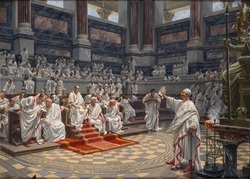
* Students you need to bring your
Julius Caesar book with you to class today.
REMINDERS
* Julius Caesar Theme Park Project - 50 points - Due Monday June 6, 2011
*Julius Caesar Persuasive Essay (100 Points) - DUE WEDNESDAY JUNE 8, 2011
(5-Paragraph Essay, Typed, Double Spaced, #12 Arial Font, 1" Margins)
* Book Report #4- Due Friday June 10, 2011
(See instructions under the BOOK REPORTS TAB for details)
http://abcusdcerritoshsmarzo.weebly.com/book-rpts.html
Thursday May 5 & Friday May 6, 2011
Block Schedule - Periods 1, 3 (Thur) & 2 (Fri)
Brutus and Portia
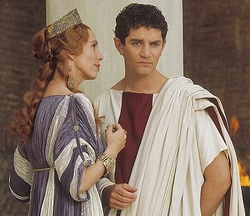
* Students you need to bring your
Julius Caesar book with you to class today.
CLASSWORK
I. Journal - Title: Difficult Decision - Write ½ page - DUE TODAY!
What was the most difficult decision you have ever had to make in your life? Why was it difficult?
In your journal, describe how you arrived at the decision. Did you discuss it with friends or relatives?
Do you feel that you made the right decision, or would you change it if you could?
Did Brutus’ decision involve any of the same factors that affected your decision? If so, what factors?
Do you think that he made the right choice?
II. Personal Response Write 1 paragraph- DUE TODAY! ( Respond on same sheet of paper)
What are your feelings toward Caesar at this point in the play?
III. READ BACKGROUND INFORMATION
Did You Know?
Marcus Brutus claimed to have descended from the founder of the Roman Republic. In 509 B.C., Lucius
Junius Brutus led a revolt against Tarquinius Superbus, Rome’s seventh king. Ancient historians describe
Tarquinius as a tyrant who killed many senators. Brutus supposedly expelled him and his family after
Tarquinius’s son took advantage of a noblewoman. Brutus, one of the first consuls elected, made the
Roman people swear never to accept another king. Much of the story may be legend, but it does reflect
the Romans’ long-standing dislike of kings. Even the emperors avoided using the title.
IV. READ Julius Caesar Act II Scenes 2, 3 and 4 Pages
(Read together in class. Sign up for parts on white board)
V. Analyzing Literature
Recall and Interpret - Questions due today at the end of the period!
1. How does Brutus justify the plot against Caesar? What does this justification suggest
about Brutus’s values?
2. Why does Brutus want to spare Antony’s life? What is his opinion of Antony?
3. How does Portia convince Brutus to disclose his secret to her? What is your impression
of their relationship?
4. Why is Calphurnia afraid to let Caesar go to the Senate House? Does Caesar seem to
share her fear? Explain.
5. What arguments does Decius make to change Caesar’s mind? Which of Caesar’s personality
traits make him vulnerable to Decius’s arguments?
Evaluate and Connect
6. Which of the two appears to have the better understanding of human nature, Brutus or
Cassius? Explain.
7. Which three events in Act 2 serve to increase the level of suspense in the play? How?
HOMEWORK - DUE MONDAY May 9th
I. Literature and Writing
Journal - Title: Behind Every Great Man - Write 1/2 Page
Shakespeare introduces Portia and Calphurnia in Act 2. How are these two women alike?
How are they different? What do their relationships with their husbands reveal about Brutus
and Caesar? Write one half page comparing and contrasting these two women’s
relationships with their husbands.
II. FOCUS ACTIVITY
What is the most moving formal speech you have ever heard or read? Why did it make a lasting impression?
Write one paragraph describing the speech and explaining why it made such an impression on you.
( Respond on same sheet of paper)
REMINDERS
* Julius Caesar Theme Park Project - 50 points - Due Monday June 6, 2011
*Julius Caesar Persuasive Essay (100 Points) - DUE WEDNESDAY JUNE 8, 2011
(5-Paragraph Essay, Typed, Double Spaced, #12 Arial Font, 1" Margins)
* Book Report #4- Due Friday June 10, 2011
(See instructions under the BOOK REPORTS TAB for details)
http://abcusdcerritoshsmarzo.weebly.com/book-rpts.html
Wednesday May 4, 2011
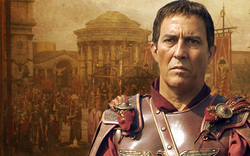
* Students you need to bring your
Julius Caesar book with you to class today.
Hand in JULIUS CAESAR STUDY
QUESTIONS ACT II SCENE 1 DUE TODAY
CLASSWORK
I. J.C. ACT II, Scene 1 - Imagery - Due today at the end of class
Imagery is language that stirs up one or all of the five senses: seeing, hearing, tasting,
smelling, or touching. When Brutus contemplates Caesar and the crown, he uses an
interesting metaphor to express his feelings. This activity provides insight into Brutus’s
point of view and demonstrates how imagery enhances writing.
1. Read this quote from Brutus: “It is the bright day that brings forth the adder; / And that
craves wary walking. Crown him?—that;— / And then, I grant, we put a sting in him, /
That at his will he may do danger with.”
2. What are the qualities of an adder?
3. Assume Caesar had qualities of an adder. Clearly, Brutus is not suggesting Caesar would
bite people. What do you think Brutus means? How might these qualities demonstrate
themselves in Caesar’s leadership?
-------------------------------------------------------------------
1. Find another instance of imagery in Act II, Scene I, and copy it here:
2. What picture is being used here?
3. Explain whether or not you think this was a good choice of imagery on Shakespeare’s
part. What does it do for the play?
REMINDERS
* Julius Caesar Theme ParkProject - 50 points - Due Monday, June 6, 2011
*Julius Caesar Persuasive Essay (100 Points) - DUE WEDNESDAY JUNE 8, 2011
(5-Paragraph Essay, Typed, Double Spaced, #12 Arial Font, 1" Margins)
* Book Report #4- Due Friday June 10, 2011
(See instructions under the BOOK REPORTS TAB for details)
http://abcusdcerritoshsmarzo.weebly.com/book-rpts.html
Julius Caesar book with you to class today.
Hand in JULIUS CAESAR STUDY
QUESTIONS ACT II SCENE 1 DUE TODAY
CLASSWORK
I. J.C. ACT II, Scene 1 - Imagery - Due today at the end of class
Imagery is language that stirs up one or all of the five senses: seeing, hearing, tasting,
smelling, or touching. When Brutus contemplates Caesar and the crown, he uses an
interesting metaphor to express his feelings. This activity provides insight into Brutus’s
point of view and demonstrates how imagery enhances writing.
1. Read this quote from Brutus: “It is the bright day that brings forth the adder; / And that
craves wary walking. Crown him?—that;— / And then, I grant, we put a sting in him, /
That at his will he may do danger with.”
2. What are the qualities of an adder?
3. Assume Caesar had qualities of an adder. Clearly, Brutus is not suggesting Caesar would
bite people. What do you think Brutus means? How might these qualities demonstrate
themselves in Caesar’s leadership?
-------------------------------------------------------------------
1. Find another instance of imagery in Act II, Scene I, and copy it here:
2. What picture is being used here?
3. Explain whether or not you think this was a good choice of imagery on Shakespeare’s
part. What does it do for the play?
REMINDERS
* Julius Caesar Theme ParkProject - 50 points - Due Monday, June 6, 2011
*Julius Caesar Persuasive Essay (100 Points) - DUE WEDNESDAY JUNE 8, 2011
(5-Paragraph Essay, Typed, Double Spaced, #12 Arial Font, 1" Margins)
* Book Report #4- Due Friday June 10, 2011
(See instructions under the BOOK REPORTS TAB for details)
http://abcusdcerritoshsmarzo.weebly.com/book-rpts.html
Tuesday May 3, 2011
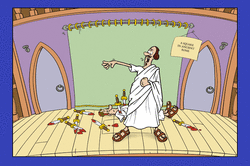
CLASSWORK/HOMEWORK
I. READ JULIUS CAESAR ACT II, SCENE I. Pages 47 - 71 - Follow along with CD
II. JULIUS CAESAR STUDY QUESTIONS ACT II SCENE 1 - HOMEWORK - DUE Wednesday 5/4/11
ACT II, SCENE I.
1. What question is Brutus pondering at the opening of the scene? To what decision does Brutus come in his orchard? Why?
2. For what information does Brutus want Lucius to look at a calendar?
What is the significance of what Lucius finds? What does Lucius give to Brutus in Scene I?
3. Why do the conspirators want Cicero to join them?
4. Why does Brutus reject Cicero and is against killing Mark Antony?
What is Cassius's reaction and what does this show about his and Brutus's relationship?
Why doesn't Brutus want to swear an oath with the conspirators?
5. What do the conspirators plan to do the next day?
6. Why did Brutus say, "Render me worthy of this noble wife!"?
7. How does Decius say he will make sure that Caesar will come to the Capitol?
8. What has Portia done to show Brutus that she is worthy of knowing his secrets?
III. REVIEW Julius Caesar Persuasive Essay and Julius Caesar Theme Park Project
Julius Caesar Persuasive Essay (100 Points) - DUE WEDNESDAY JUNE 8, 2011
(5-Paragraph Essay, Typed, Double Spaced, #12 Arial Font, 1" Margins)
Just as Brutus attempted to use the idea that the end justifies the means to rationalize his decision to kill Caesar, some people today use the same argument to justify acts of war, violent protest, or terrorism. In a well organized essay, defend, challenge, or qualify the validity of this argument. Use examples from your reading, observation, and/or experience to support your position.
ESSAY RUBRIC
Top Scores
9-8
93-100 points
· These are well-written papers which respond fully to the question asked.
· The best papers show a full understanding of the issues and support their points with appropriate textual
evidence and examples.
· Writers of these essays demonstrate stylistic maturity by an effective command of sentence structure, diction,
and organization.
· The writing need not be without flaws, but it should reveal the writer’s ability to choose from and control a
wide range of elements of effective writing.
Upper Scores
7-6
92-83 points
· These essays also respond correctly to the questions asked but do so less fully or less effectively than the
essays in the top range.
· Their discussion may be less thorough and less specific.
· These essays are well-written in an appropriate style but reveal less maturity than the top papers.
· They do make use of textual evidence to support their points.
· Some lapses in diction or syntax may appear, but the writing demonstrates sufficient control over the
elements of composition to present the writer’s ideas clearly.
Middle Score
5
82-77 points
· These essays respond to the question, but the comments may be simplistic or imprecise; they may be overly
generalized, vague, or inadequately supported.
· These essays are adequately written, but may demonstrate inconsistent control over the elements of
composition.
· Organization is attempted, but it may not be fully realized or particularly effective.
Lower Scores
4-3
76-70 points
· These essays attempt to deal with the question, but do so either inaccurately or without support or specific
evidence.
· They may show some misunderstanding or omit pertinent analysis.
· The writing can convey the writer’s ideas, but it reveals weak control over diction, syntax, organization.
· These essays may contain excessive and distracting spelling and grammatical errors.
· Statements are seldom supported with specific or persuasive evidence, or inappropriately lengthy quotations
may replace discussion and analysis.
Lowest Scores
2-1
69-60 points
· These essays fail to respond adequately to the question.
· They may reveal misunderstanding or may distort the interpretation.
· They compound the problems of the Lower Score papers.
· Often poorly written on several counts, these essays may contain many distracting errors in grammar and
mechanics.
· Generally these essays are unacceptably brief or poorly written.
· Although some attempts to answer the question may be indicated, the writer’s view has little clarity and only
slight, if any, evidence in its support.
Julius Caesar Theme Park Project - 50 points - Due Monday June 6th, 2011
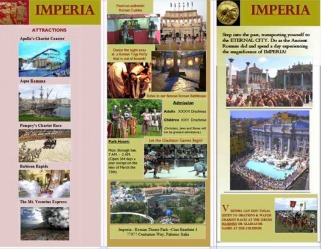
Shakespeare has hit the big time. His estate is allowing you, the theme park developer, to create a theme park based on one of his most famous plays, Julius Caesar. The Romeo and Juliet theme park has been such a success, it only seems natural to now open a second theme park based on a different play.
As the developer, you must make important decisions regarding the attractions, cost, requirements, and many other items. You are also in charge of promoting this theme park.
Your job as the developer will come in steps. First, you need to decide the following:
1. What is the name of the theme park?
2. What main attractions will you have?
A good theme park would have 5 major attractions to advertise.
3. Where is the theme park located?
4. What is the cost of admission?
5. What restaurants and other amenities are available?
6. You may choose to add other information at your discretion.
After all, you are the developer!
Next, you must design a brochure for your theme park. The brochure must be neatly designed and it must relay all information outlined above. Make sure to include a Map of your theme park.
As the developer, you must make important decisions regarding the attractions, cost, requirements, and many other items. You are also in charge of promoting this theme park.
Your job as the developer will come in steps. First, you need to decide the following:
1. What is the name of the theme park?
2. What main attractions will you have?
A good theme park would have 5 major attractions to advertise.
3. Where is the theme park located?
4. What is the cost of admission?
5. What restaurants and other amenities are available?
6. You may choose to add other information at your discretion.
After all, you are the developer!
Next, you must design a brochure for your theme park. The brochure must be neatly designed and it must relay all information outlined above. Make sure to include a Map of your theme park.
Monday May 2, 2011
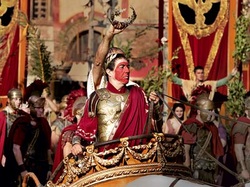
* Students bring your "JC Book” with you
to class, Monday 5/2 through Thurs. 5/6
*CLASSWORK/HOMEWORK
I. REVIEW HOMEWORK ASSIGNMENT for JC ACT I. DUE TUESDAY May 3, 2011
ACT I Reading and Study Guide
I. LITERARY TERMS: Be able to define each term and apply each term to the play.
blank verse :
List characters who speak in verse:
prose:
List characters who speak in prose:
**What possible reason do some characters speak in prose and some speak in verse?
tragedy:
exposition:
Explain how this Act serves as the exposition to the play.
pun:
Example from Act I, Scene 1:
hyperbole:
Example from Act I, Scene 1:
conflict:
External: 1. _______________ vs. ________________
2. _______________ vs. ________________
3. _______________ vs. ________________
Internal: 4. ________________ vs. ________________
soliloquy :
Example:
monologue:
Example:
metaphor
Example:
simile:
Example:
II. READ from Julius Caesar ACT II Scenes 1 - 4
(Students sign up for parts. Read as much as you can get through together in class)
REMINDERS
* Book Report #4- Due Friday June 10, 2011
(See instructions under the BOOK REPORTS TAB for details)
http://abcusdcerritoshsmarzo.weebly.com/book-rpts.html
Friday April 29, 2011
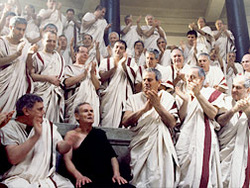
Hand In JC Vocabulary 1 Sentences
CLASSWORK
I. Take JC Vocabulary 1 Quiz
II. Give Instructions for Julius Caesar: ACT I Reading and Study Guide Assignment - Due Tues. May 3rd
LITERARY TERMS: Be able to define each term and apply each term to the play.
- blank verse List characters who speak in verse:
prose: List characters who speak in prose:
**What possible reason do some characters speak in prose and some speak in verse?
- tragedy:
- exposition:
- pun:
- hyperbole:
- conflict:
2. _______________ vs. ________________
3. _______________ vs. ________________
Internal: 4. ________________ vs. ________________
- soliloquy :
- monologue:
- metaphor
- simile:
HOMEWORK
I. Julius Caesar: ACT I Reading and Study Guide Assignment - Due Tues. May 3rd
REMINDERS
* Book Report #4- Due Friday June 10, 2011
(See instructions under the BOOK REPORTS TAB for details)
http://abcusdcerritoshsmarzo.weebly.com/book-rpts.html
Thursday, April 28, 2011
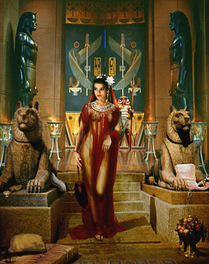
* Students you do not need to bring your
Julius Caesar book with you to class today.
CLASSWORK
I. Watch Films - Decisive Battles - Pharsalus 48 BC (Caesar vs Pompey) Part 2
and part of Julius Caesar Film: Pompey in Alexandria, Egypt
HOMEWORK
I. VOCABULARY - WRITE one sentence for each word - DUE Fri. 04/29/11
QUIZ over all 20 words - Friday 04/29/11 - See Mon. 4/25 for list of words and definitions
REMINDERS
* Book Report #4- Due Friday June 10, 2011
(See instructions under the BOOK REPORTS TAB for details)
http://abcusdcerritoshsmarzo.weebly.com/book-rpts.html
Wednesday April 27, 2011
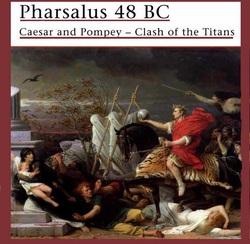
Please bring your Julius Caesar
book with you to class today.
Hand In - Literature Book Questions Page 779
Reading Check & Interpretations 1 - 13 - Due Today
CLASSWORK
I. READ- Julius Caesar Act I Scene 3 Pages -
(What we don't finish reading in class together today, you will need to finish tonight at home.)
Sign up on whiteboard to read for the following Characters:
Act I Scene 3: Narrator - Cicero - Cinna - Cassius - Casca-
II. Watch Film - Decisive Battles - Pharsalus 48 BC (Caesar vs Pompey) Part 1
Pompey and much of the Roman Senate fled Italy in 48 BC to prepare an army. Caesar, lacking a fleet of ships, solidified his control over the western Mediterranean — Spain specifically — before assembling ships to follow Pompey. Pompey had a large fleet, as well as much support from all Roman provinces and client states east of Italy. Caesar, however, managed to cross the Adriatic in the winter, with Mark Antony following a little later because Caesar lacked sufficient ships. Although Pompey had a larger army, he recognized that Caesar's troops were more experienced, and could prove victorious in a pitched battle. An indecisive winter of blockade and siege followed.
Pompey eventually confronted Caesar near Pharsalus. Caesar began the battle causing Pompey's entire cavalry to fall into disorder. Caesar's army was able to get behind and attack Pompey's army from the rear. The remaining Pompeiian soldiers fled and soon the main battle was done. Pompey fled with a very small retinue, claiming that he had been betrayed. Caesar had won his greatest victory, having lost only about 200 soldiers and 30 centurions. Pompey fled from Pharsalus to Egypt, where he was assassinated on the order of Pharaoh Ptolemy XIII. Interestingly enough, Ptolemy XIII sent Pompey's head to Caesar in an effort to win his favor, but Caesar was not pleased about receiving the head of his son-in-law and good friend in a box. It was even said that Caesar cried as he had planned on pardoning those politicians who had opposed him.
HOMEWORK
I. VOCABULARY - WRITE one sentence for each word - DUE Fri. 04/29/11
QUIZ over all 20 words - Friday 04/29/11 - See Mon. 4/25 for list of words and definitions
REMINDERS
* Book Report #4- Due Friday June 10, 2011
(See instructions under the BOOK REPORTS TAB for details)
http://abcusdcerritoshsmarzo.weebly.com/book-rpts.html
Tuesday April 26, 2011
Brutus & Cassius
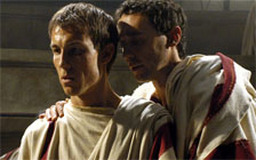
Please bring your Julius Caesar
book with you to class today.
CLASSWORK
I. READ - Julius Caesar Act I Scene 2 Pages -
(What we don't finish reading in class together today, you will need to finish tonight at home.)
Sign up on whiteboard to read for the following characters:
Act I Scene 2: Brutus - Calphurnia- Antony- Caesar -
Narrator - Soothsayer - Cassius - Casca-
HOMEWORK
I. Literature Book Page 779 - Reading Check & Interpretations
Answer Questions 1 - 13 - Due Wednesday April 27, 2011
II. VOCABULARY - WRITE one sentence for each word - DUE Fri. 04/29/11
QUIZ over all 20 words - Friday 04/29/11 - See Mon. 4/25 for list of words and definitions
REMINDERS
* Book Report #4- Due Friday June 10, 2011
(See instructions under the BOOK REPORTS TAB for details)
http://abcusdcerritoshsmarzo.weebly.com/book-rpts.html
Thursday April 14, 2011
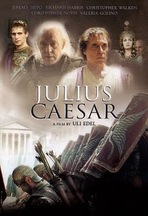
* Students you do not need to bring your Julius Caesar book with you to class today.
* No vocabulary this week
I. Watch Film: Julius Caesar
A back-story to Shakespeare’s Julius Caesar. The film takes an epic look at Julius Caesar, Rome's last dictator, whose death also signaled the end of the Roman Republic. Chronicles his campaigns in Gaul and Egypt, his rivalry with General Pompey, and his eventual assassination at the hands of Brutus and Cassius. The film will hopefully help students become more familiar with the characters and gain a deeper understanding of what motivates each of them.
II. Use Character Sheet to keep track of all the major players from the film/play.
Record character traits and important events that occur.
REMINDERS
* Book Report #4- Due Friday June 10, 2011
(See instructions under the BOOK REPORTS TAB for details)
http://abcusdcerritoshsmarzo2.weebly.com/book‐reports.html
Wednesday April 13, 2011
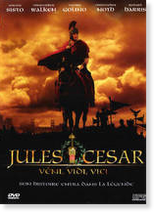
* Students you do not need to bring your Julius Caesar book with you to class today.
* No vocabulary this week
I. Watch Film:Julius Caesar
A back-story to Shakespeare’s Julius Caesar. The film takes an epic look at Julius Caesar, Rome's last dictator, whose death also signaled the end of the Roman Republic. Chronicles his campaigns in Gaul and Egypt, his rivalry with General Pompey, and his eventual assassination at the hands of Brutus and Cassius. The film will hopefully help students become more familiar with the characters and gain a deeper understanding of what motivates each of them.
II. Use Character Sheet to keep track of all the major players from the film/play.
Record character traits and important events that occur.
Tuesday April 12, 2011
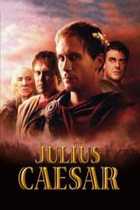
* Students you do not need to bring your Julius Caesar book with you to class today.
* No vocabulary this week
I. Watch Film:Julius Caesar
A back-story to Shakespeare’s Julius Caesar. The film takes an epic look at Julius Caesar, Rome's last dictator, whose death also signaled the end of the Roman Republic. Chronicles his campaigns in Gaul and Egypt, his rivalry with General Pompey, and his eventual assassination at the hands of Brutus and Cassius. The film will hopefully help students become more familiar with the characters and gain a deeper understanding of what motivates each of them.
II. Use Character Sheet to keep track of all the major players from the film/play.
Record character traits and important events that occur.
Friday April 8, 2011
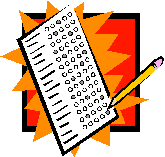
* California Education Content Standards Benchmark Test #3
Thursday April 7, 2011
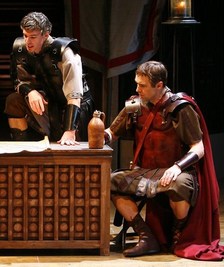
* Students Bring your "Literature Book with” you
to class today, Monday 4/4 through Tuesday 4/5
Wednesday April 6, 2011
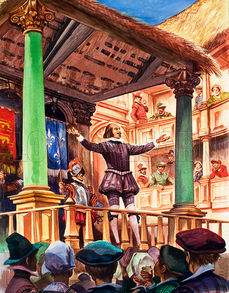
* Students Bring your "Literature Book with” you
to class today, Monday 4/4 through Tuesday 4/5
Tuesday April 5, 2011
Elizabethan Theatre

* Students Bring your "Literature Book with” you
to class today, Monday 4/4 through Tuesday 4/5
HAND IN - Journal: Quickwrite, Literature Book
Page 755 & Book Report #3
The theatre in Shakespeare’s time was much different than it is today. Authors wrote plays for the masses,
especially those who couldn’t read or write.
The theatre changed a lot during Shakespeare’s lifetime. The authorities didn’t like it and didn’t allow acting in the city itself. They thought it had a bad influence on people and kept them from going to church. Queen Elizabeth, on the other hand, loved acting and helped the theatre become popular.
As time went on more and more popular theatres emerged outside city walls. This was considered an unsafe area with crime and prostitution.
Shakespeare’s theatre was full of life. People did not sit all the time and it was not quiet during the performance. The audience could walk around, eat and drink during the play. They cheered, booed and sometimes even threw objects at the actors.
Theatres were open arenas or playhouses that had room for up to three thousand people. They were structures made mainly of wood. There was no heating and actors got wet when it rained. The stage was higher and there was an open pit in front of it where most of the people could stand in. Richer people and noblemen sat in the gallery. There was almost no scenery because the dialogue was the most important part of the play. Colourful and well-designed costumes were very important and told the people about the status of a character. Women never performed in plays, so young boys played female characters. The performances took place in the afternoon because it was too dark at night.
There was no stage crew as there is today. Actors had to do everything themselves -
from making costumes to setting the stage.
Plays were organized by acting companies. They performed about 6 different plays each week because they needed money to survive. They had almost no time for rehearsals.
The companies in Shakespeare’s time had a hierarchical system.
- The company belonged to shareholders and mangers. They were responsible for everything and got most of the money when the company was successful. Sometimes they even owned there own buildings.
- Actors worked for the managers and after some time became a permanent member of the company.
- Apprentices were young boys were allowed to act in menial roles. They also played females characters in plays.
*CLASSWORK
I. WATCH A & E's Biography - William Shakespeare: A Life of Drama
*REMINDERS:
* Bring "NIGHT" book with you to class to return to library on Wednesday 4/6
Friday April 1, 2011
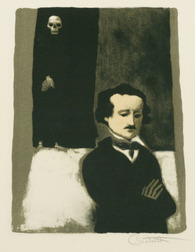
* No Vocabulary this week
Hand in JOURNAL #9 - Hiroshima
Make sure to bring your "Literature Book" with you
to class on Thursday, March 31st and Friday April 1st
CLASSWORK
WATCH The Masque of the Red Death FILM and Scourge Of The Black Death - DVD
*REMINDERS:
* Book Report #3- Due Tuesday April 5, 2011
(See instructions under the BOOK REPORTS TAB for details)
http://abcusdcerritoshsmarzo2.weebly.com/book‐reports.html
Thursday March 31, 2011
The Masque of the Red Death by Edgar Allan Poe
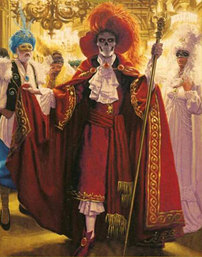
* No Vocabulary this week
Hand in JOURNAL #9 - Hiroshima
Make sure to bring your "Literature Book" with you
to class on Thursday, March 31st and Friday April 1st
CLASSWORK
READ The Masque of the Red Death by Edgar Allan Poe
*REMINDERS:
* Book Report #3- Due Tuesday April 5, 2011
(See instructions under the BOOK REPORTS TAB for details)
http://abcusdcerritoshsmarzo2.weebly.com/book‐reports.html
Wednesday March 30, 2011

* No Vocabulary this week
Hand in Hiroshima film questions
by the end of the period today.
Make sure to bring your "Literature Book" with you
to class on Thursday, March 31st and Friday April 1st
CLASSWORK
I. Finish watching film: Hiroshima
II. JOURNAL #9 - TITLE: Hiroshima - WRITE 1 page total - Due Today Wed, March 30th
A. John Hersey, author of the book, Hiroshima wrote, “A surprising number of the people of Hiroshima remained more or less indifferent about the ethics of the bomb.” Why is this so? How do you feel about it as an ethical issue? Taking into consideration the emotions and feelings of the times, write an editorial either in support of or in opposition to the use of the atomic bomb. Give supporting detail from the film. Write 1/2 Pg.
B. After the bombing of Pearl Harbor, Japanese Americans were forced to live in internment camps. Write 1/2 page arguing for or against the internment of Japanese Americans during World War II.
*REMINDERS:
* Book Report #3- Due Tuesday April 5, 2011
(See instructions under the BOOK REPORTS TAB for details)
http://abcusdcerritoshsmarzo2.weebly.com/book‐reports.html
Tuesday March 29, 2011
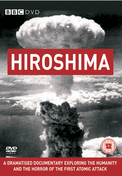
* No Vocabulary this week
CLASSWORK
Film: Farewell to Manzanar- Hiroshima (Continued from Friday)
(A follow-up to the stories “Lord of the Flies,” “Night,” and “Farewell to Manzanar “ demonstrating what can happen when mankind has zero tolerance and uses destructive forces to solve disputes Hiroshima is a dramatized documentary exploring the humanity and the horror of the first atomic attack. )
1. The blast was equivalent to ________ million sticks of dynamite.
2. Late in the war, were the Japanese diplomats ready to surrender? Were the Japanese military leaders ready to surrender?
3. What were Japanese soldiers being trained to do to American tanks if there was an invasion?
4. Was Stalin surprised by President Truman when told about the atomic bomb?
5. The United States did offer the Japanese government an opportunity to surrender but it was rejected. Why?
6. Why had the United States not fire-bombed Hiroshima earlier in the war?
7. Why did Deke Parsons decide to arm the bomb after the plane was airborne even though that was going to be difficult?
8. How much did the Little Boy bomb weigh?
9. How many seconds elapsed between the bomb drop and the detonation?
10. The temperature below the detonation was __________ degrees Celsius.
11. The _____________________ blast followed the development of the mushroom cloud.
12. After the bombing, why was the rain black?
13. What else did the rain contain?
14. Did President Truman warn Japan against a second bomb attack?
15. How many people died in the Nagasaki bombing?
16. Which country declared war on Japan even before the Japanese government had heard about the bombing of Nagasaki?
17. Japan surrendered on _____________, 1945.
18. A mysterious illness appeared about 4 days after the bombing. The victims were found to have no ____________________ and couldn’t fight infections. They were ______________ from the inside.
19. Today, more than _________ million people live in Hiroshima.
20. What was Dr. Hida’s thought as to why the bombs were dropped?
21. What signs of the bombings can still be seen in the cities?
22. What happens in Hiroshima each August 6th
*REMINDERS:
* Book Report #3- Due Tuesday April 5, 2011
(See instructions under the BOOK REPORTS TAB for details)
http://abcusdcerritoshsmarzo2.weebly.com/book‐reports.html
Monday March 28, 2011

No School Today!
Friday March 25, 2011
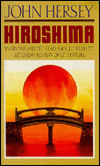
* No Vocabulary this week
CLASSWORK
I. Present your Fractured Fairytale to your classmates for extra credit points
II. Film: Farewell to Manzanar - Hiroshima
(A follow-up to the stories “Lord of the Flies,” “Night,” and “Farewell to Manzanar “ demonstrating what can happen when mankind has zero tolerance and uses destructive forces to solve disputes. Hiroshima is a dramatized documentary exploring the humanity and the horror of the first atomic attack. )
1. The blast was equivalent to ________ million sticks of dynamite.
2. Late in the war, were the Japanese diplomats ready to surrender? Were the Japanese military leaders ready to surrender?
3. What were Japanese soldiers being trained to do to American tanks if there was an invasion?
4. Was Stalin surprised by President Truman when told about the atomic bomb?
5. The United States did offer the Japanese government an opportunity to surrender but it was rejected. Why?
6. Why had the United States not fire-bombed Hiroshima earlier in the war?
7. Why did Deke Parsons decide to arm the bomb after the plane was airborne even though that was going to be difficult?
8. How much did the Little Boy bomb weigh?
9. How many seconds elapsed between the bomb drop and the detonation?
10. The temperature below the detonation was __________ degrees Celsius.
11. The _____________________ blast followed the development of the mushroom cloud.
12. After the bombing, why was the rain black?
13. What else did the rain contain?
14. Did President Truman warn Japan against a second bomb attack?
15. How many people died in the Nagasaki bombing?
16. Which country declared war on Japan even before the Japanese government had heard about the bombing of Nagasaki?
17. Japan surrendered on _____________, 1945.
18. A mysterious illness appeared about 4 days after the bombing. The victims were found to have no ____________________ and couldn’t fight infections. They were ______________ from the inside.
19. Today, more than _________ million people live in Hiroshima.
20. What was Dr. Hida’s thought as to why the bombs were dropped?
21. What signs of the bombings can still be seen in the cities?
22. What happens in Hiroshima each August 6th
*REMINDERS:
* Book Report #3- Due Tuesday April 5, 2011
(See instructions under the BOOK REPORTS TAB for details)
http://abcusdcerritoshsmarzo2.weebly.com/book‐reports.html
Thursday March 24, 2011
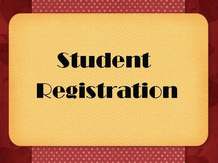
* 10th Grade Fall Registration 2011 -
Brewer Theater (Per. 1 Registration)
Wednesday March 23, 2011
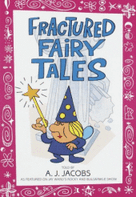
Bring your "Literature Book" with you
to class Mon, March 21st - Fri, March 25th
* No Vocabulary this week
* HAND IN- Homework from Literature Book
The Story-Teller Pages 161 #1-9 - DUE TODAY
CLASSWORK
I. Working with a partner, review Pages 154 - 159 in your literature book and compose
a one page SATIRE similar to Saki's THE STORY-TELLER. Reimagine your favorite
Fairy Tale and retell the story in the most demented way possible. Present story to
your classmates for extra credit points
Example:
See the The True Story of the Three Little Pigs by Jon Scieszka.
(The story of the three little pigs told from Alexander T. Wolf's point of view)
http://www.shol.com/agita/wolfside.htm
*REMINDERS:
* Book Report #3- Due Tuesday April 5, 2011
(See instructions under the BOOK REPORTS TAB for details)
http://abcusdcerritoshsmarzo2.weebly.com/book‐reports.html
to class Mon, March 21st - Fri, March 25th
* No Vocabulary this week
* HAND IN- Homework from Literature Book
The Story-Teller Pages 161 #1-9 - DUE TODAY
CLASSWORK
I. Working with a partner, review Pages 154 - 159 in your literature book and compose
a one page SATIRE similar to Saki's THE STORY-TELLER. Reimagine your favorite
Fairy Tale and retell the story in the most demented way possible. Present story to
your classmates for extra credit points
Example:
See the The True Story of the Three Little Pigs by Jon Scieszka.
(The story of the three little pigs told from Alexander T. Wolf's point of view)
http://www.shol.com/agita/wolfside.htm
*REMINDERS:
* Book Report #3- Due Tuesday April 5, 2011
(See instructions under the BOOK REPORTS TAB for details)
http://abcusdcerritoshsmarzo2.weebly.com/book‐reports.html
Tuesday, March 22, 2011
THE STORY-TELLER
Short Stories of Saki (H. H. Munro)
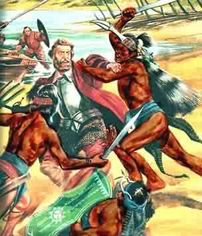
Bring your "Literature Book" with you
to class Mon, March 21st - Fri, March 25th
* No Vocabulary this week
* HAND IN - Homework from Literature Book
By the Waters of Babylon Page 152 #1-11
* 10th Grade Fall Registration 2011 - Brewer Theater (Periods 2 & 3 only)
Per. 1 Registration will be Thurs. 3/24
CLASSWORK
I. Discuss "By the Waters of Babylon"
II. Take Notes on Literay Terms
III. READ "The Storyteller" by Saki - Literature Book - Pages 154 - 160
HOMEWORK
I. Answer Questions from Literature Book Page 161 #1-9 - DUE WEDNESDAY March 23rd
*REMINDERS:
Cerritos High School Open House Showcase 2011
Tuesday, March 22, 2010
Campus Opens at 5:30 for Pre-Showcase Events
Main Events 6:00 – 8:30pm
* You will need your Literature Book with you in class on Monday, March 21st through Friday March 25th
* Book Report #3- Due Tuesday April 5, 2011
(See instructions under the BOOK REPORTS TAB for details)
http://abcusdcerritoshsmarzo2.weebly.com/book‐reports.html
Monday, March 21, 2011

* Bring your "Literature Book" with you to class Mon, March 21st - Fri, March 25th
* No Vocabulary this week
* HAND IN - Homework "Where Have You Gone
Charming Billy?"- Questions Page 630 # 2-8- Due Today
Literary Terms
First Person Point of View - When you tell a story through a viewpoint character using I or we, you are using first person point of view. Example: The banging on my door reverberated within my skull like a giant church bell in an empty hall. I groaned and rolled onto my stomach, pulling the pillow over my head.
Unreliable Narrator - An unreliable narrator works under the constraints of limited knowledge to convey information that may seem justifiably suspect to the reader. This type of narration typically displays characteristics or tendencies that indicate a lack of credibility or understanding of the story.
Third-personlimited narration or limited omniscienc : Focussing a third-person narration through the eyes of a single character. Even when an author chooses to tell a narrative through omnisient narration, he will sometimes (or even for the entire tale) limit the perspective of the narrative to that of a single character, choosing for example only to narrate the inner thoughts of that one character. The narrative is still told in 3rd person (unlike 1st person narration); however, it is clear that it is, nonetheless, being told through the eyes of a single character.
Allusion - When a writer or speaker refers to something from history or literature and expects her audience to understand to what she is referring, she is alluding or making an allusion. I felt like Custer at Little Big Horn when all of the freshmen were attacking me with questions about their lockers and combinations. (The speaker is alluding to the massacre of General George Armstrong Custer Little Big Horn.) How long has it been raining? It seems as if it has been forty days and forty nights. (The speaker likens the weather to Noah's flood which lasted forty days and forty nights.) Do not confuse allusion with the word illusion.
CLASSWORK
Narrative and Voice
I. READ "By the Waters of Babylon" - Literature Book Pages 140 - 151
(What we don't finish reading in class together, you will need to finish tonight at home.)
HOMEWORK
I. Answer Questions from Literature Book Page 152 #1-11 - DUE TUESDAY March 22nd
*REMINDERS:
* You will need your Literature Book with you in class on Monday, March 21stthrough Friday March 25th
* Book Report #3- Due Tuesday April 5, 2011
(See instructions under the BOOK REPORTS TAB for details)
http://abcusdcerritoshsmarzo2.weebly.com/book‐reports.html
Friday, March 18, 2011
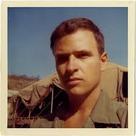
Hand In -Vocabulary #11 Sentences
CLASSWORK
I. Vocabulary #11 Quiz - Matching (Handout)
II. Holt Handbook- Pages 331 - 332, Exercise 4 (1-10) and Exercise 5 (1-10) - DUE TODAY
III. Literature Book - READ "Where Have You Gone Charming Billy?" Pages 620 - 628
HOMEWORK
I. Answer Questions Page 630 #s 2-8 - DUE MONDAY March 21st
*REMINDERS:
* You will need your Literature Book with you in class on Monday, March 21st
* Book Report #3- Due Tuesday April 5, 2011
(See instructions under the BOOK REPORTS TAB for details)
http://abcusdcerritoshsmarzo2.weebly.com/book‐reports.html
Thursday, March 17, 2011
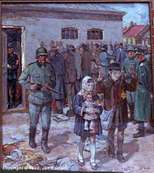
You will not need your "Night" book with you in class today.
CLASSWORK
Night Test Sections 1-9 - Scantron, Multiple Choice, 75 Questions, 150 Points
HOMEWORK
I. Study for VOCABULARY#11 - "NIGHT" Words Part 2
II. WRITE one sentence for each word - DUE Friday 3/18/11
*REMINDERS:
* Book Report #3- Due Tuesday April 5, 2011
(See instructions under the BOOK REPORTS TAB for details)
http://abcusdcerritoshsmarzo2.weebly.com/book‐reports.html
Wednesday, March 16, 2011
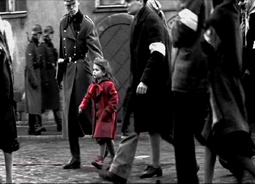
You will not need your "Night" book with you in class today.
CLASSWORK
I. Watch scenes from the film "Schindler's List"
Perhaps the most moving image in Steven Spielberg's epic Schindler's List is the little girl in the red coat. The girl in the red coat is the most obvious symbol in the film, simply because her coat is the only color object, presented in the main body of the black & white film. To Schindler, she represents the innocence of the Jews being slaughtered. Her oblivion mirrors the inaction of the Allied powers in helping to save the Jews. This one child is a symbol of all the 6,000,000 victims, exposed to ruthless slaughter. Each was an individual, who had dreams, who had a life, who had a family. Schindler watches the girl from his horse, high atop a hill and is riveted by her, almost to the exclusion of the surrounding violence. The moment Schindler catches sight of her marks the moment when he is forced to confront the horror of Jewish life during the Holocaust and his own hand in that horror. Schindler later spots the little girl in a pile of exhumed dead bodies, and her death symbolizes the loss of innocence.
HOMEWORK
I. Study for Night Test Sections 1-9 - Thursday March 17, 2011
II. VOCABULARY#11 - "NIGHT" Words Part 2
WRITE one sentence for each word - DUE Friday 3/18/11
TEST over all 20 words - Friday 3/18/11
1. emerged - to come forth into view or notice, as from concealment
2. hillock - a small hill or mound
3. timid - lacking in self-assurance, courage, or bravery; easily alarmed
4. tiers - a layer; level
5. beseeching - sought or -seeched, to implore urgently
6. livid - enraged; furiously angry
7. dysentery - intestinal inflammation causing abnormal pain and diarrhea
8. invalids - a person who is too sick or weak to care for himself
9. wailing - to utter a prolonged, inarticulate, mournful cry
10. spasmodically - bursts of excitement
11. summons - a request, demand, or call to do something
12. conscience - the inner sense of what is right or wrong in one's conduct or motives
13. delirious - hallucinating, excited, frantic
14. pleaded - to appeal or entreat earnestly
15. indifference - lack of interest or concern
16. distinguish - to recognize as distinct or different
17. spectacle - a public show or display
18. vitality - exuberant physical strength or mental vigor
19. disengage - to release from attachment or connection; loosen; unfasten
20. grimace - a facial expression, often ugly or contorted, that indicates disapproval, pain
*REMINDERS:
* Book Report #3- Due Tuesday April 5, 2011
(See instructions under the BOOK REPORTS TAB for details)
http://abcusdcerritoshsmarzo2.weebly.com/book‐reports.html
Tuesday, March 15, 2011
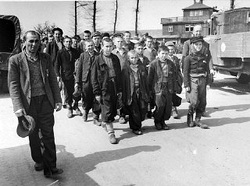
You will need your "Night" book with you in class today.
HAND IN Night Section 8 & 9 Questions - Due Today
CLASSWORK
I. REVIEW– Night Sections 1- 9 for Thursday's (3/17) Test
Know the following literary terms and identify examples
of each of these terms in the context of the novel.
1. Madame Schachter’s visions about fire on the train are an example of which literary
element? Explain how this works.
2. Eliezer and his father leaving the camp hospital before it is safely liberated illustrate an
example of which literary element? Explain.
3. What is the climax/turning pointof Elie Wiesel’s memoir, Night?
4. What are some examples of internal, man versus himself conflict in Elie Wiesel’s Night ?
5. How did the Jews of Sighet feel about the poor?
6. How did the Jews of Sighet feel when the foreign-born Jews are expelled?
7. How did the Jews of Sighet first feel about living in the ghettos?
8. When does Elie first see Nazi brutality?
9. How does Elie’s view about God change throughout the novel?
10. How do fellow prisoners treat each other? Why?
11. When does Elie’s father die?
12. Explain the difference between Elie Wiesel the author and Eliezer the narrator.
13. What is Wiesel's purpose in writing Night?
14. What role does faith play in the novel?
15. What significance do the novel's last lines have on its meaning?
16. In chapter one, the town of Sighet remains in denial, despite an abundance of evidence indicating that they are in danger. Why does no one believe what is about to happen?
17. Why does Wiesel use figurative language to such a large extent?
HOMEWORK
I. VOCABULARY#11 - "NIGHT" Words Part 2
WRITE one sentence for each word - DUE Friday 3/18/11
TEST over all 20 words - Friday 3/18/11
1. emerged - to come forth into view or notice, as from concealment
2. hillock - a small hill or mound
3. timid - lacking in self-assurance, courage, or bravery; easily alarmed
4. tiers - a layer; level
5. beseeching - sought or -seeched, to implore urgently
6. livid - enraged; furiously angry
7. dysentery - intestinal inflammation causing abnormal pain and diarrhea
8. invalids - a person who is too sick or weak to care for himself
9. wailing - to utter a prolonged, inarticulate, mournful cry
10. spasmodically - bursts of excitement
11. summons - a request, demand, or call to do something
12. conscience - the inner sense of what is right or wrong in one's conduct or motives
13. delirious - hallucinating, excited, frantic
14. pleaded - to appeal or entreat earnestly
15. indifference - lack of interest or concern
16. distinguish - to recognize as distinct or different
17. spectacle - a public show or display
18. vitality - exuberant physical strength or mental vigor
19. disengage - to release from attachment or connection; loosen; unfasten
20. grimace - a facial expression, often ugly or contorted, that indicates disapproval, pain
*REMINDERS:
* Book Report #3- Due Tuesday April 5, 2011
(See instructions under the BOOK REPORTS TAB for details)
http://abcusdcerritoshsmarzo2.weebly.com/book‐reports.html
* Night Test Sections 1-9 - Thursday March 17, 2011
HAND IN Night Section 8 & 9 Questions - Due Today
CLASSWORK
I. REVIEW– Night Sections 1- 9 for Thursday's (3/17) Test
Know the following literary terms and identify examples
of each of these terms in the context of the novel.
- Autobiography: the story of a person's life written by
that person
- Point of view: perspective the author provides for the
reader to observe the events of a story - Conflict: opposing forces in a literary work that can
be either internal or external
- Irony: the opposite of what is expected occurs
- Imagery the use of vivid, descriptive language to
create
meaningful “word pictures” in a literary work - Symbolism: the use of one thing to suggest or represent
something else (Fire, Night)
- Theme: a main idea or central person of a story that is
either stated or unstated
- Foreshadowing: device a writer uses to hint at a future course of action
- Simile: Comparing one thing to an unlike thing by using like, as,
or than.
- Metaphor: Comparing one thing to an unlike thing without using like, as or
than.
- Motif : Recurring theme in a literary work (loss of faith; power of hope)
- Mood: emotional effect
that the text
creates for the audience (positive or negative)
- Tone: Prevailing atmosphere in a literary work; speaker’s attitude
Complete in class on your own sheet of paper. Get your paper stamped when you finish
the assignment. Keep to study from and turn in for credit on Thursday 3/17 before exam.
1. Madame Schachter’s visions about fire on the train are an example of which literary
element? Explain how this works.
2. Eliezer and his father leaving the camp hospital before it is safely liberated illustrate an
example of which literary element? Explain.
3. What is the climax/turning pointof Elie Wiesel’s memoir, Night?
4. What are some examples of internal, man versus himself conflict in Elie Wiesel’s Night ?
5. How did the Jews of Sighet feel about the poor?
6. How did the Jews of Sighet feel when the foreign-born Jews are expelled?
7. How did the Jews of Sighet first feel about living in the ghettos?
8. When does Elie first see Nazi brutality?
9. How does Elie’s view about God change throughout the novel?
10. How do fellow prisoners treat each other? Why?
11. When does Elie’s father die?
12. Explain the difference between Elie Wiesel the author and Eliezer the narrator.
13. What is Wiesel's purpose in writing Night?
14. What role does faith play in the novel?
15. What significance do the novel's last lines have on its meaning?
16. In chapter one, the town of Sighet remains in denial, despite an abundance of evidence indicating that they are in danger. Why does no one believe what is about to happen?
17. Why does Wiesel use figurative language to such a large extent?
HOMEWORK
I. VOCABULARY#11 - "NIGHT" Words Part 2
WRITE one sentence for each word - DUE Friday 3/18/11
TEST over all 20 words - Friday 3/18/11
1. emerged - to come forth into view or notice, as from concealment
2. hillock - a small hill or mound
3. timid - lacking in self-assurance, courage, or bravery; easily alarmed
4. tiers - a layer; level
5. beseeching - sought or -seeched, to implore urgently
6. livid - enraged; furiously angry
7. dysentery - intestinal inflammation causing abnormal pain and diarrhea
8. invalids - a person who is too sick or weak to care for himself
9. wailing - to utter a prolonged, inarticulate, mournful cry
10. spasmodically - bursts of excitement
11. summons - a request, demand, or call to do something
12. conscience - the inner sense of what is right or wrong in one's conduct or motives
13. delirious - hallucinating, excited, frantic
14. pleaded - to appeal or entreat earnestly
15. indifference - lack of interest or concern
16. distinguish - to recognize as distinct or different
17. spectacle - a public show or display
18. vitality - exuberant physical strength or mental vigor
19. disengage - to release from attachment or connection; loosen; unfasten
20. grimace - a facial expression, often ugly or contorted, that indicates disapproval, pain
*REMINDERS:
* Book Report #3- Due Tuesday April 5, 2011
(See instructions under the BOOK REPORTS TAB for details)
http://abcusdcerritoshsmarzo2.weebly.com/book‐reports.html
* Night Test Sections 1-9 - Thursday March 17, 2011
Monday, March 14, 2011
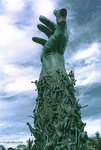
You will need your "Night" book with you in class today.
HAND IN - Night Questions Sections 6 & 7 - Due Today
CLASSWORK
I. READ– Night Sections 8 & 9 - Pages 109-119 Read together in class.
(What we don't finish reading in class together, you will need to finish tonight at home.)
CLASSWORK/HOMEWORK
I. VOCABULARY#11 - "NIGHT" Words Part 2
WRITE one sentence for each word - DUE Friday 3/18/11
TEST over all 20 words - Friday 3/18/11
1. emerged
2. hillock
3. timid
4. tiers
5. beseeching
6. livid
7. dysentery
8. invalids
9. wailing
10. spasmodically
11. summons
12. conscience
13. delirious
14. pleaded
15. indifference
16. distinguish
17. spectacle
18. vitality
19. disengage
20. grimace
II.Night Section 8 & 9 Questions - Work on today in class, hand in Tuesday, March 15th
1. How does Wiesel treat his father during the journey to Buchenwald and later during
his dad's illness? How does Wiesel’s link to his father affect his will to survive?
2. Given their life or death situation, do you believe Wiesel’s attitude toward his father was
understandable? Explain your reactions
3. Elie weeps (cries) several times in the book; explain when and why.
Explain one time he does not weep when it would be expected.
4.What fascinated Elie,why?
5. Was it easy to take showers, describe?
6. Describe how Elie's father is now, what can you say about his spirit
and his will to live, how has it changed? Give Example
7. What does Elie mean when he says, “ I felt that I as not
arguing with him, but with death itself?"
8. What was Elie ashamed of? What was he thinking about?
9. Why didn’t his father eat anything?
10. Describe what is happening to Elie’s father.
11. What was the last memory of Elie’s father?
12. What happened to Elie’s father?
13. Did Elie cry? Why or why not?
14.What does he mean “free at last”?
15. What feelings and thoughts went through your mind as you read about Wiesel’s final
experiences as a German prisoner? What would you say if you could talk to him about
this time in his life? What would you want him to explain to you?
*REMINDERS:
* Book Report #3- Due Tuesday April 5, 2011
(See instructions under the BOOK REPORTS TAB for details)
http://abcusdcerritoshsmarzo2.weebly.com/book‐reports.html
Friday, March 11, 2011

You will need your "Night" book with you in class today.
No Vocabulary this week
CLASSWORK/HOMEWORK
I. JOURNAL #8 - TITLE: HolocaustReaction - WRITE 1 page - Due Today Friday, March 11th
Explain the significance of "Night" and the film "The Last Days." How does the film relate to the novel? Discuss the realness, the situations, events, and how it applies to your thoughts on what you just learned about the Holocaust. Do you now understand why Author and Holocaust survivor Elie Wiesel titles his book NIGHT?
II.Night Section 6 Questions - Work on today in class, hand in Monday March 14th
1. What was the only thing that kept Wiesel going as they journeyed to a new camp?
2. Why did Wiesel describe himself and the other prisoners “masters of nature, the master of the world”?
3. Why did Wiesel and his father take turns sleeping?
4. Who was Rabbi Eliahu? What did he ask Wiesel?
5. After Rabbi Eliahu had journeyed on, what did Wiesel realize in relation to his question?
6. What was Juliek worried about as the prisoners piled on top of him?
7. What do you think Wiesel meant by this statement: “All I could hear was the violin, and
it was as if Juliek’s soul had become his bow. He was playing his life. His whole being
was gliding over the strings.”
8. Once they arrived at Gleiwitz, how many days did they go without food or water?
9. Why did Wiesel put his life at risk at the end of this section?
10. What did the prisoners finally do to get water?
III. Night Section 7 Questions - Work on today in class, hand in Monday March 14th
1. What did they do with the dead bodies on the train?
2. What happened when workmen threw bread on the train?
3. Meir Katz groaned "Why don't theu shoot us right away?" Why do you think they didn't?
*REMINDERS:
* Book Report #3- Due Tuesday April 5, 2011
(See instructions under the BOOK REPORTS TAB for details)
http://abcusdcerritoshsmarzo2.weebly.com/book‐reports.html
Thursday, March 10, 2011
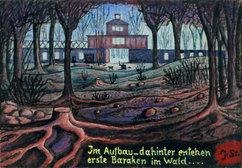
You will not need your "Night" book with you in class today.
No Vocabulary this week
HAND IN - Conspiracy Essay Questions - Rough Draft & Final Draft
and Cartoon Analysis Worksheet - Due Today
*CLASSWORK
I. Finish watching film "The Last Days"
*REMINDERS:
* Book Report #3- Due Tuesday April 5, 2011
(See instructions under the BOOK REPORTS TAB for details)
http://abcusdcerritoshsmarzo2.weebly.com/book‐reports.html
Monday, March 7, 2011
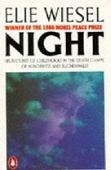
You will need your "Night" book with you in class today.
No Vocabulary this week!
CLASSWORK/HOMEWORK
I. READ– Night Sections 6 & 7- Pages 91-108 Read together in class.
(What we don't finish reading in class together, you will need to finish tonight at home.)
*HOMEWORK
I. Conspiracy Essay Questions - Rough Draft & Final Draft Due Thursday March 10th
WRITE 2 Full Pages, addressing all four questions. (Compose a 5 Paragraph essay. The 5th paragraph should be your Conclusion) 4 or 5 sentences per. paragraph.) (Typed, double spaced, #12 font Times New Roman or Arial font only, 1" margins on right/left hand sides of paper)
II.Cartoon Analysis Worksheet - Due Thursday March 10th (see examples listed under Wed. March 2nd)
*REMINDERS:
* Book Report #3- Due Tuesday April 5, 2011
(See instructions under the BOOK REPORTS TAB for details)
http://abcusdcerritoshsmarzo2.weebly.com/book‐reports.html
Friday, March 4, 2011
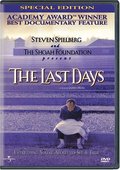
You will not need your "Night" book with you in class today.
No Vocabulary this week!
*CLASSWORK
I. Begin watching film "The Last Days"
The Last Days presents four distinct perspectives on the holocaust.
First, the survivors tell of their life before the holocaust: life in a regular town, living a regular life. They tell of how that changed, usually by insidious degrees as opposed to all at one moment. It is horrifying to see how it happened, how it started. The Nazi's suppression was so subtle at first, gradually becoming more harsh, and yet seemingly not that far out of the ordinary, at least not as much so as what was to follow. You can see how it could happen to anybody. People didn't think to run. This is the first perspective.
The second perspective is of the survivors talking about their experiences in interviews, the horrors they saw, the last time they saw they their families, the way people were executed by a perfectly efficient system. They tell how they swallowed jewels to keep them safe. The survivors recount their stories from memory.
The third perspective is the most unusual: the survivors actually visiting the ruins of the camp they had witnessed such horror in, lived in for a period of months. They walk over to a decrepit foundation of a building and say "This was the latrine," and then tell how they performed a ceremony in there. You get to see the places where the attrocities happened, which you may have seen before, but this time you have a guide who was actually there. This is not a history lesson, but a personal narrative.
There is actually a fourth perspective too: a Nazi doctor from Auschwitz, who is interviewed both by one of the documentarians and also by one of the survivors. You get to hear the survivor's perspective on the Nazi doctor's account of events at the camp.
An extremely well rounded story, which will help you understand on an emotional level what was going on.
*HOMEWORK
I. Conspiracy Essay Questions - Rough Draft Due Fri. March 4th , Final Draft Due Thurs. March 10th
WRITE 2 Full Pages, addressing all four questions. (Compose a 5 Paragraph essay. The 5th paragraph should be your Conclusion) 4 or 5 sentences per. paragraph.) (Typed, double spaced, #12 font Times New Roman or Arial font only, 1" margins on right/left hand sides of paper)
II. Cartoon Analysis Worksheet - Due Thursday 3/10/11 (see examples listed under Wed. March 2nd)
Project: Cartoon-Truth or Tale
Click on the link below to print a copy
of the "Cartoon Analysis Work Sheet"
http://www.archives.gov/education/lessons/worksheets/cartoon.html
Create your own cartoon depicting a message of propaganda relating to
Racismand that parallels [to some degree] with what was happening in the
world during the late 30's and 1940s. You can depict the race of your choice
(including your own) in a demeaning way or make your own anti-Nazi propaganda.
Fill in the "Cartoon Analysis Work Sheet," answering the following questions.
1) Describe the action taking place in the cartoon.
2) Explain how the words in the cartoon clarify the symbols.
3) Explain the message of the cartoon.
4) What special interest groups would agree disagree with the cartoon's message?
*REMINDERS:
* Book Report #3- Due Tuesday April 5, 2011
(See instructions under the BOOK REPORTS TAB for details)
http://abcusdcerritoshsmarzo2.weebly.com/book‐reports.html
Thursday, March 3, 2011

You will need your "Night" book with you in class today.
No Vocabulary this week!
*CLASSWORK
I. JOURNAL #7 - TITLE: Exodus- WRITE 1 page - Due Thursday, March 3rd - Today!
It has been said that “That which does not kill us, makes us stronger.” Does this apply to Weisel? Are you surprised that he has survived the hardships so far? Is he better prepared for them in some way, than the average person? What happens if one day the comfortable life that you know is suddenly taken away because of your race. Like many young Jews at the beginning of World War II, your country is now engaged in a war with a dictator. For Jewish teens in the 1940's, the war was far away and at first, they did not think that their life would ever be effected. But it was--forever. If you were put in the same circumstances, what would you do? If you only had 20 minutes to pack up your things and vacate the premises, what would you take with you? Do you think you could survive such hardships? Why or why not? What changes would it make in you? Please give a detailed explanation of how you would have handled some of the same experiences that Eliezer "Elie" Wesel had.
II. On the back side of Journal #7, identify three examples of foreshadowing, three examples of personification as well as five examples of symbolism from the first four sections of the book Night.
Please list the page numbers where each literary device is found. - Due Thursday, March 3rd - Today!
III. REVIEW
Preparing for the California High School Exit Exam Workbook - Chapter 3 - Page 30 (If time permits)
*HOMEWORK
I. Conspiracy Essay Questions - Rough Draft Due Fri. March 4th , Final Draft Due Thurs. March 10th
WRITE 2 Full Pages, addressing all four questions. (Compose a 5 Paragraph essay. The 5th paragraph should be your Conclusion) 4 or 5 sentences per. paragraph.) (Typed, double spaced, #12 font Times New Roman or Arial font only, 1" margins on right/left hand sides of paper)
II. Cartoon Analysis Worksheet - Due Thursday 3/10/11 (see examples listed under Wed. March 2nd)
Project: Cartoon-Truth or Tale
Click on the link below to print a copy
of the "Cartoon Analysis Work Sheet"
http://www.archives.gov/education/lessons/worksheets/cartoon.html
Create your own cartoon depicting a message of propaganda relating to
Racismand that parallels [to some degree] with what was happening in the
world during the late 30's and 1940s. You can depict the race of your choice
(including your own) in a demeaning way or make your own anti-Nazi propaganda.
Fill in the "Cartoon Analysis Work Sheet," answering the following questions.
1) Describe the action taking place in the cartoon.
2) Explain how the words in the cartoon clarify the symbols.
3) Explain the message of the cartoon.
4) What special interest groups would agree disagree with the cartoon's message?
*REMINDERS:
* Book Report #3- Due Tuesday April 5, 2011
(See instructions under the BOOK REPORTS TAB for details)
http://abcusdcerritoshsmarzo2.weebly.com/book‐reports.html
Wednesday, March 2, 2011
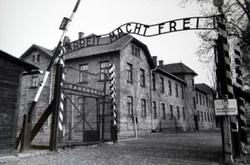
You will not need your "Night" book with you in class today.
No Vocabulary this week!
*CLASSWORK/HOMEWORK
I. Review "Conspiracy" Objectives and Essay Questions
* You should understand the importance of the Wannsee Conference
and how it fits into the larger pattern of persecution of the Jews in Germany prior to 1942.
* You will be able to analyze the purpose and nature of the decisions made at the
Wannsee Conference and grasp the change in Nazi policy this represented.
* You will understand the investment of resources and coordination required by the
Nazis in implementing this plan that involved the cooperation of all government agencies.
* You will know the amount of territory controlled or occupied by the Nazis by
1942 and understand the significance of this in the execution of the "Final Solution."
Essay Questions - Rough Draft Due Fri. March 4th , Final Draft Due Thurs. March 10th
(Write one paragraph answers for each question. See instructions below for details.)
1) How does this careful investigation of the meeting of Nazi leaders in 1942 change
your understanding of the Holocaust and the people who made it happen?"
2) Is it really possible for a secret group of powerful people to
influence historical, political and/or social events?”
3) Do people tend to not be concerned with or simplify the truth because they instead, prefer to
reside in their very own unreality where everything functions according to their social agreements?
4) Do you believe that in order to reform society, individuals need to be an active part of it and change it from within? Or must they hide inside of society or externally rebel against it in order for things to change?
WRITE 2 Full Pages, addressing all four questions. (Compose a 5 Paragraph essay. The 5th paragraph should be your Conclusion) 4 or 5 sentences per. paragraph.) (Typed, double spaced, #12 font Times New Roman or Arial font only, 1" margins on right/left hand sides of paper) Rough Draft Due Fri. March 4th , Final Draft Due Thurs. March 10th
*HOMEWORK
Cartoon Analysis Worksheet - Due Thurday 3/10/11
Project: Cartoon-Truth or Tale
Click on the link below to print a copy
of the "Cartoon Analysis Work Sheet"
http://www.archives.gov/education/lessons/worksheets/cartoon.html
Create your own cartoon depicting a message of propaganda relating to
Racism and that parallels [to some degree] with what was happening in the
world during the late 30's and 1940s. You can depict the race of your choice
(including your own) in a demeaning way or make your own anti-Nazi
propaganda (See examples below)
Fill in the "Cartoon Analysis Work Sheet," answering the following questions.
1) Describe the action taking place in the cartoon.
2) Explain how the words in the cartoon clarify the symbols.
3) Explain the message of the cartoon.
4) What special interest groups would agree disagree with the cartoon's message?
*REMINDERS:
* Book Report #3- Due Tuesday April 5, 2011
(See instructions under the BOOK REPORTS TAB for details)
http://abcusdcerritoshsmarzo2.weebly.com/book‐reports.html
Propaganda Posters
Tuesday, March 1, 2011
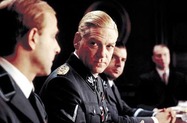
You will not need your "Night" book with you in class today.
No Vocabulary this week!
*CLASSWORK/HOMEWORK
I. Finish watching the film "Conspiracy"
Objectives
* You should understand the importance of the Wannsee Conference
and how it fits into the larger pattern of persecution of the Jews in Germany prior to 1942.
* You will be able to analyze the purpose and nature of the decisions made at the
Wannsee Conference and grasp the change in Nazi policy this represented.
* You will understand the investment of resources and coordination required by the
Nazis in implementing this plan that involved the cooperation of all government agencies.
* You will know the amount of territory controlled or occupied by the Nazis by
1942 and understand the significance of this in the execution of the "Final Solution."
Essay Questions - Rough Draft Due Fri. March 4th , Final Draft Due Thurs. March 10th
(Write one paragraph answers for each question. See instructions below for details.)
1) How does this careful investigation of the meeting of Nazi leaders in 1942 change
your understanding of the Holocaust and the people who made it happen?"
2) Is it really possible for a secret group of powerful people to
influence historical, political and/or social events?”
3) Do people tend to not be concerned with or simplify the truth because they instead, prefer to
reside in their very own unreality where everything functions according to their social agreements?
4) Do you believe that in order to reform society, individuals need to be an active part of it and change it from within? Or must they hide inside of society or externally rebel against it in order for things to change?
WRITE 2 Full Pages, addressing all four questions. (Compose a 5 Paragraph essay. The 5th paragraph should be your Conclusion) 4 or 5 sentences per. paragraph.) (Typed, double spaced, #12 font Times New Roman or Arial only, 1" margins on right/left hand sides of paper) Rough Draft Due Fri. March 4th, Final Draft Due Thurs. March 10th
*HOMEWORK
Night Questions Section 5, pages 73-90 - DUE Wed. March 2, 2011
1. What did the men do on the eve of Rosh Hashana?
2. How did Elie feel while the others were praying?
3. What was Elie's decision about fasting on Yom Kippur? Why did he make that decision?
4. What was Elie's "inheritance" from his father? Why was his father giving it to him?
5. Did the men remember to say the Kaddish for Akiba Drumer?
6. What did Elie dream of when he dreamed of a better world?
7. What happened to the patients who stayed in the hospital instead of being evacuated?
8. What was the last thing the head of the block ordered the men to do before they evacuated? Why?
9. What was the weather like during the evacuation?
*REMINDERS:
* Book Report #3- Due Tuesday April 5, 2011
(See instructions under the BOOK REPORTS TAB for details)
http://abcusdcerritoshsmarzo2.weebly.com/book‐reports.html
Monday, February 28, 2011
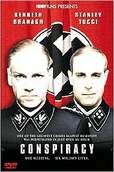
You will not need your "Night" book with you in class today.
No Vocabulary this week!
*CLASSWORK/HOMEWORK
I. Begin watching film "Conspiracy"
*On January 20, 1942, 15 high-ranking Nazi party and German government leaders met under the leadership of SS Lieutenant General Reinhard Heydrich at a lakeside villa in the wealthy Wannsee district of Berlin. Heydrich called the meeting on the basis of an order instructing him to coordinate logistics for carrying out "the final solution of the Jewish question." By seeing recreated scenes as portrayed in the HBO film “Conspiracy,” you will learn that German government officials discussed "extermination" without hesitation or qualm and thereby sanctioned, coordinated and expanded the implementation of the mass murder of all European Jews.
Objectives
* You should understand the importance of the Wannsee Conference
and how it fits into the larger pattern of persecution of the Jews in Germany prior to 1942.
* You will be able to analyze the purpose and nature of the decisions made at the
Wannsee Conference and grasp the change in Nazi policy this represented.
* You will understand the investment of resources and coordination required by the
Nazis in implementing this plan that involved the cooperation of all government agencies.
* You will know the amount of territory controlled or occupied by the Nazis by
1942 and understand the significance of this in the execution of the "Final Solution."
Essay Questions - Rough Draft Due Fri. March 4th ,Final Draft Due Thurs. March 10th
(Write one paragraph answers for each question. See instructions below for details.)
1) How does this careful investigation of the meeting of Nazi leaders in 1942 change
your understanding of the Holocaust and the people who made it happen?"
2) Is it really possible for a secret group of powerful people to
influence historical, political and/or social events?”
3) Do people tend to not be concerned with or simplify the truth because they instead, prefer to
reside in their very own unreality where everything functions according to their social agreements?
4) Do you believe that in order to reform society, individuals need to be an active part of it and change it from within? Or must they hide inside of society or externally rebel against it in order for things to change?
WRITE 2 Full Pages, addressing all four questions. (Compose a 5 Paragraph essay. 4 or 5 sentences per. paragraph.
The 5th paragraph should be your Conclusion) (Typed, double spaced, #12 font Times New Roman or Arial only, 1" margins on right/left hand sides of paper) Rough Draft Due Fri. March 4th , Final DraftDue Thurs. March 10th
*HOMEWORK
Night Questions Section 5, pages 73-90 - DUE Wed. March 2, 2011
1. What did the men do on the eve of Rosh Hashana?
2. How did Elie feel while the others were praying?
3. What was Elie's decision about fasting on Yom Kippur? Why did he make that decision?
4. What was Elie's "inheritance" from his father? Why was his father giving it to him?
5. Did the men remember to say the Kaddish for Akiba Drumer?
6. What did Elie dream of when he dreamed of a better world?
7. What happened to the patients who stayed in the hospital instead of being evacuated?
8. What was the last thing the head of the block ordered the men to do before they evacuated? Why?
9. What was the weather like during the evacuation?
*REMINDERS:
* Book Report #3- Due Tuesday April 5, 2011
(See instructions under the BOOK REPORTS TAB for details)
http://abcusdcerritoshsmarzo2.weebly.com/book‐reports.html
Friday, February 25, 2011
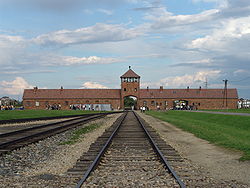
* Bring your "Night" book with you to class today, Friday 2/25
* Hand In NIGHT Questions - Section 4, Journals 3, 4, 5 & 6
and Vocabulary #10 sentences
*CLASSWORK/HOMEWORK
I. Take Vocabulary #10 Quiz
II. After Quiz, please READ together in class "Night" Section 5 Pages 73 - 90
(What we don't finish reading in class together today, you will need to finish tonight at home.)
*HOMEWORK
No weekend homework
*REMINDERS:
* Book Report #3- Due Tuesday April 5, 2011
(See instructions under the BOOK REPORTS TAB for details)
http://abcusdcerritoshsmarzo2.weebly.com/book‐reports.html
Thursday, February 24, 2011

* Bring your "Night" book with you to class today,Thursday 2/24
* HAND IN Night Questions 1 -11 sections 2 & 3 Pages 32-54 -DUE today, Thurs. 2/24/
* Get Journals 3, 4 & 5 Stamped! Remember, you will be turning in "Night"
Journals 3, 4, 5 & 6 on Friday 2/25
*CLASSWORK/HOMEWORK
I. READ NIGHT- Section 4 - Pages 55-72
(What we don't finish reading in class together today, you will need to finish tonight at home.)
II. JOURNAL #6 - TITLE: _______ - WRITE 1/2 page - Due Friday 2/25! - SEE HANDOUT
The written 1/2 page entry/sketch log should focus on your response to the literature, and should not merely be a summary of section 4. Your journal should include comments about your thoughts and feelings while reading, any questions you have, and predictions about the next chapter.
*HOMEWORK
I. NIGHT Questions - Section 4 - Pages 55-72 - Due Friday 2/25
1. Describe Elie's encounter with the dentist.
2. What did Elie Wiesel do when Idek hit his father? What was he thinking?
3. Who took Elie's gold tooth? Why did Elie give it up?
4. What were the only things in which Elie took an interest?
5. How did Elie describe the men after the air raid?
6. What happened to the young man from Warsaw? Why?
7. How did Elie say the soup tasted the night the pipel (young servant boy) was hanged?
II. VOCABULARY#10 - "NIGHT" Words (See Tue. Feb 22nd for list of words and definitions)
WRITE one sentence for each word - DUE Friday 2/25/11
STUDY for Friday's Quiz over all 20 words - Friday 2/25/11
*REMINDERS:
You will need your "Night" book with you in class on Friday 2/25
* Book Report #3- Due Tuesday April 5, 2011
(See instructions under the BOOK REPORTS TAB for details)
http://abcusdcerritoshsmarzo2.weebly.com/book‐reports.html
Wednesday, February 23, 2011
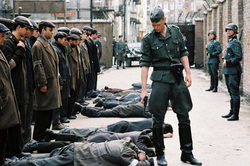
* Bring your "Night" book with you to class today,Wednesday 2/23
*CLASSWORK
I. REVIEW NIGHT- Sections 2, 3 - Pages 32-54
II. JOURNAL #5 - TITLE: Deportation - WRITE 1/2 page - Due Today! - BASED ON FILM
Your Written Entry should focus on your response to the film, and should not merely be a summary of what you watched. You should include comments about your thoughts and feelings while viewing the movie, any questions you have, and predictions about the next scene.
*HOMEWORK
I. Night Questions 1 -11 from sections 2 & 3 (See Tue 2/22/ for questions) Pages 21-43 -DUE THURS 2/24/
II. VOCABULARY#10 - "NIGHT" Words
WRITE one sentence for each word - DUE Friday 2/25/11
TEST over all 20 words - Friday 2/25/11
*REMINDERS:
Bring "Night" book with you to class on Thursday 2/24
* Book Report #3- Due Tuesday April 5, 2011
(See instructions under the BOOK REPORTS TAB for details)
http://abcusdcerritoshsmarzo2.weebly.com/book‐reports.html
Tuesday, February 22, 2011
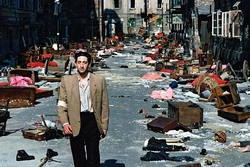
* Bring your "Night" book with you to class today,Tuesday 2/22
* Get Homework, JOURNAL #3
TITLE: Holocaust - STAMPED! - Due Today
*CLASSWORK
I. REVIEW
Preparing for the California High School Exit Exam Workbook - Chapter 2 - Pages 23- 29
II. READ NIGHT - Sections 2, 3 - Pages 32-54
(What we don't finish reading in class together today, you will need to finish tonight at home.)
III. JOURNAL #4- TITLE: Auschwitz - WRITE 1/2 page for each chapter (2 & 3) DUE THURSDAY 2/24/11
A. Chapters 2 & 3 journal and sketch Log - Must complete at least half the journal in class -
GET STAMPED TODAY! Keep "Night" Journals 3, 4, 5 & 6 until Friday 2/25 at which time
you will turn them all in.
Create a title for chapters 2 & 3 based on what happened in each of these chapters. Also date each entry.
Sketch memorable scenes from the chapters. Even if you do not consider yourself a good artist, try to make some sketches. Use colors that remind you of the mood of the story.
The written entries should focus on your response to the literature, and should not merely be chapter summaries. They should include comments about your thoughts and feelings while reading, any questions you have, and predictions about the next chapter.
Write 1/2 page for each entry (Chapters 2 & 3) Choose one important sentence from the book. Copy it word for word in the space provided. Include the page number.
Format your paper as shown below:
|
Date:
Chapter Title: Illustration of one scene from the chapter: |
Quote, page#:
Written response to chapter: |
*HOMEWORK
I. Night Questions sections 2 & 3 Pages 21-43
Answer Questions 1-11 – DUE THURSDAY 2/24/11
1. To what did Wiesel compare the world?
2. What did Madame Schächter see in her vision?
3. How did the other people in the car react to Madame Schächter?
4. Where did the train stop?
5. What did the Jews in the train car discover when they looked out the window?
6. When did Wiesel say the travelers left their illusions behind?
7. Which notorious SS officer did they meet at Auschwitz?
8. What was Elie's main thought as the men and women were being herded from the train?
9. What prayer were the people saying? Why was it unusual?
10. What did Elie do when the gypsy struck his father? Why? What was his father's response?
11. How long were Elie and his father at Auschwitz?
II. VOCABULARY#10 - "NIGHT" Words
WRITE one sentence for each word - DUE Friday 2/25/11
TEST over all 20 words - Friday 2/25/11
1. surname (n): a last name
2. synagogue (n): a Jewish house of worship
3. encumbered (adj): burdened; inconvenienced; bothered; annoyed
4. insignificant (adj): unimportant
5. waif (n): a person without a home
6. profoundly (adv): deeply
7. unsentimental (adj): tough-minded; determined
8. Gestapo (n): the secret police force of Nazi Germany
9. lorries (n): motor trucks
10. betrothals (n): engagements
11. diplomacy (n): word for relationship between nations
12. weary (adj): tired; exhausted; fatigued
13. liquidate (v): to get rid of; to put an end to
14. Fascism (n): German government during WWII.
15. antisemitism (n): discrimination against Jews.
16. billet (v): to provide housing for a soldier
17. bade (v): commanded (past tense of bid)
18. decrees (n): orders
19. ghettos (n): section of a city where Jews were forced to live
20. anguish (n): pain; suffering; distress
*REMINDERS:
Bring "Night" book with you to class on Wednesday 2/23
* Book Report #3- Due Tuesday April 5, 2011
(See instructions under the BOOK REPORTS TAB for details)
http://abcusdcerritoshsmarzo2.weebly.com/book‐reports.html
Friday, February 18, 2011
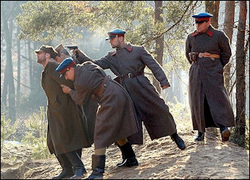
* Bring your "Night" book with you to class today, Friday 2/18
* No Vocabulary this week
* HAND IN - NIGHT - Chapter 1 Questions - Due Today
*CLASSWORK
I. Discuss Extra Credit Book Report(40 Points) Due Tuesday April 5, 2011
Anyone interested in reading the following graphic novel(s) for Extra Credit, please see me - Mr. Marzo
The Complete Maus: A Survivor's Tale by Art Spiegelman (ISBN# 0679406417) OR
A People's History of American Empire by Howard Zinn (ISBN# 0805087443)
II. JOURNAL #3- TITLE: Holocaust - WRITE 1/2 page – Must be completed TODAY! - GET STAMPED!
Respond to the following prompts on your own sheet of line paper:
A. Describe in detail everything you already know about the Holocaust. Consider who was involved, where it took place, and as many events as you can recall from our class discussion and what you have learned in your history class.
B. Sketch 2 symbols/illustrations that depict what happened to the people during the Holocaust.
C. Chapter journal and sketch Log - Must be completed TODAY! - GET STAMPED!
For this novel, "NIGHT", you will be asked to keep a sketchbook- journal. This is a combination of sketches about and written responses to the story. You will be required to make an entry for each chapter in the novel.
Create a title for each chapter based on what happened in the chapter. Also date each entry.
Sketch memorable scenes from the chapters. Even if you do not consider yourself a good artist, try to make some sketches. Use colors that remind you of the mood of the story.
The written entries should focus on your response to the literature, and should not merely be chapter summaries. They should include comments about your thoughts and feelings while reading, any questions you have, and predictions about the next chapter. Try to write at least one page for each entry. Choose one important sentence from the book. Copy it word for word in the space provided. Include the page number.
Format your paper as shown below:
____________________________________________________________________________
|
Date:
Chapter Title: Illustration of one scene from the chapter: |
Quote, page#:
Written response to chapter: |
____________________________________________________________________________
*HOMEWORK
Homework - JOURNAL #3- parts A, B & C - Due Tuesday 2/22
*REMINDERS:
Bring "Night" book with you to class on Tuesday 2/22
* Book Report #3- Due Tuesday April 5, 2011
(See instructions under the BOOK REPORTS TAB for details)
http://abcusdcerritoshsmarzo2.weebly.com/book‐reports.html
*HOMEWORK
Homework - JOURNAL #3- parts A, B & C - Due Tuesday 2/22
*REMINDERS:
Bring "Night" book with you to class on Tuesday 2/22
* Book Report #3- Due Tuesday April 5, 2011
(See instructions under the BOOK REPORTS TAB for details)
http://abcusdcerritoshsmarzo2.weebly.com/book‐reports.html
Thursday, February 17, 2011
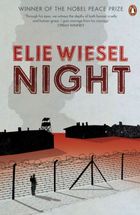
* Bring your "Night" book with you to class today, Thursday 2/17
* No Vocabulary this week
* HAND IN Greek, Norse & British Myths, Legends & Folklore Notes - DUE TODAY!
*CLASSWORK
I.Greek, Norse & British Myths, Legends & Folklore Test - TODAY! - Multiple Choice Test - Scantron
(Theseus, Sigurd, Tale of Sir Launcelot & Sword in the Stone)
II. READ NIGHT- Chapter 1 (Pages 1 - 20)
(Read together in class. What we don't finish in class, please finish reading at home.)
*HOMEWORK
I. NIGHT - Chapter 1 Questions - Due Friday 2/18
1. Describe Moshe the Beadle.
2. Describe Elie Wiesel's father. What was his occupation?
3. Why was Moshe the Beadle important to Elie Wiesel?
4. Summarize the story Moshe the Beadle told on his return from being deported.
Why did he say he had returned to Sighet?
5. What was the public reaction to Moshe's story?
6. What was the setting and the year for the first section of the book? What was
the world condition at the time?
7. Describe, in order, the events that happened from the last day of Passover until Pentecost.
8. How did Wiesel say he felt about the Hungarian police?
9. Who was Martha? What happened when she visited the Wiesel family in the ghetto?
*REMINDERS:
Bring "Night" book with you to class on Friday 2/18
* Book Report #3- Due Tuesday April 5, 2011
(See instructions under the BOOK REPORTS TAB for details)
http://abcusdcerritoshsmarzo2.weebly.com/book‐reports.html
Wednesday, February 16, 2011
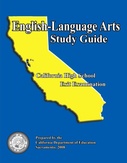
* You will not need your "Literature Book" today
* No Vocabulary this week
* HAND IN - Modern Monster (Story & picture) - from Lit. Book Pg 687 - DUE TODAY
*CLASSWORK
I. REVIEW – Greek Myths -"Theseus" Pages 663-669 from Literature Book. "TAKE NOTES"
Theseus Notes (Copy)
* Theseus grows up with his mother in southern Greece
* Theseus proves that he is ready to see his father when he lifts the stone and takes the sword
* Theseus is given a poisoned drink because Medea wants Aegeus in her power
without outside interference.
* Every nine years seven maidens and seven youths had to be sent to Crete, to be
offered up as sacrifice by going through the Minotaur’s (part man & part bull) Labyrinth
* Theseus is able to escape the Labyrinth because Ariadne gives him a ball of string
* After professing his love for her, Theseus leaves Ariadne on the island of Naxos (Dia)
* On returning to Athens Theseus forgets to switch the black sail with the white one. Aegeus, his father, believes his son is dead and hurls himself off a cliff and into the sea, named the 'Aegean ' after him.
* The greatest differences between Greek & Norse mythology are as follows:
A) The Greek Gods will always remain on Mount Olympus, ruling over the earth.
Norse mythology, in contrast, had a definitive end of the world - Ragnarok.
B) The Greek gods were more joyful and happy compared to the dark and gloomy Norse gods.
C) Many of the Greek heroes (but not always) were common everyday people were as
Norse & British heroes were usually of royal decent.
II. REVIEW
Preparing for the California High School Exit Exam Workbook - Chapter 1 - Pages 13 - 21
*HOMEWORK
II. Study Notes for Thursday's 2/17 Quiz over
Greek, Norse & British Myths, Legends & Folklore
(Theseus, Sigurd, Tale of Sir Launcelot & Sword in the Stone)
*REMINDERS:
Bring "Night" book with you to class on Thursday 2/17
Greek,Norse & British Myths, Legends & Folklore Quiz Thursday 2/17
* Book Report #3- Due Tuesday April 5, 2011
(See instructions under the BOOK REPORTS TAB for details)
http://abcusdcerritoshsmarzo2.weebly.com/book‐reports.html
Tuesday, February 15, 2011
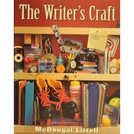
* You will not need your "Literature Book" today
* No Vocabulary this week
*CLASSWORK
I. Writers Craft: Prepositions - Read Pages 652 - 654
Answer Questions Concept Check Page 656 #1-10 & Page 656 Page 1-15 - DUE TODAY!
II. Greek, Norse & British Myths, Legends & Folklore Notes
Continue copying notes from whiteboard - Quiz Thursday's 2/17
*HOMEWORK
I. Modern Monster Project - 24 Points - Lit. Book Pg 687, Writing
Due Wednesday 2/16/2011 (See instructions posted on this page under Friday, February 11, 2011)
II. Study for Thursday's 2/17 Greek, Norse & British Myths, Legends & Folklore Quiz
*REMINDERS:
Bring "Night" book with you to class on Thursady 2/17
Greek, Norse & British Myths, Legends & Folklore Quiz Thursday 2/17
* Book Report #3- Due Tuesday April 5, 2011
(See instructions under the BOOK REPORTS TAB for details)
http://abcusdcerritoshsmarzo2.weebly.com/book‐reports.html
Friday, February 11, 2011
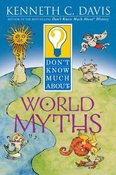
* You will not need your "Literature Book" today
* Hand In Vocabulary #9 Sentences - DUE TODAY 2/11
* Turn in Theseus Questions #2 - 13, Page 670 - DUE TODAY 2/11
*CLASSWORK
I. Vocabulary #9 Quiz
II. Finish watching Arthurian legend film clips
*HOMEWORK
I. Modern Monster Project - 24 Points - Lit. Book Pg 687 Writing
Due Wednesday 2/16/2011 (See details below)
*REMINDERS:
* We will be checking the book "Night" out from the school library on Tuesday 12/15
Make sure you have your student ID with you and that you don't have any over due books
checked out such as "Bless Me Ultima"
* Book Report #3- Due Tuesday April 5, 2011
(See instructions under the BOOK REPORTS TAB for details)
http://abcusdcerritoshsmarzo2.weebly.com/book‐reports.html
|
Project - 24 Points - Due Wednesday 2/16/2011
Lit. Book Pg 687 Writing - A Modern Monster WRITE a one page descriptive story (Please Type. No. 12 Font Arial) with vivid imagery. Compose a modern hero story in which the hero must destroy a monster. Decide what your hero and monster will look like, smell like, feel like, sound like, etc. What treasure trove will your monster guard? Also include a a picture of your monster and hero. You can use the following web sites to help you create your picture. Hero Machine http://www.ugo.com/games/superhero-generator-heromachine-2-5 http://marvel.com/games/play/31/create_your_own_superhero |
Hero Machine lets you create the hero of your dreams, whether you want to be a Greek God or a Super Hero.
You can SAVEyour characters design specs and RELOAD them back into the Hero Machine at a later time. You can even PRINTout you designs. Once you are done designing, you can name your character, save and print your design. |
Wednesday, February 9, 2011
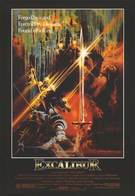
* You will not need your "Literature Book" today
* Hand In Homework Questions from The Tale of
Sir Launcelot du Lake Questions 1–7, - DUE TODAY!
*CLASSWORK
I. 10th Grade Benchmark Assessment #2 for Quarter Three (TEST)
II. Watch Tale of Sir Launcelot & Sword in the Stone film clips from the movie "Excalibur"
*HOMEWORK
I. Work on Vocabulary #9 Sentences - DUE Fri. 02/11/11
*REMINDERS:
* VOCABULARY #9- WRITE one sentence for each word - DUE Fri. 02/11/11
QUIZ over all 20 words - Friday 02/11/11
* Book Report #3- Due Tuesday April 5, 2011
(See instructions under the BOOK REPORTS TAB for details)
http://abcusdcerritoshsmarzo2.weebly.com/book‐reports.html
Friday, February 4, 2011
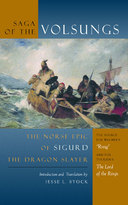
You will not need your "Literature Book" today
Dark Kingdom Questions (Handout) - Due today at the end of class
*CLASSWORK
I. REVIEW Book Report #3 (Handout) - Due Tuesday April 5, 2011
http://abcusdcerritoshsmarzo2.weebly.com/book‐reports.html
If you want a summary of the Graphic Novels listed on
Book Report #3 Handout, go to the link listed below
and type the title of the book in the Amazon.com
Search Bar (Comics & Graphic Novels)
http://www.amazon.com/lm/R1YPF1OTGYHMJZ/ref=cm_pdp_lm_title_1
II. Finish Watching Film -Dark Kingdom: The Dragon King
(also known as Sigurd the Dragon Slayer & Ring of the Nibelungs)
*HOMEWORK
Remember to bring you literature book with you to class on Monday Feb. 7th
*REMINDERS:
Book Report #3- Due Tuesday April 5, 2011
(See instructions under the BOOK REPORTS TAB for details)
http://abcusdcerritoshsmarzo2.weebly.com/book‐reports.html
Thursday, February 3, 2011
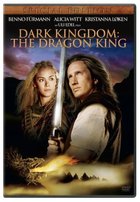
You will not need your "Literature Book" today
*CLASSWORK
I. Watch Film -Dark Kingdom: The Dragon King
(also known as Sigurd the Dragon Slayer & Ring of the Nibelungs)
II. Answer Film Questions (See Handout) - Due Friday Feb. 4th at the end of class
Dark Kingdom: The Dragon King Film Questions Part 1
(also known as Sigurd the Dragon Slayer & Ring of the Nibelungs)
1) In the beginning of the film, Siegfried‘s (Sigurd) parents' castle is being invaded by what people? ___________
2) What is the name of Siegfried‘s (Sigurd) father? King _______________of the __________________
3) How does Siegfried‘s (Sigurd) help him escape? ________________
4) What was it said that Siegfried‘s (Sigurd) magical sword was forged from?___________________________
5) What is the name of the blacksmith, who raises Siegfried (Sigurd)? ________________________________
6) What name does the blacksmith give to Siegfried (Sigurd)? _____________________________________
7) How many years pass until the Queen of Iceland, Brunhilde, meets Siegfried (Sigurd)? __________________
8)What magic talisman does Brunhilde use to locate Siegfried (Sigurd)? ______________________________
9) Why has no man everbeaten Brunhilde in a fight before? _______________________________________
10) What do Siegfried & Eyvind see on their way down the river to Burgund? __________________________
11) What animal does King Gunther's brother Giselher carry around on his arm? ________________________
12) Who reveals that the dragon Fafnir has awakened and is responsible for the burnt village? _______________
13) What character is wanted by every man in the kingdom but doesn't want any of them? _________________
14) Who are the only two Knights who return from the battle with Fafnir? ____________ and ____________
15) Siegfried bathes in Fafnir's blood, which is supposed to render his skin impenetrable. What object accidently falls on
Siegfried’s upper back, creating one spot where he is vulnerable? _________________________________
16) Who warns Siegfried that taking Fafnir’s treasure will bring a curse down on him? _____________________
17) Who does Siegfried defeat in order to obtain a tarn-helm, an item that lets Siegfried
take the shape of anyone he chooses? ____________________________________________________
18) What people decide to invade Burgund so that they can steal Siegfried’s gold? _________________________
19) How does Siegfried find out that his real name is not Erik and that he is the son of royalty? ________________
20) Whose father makes a love potion that causes Siegfried to fall in love with Kriemhild and forget all about Brunhilde?
__________________________
*HOMEWORK
No homework tonight
*REMINDERS:
Book Report #3- Due Tuesday April 5, 2011
(See instructions under the BOOK REPORTS TAB for details)
http://abcusdcerritoshsmarzo2.weebly.com/book-reports.html
Monday, January 31, 2011 - First Day of Semester 2 (Q3)
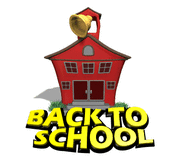
*Make sure you bring your "Bless Me Ultima"
book with you to class on Tuesday, Feb. 1st as we
will be returning the book to the school library
* Make sure you bring your "Literature Book"
with you to class on Monday Jan. 31st through Wednesday Feb. 2nd
CLASSWORK
I. Click on the link listed below and READ
Sundiata (The Lion King): An Epic of Old Mali
told by D. T. Niane, translated by G. D. Pickett
http://abcusdcerritoshsmarzo2.weebly.com/short-stories.html
II. Sundiata Questions
(Copy the questions and answer them on your own sheet of paper. Record the Journal on the back side)
1. How is Sundiata’s family treated after his father dies?
2. The child Sundiata (Mari Djata) uses what item to help him walk?
3. What is Sologon’s special request of her son?
4. Why does Sundiata challenge Soumaoro?
5. What advice does Nana Triban tell Sundiata?
6. As the story ends the city of Sosso is?
III. JOURNAL #1- Disney’s animated film, The Lion King' is very similar to the story of 'Sundiata: An Epic of Old Mali'. The theme of religion (the circle of life) is a very important part of both stories as is the depiction of a male-oriented society, where women are the child care givers and men are the hunters, managers of family matters, and keepers of the structure of the house. WRITE1 full page, comparing Sundiata to Disney’s The Lion King, Rudolfo Anaya’s Bless Me, Ultima or Gabriel Garcia Marquez’s “The Handsomest Drowned Man In The World” Discuss all of the similarities and differences that you find. Make sure to give examples from the stories you select, using concrete detail and commentary in your writing. – DUE TODAY!
HOMEWORK
No homework tonight
REMINDERS:
Book Report #3- Due Tuesday April 5, 2011
(See instructions under the BOOK REPORTS TAB for details)
http://abcusdcerritoshsmarzo2.weebly.com/book-reports.html
Cerritos High School Finals Schedule 2011
Tuesday, January 25, 2011
Period 0 6:45 to 7:40
Period 5 7:45 to 9:45
SNACK 9:45 to 10:00
Period 6 10:05 to 12:05
Wednesday, January 26, 2011
Period 0 6:45 to 7:40
* Period 1 - 7:45 to 9:45 - English II (CP)
SNACK 9:45 to 10:00
* Period 2 - 10:05 to 12:05 - English II (CP)
Thursday, January 27, 2011
*Period 3 - 7:45 to 9:45 - English II (CP)
SNACK 9:45 to 10:00
Period 4 10:05 to 12:05 - Conference
Thursday, January 27, 2011 - Last Day of the Semester
Friday, January 28, 2011 - Secondary Student Free Day (District-Wide)
Friday, January 21, 2011
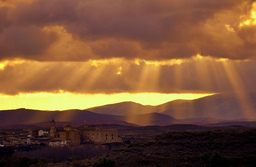
*Make sure you bring your "Bless Me Ultima"
book with you to class Today Fri. 1/21
Hand In BMU QUESTIONS CHAPTER 18, 19 & 20
and Vocabulary Pictures (#9-20) if you have not already done so.
I. Vocabulary #8 - QUIZ Today! - Fri. 1/21
II. REVIEW: BMU TEST STUDY GUIDE - HANDOUTS
III. Sample Power Point Book Report Presentation!
HOMEWORK
READ "Bless Me, Ultima" Chapters 21 & 22 (Pages 236 -262)
REMINDERS:
* PowerPoint Book Report #2 - Due Mon, Jan. 24th 2011
(See Classroom Website - BOOK RPTS Tab & handout for details)
http://abcusdcerritoshsmarzo2.weebly.com/book-reports.html
Wednesday, January 19, 2011

*Make sure you bring your "Bless Me Ultima"
book with you to class Wed 1/19 - Fri. 1/21
Hand In BMU QUESTIONS CHAPTER 16 & 17
CLASSWORK
I. Grammar Worksheet - Irregular Verbs - Due Today, Wed. 1/19
II. BMU Handout - Trinity of Beliefs graphic organizer - Due Today, Wed. 1/19
III. READ "Bless Me, Ultima" Chapter 18 (Pages 203 -216) Follow along with BMU Audio CD
What we don't finish reading in class, please read tonight at home!
HOMEWORK
I. BMU QUESTIONS CHAPTER 18- Due Thurs. 1/20
Chapter 18
1) What does Florence believe about sin?
2) During the confession “game,” how does Antonio respond to
Florence’s statements and the demands of the other children?
II. Study Vocabulary definitions
No Vocab Sentences this week!
REMINDERS:
Vocab REVIEW - Thurs. 1/20
Vocabulary QUIZ - Fri. 1/21
* PowerPoint Book Report #2 - Due Mon, Jan. 24th 2011
(See Classroom Website - BOOK RPTS Tab & handout for details)
http://abcusdcerritoshsmarzo2.weebly.com/book-reports.html
Tuesday, January 18, 2011

*Make sure you bring your "Bless Me Ultima"
book with you to classTue 1/18 - Fri. 1/21
Vocabulary # 8 (Words to know) Level E - See List Below
Vocab REVIEW - Thurs. 1/20
No Vocab Sentences this week!
Vocabulary QUIZ - Fri. 1/21
CLASSWORK
I.Journal #14 - Due today, Tue. 1/18 at the end of class
Title: Gender Roles - WRITE 1/2 Page
Anaya's novel has been viewed by some as not just reporting but reinforcing traditions of patriarchy (Male dominanceover the family)and gender inequality in Mexican American families and communities. Is this a fair criticism? Give at least three example from the story that may demonstrate this. How are power and voice or voicelessness distributed among the male and female characters in the novel? Are traditional gender roles and power relations accepted by all or are they challenged anywhere or by anyone in the novel?
II. READ "Bless Me, Ultima" Chapters 16 & 17 (Pages 186 -202) Follow along with BMU Audio CD
What we don't finish reading in class, please read tonight at home!
HOMEWORK
I. Vocabulary # 8 - (Study word definitions for Friday's [1/21] Test!)
Terms Definitions
alacrity (n.) a cheerful readiness; brisk and eager action
alleviate (v.) to relieve, make more bearable
antithesis (n.) the direct opposite, a sharp contrast
appall (v.) to fill with dismay or horror
bellicose (adj.) warlike in manner or temperament; quarrelsome
disparage (v.) to belittle, speak slightingly of; to undervalue
dissonant (adj.) not in harmony; disagreeing, at odds
droll (adj.) amusingly odd
edict (n.) an order issued by someone in authority
elucidate (v.) to clarify, explain
laud (v.) to praise
loll (v.) to act in a lazy manner; to lounge; to recline, droop
loquacious (adj.) talkative, wordy; fond of talking
magnanimous (adj.) generous in forgiving, above small meanness
mandatory (adj.) required, obligatory
nondescript (adj.) ordinary, not outstanding; not easily classified
phlegmatic (adj.) slow-moving, sluggish; unemotional
rescind (v.) to repeal, cancel
vivacious (adj.) lively, sprightly, full of energy
whet (v.) to sharpen, put an edge on; to make keen or eager
II. BMU QUESTIONS CHAPTER 16 & 17 - Due Wed. 1/19
Chapter 16
• What questions trouble Antonio?
• How does Antonio react to his encounter with Tenorio?
Chapter 17
• What does Florence believe and why?
• What does Antonio learn in catechism and what questions does he have?
• What is Antonio’s moment of blasphemy?
REMINDERS:
* PowerPoint Book Report #2 - Due Mon, Jan. 24th 2011
(See Classroom Website - BOOK RPTS Tab & handout for details)
http://abcusdcerritoshsmarzo2.weebly.com/book-reports.html
book with you to classTue 1/18 - Fri. 1/21
Vocabulary # 8 (Words to know) Level E - See List Below
Vocab REVIEW - Thurs. 1/20
No Vocab Sentences this week!
Vocabulary QUIZ - Fri. 1/21
CLASSWORK
I.Journal #14 - Due today, Tue. 1/18 at the end of class
Title: Gender Roles - WRITE 1/2 Page
Anaya's novel has been viewed by some as not just reporting but reinforcing traditions of patriarchy (Male dominanceover the family)and gender inequality in Mexican American families and communities. Is this a fair criticism? Give at least three example from the story that may demonstrate this. How are power and voice or voicelessness distributed among the male and female characters in the novel? Are traditional gender roles and power relations accepted by all or are they challenged anywhere or by anyone in the novel?
II. READ "Bless Me, Ultima" Chapters 16 & 17 (Pages 186 -202) Follow along with BMU Audio CD
What we don't finish reading in class, please read tonight at home!
HOMEWORK
I. Vocabulary # 8 - (Study word definitions for Friday's [1/21] Test!)
Terms Definitions
alacrity (n.) a cheerful readiness; brisk and eager action
alleviate (v.) to relieve, make more bearable
antithesis (n.) the direct opposite, a sharp contrast
appall (v.) to fill with dismay or horror
bellicose (adj.) warlike in manner or temperament; quarrelsome
disparage (v.) to belittle, speak slightingly of; to undervalue
dissonant (adj.) not in harmony; disagreeing, at odds
droll (adj.) amusingly odd
edict (n.) an order issued by someone in authority
elucidate (v.) to clarify, explain
laud (v.) to praise
loll (v.) to act in a lazy manner; to lounge; to recline, droop
loquacious (adj.) talkative, wordy; fond of talking
magnanimous (adj.) generous in forgiving, above small meanness
mandatory (adj.) required, obligatory
nondescript (adj.) ordinary, not outstanding; not easily classified
phlegmatic (adj.) slow-moving, sluggish; unemotional
rescind (v.) to repeal, cancel
vivacious (adj.) lively, sprightly, full of energy
whet (v.) to sharpen, put an edge on; to make keen or eager
II. BMU QUESTIONS CHAPTER 16 & 17 - Due Wed. 1/19
Chapter 16
• What questions trouble Antonio?
• How does Antonio react to his encounter with Tenorio?
Chapter 17
• What does Florence believe and why?
• What does Antonio learn in catechism and what questions does he have?
• What is Antonio’s moment of blasphemy?
REMINDERS:
* PowerPoint Book Report #2 - Due Mon, Jan. 24th 2011
(See Classroom Website - BOOK RPTS Tab & handout for details)
http://abcusdcerritoshsmarzo2.weebly.com/book-reports.html
Monday, January 17, 2011
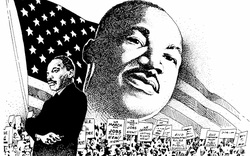
No School!
Martin Luther King Jr Holiday
Friday, January 14, 2011
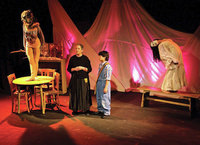
*Make sure you bring your "Bless Me Ultima"
book with you to class today - Fri. 1/14
No Vocabulary this week!
Turn In - BMU Voodoo Doll, Golden Carp or Magical Realism Art - Extra Credit
CLASSWORK
I. READ "Bless Me, Ultima" Chapter 15 (Pages 177 -185) Follow along with BMU Audio CD
II. Study Questions: BMU Chapter 15 - Due Today at the end of class!
1. Discuss your impression of Narciso and the way people treat him.
2. If you were Tony's mother and father, how would you feel if your
sons returned with the story of the burned car and then left home again?
3. Gabriel matures as his sons grow up. Support this idea with details from book and commentary.
Homework
No weekend homework
REMINDERS:
* "BMU" Voodoo Doll, Golden Carp or Magical Realism Surrealistic Art - Extra Credit - Due Today!
* PowerPoint Book Report #2 - Due Mon, Jan. 24th 2011
(See Classroom Website - BOOK RPTS Tab & handout for details)
http://abcusdcerritoshsmarzo2.weebly.com/book-reports.html
book with you to class today - Fri. 1/14
No Vocabulary this week!
Turn In - BMU Voodoo Doll, Golden Carp or Magical Realism Art - Extra Credit
CLASSWORK
I. READ "Bless Me, Ultima" Chapter 15 (Pages 177 -185) Follow along with BMU Audio CD
II. Study Questions: BMU Chapter 15 - Due Today at the end of class!
1. Discuss your impression of Narciso and the way people treat him.
2. If you were Tony's mother and father, how would you feel if your
sons returned with the story of the burned car and then left home again?
3. Gabriel matures as his sons grow up. Support this idea with details from book and commentary.
Homework
No weekend homework
REMINDERS:
* "BMU" Voodoo Doll, Golden Carp or Magical Realism Surrealistic Art - Extra Credit - Due Today!
* PowerPoint Book Report #2 - Due Mon, Jan. 24th 2011
(See Classroom Website - BOOK RPTS Tab & handout for details)
http://abcusdcerritoshsmarzo2.weebly.com/book-reports.html
___________________________________________________________________________
"Bless me Ultima" Voodoo Doll, Golden Carp or Magical Realism Surrealistic Art -
Extra Credit - Due Friday Jan. 14th, 2011 (Receive up to 30 points)

Create any of the following:Voodoo Doll, Golden Carp or Magical Realism Surrealistic Art
from the story "Bless me Ultima" and type up one page telling about your project.
Thursday, January 13, 2011
*Make sure you bring your "Bless Me Ultima"
book with you to class Thurs 1/13 - Fri. 1/14
No Vocabulary this week!
CLASSWORK
Take Notes on"Bless Me Ultima" Chapters 13 & 14 (Power Point Presentation)
HOMEWORK
Work on extra credit project
REMINDERS:
* "BMU" Voodoo Doll, Golden Carp or Magical Realism Surrealistic Art - Extra Credit - Due Fri. Jan. 14, 2011
* PowerPoint Book Report #2 - Due Mon, Jan. 24th 2011
(See Classroom Website - BOOK RPTS Tab & handout for details)
http://abcusdcerritoshsmarzo2.weebly.com/book-reports.html
book with you to class Thurs 1/13 - Fri. 1/14
No Vocabulary this week!
CLASSWORK
Take Notes on"Bless Me Ultima" Chapters 13 & 14 (Power Point Presentation)
HOMEWORK
Work on extra credit project
REMINDERS:
* "BMU" Voodoo Doll, Golden Carp or Magical Realism Surrealistic Art - Extra Credit - Due Fri. Jan. 14, 2011
* PowerPoint Book Report #2 - Due Mon, Jan. 24th 2011
(See Classroom Website - BOOK RPTS Tab & handout for details)
http://abcusdcerritoshsmarzo2.weebly.com/book-reports.html
Wednesday, January 12, 2011

*Make sure you bring your "Bless Me Ultima"
book with you to class Wed. 1/12 - Fri. 1/14
No Vocabulary this week!
CLASSWORK
Take Notes on"Bless Me Ultima" Chapters 11 & 12 (Power Point Presentation)
HOMEWORK
No Homework
REMINDERS:
* "BMU" Voodoo Doll, Golden Carp or Magical Realism Surrealistic Art - Extra Credit - Due Fri. Jan. 14, 2011
* PowerPoint Book Report #2 - Due Mon, Jan. 24th 2011
(See Classroom Website - BOOK RPTS Tab & handout for details)
http://abcusdcerritoshsmarzo2.weebly.com/book-reports.html
book with you to class Wed. 1/12 - Fri. 1/14
No Vocabulary this week!
CLASSWORK
Take Notes on"Bless Me Ultima" Chapters 11 & 12 (Power Point Presentation)
HOMEWORK
No Homework
REMINDERS:
* "BMU" Voodoo Doll, Golden Carp or Magical Realism Surrealistic Art - Extra Credit - Due Fri. Jan. 14, 2011
* PowerPoint Book Report #2 - Due Mon, Jan. 24th 2011
(See Classroom Website - BOOK RPTS Tab & handout for details)
http://abcusdcerritoshsmarzo2.weebly.com/book-reports.html
Tuesday, January 11, 2011
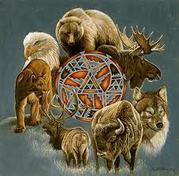
*Make sure you bring your "Bless Me Ultima"
book with you to class Tue. 1/11 - Fri. 1/14
No Vocabulary this week!
HAND IN:
BMU Questions Chapter 14 & BMU Journal #12
CLASSWORK:
I. Journal #13 -Spirit Animal - Write 1 Full Page (Include picture on the back of paper) - Due Today!
See Whiteboard in classroom for specific details.
HOMEWORK
No Homework
REMINDERS:
* "BMU" Voodoo Doll, Golden Carp or Magical Realism Surrealistic Art - Extra Credit - Due Fri. Jan. 14, 2011
* PowerPoint Book Report #2 - Due Mon, Jan. 24th 2011
(See Classroom Website - BOOK RPTS Tab & handout for details)
http://abcusdcerritoshsmarzo2.weebly.com/book-reports.html
book with you to class Tue. 1/11 - Fri. 1/14
No Vocabulary this week!
HAND IN:
BMU Questions Chapter 14 & BMU Journal #12
CLASSWORK:
I. Journal #13 -Spirit Animal - Write 1 Full Page (Include picture on the back of paper) - Due Today!
See Whiteboard in classroom for specific details.
HOMEWORK
No Homework
REMINDERS:
* "BMU" Voodoo Doll, Golden Carp or Magical Realism Surrealistic Art - Extra Credit - Due Fri. Jan. 14, 2011
* PowerPoint Book Report #2 - Due Mon, Jan. 24th 2011
(See Classroom Website - BOOK RPTS Tab & handout for details)
http://abcusdcerritoshsmarzo2.weebly.com/book-reports.html
Monday, January 10, 2011
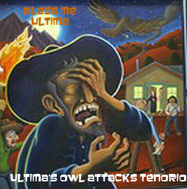
*Make sure you bring your "Bless Me Ultima"
book with you to class Mon. 1/10 - Fri. 1/14
No Vocabulary this week!
I. Warm Up - BMU Journal #12 (Write for 1st 15 min. of class. If not complete, finish at home.)
WRITE 1 full Page - Due Tuesday 1/11
Title: - Florence Good & Evil
What is the significance of Antonio's friend Florence, the unbeliever, and of his death in the novel?
Is Rudolfo Anaya seeking in this novel to reflect on, or define, or recommend any particular understanding of or response to "good" and "evil" in the world? If you think he is not, why not? If you think that he is, what kinds of understandings and responses do you think the novel promotes?
II. READ "Bless Me, Ultima" Chapter 14 (Pages 143 -176) Popcorn reading
(What you don't finish reading together in class, please complete tonight at home.)
HOMEWORK
BMU Questions Chapter 14 - Due Tuesday 1/11
• What happens between Antonio and Ernie?
• What does Antonio find out about Andrew?
• What happens between Narciso and Tenorio? What does Antonio do?
• What does Antonio’s dream reveal about his faith?
REMINDERS:
* "BMU" Voodoo Doll, Golden Carp or Magical Realism Surrealistic Art - Extra Credit - Due Fri. Jan. 14, 2011
* PowerPoint Book Report #2 - Due Mon, Jan. 24th 2011
(See Classroom Website - BOOK RPTS Tab & handout for details)
http://abcusdcerritoshsmarzo2.weebly.com/book-reports.html
Friday, January 7, 2011
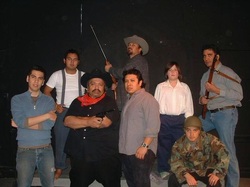
*Make sure you bring your "Bless Me Ultima"
book with you to class Fri. 1/7
* BMU Questions Chapter 11 & 12 - Due Today - Friday 1/7
* Hand in Vocabulary #7 definitions and sentences - Due Today
I. Vocabulary # 7 QUIZ - Today - Fri. 1/07
II. READ "Bless Me, Ultima" Chapter 13 (Pages 136 -142) Follow along with CD
HOMEWORK
No weekend homework
REMINDERS:
* "BMU" Voodoo Doll, Golden Carp or Magical Realism Surrealistic Art - Extra Credit - Due Fri. Jan. 14, 2011
* PowerPoint Book Report #2 - Due Mon, Jan. 24th 2011
(See Classroom Website - BOOK RPTS Tab & handout for details)
http://abcusdcerritoshsmarzo2.weebly.com/book-reports.html
Thursday, January 6, 2011
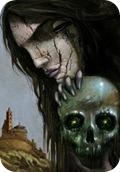
*Make sure you bring your "Bless Me Ultima"
book with you to class Thur. 1/6 - Fri. 1/7
I. READ "Bless Me, Ultima" Chapter 12 (Pages 122 -136) Follow along with CD
II. Vocabulary #7 - Word Review
HOMEWORK - Due Friday 1/07
BMU Questions Chapter 12 - Due Friday 1/7
1) Compare Antonio’s feelings toward Ultima to his feelings toward his mother.
2) Why does Ultima keep the three dolls?
3) Why does Ultima give Antonio her scapular, and why does she tell him not to tell others?
4)Why do Tenorio and his men try to hurt Ultima?
5) What happens with the owl and the cross?
REMINDERS:
*Vocabulary QUIZ - Fri. 1/07
* "BMU" Voodoo Doll, Golden Carp or Magical Realism Surrealistic Art - Extra Credit - Due Fri. Jan. 14, 2011
* PowerPoint Book Report #2 - Due Mon, Jan. 24th 2011
(See Classroom Website - BOOK RPTS Tab & handout for details)
http://abcusdcerritoshsmarzo2.weebly.com/book-reports.html
Wednesday, January 5, 2011
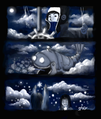
*Make sure you bring your "Bless Me Ultima"
book with you to class Wed. 1/5 - Fri. 1/7
I. READ "Bless Me, Ultima" Chapter 11 (Pages 106 -121) Follow along with CD
HOMEWORK - Due Thursday 1/06
BMU Chapter 11 Questions
1) What does Antonio learn about Narciso?
2) Why do only a few people know about the golden carp?
3) How do seeing the golden carp and hearing more of Cico’s beliefs impact Antonio?
4) In Antonio’s dream, what forces are struggling with each other?
REMINDERS:
*Vocab REVIEW - Thurs. 1/06
*DEFINE Words and WRITE one sentence for each word - Due Thurs. 1/06
*Vocabulary QUIZ - Fri. 1/07
* "BMU" Voodoo Doll, Golden Carp or Magical Realism Surrealistic Art - Extra Credit - Due Fri. Jan. 14, 2011
* PowerPoint Book Report #2 - Due Mon, Jan. 24th 2011
(See Classroom Website - BOOK RPTS Tab & handout for details)
http://abcusdcerritoshsmarzo2.weebly.com/book-reports.html
Tuesday, January 4, 2011
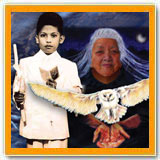
*Make sure you bring your "Bless Me Ultima"
book with you to class Tue. 1/4 - Fri. 1/7
CLASSWORK/HOMEWORK - Due Wed. 1/05
I. Read the poem “Abuelito Who” by Sandra Cisneros & create your own poem
by following the instructions listed at the bottom of this page. (See steps 1-6)
“Abuelito Who”
by Sandra Cisneros
Abuelito who throws coins like rain
and asks who loves him
who is dough and feathers
who is a watch and glass of water
whose hair is made of fur
is too sad to come downstairs today
who tells me in Spanish you are my diamond
who tells me in English you are my sky
whose little eyes are string
can't come out to play
sleeps in his little room all night and day
who used to laugh like the letter k
is sick
is a doorknob tied to a sour stick
is tired, shut the door
doesn't live here anymore
is hiding underneath the bed
who talks to me inside my head
is blankets and spoons and big brown shoes
who snores up and down up and down up and down again
is the rain on the room that falls like coins
asking who loves him
who loves him who?
Like Bless Me, Ultima, this poem by Sandra Cisneros is about family, devotion, and
change. In it, she uses similes and metaphors to capture the character of her
grandfather, who changes from a man “who throws coins like rain and asks who loves
him” to one who “is sick” and “is the rain on the room that falls like coins / asking who
loves him / who loves him who?”
Instructions (Steps 1-6)
1. Choose a character from Bless Me, Ultima.
2. Make a list of objects and images associated with this character.
3. Using “Abuelito Who” as a model, write a poem about this character.
4. Be sure that the poem conveys the character’s most essential traits.
5. Your poem should be 23 lines long and should follow the pattern of the original
work, including the title. I especially want you to keep all the who and is words
in the same place.
6. Review and revise your poem, then recopy it neatly to turn in.
Some suggestions for characters: Antonio, Ultima, Gabriel, Narciso, Tenorio, Florence
(though you may choose any character in the book.)
REMINDERS:
*Vocab REVIEW - Thurs. 1/06
*DEFINE Words and WRITE one sentence for each word - Due Thurs. 1/06
*Vocabulary QUIZ - Fri. 1/07
* "BMU" Voodoo Doll, Golden Carp or Magical Realism Surrealistic Art - Extra Credit - Due Fri. Jan. 14, 2011
* PowerPoint Book Report #2 - Due Mon, Jan. 24th 2011 (See Classroom Website - BOOK RPTS Tab & handout for details)
http://abcusdcerritoshsmarzo2.weebly.com/book-reports.html
Monday, January 3, 2011
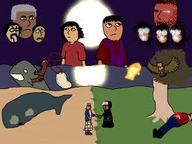
*Make sure you bring your "Bless Me Ultima"
book with you to class Tue. 1/4 - Fri. 1/7
CLASSWORK
Vocabulary # 7 (Words to know) Level E
Copy this weeks words from classroom white board
Vocab REVIEW - Thurs. 1/06
DEFINE Words and WRITE one sentence for each word - Due Thurs. 1/06
Vocabulary QUIZ - Fri. 1/07
CLASSWORK
I. BMU JOURNAL #11 Title: Christmas Break and New Year Resolutions - WRITE 1 Page - Due Today! -
HOMEWORK
No homework tonight
REMINDERS:
* "BMU" Voodoo Doll, Golden Carp or Magical Realism Surrealistic Art - Extra Credit - Due Fri. Jan. 14, 2011
* PowerPoint Book Report #2 - Due Mon, Jan. 24th 2011 (See Classroom Website - BOOK RPTS Tab & handout for details)
http://abcusdcerritoshsmarzo2.weebly.com/book-reports.html
Friday, December 17, 2010

HAND IN - BMU Journals 1-10 Due Today
I. Film - Mi Familia Guy
REMINDERS:
PowerPoint Book Report #2 - Due Monday, Jan. 24th 2011
(See Classroom Website - BOOK RPTS Tab and handout for details)
http://abcusdcerritoshsmarzo2.weebly.com/book-reports.html
___________________________________________________________________
Thursday, December 16, 2010
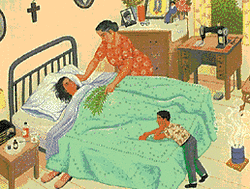
*Make sure you bring your "Bless Me Ultima"
book with you to class Mon. 12/13 - Thurs. 12/16
No Vocabulary this week!
CLASSWORK
I. Bless Me Ultima TEST Chapters 1-10
REMINDERS:
BMU Journals 1-10 Due Friday 12/17/10
PowerPoint Book Report #2 - Due Monday, Jan. 24th 2011
(See Classroom Website - BOOK RPTS Tab and handout for details)
http://abcusdcerritoshsmarzo2.weebly.com/book-reports.html
______________________________________________________________________________
Wednesday, December 15, 2010
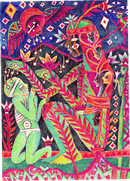
*Make sure you bring your "Bless Me Ultima"
book with you to class Mon. 12/13 - Thurs. 12/16
No Vocabulary this week!
Study Questions: BMU Chapters 9 - 10 Due Today - Hand In
CLASSWORK
I. BMU JOURNAL #9 Title: Religion - WRITE 1/2 Page - Due Today! - Get Stamped
Early in the novel, Anaya writes that the schoolhouse rose above the housetops to "compete with the church tower." Do you think that Catholicism or Christianity is in competition with other belief systems or sources of authority in Bless Me, Ultima? With secular education? Or with other sources of spiritual mystery and power such as those of the Golden Carp or of the curandera, Ultima, herself? What is the nature and purpose of these competitions, if that's what they are? Do you think the various sources of authority are reconciled or not? If not, what wins and what loses?
II. Take Notes - "Bless Me Ultima" Chapters 7, 8, 9 & 10 (Power Point Presentation)
Homework
Study for Test - "BMU" Chapters 1-10 (Take home TEST NOTES will be distributed)
“Bless Me Ultima” Test Notes Chapters 1 - 10
The novel is narrated in the first person by ANTONIO. He is writing
of his childhood, specifically the summer ULTIMA, a curandera
(healer) came to stay with his family and chose him as a disciple
to learn curandismo (the practice of healing).
Anaya leaves Spanish words in the text of the novel to give it a
sense of the language-consciousness of Spanish.
"Ultima" is a Spanish word meaning ultimate or "the end."
When Antonio says he will begin at the beginning that came with
Ultima, he is touching on a very significant time concept. Ultima is
for Antonio the unification between the beginning and the end. Time
stands still with her. Antonio almost sees her as a sort of deity.
"LLANO" is a word meaning plains or prairie. It is a dry grassland.
Antonio's father is from the llano. The MÁREZES are descendants
of the vaqueros, the Mexican cowboys. Márez takes its root from
the word for sea. Since the Spanish conquistadores came from the
sea, the Márez name shows its roots in the sea. The LUNAS on
the other hand are firmly rooted to the land. Luna is the Spanish
word for moon. The Lunas are farmers and practice the ancient
method of farming according to the cycles of the moon.
A "CURANDERA" is a healer, specifically a female healer. She
exists in harmony with the rhythms of the earth. Because she does,
she can use the powers of the earth to heal people. She uses herbs
and incantations. Her opposite is the BRUJA or witch.
Brujas do not exist in harmony with the earth, but they still use the
powers of the earth to do what they want. They make people sick
by cursing them with evil.
The two sides of Antonio's family are the Lunas, who are farmers
and have traditions going back to the Aztecs, and the Márez, who
are vaqueros and have traditions going back to the Spanish
conquistadores of the sixteenth century. Because they are two
seemingly irreconcilable traditions of the people of New Mexico,
they are in constant antagonism. Anaya places Antonio in the
middle of this antagonism. Ultima is a unifying force and she
provides hope for the reconciliation of Antonio's two heritages.
When Antonio finds out his dream is a true vision of his birth,
he says "Ultima knew" He probably means, Ultima knew about
his destiny since it was she who knew where his birth cord is.
That destiny has to do with his decision of whether to follow the
ways of his father or his mother's families.
Anaya shows that ROMAN CATHOLICISM did not fully eliminate
the religion of Native Americans. Instead, it combined with that
pre-existing religion to make a mixture of the two.
The OWLis the animal spirit of Ultima. Ultima and the owl exist in
sympathy. Whatever happens to one, happens to the other. Wherever one
goes, the other follows. The owl is Ultima's protector. Here, the owl encounters
Antonio's other dominant tradition, Roman Catholicism. The owl works closely
with the VIRGEN OF GUADALUPE
who Antonio’s MOTHER MARÍA LUNAadores.
The Virgen is one manifestation of the Virgin Mary. According to Roman Catholics
the Virgin Mary sometimes makes herself manifest to particular people. In the case
of the Virgen de Guadalupe, she made herself manifest to a peasant man near the
GUADALUPE RIVER. He told others and a shrine was built in her honor. The
Virgen de Guadalupe is acclaimed especially in Mexico, Texas, New Mexico.
ANTONIO’S FIRST DREAM is about an un-christened infant that is carried
from limbo to heaven by an owl. This is clearly a violation of the Catholic doctrine.
Yet, the owl operates with the Virgen of Guadalupe to save the child’s soul. This
dream helps Antonio realize that Ultima’s mysticism and Catholicism can work
hand in hand for a virtuous cause even though they come from different schools
of thought.
Ultima mentors Antonio, teaching him the names of the flora and fauna of the
llano and the river. She also teaches him sympathy with the rhythms of the earth.
Ultima's wisdom is the oneness of the person and the earth. Closely linked to this
sense of oneness is the presence of the river. Ultima tells Antonio the RIVER
and he share the same spirit.
Antonio believes the river is animated by an ancient soul that watches out for
the people that come to it. This belief comes from the religion of the Aztecs.
He learns more about it from his friend JASÓN and from Ultima. When he thinks
he hears LUPITO asking him to bless him before he dies, Antonio repeats the
Act of Contrition, but he despairs of anyone's ability to wash the blood of murder
from the river.
ANTONIO'S SECOND DREAM involves his three brothers. It also relates to
Antonio's destiny, but it brings in a third element. It combines the pull
between the Lunas and the Márezes with the pull of the river's presence.
Antonio has been learning of the spirit of the land from Ultima. He puts the
dark priest's robe on, but he speaks of a power that is outside the doctrine
of Catholicism. Perhaps this dream suggests that Antonio will be a PRIEST
OF THE RIVER OF THE CARP. In recognizing that despite differences
between the llaneros and the Lunas, all are children of the white sun,
Antonio shows his potential as a person who can unify the two sides of
Mexican-and Spanish-American heritage.
Antonio begins to question the answers of religion when he sees Lupito
killed. As he understands it, the Catholic Church has a very rigid schema
for determining sin and judgment. Lupito will most likley go to hell because
he has committed a mortal sin without confession before he was killed.
The second tradition, that which reveres the river as a sort of god, would
see the river washing Lupito's blood downstream where it would fertilize
the crops of the Lunas. The third possibility for life after death is that of
LA LLORONA.
She is the sorrowful woman who haunts the banks of the
Guadalupe river looking for her lost sons. Antonio wonders if he will have
to fear Lupito as well as la Llorona when he goes to the river at night.
The boys from town, especially HORSE and BONES, represent the children
from the barrio, who have to fend for themselves. They seem to symbolize
animal spirits in children's bodies. The ancient traditions thrive in the barrio
as well as in the country by the river. Antonio's virtues show up clearly
against the backdrop of these boys. He stands his ground even when
he is terribly afraid.
Ultima teaches Antonio how the gather herbs and roots and she also
teaches him the history of that medicine that she uses. Antonio's
child's mind takes the family metaphor of God the father, Mary the
mother, and Jesus the son literally. He prefers Mary who is kind and
forgiving. Like many children, Antonio experiences an idea of God
based on his idea of his own earthly father. Antonio's father is a good
man, but is morose, distant, and dissatisfied with his life choices,
blaming others for them. His mother, on the other hand, is warm
and loving, ever-present, and devoted to her children.
ANTONIO'S THIRD DREAM foresees that his brothers, EUGENE, LEÓN, and
ANDREW will return home, but it also provides the disturbing image of the Virgin
mourning for Antonio when MARÍA asks that he be a priest. It seems that already
in the novel, the reader is aware that Antonio will not enter the priesthood.
Antonio arrives at the farming community of his mother's people. There,
GRANDFATHER LUNA speaks of war as a sin against God because it
takes the sons of the people away from the land.
In the VALLEY OF EL PUERTO
the DAUGHTERS OF BARKEEPER, TENORIO
metaphorically do a witch's dance by the river. They will play
an important part in the plot of the novel. This early glimpse of them is
followed by the sound of Ultima's owl singing and Antonio's peace at the sound.
ANTONIO'S SCHOOL EXPERIENCE. He describes the loneliness a second-language
learner feels from the isolation of using a different language and different customs from
the norm. MISS MAESTAS (her name means teacher) seems to be a kind teacher,
but unable to understand the point of view of a child who cannot speak English.
When Antonio’s name is entered into the grade book, it is converted from Spanish
to English, ANTONIO TO ANTHONY. This act describes one step in the process
of assimilation that helps to erase Antonio's rich cultural heritage.
Antonio, who is only seven years old, quickly learns at a school that being a
man means standing one's ground and not running. It also means being the
center of attention. Antonio believes that a person who is threatened by the
evil of the dust devil should make the sign of the cross and no evil can cross
it. Antonio is confused by the para-normal powers of good and evil. He has
heard and experienced the powers of evil, and when Ultima exerts power,
he has to learn the difference that comes from power exerted by the forces
of goodness.
Eugene, León, and Andrew return from war, feeling alienated from a family
that cannot relate to them. They are reluctant to fulfill GABRIEL'S DREAM
of moving to California. Gabriel and María seem oblivious to their sons'
discomfort and battle fatigue. Antonio seems to recognize that the three
brothers are lost to him forever. He blesses them even though they are
cruel to him.
Antonio tackles some of the toughest theological questions of all time.
He wonders about the meaning of innocence and understanding and their
relationship to one another. If he understands, he loses innocence, but he
cannot receive his first communion without understanding. For María, who
represents the most devoted Catholic in the novel, even though she is
devoted with a particular, local folk belief, Antonio will inevitably lose his
innocence, as he becomes a man. However, in María's mind, Antonio can
be saved from that loss of innocence by becoming a priest. Andrew tells
him that when he was exposed to the horrors of war, he became a man
and lost his dreams. Antonio does not want to gain understanding if it
means losing his dreams. Ultima tells him that in the land he is innocent.
There, gaining understanding does not equate with losing his innocence.
This question will stay with Antonio throughout the novel.
Along with the POWERS OF ULTIMAand the Presence of the RIVER,
the GOLDEN CARP is the third magical element in Bless Me, Ultima.
It is a myth related to the Aztec cosmogony, which features five suns.
The Aztec calendar reveals ATONATIUH, the sun of water.
Atonatiuh is the forth epoch at the end of which everything on earth was
killed by a great flood. The gods changed people into fishes to save them
from the flood.Anaya provides a variation on this belief in the history of the
golden carp.
Here, people are turned into carp because of disobedience. The legend is
part of the collective memory of the community: some know it, some only
know it is bad luck to catch or eat carp, and some do not know anything.
The story upsets Antonio who has been raised under Roman Catholicism,
a monotheistic religion. He cannot reject the golden carp because he feels
drawn to believe it, but in accepting it, he has to reject Catholicism.
The belief in the diagnosis that UNCLE LUCAS has been cursed by a brujas
is supported by evidence. The evidence is that doctors have not been able
to cure him and the priest has not been able to exorcise him. The proof that
the rancher did not kill a woman, but killed a witch in the disguise of a coyote
is in the fact that he shot it/her with a bullet on which he had carved the sign
of the cross. As with any system of thought, the folk belief in witches colluding
with the devil and casting curses on innocent victims is also supported by a
tradition of evidence. In Lucas' case, the folk belief system operates out of a
very complex SYNCRETISM (fusion of differing religions) of a belief in the power
of CHRISTIANITY, a belief in the power of EUROPEAN-BASED MEDICINE, and
a belief in the power of CURANDISMO (folk medicine). These three systems of
power often compete with one another when a particularly tough case like
Lucas' presents itself. With the exception of the curandera, none of them
accept the authority of the others. They each try to forbid the people from
using the other authorities. It is a fearful decision to make which power to
choose. Hence, the people wait a long time before calling on Ultima. In a
sense, they are defying the church in doing so.
This healing represents a very important part of Antonio's education in
curandismo. He participates in almost all the steps. He even emulates
Ultima when he sees her standing fearlessly in Tenorio's bar. The cure
is conducted with several forms of magic, but the most important is
sympathetic magic. Antonio is used as a sympathetic agent to cure
Lucas. The clay dolls are used as sympathetic agents to turn the curse
back to the Trementina sisters. Antonio experiences the cure along with
Lucas. Like Lucas, he cannot speak or move. Like Lucas he feels the
taste of the oily medicine. Antonio vomits green bile, then Lucas vomits
green bile before he vomits up the mass of living hair. Antonio has been
used as a sort to surrogate for Lucas. Since he is young and strong, he
can withstand the cure more easily than Lucas can. Since he is innocent
as a child, he can expel the evil curse more easily than Lucas can. Antonio
has complete trust in Ultima. She takes him to the room without explaining
what she will use him for. Although it would seem a very dangerous remedy,
Antonio never fears for his life.
The other dangerous part of the remedy, that which Ultima tried to prevent
by asking Tenorio to call his daughters off, is the practice of turning back to
curse onto the sisters. The dolls are made from earth. Wax is applied to imitate
the color of skin. They are dressed in clothing Ultima might have somehow gotten
from the sisters. When Lucas breathes on them, they actually squirm. It is one
of the most clearly magical elements in the novel because inanimate objects move.
They are pricked with a pin that is dipped in the same medicine that Lucas is given.
The result of this turning back of the curse will be revealed in subsequent chapters.
For now, we only see one part of that result: Lucas vomiting up the hair they stole
from him to begin the curse with in the first place. Like the dolls, the hair also
moves as if alive. Ultima has proved that her power is stronger than the power
of the church and the medical doctors.
Once again, Ultima is treated as a revered saint, while at the same time she
is suspected as a witch. To claim that an earthly woman has not sinned clearly
goes against the doctrine of Christianity in which only Christ could walk the
earth in fleshly form and still have no sin. Also, the woman touching Ultima's
hem as she passes is highly reminiscent of the New Testament accounts of
the response of the faithful to Christ. As He made His journey through the
streets of villages where people have heard of His miracles of healing, people
touched his garments as a means of cure.
It is useful to note at this point in the novel an element which runs throughout
the novel which the reader should begin to notice. This chapter reveals the
CONSERVATIVE GENDER IDEOLOGY which animates the entire novel.
Women are assigned only a traditional role: they are wives and mothers.
If they are ugly, they cannot make men happy and they become witches
as a last resort.
Ultima makes it seem as though they do so out of the bitterness of the
rejected. Pretty women who step outside traditional roles become prostitutes
at Rosie's. Although Anaya creates a very strong feminine character in Ultima,
he portrays as an exception to the rule of women's proper roles and she herself
affirms those roles as proper. An alarming byproduct of the belief that women
are brujas or curanderas is the idea that they can be shot with a bullet marked
with a cross without penalty.
REMINDERS:
Bless Me Ultima TEST Chapters 1-10 Thursday, 12/16/10
BMU Journals 1-10 Due Friday 12/17/10
PowerPoint Book Report #2 - Due Monday, Jan. 24th 2011
(See Classroom Website - BOOK RPTS Tab and handout for details)
http://abcusdcerritoshsmarzo2.weebly.com/book-reports.html
______________________________________________________________________________
Tuesday, December 14, 2010
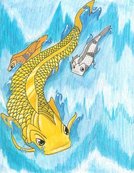
*Make sure you bring your "Bless Me Ultima"
book with you to class Mon. 12/13 - Thurs. 12/16
No Vocabulary this week!
CLASSWORK
REVIEW - LA LLORONA - The legend of the weeping southwestern ghost
II. READ "Bless Me, Ultima" Chapter 10 (Pages 83 -105) Follow along with BMU Audio CD
Homework
Study Questions: BMU Chapters 9 - 10 Due Wed. 12/15/10
REMINDERS:
Bless Me Ultima TEST Chapters 1-10 Thursday, 12/16/10
BMU Journals 1-10 Due Friday 12/17/10
PowerPoint Book Report #2 - Due Monday, Jan. 24th 2011
(See Classroom Website - BOOK RPTS Tab and handout for details)
http://abcusdcerritoshsmarzo2.weebly.com/book-reports.html
______________________________________________________________________________
Monday, December 13, 2010
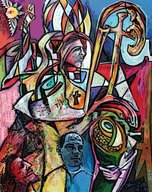
*Make sure you bring your "Bless Me Ultima"
book with you to class Mon. 12/13 - Thurs. 12/16
No Vocabulary this week!
CLASSWORK
I. BMU JOURNAL #8 Title: Coming of Age - WRITE 1/2 Page - Due Today! - Get Stamped
Bless Me, Ultima may be viewed as a coming of age or rite of passage story, a story of a young person's education and development? What other such stories-in literature or film-might this novel be compared to? How does it differ from them? Which aspects of Antonio's coming of age or rite of passage seems universal and which qualities or details are particular to his time, place, and culture?
II. READ "Bless Me, Ultima" Chapter 9 (Pages 70 - 82) Follow along with BMU Audio CD
Homework
Study Questions: BMU Chapters 9 - 10 Due Wed. 12/15/10
1) Where do Leon & Gene go?
2) What does Andrew say he plans to do?
3) Why isn't Tony promoted to 2nd grade?
4) According to Samuel, who is "lord of the waters?"
5) Why does Ultima go to Tenorio's saloon?
6) Why does Lucas' family blame the Trementinas for Lucas' illness
7) What does Ultima do with the three clay dolls?
8) How does Ultima cure Lucas?
9) Why do you think Lucas gets better?
10) Will Tony's classmates praise Ultima or bad-mouth her?
REMINDERS:
Bless Me Ultima TEST Chapters 1-10 Thursday, 12/16/10
BMU Journals 1-10 Due Friday 12/17/10
PowerPoint Book Report #2 - Due Monday, Jan. 24th 2011
(See Classroom Website - BOOK RPTS Tab and handout for details)
http://abcusdcerritoshsmarzo2.weebly.com/book-reports.html
_____________________________________________________________________________
Friday, December 10, 2010
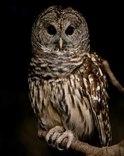
*Make sure you bring your "Bless Me Ultima"
book with you to class on Friday 12/10
HAND IN - Bless Me Ultima Chapter 7 & 8 Questions and
Vocabulary Sentences & definitions
CLASSWORK
I. BMU JOURNAL #7 Title: BMU Genre - WRITE 1/2 Page - Due Today! - Get Stamped
Do you read Bless Me, Ultima as a work of social and historical realism? As a nostalgic romance? A child's fantasy? A religious or moral allegory? What difference does how we classify the novel make to our expectation, evaluation, and understanding of it? Explain.
II. Vocabulary #6 Quiz
III. Pop-Quiz - "Bless Me Ultima" Chapters 6, 7 & 8
HOMEWORK
No weekend homework
REMINDERS:
PowerPoint Book Report #2 - Due Monday, Jan. 24th 2011
(See Classroom Website - BOOK RPTS Tab and handout for details)
http://abcusdcerritoshsmarzo2.weebly.com/book-reports.html
______________________________________________________________________________
Thursday, December 9, 2010
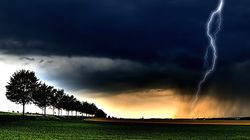
*Make sure you bring your "Bless Me Ultima"
book with you to class Thurs. 12/9 - Fri. 12/10
HAND IN - Bless Me Ultima Chapter 6 Questions
CLASSWORK
I. Get Vocabulary Definitions Stamped - Vocab #6 Review to follow
II. Take Notes on"Bless Me Ultima" Chapter 6 (Power Point Presentation)
III. READ "Bless Me Ultima" Chapters 7 & 8 (Pages 60 - 69)
HOMEWORK
I. Bless Me Ultima Chapters 7 & 8 Questions - DUE Friday 12/10
Chapter 7
• What is the significance of Antonio’s dream?
• How has the war affected the brothers?
• How do Antonio’s parents respond to the return of their sons?
Chapter 8
• How are the brothers affected by the season of the year?
• Compare and contrast Antonio to his brothers.
II. WRITE one sentence for each - DUE Fri. 12/10
Vocabulary Quiz Fri. 12/10
REMINDERS:
PowerPoint Book Report #2 - Due Monday, Jan. 24th 2011
(See Classroom Website - BOOK RPTS Tab and handout for details)
http://abcusdcerritoshsmarzo2.weebly.com/book-reports.html
______________________________________________________________________________
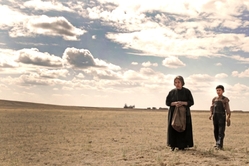
Wednesday, December 8, 2010
*Make sure you bring your "Bless Me Ultima"
book with you to class Wed. 12/8 - Fri. 12/10
CLASSWORK
I. Take Notes on"Bless Me Ultima" Chapters 4-5 & Spanish words from story
(Power Point Presentation)
II. READ "Bless Me Ultima" Chapter 6 (Pages 51 -59)
HOMEWORK
I. Bless Me Ultima Chapter 6 Questions - DUE Thurs. 12/09
1) How does Antonio feel about starting school?
2) How is Antonio’s mother reacting to Antonio’s first day of school?
3) Describe Gabriel’s feeling toward the llano.
4) What blessing is Ultima giving Antonio before he begins school?
5) In what ways could Ultima’s blessing be like a whirlwind?
6) What questions does Ultima’s blessing raise for Antonio?
7) What does Antonio experience at school?
DEFINE Words - DUE Thurs. 12/09
Vocab Review Thurs. 12/09
WRITE one sentence for each - DUE Fri. 12/10
Vocabulary Quiz Fri. 12/10
REMINDERS:
PowerPoint Book Report #2 - Due Monday, Jan. 24th 2011
(See Classroom Website - BOOK RPTS Tab and handout for details)
http://abcusdcerritoshsmarzo2.weebly.com/book-reports.html
__________________________________________________________________________________
Tuesday, December 7, 2010

*Make sure you bring your
"Bless Me Ultima" book with you
to class Tue. 12/7 - Fri. 12/10
HAND IN- BMU Study Questions: Chapters 4 - 5 - DUE TODAY!
CLASSWORK
I. BMU JOURNAL #6 Title: Antonio's Dreams - WRITE 1/2 to 1 Full Page - Due Today! - Get Stamped
Antonio dreams about an un-christened infant that is carried from limbo to heaven by an owl. He also dreams of his three brothers and the pull between the family Lunas and Márezes. How do Antonio's dreams help him interpret his life? What do you think his dreams mean? Describe a strange dream that you have had and explain why you dreamt what you did? Does your dream have meaning and significance? Or maybe dreams are just random thoughts passing through our minds.
II. Review "Bless Me Ultima" Chapters 4-5 (Power Point Presentation) - Take Notes
HOMEWORK
DEFINE Words - DUE Thurs. 12/09
Vocab Review Thurs. 12/09
WRITE one sentence for each - DUE Fri. 12/10
Vocabulary Quiz Fri. 12/10
REMINDERS:
PowerPoint Book Report #2 - Due Monday, Jan. 24th 2011
(See Classroom Website - BOOK RPTS Tab and handout for details)
http://abcusdcerritoshsmarzo2.weebly.com/book-reports.html
__________________________________________________________________________________
Monday, December 6, 2010
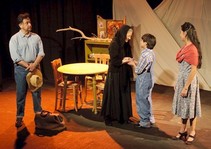
*Make sure you bring your
"Bless Me Ultima" book with you
to class Mon. 12/6 - Fri. 12/10
DEFINE Words - DUE Thurs. 12/09
Vocab Review Thurs. 12/09
WRITE one sentence for each - DUE Fri. 12/10
Vocabulary Quiz Fri. 12/10
CLASSWORK
I. REVIEW last Thursday's Pop-Quiz - "Bless Me Ultima" Chapters 1-3 (25 Questions) Correct & Hand In
II. MatchMaking Survey
III. BMU JOURNAL #5 Title: Setting - Llano & Rio Pecos - WRITE 1/2 Page Due Today! - Get Stamped
What role does the physical environment-the New Mexican landscape-play in Bless Me, Ultima? How do the novel's characters live in it and respond to it? Is the landscape used by the author to provide a realistic material backdrop to the events of the story? to carry particular symbolic or moral or aesthetic values? to do both?
IV. READ "Bless Me Ultima "Chapters 4 & 5 (Pages 39 -50)
HOMEWORK
I. BMU Study Questions: Chapters 4 - 5 - DUE Tue. 12/07/10
Chapter 4
• How does the “presence of the river” affect Antonio?
• How does Ultima perceive the two branches of the family?
• How does Antonio feel here about having to choose his future?
• How do Antonio’s ideas about God compare to his perceptions of the Virgin of Guadalupe?
• Why is the Virgin in mourning for the fourth son?
Chapter 5
• What are Antonio’s uncles like?
• What do Antonio’s uncles feel about his future?
• What does the family think about Antonio’s brothers?
II. Vocabulary #6 DEFINE Words - DUE Thurs. 12/09 and
WRITE one sentence for each - DUE Fri. 12/10
1) Communion
2) Stoically
3) Vigilantes
4) Slake
5) Cohorts
6) Murky
7) Pagan
8) Bravado
9) Urbane
10) Scapular
11) Llano
12) Currandera
13) Las pasturas
14) Vaquero
15) Bruja
16) El Puerto de los lunas
17) Conquistador
18) Marez
19) Luna
20) La virgin de Guadalupe
REMINDERS:
DEFINE Words - DUE Thurs. 12/09
Vocab Review Thurs. 12/09
Vocabulary Quiz Fri. 12/10
PowerPoint Book Report #2 - Due Monday, Jan. 24th 2011
(See Classroom Website - BOOK RPTS Tab and handout for details)
http://abcusdcerritoshsmarzo2.weebly.com/book-reports.html
___________________________________________________________________________________
"Bless Me Ultima" book with you
to class Mon. 12/6 - Fri. 12/10
DEFINE Words - DUE Thurs. 12/09
Vocab Review Thurs. 12/09
WRITE one sentence for each - DUE Fri. 12/10
Vocabulary Quiz Fri. 12/10
CLASSWORK
I. REVIEW last Thursday's Pop-Quiz - "Bless Me Ultima" Chapters 1-3 (25 Questions) Correct & Hand In
II. MatchMaking Survey
III. BMU JOURNAL #5 Title: Setting - Llano & Rio Pecos - WRITE 1/2 Page Due Today! - Get Stamped
What role does the physical environment-the New Mexican landscape-play in Bless Me, Ultima? How do the novel's characters live in it and respond to it? Is the landscape used by the author to provide a realistic material backdrop to the events of the story? to carry particular symbolic or moral or aesthetic values? to do both?
IV. READ "Bless Me Ultima "Chapters 4 & 5 (Pages 39 -50)
HOMEWORK
I. BMU Study Questions: Chapters 4 - 5 - DUE Tue. 12/07/10
Chapter 4
• How does the “presence of the river” affect Antonio?
• How does Ultima perceive the two branches of the family?
• How does Antonio feel here about having to choose his future?
• How do Antonio’s ideas about God compare to his perceptions of the Virgin of Guadalupe?
• Why is the Virgin in mourning for the fourth son?
Chapter 5
• What are Antonio’s uncles like?
• What do Antonio’s uncles feel about his future?
• What does the family think about Antonio’s brothers?
II. Vocabulary #6 DEFINE Words - DUE Thurs. 12/09 and
WRITE one sentence for each - DUE Fri. 12/10
1) Communion
2) Stoically
3) Vigilantes
4) Slake
5) Cohorts
6) Murky
7) Pagan
8) Bravado
9) Urbane
10) Scapular
11) Llano
12) Currandera
13) Las pasturas
14) Vaquero
15) Bruja
16) El Puerto de los lunas
17) Conquistador
18) Marez
19) Luna
20) La virgin de Guadalupe
REMINDERS:
DEFINE Words - DUE Thurs. 12/09
Vocab Review Thurs. 12/09
Vocabulary Quiz Fri. 12/10
PowerPoint Book Report #2 - Due Monday, Jan. 24th 2011
(See Classroom Website - BOOK RPTS Tab and handout for details)
http://abcusdcerritoshsmarzo2.weebly.com/book-reports.html
___________________________________________________________________________________
Friday, December 3, 2010
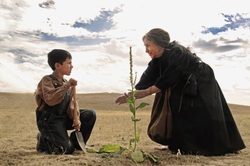
*Make sure you bring your
"Bless Me Ultima" book with you
to class on Fri. 12/03
No Vocabulary this week!
CLASSWORK
I. 10th Grade Benchmark Assessment
II. If time permits, REVIEW yesterday's Pop-Quiz - "Bless Me Ultima" Chapters 1-3 (25 Questions)
HOMEWORK
No weekend homework
REMINDERS:
PowerPoint Book Report #2 - Due Monday, Jan. 24th 2011
(See Classroom Website - BOOK RPTS Tab and handout for details)
http://abcusdcerritoshsmarzo2.weebly.com/book-reports.html
___________________________________________________________________________________
Thursday, December 2, 2010
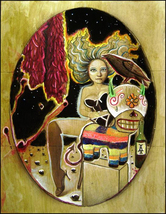
*Make sure you bring your
"Bless Me Ultima" with you to class
Thur. 12/2 through Fri. 12/03
No Vocabulary this week!
CLASSWORK
I. Review "Bless Me Ultima" Chapters 1-3 (Power Point Presentation) - Take Notes
II. Pop-Quiz - "Bless Me Ultima" Chapters 1-3 (25 Questions)
HOMEWORK
No Homework
REMINDERS:
PowerPoint Book Report #2 - Due Monday, Jan. 24th 2011
(See Classroom Website - BOOK RPTS Tab and handout for details)
http://abcusdcerritoshsmarzo2.weebly.com/book-reports.html
___________________________________________________________________________________
Wednesday, December 1, 2010
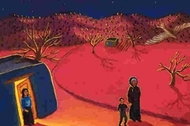
*Make sure you bring your
"Bless Me Ultima" with you to class
Wed. 12/1 through Fri. 12/03
BMU Dialogic Journal#2 Chapter 3 Part II (GET STAMPED) & HAND IN - Chapter 1-3 Questions (1-10)
No Vocabulary this week!
CLASSWORK
I. Watch film clip from "Road to Perdition" (Antonio witnesses Lupito's Death)
II. In-class writing BMU Dialogic - JOURNAL #3 Title: Lupito's Death
Lupito is a war veteran who has post traumatic stress disorder. After Lupito murders Chávez’s brother, the local sheriff, in one of his deranged moments, Lupito is killed by a mob in front of young Antonio. Describe how this event provides the catalyst for Antonio’s serious moral and religious questioning. Imagine that you are Antonio and you just witnessed this horrible killing; what kind of questions would be passing through your mind? How would this experience affect you? You might be asking yourself why someone like Lupito had to be a causality of war and be suffering from post traumatic stress disorder? How does Antonio feel by having to keep what he saw a secret? Why do bad things happen to innocent people?
HOMEWORK
No Homework
REMINDERS:
PowerPoint Book Report #2 - Due Monday, Jan. 24th 2011
(See Classroom Website - BOOK RPTS Tab and handout for details)
http://abcusdcerritoshsmarzo2.weebly.com/book-reports.html
___________________________________________________________________________________
Tuesday, November 30, 2010
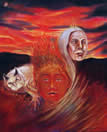
*Make sure you bring your
"Bless Me Ultima" with you to class
Tue. 11/30 through Fri. 12/03
HAND IN - BMU Dialogic Journal Chapter 2 & Chapter 2 Questions (1-10)
No Vocabulary this week!
CLASSWORK
I. In-class writing BMU Dialogic Journal Chapter 3 Part 1
Write about a group of people you have been friends with. Write 1/2 Page - Get stamped when complete.
II. READ "Bless Me Ultima" Chapter 3 (Pages 27- 38)
*CLASSWORK/HOMEWORK - DUE Wed. 12/01/10
III. BMU Dialogic Journal Chapter 3 Part 2- Continue writing on the same sheet of paper
that you completed Journal Chapter 3 Part 1 on and write 1/2 page addressing the following question:
Is Antonio more of a Marez or a Luna? Is he neither? Why?- DUE Wed. 12/01/10
IV. Study Questions: Chapters 1 - 3 (Write questions & answers) - DUE Wed. 12/01/10
1) Who is the narrator?
2) Where was Tony born?
3) When and Where does Tony spend his childhood?
4) Why does Ultima come to live with Tony's family?
5) Why is Tony disturbed at first by Ultima's owl?
6) How does Lupito die?
7) Who knows that Tony saw the killing of Lupito?
8) What does Tony dream the night after Lupito dies?
9) What do you think Lupito would have liked to have said to the
men who shot him?
10) Tony mentions the"rebellion of my brothers against my
father." How do you suppose they will rebel?
REMINDERS:
PowerPoint Book Report #2 - Due Monday, Jan. 24th 2011
(See Classroom Website - BOOK RPTS Tab and handout for details)
http://abcusdcerritoshsmarzo2.weebly.com/book-reports.html
___________________________________________________________________________________
Monday, November 29, 2010
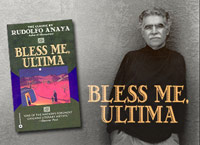
*Make sure you bring your
"Bless Me Ultima" with you to class
Mon. 11/29 through Fri. 12/03
No Vocabulary this week!
CLASSWORK
Read "Bless Me Ultima" Chapter 2 (Pages 14 -26)
*CLASSWORK/HOMEWORK
Writing Dialogic Journal-BMU Chapter 2- Due Tuesday, Nov. 30th 2010
1/2 page typed, 1" margins, double spaced, arial # 12 font
A. Do you believe what the men did to Lupito was right?
B. Do you like the Marezes or the Lunas more?
Bless Me Ultima - Chapter 2 Questions - Due Tuesday, Nov. 30th 2010
1. Quote an example of foreshadowing on page 15.
2. What is the name of the man who killed the sheriff?
3. How is he (the guy from #2) sick?
4. Describe the presence of the river, using Antonio’s words.
5. How do Gabriel & Narciso differ from the rest of the mob on the bridge?
6. What “mortal sin” is Antonio afraid the mob will commit?
7. What does Antonio hear Lupito shout before he dies?
8. How does the owl affect Antonio after the event at the river?
9. What are the names of Antonio’s 3 brothers?
10. Identify the only person who knows Antonio was at the river that night.
REMINDERS:
PowerPoint Book Report #2 - Due Monday, Jan. 24th 2011
(See Classroom Website - BOOK RPTS Tab and handout for details)
http://abcusdcerritoshsmarzo2.weebly.com/book-reports.html
___________________________________________________________________________________
Thursday, Nov. 25th and Friday, Nov. 26th
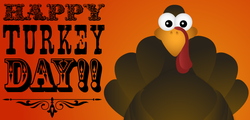
Thanksgiving Holiday!
________________________________________________________________________________
Wednesday, November 24, 2010
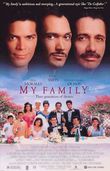
*Make sure you bring your
"Bless Me Ultima" with you to class on Wed. 11/24
No Vocabulary this week!
I. HAND IN - Bless Me Ultima - Chapter 1 Questions
*CLASSWORK
II. Watch Mi Familia (My Family)
REMINDERS:
PowerPoint Book Report #2 - Due Monday, Jan. 24th 2011
(See Classroom Website - BOOK RPTS Tab and handout for details)
http://abcusdcerritoshsmarzo2.weebly.com/book-reports.html
___________________________________________________________________________________
Tuesday, November 23, 2010

*Make sure you bring your
"Bless Me Ultima" with you to class
Tue. 11/23 through Wed. 11/24
No Vocabulary this week!
II. READ "Bless Me Ultima" Chapter 1 (Pages 1-13)
*CLASSWORK/HOMEWORK
III. Chapter 1 Questions- Due Wednesday 11/24
1• How are Antonio’s mother and father different from one another?
2• How does Antonio’s father feel about the family moving to Guadalupe?
3• Why does the Marez family take in Ultima?
4• What happens in Antonio’s dream?
5• What is his mother’s reaction when Antonio relates his prior dream to her?
6• How does Antonio regard the owl that Ultima brings with her?
7• What connotations are attached to the owl?
8• Describe Ultima and her first impressions on Antonio.
9• What is the significance of the landscape?
10• What are Antonio’s key characteristics?
REMINDERS:
PowerPoint Book Report #2 - Due Monday, Jan. 24th 2011
(See Classroom Website - BOOK RPTS Tab and handout for details)
http://abcusdcerritoshsmarzo2.weebly.com/book-reports.html
___________________________________________________________________________________
"Bless Me Ultima" with you to class
Tue. 11/23 through Wed. 11/24
No Vocabulary this week!
II. READ "Bless Me Ultima" Chapter 1 (Pages 1-13)
*CLASSWORK/HOMEWORK
III. Chapter 1 Questions- Due Wednesday 11/24
1• How are Antonio’s mother and father different from one another?
2• How does Antonio’s father feel about the family moving to Guadalupe?
3• Why does the Marez family take in Ultima?
4• What happens in Antonio’s dream?
5• What is his mother’s reaction when Antonio relates his prior dream to her?
6• How does Antonio regard the owl that Ultima brings with her?
7• What connotations are attached to the owl?
8• Describe Ultima and her first impressions on Antonio.
9• What is the significance of the landscape?
10• What are Antonio’s key characteristics?
REMINDERS:
PowerPoint Book Report #2 - Due Monday, Jan. 24th 2011
(See Classroom Website - BOOK RPTS Tab and handout for details)
http://abcusdcerritoshsmarzo2.weebly.com/book-reports.html
___________________________________________________________________________________
Monday, November 22, 2010

Bring your student ID with you to class today 11/22/10
We will be going to the library to check out the novel "Bless Me Ultima"
No Vocabulary this week!
*CLASSWORK
I Bless Me Ultima Pre-Reading Activity (Handout)
Rate the statments (1-15) in the BEFORE column. Use the 6 point scale found at the top of the page.
On your own sheet of paper titled "Bless Me Ultima Journals" write 1/4 page for number 1 only.
"When I was 7...." Get both assignments stamped once you have completed them. Please keep both the
Pre-Reading Handout and Bless Me Ultima Journals in your notebook as we will be refering back to these
assignments at a later time and handing them in for credit once we finish reading the novel.
II. EXTRA CREDIT POINTS! - 15 points
Share your Personal Narrative paper with your classmates
(This might be an opportunity for those of you who didn't get your Rough Draft
stamped to acquire some of the points that you lost. Remember, the Rough Draft was worth 20 points)
___________________________________________________________________________________
Friday, November 19, 2010
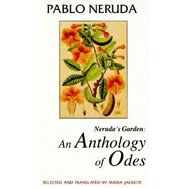
* HAND IN "Ode to My Socks" Questions "Reading Check" 1-5 ,
Page 502 and Questions 1-9, Page 495 - DUE Today
* Also turn in Vocabulary #5 sentences
*Hand in yellow student information card
CLASSWORK
I. Vocabulary #5 Quiz - Today!
II. After you finish your quiz, please pick up the handout titled "Curandera"
READ the poem and answer questions 1-8 -Due Today!
III. Final Draft - "Typhoid Fever" Personal Narrative -Due Today!
IV. EXTRA CREDIT POINTS! - 15 points
Share your Personal Narrative paper with your classmates
(This might be an opportunity for those of you who didn't get your Rough Draft
stamped to acquire some of the points that you lost. Remember, the Rough Draft was worth 20 points)
HOMEWORK
No Homework
REMINDERS:
*You will not need to bring your
"LITERATURE BOOK"
with you to class all next week.
Bring your student ID with you to class on Monday 11/22/10
We will be going to the library to check out the novel "Bless Me Ultima"
___________________________________________________________________________________
Thursday, November 18, 2010
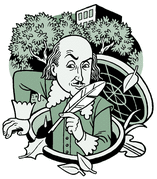
*Make sure you bring your
"LITERATURE BOOK" with you to class
Thur. 11/18 through Fri. 11/19
HAND IN Three Japanese Tankas and Heart! We will forget him
Questions 1-7 from Page 492 and "The Hidden Character" letter - DUE Today
*CLASSWORK
I. * Vocabulary Review - Today!
II. READ "Shall I Compare Thee to a Summer's Day?" by William Shakespeare Page 494
Holt Literature & Language Arts Book.
Answer Questions 1-9, Page 495 -DUE TODAY!
HOMEWORK
* READ "Ode to My Socks" by Pablo Neruda Pages 497 - 500
Answer Questions "Reading Check" 1-5 , Page 502 -DUE Friday! 11/19
REMINDERS:
* Bring your "LITERATURE BOOK" with you to class tomorrow!
* Final Draft - "Typhoid Fever" Personal Narrative -Due Friday 11/19
* Vocabulary Quiz Fri. 11/19
* WRITE one sentence for each word - DUE Fri. 11/19
___________________________________________________________________________________
"LITERATURE BOOK" with you to class
Thur. 11/18 through Fri. 11/19
HAND IN Three Japanese Tankas and Heart! We will forget him
Questions 1-7 from Page 492 and "The Hidden Character" letter - DUE Today
*CLASSWORK
I. * Vocabulary Review - Today!
II. READ "Shall I Compare Thee to a Summer's Day?" by William Shakespeare Page 494
Holt Literature & Language Arts Book.
Answer Questions 1-9, Page 495 -DUE TODAY!
HOMEWORK
* READ "Ode to My Socks" by Pablo Neruda Pages 497 - 500
Answer Questions "Reading Check" 1-5 , Page 502 -DUE Friday! 11/19
REMINDERS:
* Bring your "LITERATURE BOOK" with you to class tomorrow!
* Final Draft - "Typhoid Fever" Personal Narrative -Due Friday 11/19
* Vocabulary Quiz Fri. 11/19
* WRITE one sentence for each word - DUE Fri. 11/19
___________________________________________________________________________________
Wednesday, November 17, 2010
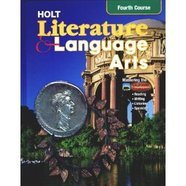
Mr. Marzo is out today. Substitute Teacher: MR. DAVID COLLOVA
*Make sure you bring your
"LITERATURE BOOK" with you to class
Wed. 11/17 through Fri. 11/19
HAND IN Journal #10 - DUE Today
*CLASSWORK
I. READ "Heart! We will forget him! by Emily Dickinson
Discuss Poem which is found on Pages 487 - 488 in your book Holt Literature & Language Arts
II. Discuss the Literary Term Personification- See Page 487
III. Continue READING from Literature book Pages 489 - 491
A. Read and Discuss Poetry in the Golden Age of Japan Page 489
B. Read and Discuss Three Japanese Tankas Pages 490 - 491
*CLASSWORK/HOMEWORK
* Holt Literature & Language Arts Book Page 492
Answer Questions 1-7 and complete the letter
assignment located under Writing "The Hidden Character" - Due Thursday 11/18
REMINDERS:
* Bring your "LITERATURE BOOK" with you to class tomorrow!
* Final Draft - "Typhoid Fever" Personal Narrative -Due Friday 11/19
* Vocabulary Review Thurs. 11/18
* Vocabulary Quiz Fri. 11/19
* WRITE one sentence for each word - DUE Fri. 11/19
___________________________________________________________________________________
Tuesday, November 16, 2010
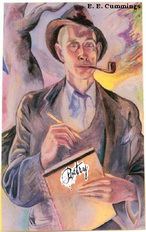
*Make sure you bring your
"LITERATURE BOOK" with you to class
Tue. 11/16 through Fri. 11/19
HAND IN Imagery- handout (Language that appeals to the senses) - DUE Today
TURN IN A Storm in the Mountains - Questions (1-5) from Page 460 - DUE Today
*CLASSWORK/HOMEWORK
I. REVIEW POEM - Since Feeling Is First by E. (Edward) E. (Estlin) Cummings Page 485
since feeling is first
who pays any attention
to the syntax of things
will never wholly kiss you;
wholly to be a fool
while Spring is in the world
my blood approves,
and kisses are a far better fate
than wisdom
lady i swear by all flowers. Don't cry
--the best gesture of my brain is less than
your eyelids' flutter which says
we are for eachother: then
laugh, leaning back in my arms
for life's not a paragraph
And death i think is no parenthesis
"Since Feeling Is First" is a serious romantic love poem. E. E. Cummings is expounding his favorite thesis - emotions, love, poetry, romance are all more important than precision, science and logic. "Feeling is first." Do and be, and don't worry about order and logic in love life.
- kisses are a better fate than wisdom
Cummings evokes the urgency of life and love that is drive by death:
- death i think is no parenthesis
The easy conversational tone and "casual" appearing layout of Cummings' poem was the product of enormous labor and planning, experiments with typography and layout, as attested by his notes. It takes an artist to produce a great work. It takes a master craftsman to make it look easy.
E. E. Cummings' (1894 - 1962) writing and approach represented a new departure in poetry. He first flourished in the intellectually innovative and daring world of the 1920s. His work has never been fully appreciated by critics, but has an avid following among both connoisseurs and "ordinary" folk, because his poems touch people directly, especially young people.
The modern era was born in the 1920s, out of the ruins and desolation of World War I. The war smashed more than cities and people. It smashed Victorian conventions and class distinctions. Suddenly, people were not afraid to speak and write about sex as something enjoyable and beautiful. This was the era of James Joyce's Ulysses and Lawrence's Lady Chatterley's Lover, but also, especially in America, the era of Scott Fitzgerald's "Tender is the Night." A time of daring and romance in literature.
His poetry is informed by his unique philosophy of life and art. Cummings would laugh at most of the pedantic and trite dissections of his work by "objective" critics. Cummings had nothing against science and logic, but he didn't think it applied to feelings. He was intensely against regimentation and conventional thinking. His rebellion and unconventionality were symbolized superficially by his refusal to use capital letters in his poems, but they went far beyond that.
Typography and layout of the poem were often very important to Cummings, who was also an artist. Please note that we will not always be able to be faithful to the original typography, because of limitations of the medium. Like some other modern poets, ee cummings' often conveyed images and feelings by indirect allusions that would make readers see the images and feel the feelings he was feeling, though he also made skilful use of poetic conventions. He also had the gift of making the English language do unexpected and wondrous things, a gift that has made great poetry since the time of Shakespeare and before.
II. Speaking/Critical Thinking
Journal #10 - What Love Is - WRITE 1/2 page (single spaced) - DUE Wednesday 11/17
Imagine that a poetry-loving scientist sends Cummings’s poem in an interstellar probe to deep space. Eventually, it is found and translated by aliens in a world without the concept of love. On the basis of this poem alone, what might the aliens conclude about the nature of human love? Point to specific passages that you think would especially interest the curious aliens.
III. Journal #10 (continued) -Imagining Images- DUE Wednesday 11/17
Suppose that you have been commissioned to illustrate "since feeling is first." Illustrate the images suggested by the poem. Give your images a title, perhaps a line from the poem. Try to use colors that will capture the tone and the mood of the poem.
REMINDERS:
* Bring your "LITERATURE BOOK" with you to class tomorrow!
* Final Draft - "Typhoid Fever" Personal Narrative -Due Friday 11/19
* Vocabulary Review Thurs. 11/18
* Vocabulary Quiz Fri. 11/19
* WRITE one sentence for each word - DUE Fri. 11/19
___________________________________________________________________________________
Monday, November 15, 2010
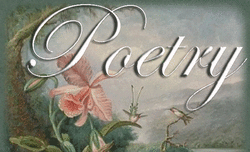
*Make sure you bring your
"LITERATURE BOOK" with you to class
Mon. 11/15 through Fri. 11/19
New Seating Chart for Q2.
Switch seats at the begining of class.
CLASSWORK
I. Vocabulary Workshop Level E, Unit 5 - Week 5 (11/15 through 11/19)
Vocabulary Review Thurs. 11/18
Vocabulary Quiz Fri. 11/19
WRITE one sentence for each word - DUE Fri. 11/19
Terms Definitions
1.animosity strong dislike; bitter hostility
2.apathy a lack of feeling, emotion, or interest
3.apprehensive fearful or anxious, especially about the future
4.commend to praise, express approval; to present as worthy of attention; to commit to the care of
5.compatible able to get along or work well together; capable of use with some other model or system
6.condolence an expression of sympathy
7.consecrate to make sacred, hallow; to set apart for a special purpose
8.decrepit old and feeble; worn-out ruined
9.deride to ridicule, laugh at with contempt
10.ingenuous innocent, simple; frank, sincere
11.multifarious having great variety; numerous and diverse
12.obsolete out-of-date, no longer in use
13.omnivorous eating every kind of food; eagerly taking in everything, having a wide variety of tastes
14.parsimonious stingy, miserly; meager, poor, small
15.quandary a state of perplexity or doubt
16.recalcitrant stubbornly disobedient, resisting authority
17.reprisal an injury done in return for injury
18.revel to take great pleasure in; a wild celebration
19.stultify to make ineffective or useless, cripple; to have a dulling effect on
20.suave smoothly agreeable or polite; pleasing to the senses
II."Typhoid Fever" Personal Narrative Rough Draft - Due Today!
Students should have a rough draft of their Personal Narrative
and poem/song lyrics to incorporate into their paper.
A. Peer Edit Sheet
Peer Edit Sheet for Personal Narrative Essay
1) Is the introduction effective? Explain. What could be improved?
2) Underline what you believe to be the thesis sentence.
3) Are there at least five vivid verbs or sensory images? List them.
What other things in the essay need further description or emotion?
Is there higher vocabulary throughout? Explain.
4) Make notes of simple, less specific words that could be changed.
5) Circle all spelling errors, run-on sentences, fragments, and any other grammar errors.
6) What is the lesson learned in the paper if any?
7) Do you feel a personal connection or can you relate to the paper? If so, how has the
writer done that? What can the author do to strengthen that relationship?
8) Evaluate the dialogue. Does it go above the obvious? Is it properly formatted?
9) Evaluate the internal thoughts. Are they realistic? Do they further the story?
10) If you have never known the author, city the story takes place in, etc., would you still be able to follow it? In other words, is there enough context and explanation for ANYONE to read it and understand it?
11) Are a variety of sentence types utilized? Does the essay have flow?
12) Does the conclusion adequately sum up the paper and tie up any loose ends? How?
13) What grade would you give this paper?
14) Is the poem that is being used in the essay parallel the personal narrative? Has it been
inserted into the essay three differnt times?
15) Suggestions for improvement:
B. Get your Rough Draft and Peer Edit Sheet STAMPED!
III. A. Literature Book - Review Prose
-A Storm in the Mountains by Aleksandr Solzhenitsyn Page 459
B. LITERARY ELEMENT - Imagery- See handout - DUE Tues 11/16
Language that appeals to the senses of Sight, Hearing, Taste, Smell,Touch
HOMEWORK
-A Storm in the Mountains - Questions (1-5) Pages 460 - DUE- Tues 11/16
-Imagery (handout) - DUE Tues 11/16
REMINDERS:
* Bring your "LITERATURE BOOK" with you to class tomorrow!
* Final Draft - "Typhoid Fever" Personal Narrative -Due Friday 11/19
___________________________________________________________________________________
"LITERATURE BOOK" with you to class
Mon. 11/15 through Fri. 11/19
New Seating Chart for Q2.
Switch seats at the begining of class.
CLASSWORK
I. Vocabulary Workshop Level E, Unit 5 - Week 5 (11/15 through 11/19)
Vocabulary Review Thurs. 11/18
Vocabulary Quiz Fri. 11/19
WRITE one sentence for each word - DUE Fri. 11/19
Terms Definitions
1.animosity strong dislike; bitter hostility
2.apathy a lack of feeling, emotion, or interest
3.apprehensive fearful or anxious, especially about the future
4.commend to praise, express approval; to present as worthy of attention; to commit to the care of
5.compatible able to get along or work well together; capable of use with some other model or system
6.condolence an expression of sympathy
7.consecrate to make sacred, hallow; to set apart for a special purpose
8.decrepit old and feeble; worn-out ruined
9.deride to ridicule, laugh at with contempt
10.ingenuous innocent, simple; frank, sincere
11.multifarious having great variety; numerous and diverse
12.obsolete out-of-date, no longer in use
13.omnivorous eating every kind of food; eagerly taking in everything, having a wide variety of tastes
14.parsimonious stingy, miserly; meager, poor, small
15.quandary a state of perplexity or doubt
16.recalcitrant stubbornly disobedient, resisting authority
17.reprisal an injury done in return for injury
18.revel to take great pleasure in; a wild celebration
19.stultify to make ineffective or useless, cripple; to have a dulling effect on
20.suave smoothly agreeable or polite; pleasing to the senses
II."Typhoid Fever" Personal Narrative Rough Draft - Due Today!
Students should have a rough draft of their Personal Narrative
and poem/song lyrics to incorporate into their paper.
A. Peer Edit Sheet
Peer Edit Sheet for Personal Narrative Essay
1) Is the introduction effective? Explain. What could be improved?
2) Underline what you believe to be the thesis sentence.
3) Are there at least five vivid verbs or sensory images? List them.
What other things in the essay need further description or emotion?
Is there higher vocabulary throughout? Explain.
4) Make notes of simple, less specific words that could be changed.
5) Circle all spelling errors, run-on sentences, fragments, and any other grammar errors.
6) What is the lesson learned in the paper if any?
7) Do you feel a personal connection or can you relate to the paper? If so, how has the
writer done that? What can the author do to strengthen that relationship?
8) Evaluate the dialogue. Does it go above the obvious? Is it properly formatted?
9) Evaluate the internal thoughts. Are they realistic? Do they further the story?
10) If you have never known the author, city the story takes place in, etc., would you still be able to follow it? In other words, is there enough context and explanation for ANYONE to read it and understand it?
11) Are a variety of sentence types utilized? Does the essay have flow?
12) Does the conclusion adequately sum up the paper and tie up any loose ends? How?
13) What grade would you give this paper?
14) Is the poem that is being used in the essay parallel the personal narrative? Has it been
inserted into the essay three differnt times?
15) Suggestions for improvement:
B. Get your Rough Draft and Peer Edit Sheet STAMPED!
III. A. Literature Book - Review Prose
-A Storm in the Mountains by Aleksandr Solzhenitsyn Page 459
B. LITERARY ELEMENT - Imagery- See handout - DUE Tues 11/16
Language that appeals to the senses of Sight, Hearing, Taste, Smell,Touch
HOMEWORK
-A Storm in the Mountains - Questions (1-5) Pages 460 - DUE- Tues 11/16
-Imagery (handout) - DUE Tues 11/16
REMINDERS:
* Bring your "LITERATURE BOOK" with you to class tomorrow!
* Final Draft - "Typhoid Fever" Personal Narrative -Due Friday 11/19
___________________________________________________________________________________
Thursday, November 11th through Friday, November 12th
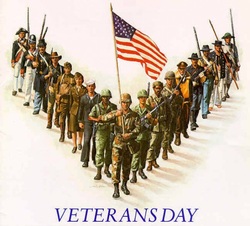
No School.
Veteran's Holiday
________________________________________________________________________________
Monday, November 8, 2010
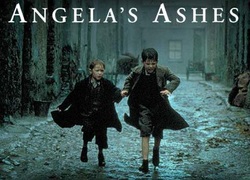
*Make sure you bring your
"LITERATURE BOOK" with you to class
Mon. 11/08 through Wed. 11/10
* No Vocabulary this week
*CLASSWORK/HOMEWORK
I. READ from Holt Literature Book, "Typhoid Fever" by Frank McCourt Pages 194 - 203
II. QUESTIONS Part I - Answer all of the Literary Response & Analysis Story (Q 1-12)
Questions on Page 204 - DUE Tue. 11/9/2010
Note: You should be able to finish at least the first 5 questions in class after you read the story.
Make sure you get your paper stamped before you leave class today if you want to receive full
credit on your classwork/homework assignment. Finish Questions 6 - 12 at home.
REMINDERS:
Bring your "LITERATURE BOOK" with you to class tomorrow!
__________________________________________________________________________________
Friday, November 5, 2010
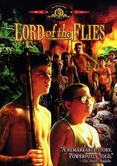
English II Periods 1, 2 & 3
*Make sure you bring your
"Lord of the Flies"book with you to class Fri. 11/05
* No Vocabulary this week
CLASSWORK
* Lord of the Flies Film
HOMEWORK
No Homework
REMINDERS
Make sure you bring your "Lord of the Flies"book with you to class on Fri. 11/05/10
__________________________________________________________________________________
*Make sure you bring your
"Lord of the Flies"book with you to class Fri. 11/05
* No Vocabulary this week
CLASSWORK
* Lord of the Flies Film
HOMEWORK
No Homework
REMINDERS
Make sure you bring your "Lord of the Flies"book with you to class on Fri. 11/05/10
__________________________________________________________________________________
Thursday, November 4, 2010
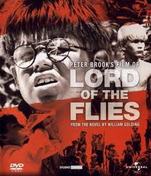
English II Periods 1, 2 & 3
*Make sure you bring your
"Lord of the Flies"book with you to class Fri. 11/05
* No Vocabulary this week
CLASSWORK
* Lord of the Flies Film
HOMEWORK
No Homework
REMINDERS
Make sure you bring your "Lord of the Flies"book with you to class on Fri. 11/05/10
__________________________________________________________________________________
*Make sure you bring your
"Lord of the Flies"book with you to class Fri. 11/05
* No Vocabulary this week
CLASSWORK
* Lord of the Flies Film
HOMEWORK
No Homework
REMINDERS
Make sure you bring your "Lord of the Flies"book with you to class on Fri. 11/05/10
__________________________________________________________________________________
Wednesday, November 3, 2010
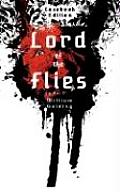
English II Periods 1, 2 & 3
*Make sure you bring your
"Lord of the Flies"book with you to class
Mon. 11/01 through Wed. 11/03
* No Vocabulary this week
CLASSWORK
* Lord of the Flies TEST - Today
* Lord of the Flies Essay - 50 Points Final Draft- Due Today
* Lord of the FliesNotes (20 Points) - Due Today
HOMEWORK
No Homework
REMINDERS
Make sure you bring your "Lord of the Flies"book with you to class on Fri. 11/05/10
__________________________________________________________________________________
*Make sure you bring your
"Lord of the Flies"book with you to class
Mon. 11/01 through Wed. 11/03
* No Vocabulary this week
CLASSWORK
* Lord of the Flies TEST - Today
* Lord of the Flies Essay - 50 Points Final Draft- Due Today
* Lord of the FliesNotes (20 Points) - Due Today
HOMEWORK
No Homework
REMINDERS
Make sure you bring your "Lord of the Flies"book with you to class on Fri. 11/05/10
__________________________________________________________________________________
Tuesday, November 2, 2010
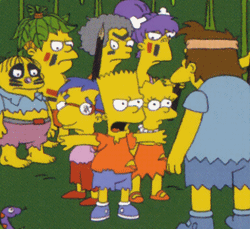
English II Periods 1, 2 & 3
*Make sure you bring your
"Lord of the Flies"book with you to class
Mon. 11/01 through Wed. 11/03
* No Vocabulary this week
* Hand in Lord of the Flies Chapter 12 Questions - Due Today
* Hand in Episodic Summary of Chapter 12 & LOTF Review Sheet (Handout) - Due Today
* Book Report #1- Due Today
CLASSWORK
* Lord of the Flies Novel & Test Review
HOMEWORK
* Study for Lord of the Flies TEST
* Continue working on Lord of the Flies Essay
IMPORTANT REMINDERS!
* Lord of the Flies TEST over entire novel - Wednesday 11/3/2010
* Lord of the Flies Essay - 50 Points Final Draft - DUE Wednesday 11/3/2010
*Lord of the Flies Notes (20 Points) - DUE Wednesday 11/3/2010
__________________________________________________________________________________
Monday, November 1, 2010
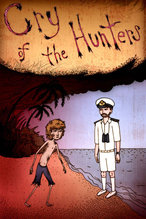
English II Periods 1, 2 & 3
*Make sure you bring your
"Lord of the Flies"book with you to class
Mon. 11/01 through Wed. 11/03
* No Vocabulary this week
* Hand in Halloween Journal #8:
CLASSWORK
I. READ FROM BOOK – Lord of the Flies
Chapter 12 - Cry of the Hunters - Pages 183 - 208
Follow along with CD
(What we don't finish reading in class, please read at home.)
II. While following along with LOTF, maintain an Episodic Summary of Chapter 12 (Handout)
Due Tuesday 11/02/10
HOMEWORK
Lord of the Flies | Chapter 12 Questions - Due Tuesday 11/02/10
1. Where does Ralph first hide from his pursuers?
2. Who gives Ralph meat from Jack’s feast?
3. Why did Samneric join Jack’s tribe?
4. What has Roger prepared for Ralph?
5. How does Jack’s tribe flush Ralph from hiding?
6. What does Ralph discover when he flees to the beach?
7. How does Jack appear on the beach?
8. What boy cannot remember his name?
9. Who takes responsibility for the events on the island?
10. Why is the naval officer disappointed in the boys?
IMPORTANT REMINDERS!
* Lord of the Flies Novel & Test Review - Tue. November 2nd
* Book Report #1- Due Tue. November 2nd
(See handout for details or download instruction & sample by visiting the following link:)
http://abcusdcerritoshsmarzo2.weebly.com/book-reports.html
* Lord of the Flies TEST over entire novel - Wednesday 11/3/2010
* Lord of the Flies Essay - 50 Points Final Draft - DUE Wednesday 11/3/2010
*Lord of the Flies Notes (20 Points) - DUE Wednesday 11/3/2010
__________________________________________________________________________________
Friday, October 29, 2010
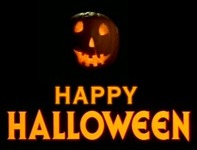
English II Periods 1, 2 & 3
*Make sure you bring your
"Lord of the Flies"book with you to class
Mon. 10/25 through Fri. 10/29
* Hand In - Lord of the Flies Fill in the blanks & Journal # 7 - Fear
if you have not already done so.
* Also hand in Vocabulary #4 sentences. DUE Today!
* Lord of the Flies MASK PROJECT / SHORT ESSAY- DUE Today!
CLASSWORK
I.Vocabulary Level E, Unit 4 Quiz- Today!
II. *Halloween Journal #8:
After watching scary film clips from several horror movies,
write 1 full page answering the following questions:
A. Which scene did you find to be most frightening and why?
If you didn't find any of the clips to be scary, explain why.
B. What's your greatest fear in real life. What types of films
do you find most horrifying? (Name a few Horror Films and describe
specific scenes.)
C. Why do people liked to be scared anyway? Explain.
D. What do you find to be more terrifying, real life events or
pretend situations & things found in fictitious books and films?
Please give examples.
HOMEWORK
No weekend homework
REMINDERS
* Book Report #1- Due Tue. November 2nd (See handout for details)
* Lord of the Flies Essay - 50 Points Final Draft - DUE Wednesday 11/3/2010
___________________________________________________________________________
Thursday, October 28, 2010
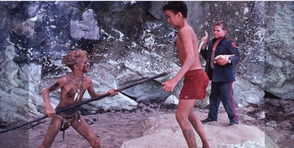
English II Periods 1, 2 & 3
*Make sure you bring your
"Lord of the Flies"book with you to class
Mon. 10/25 through Fri. 10/29
Hand In - Lord of the Flies Questions # 1-10, Chapter 11- DUE Today
CLASSWORK
I. Vocabulary Level E, Unit 4 Review - Today! Vocabulary Level E, Unit 4 Quiz Fri. 10/29
II. Journal # 7 - Fear - LOTF Chapter 11 - WRITE 1/2 page - Due Today!
"Fear is the enemy for civilization; fear prevents construction and progress"
Discuss fragility of civilization againt the destructive powers of fear. Give examples
from the story and your everyday life.
III. LOTF Review - Fill in the blanks (handout) - Due Today!
Lord of the Flies Fill-in
Directions: Fill in the best word to complete the following paragraphs. There are a few instances that more than one word can be considered correct. All lines are of the same length. Their size is no indication of the size of the word needed.
Setting the Scene:
The story begins as a _____________ evacuating children from a war zone crashes on a remote _______________ in the tropics. The only survivors are a group of boys. There are _______________, _______________, the members of a choir school lead by_______________, and an assortment of others of different ages. They are brought together when Ralph and Piggy find a _______________ shell and Ralph blows it. They elect Ralph to be _______________ of the group and he lets Jack be in charge of the _______________. Jack decides his choir will be hunters. Ralph, Jack, and Simon explore the _______________ and find that it is _______________.
Getting Organized:
The boys have regular _______________. Whoever holds the _______________ has the right to _______________. Some of the little boys talk about being afraid of a _______________ they think they see at night. They agree to build _______________ to sleep in and to keep a _______________ burning on the mountain to give a smoke signal. Jack says his _______________ will be responsible for keeping the _______________ going. They realize one of the small boys is missing and probably _______________.
Things Go Wrong:
Most of the boys begin to behave irresponsibly and they refuse to _______________ the rules. They talk about "_______________" and being afraid. A _______________ dies parachuting onto the mountain. The boys think this figure is the _______________ and are terrified. Jack breaks away from _______________'s group and forms his own group. This group is a tribe of _______________. They kill a pig and leave its _______________ as a _______________ to the beast.
Death and Rescue:
_______________ sees the _______________ on a stick and has an imaginary _______________ with it. He climbs the _______________ to find out what the "_______________" really is. As he comes down the mountain to tell the others what he has found, all the others, having had a huge feast, are performing a ritual _______________. They think Simon is the beast and attack and _______________ him.
Ralph's _______________ is now very _______________ . Jack's tribe raids them to _______________ Piggy's glasses to light their fire. Ralph's group goes to ask Jack fo Piggy's _______________ to be returned. As they confront Jack's tribe, _______________ is killed and Jack attacks Ralph. Ralph's last two members, _______________ are taken _______________. Ralph escapes and hides in the forest. Jack and his tribe _______________ Ralph; intending to _______________ him. They roll rocks, then set fire to the island to _______________ him out. A passing _______________ sees this smoke and pulls in to _______________ the boys.
HOMEWORK
Continue working on all assignments
that are due on Friday, 10/29/10
REMINDERS
* Lord of the Flies MASK PROJECT / SHORT ESSAY- DUE Fri. Oct. 29, 2010
* Vocabulary Level E, Unit 4 Quiz Fri. 10/29
* WRITE one sentence for each vocabulary word - DUE Fri. 10/29
* Book Report #1- Due Tue. November 2nd (See handout for details)
* Lord of the Flies Essay - 50 Points Final Draft - DUE Wednesday 11/3/2010
___________________________________________________________________________
*Make sure you bring your
"Lord of the Flies"book with you to class
Mon. 10/25 through Fri. 10/29
Hand In - Lord of the Flies Questions # 1-10, Chapter 11- DUE Today
CLASSWORK
I. Vocabulary Level E, Unit 4 Review - Today! Vocabulary Level E, Unit 4 Quiz Fri. 10/29
II. Journal # 7 - Fear - LOTF Chapter 11 - WRITE 1/2 page - Due Today!
"Fear is the enemy for civilization; fear prevents construction and progress"
Discuss fragility of civilization againt the destructive powers of fear. Give examples
from the story and your everyday life.
III. LOTF Review - Fill in the blanks (handout) - Due Today!
Lord of the Flies Fill-in
Directions: Fill in the best word to complete the following paragraphs. There are a few instances that more than one word can be considered correct. All lines are of the same length. Their size is no indication of the size of the word needed.
Setting the Scene:
The story begins as a _____________ evacuating children from a war zone crashes on a remote _______________ in the tropics. The only survivors are a group of boys. There are _______________, _______________, the members of a choir school lead by_______________, and an assortment of others of different ages. They are brought together when Ralph and Piggy find a _______________ shell and Ralph blows it. They elect Ralph to be _______________ of the group and he lets Jack be in charge of the _______________. Jack decides his choir will be hunters. Ralph, Jack, and Simon explore the _______________ and find that it is _______________.
Getting Organized:
The boys have regular _______________. Whoever holds the _______________ has the right to _______________. Some of the little boys talk about being afraid of a _______________ they think they see at night. They agree to build _______________ to sleep in and to keep a _______________ burning on the mountain to give a smoke signal. Jack says his _______________ will be responsible for keeping the _______________ going. They realize one of the small boys is missing and probably _______________.
Things Go Wrong:
Most of the boys begin to behave irresponsibly and they refuse to _______________ the rules. They talk about "_______________" and being afraid. A _______________ dies parachuting onto the mountain. The boys think this figure is the _______________ and are terrified. Jack breaks away from _______________'s group and forms his own group. This group is a tribe of _______________. They kill a pig and leave its _______________ as a _______________ to the beast.
Death and Rescue:
_______________ sees the _______________ on a stick and has an imaginary _______________ with it. He climbs the _______________ to find out what the "_______________" really is. As he comes down the mountain to tell the others what he has found, all the others, having had a huge feast, are performing a ritual _______________. They think Simon is the beast and attack and _______________ him.
Ralph's _______________ is now very _______________ . Jack's tribe raids them to _______________ Piggy's glasses to light their fire. Ralph's group goes to ask Jack fo Piggy's _______________ to be returned. As they confront Jack's tribe, _______________ is killed and Jack attacks Ralph. Ralph's last two members, _______________ are taken _______________. Ralph escapes and hides in the forest. Jack and his tribe _______________ Ralph; intending to _______________ him. They roll rocks, then set fire to the island to _______________ him out. A passing _______________ sees this smoke and pulls in to _______________ the boys.
HOMEWORK
Continue working on all assignments
that are due on Friday, 10/29/10
REMINDERS
* Lord of the Flies MASK PROJECT / SHORT ESSAY- DUE Fri. Oct. 29, 2010
* Vocabulary Level E, Unit 4 Quiz Fri. 10/29
* WRITE one sentence for each vocabulary word - DUE Fri. 10/29
* Book Report #1- Due Tue. November 2nd (See handout for details)
* Lord of the Flies Essay - 50 Points Final Draft - DUE Wednesday 11/3/2010
___________________________________________________________________________
Wednesday, October 27, 2010
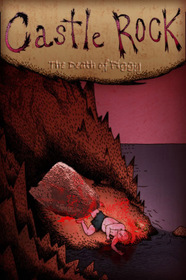
English II Periods 1, 2 & 3
*Make sure you bring your
"Lord of the Flies"book with you to class
Mon. 10/25 through Fri. 10/29
Hand In - Lord of the Flies Questions # 1-12, Chapter 10- DUE Today
CLASSWORK
I. READ FROM BOOK – Lord of the Flies
Chapter 11 - Castle Rock - Pages 169 - 182
- Read together in class. Pass the Conch Shell to take turns reading. Remember
only the person holding the shell may speak, just like in Chapter 2 of Lord of the Flies.
(What we don't finish reading in class, please read at home.)
HOMEWORK
II. Lord of the Flies Questions # 1-10, Chapter 11- DUE Thurs. 10/28
1. In the beginning of the chapter, what does Piggy tell Ralph to do with the conch?
2. What reason will Piggy give Jack for the return of his glasses?
3. What does Ralph declare their appearance will be when they approach Jack?
4. Who challenges the boys on their approach to Castle Rock?
5. When Jack appears, what has he been doing?
6. What does Ralph call Jack that provokes a fight?
7. What happens to Samneric after the fight?
8. What is Roger doing during Piggy’s plea for a return to order?
9. What is Piggy's plea? What does he say before he is killed?
10. What symbolic event represents the destruction of order and the return to savagery?
REMINDERS
* Lord of the Flies MASK PROJECT / SHORT ESSAY- DUE Fri. Oct. 29, 2010
* Vocabulary Level E, Unit 4 Review Thurs. 10/28
* Vocabulary Level E, Unit 4 Quiz Fri. 10/29
* WRITE one sentence for each vocabulary word - DUE Fri. 10/29
* Book Report #1- Due Tue. November 2nd (See handout for details)
* Lord of the Flies Essay - 50 Points Final Draft - DUE Wednesday 11/3/2010
___________________________________________________________________________
Tuesday, October 26, 2010
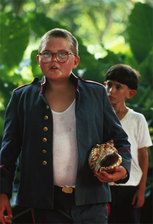
English II Periods 1, 2 & 3
*Make sure you bring your
"Lord of the Flies"book with you to class
Mon. 10/25 through Fri. 10/29
Hand In - Lord of the Flies Questions # 1-9, Chapter 9- DUE Today
CLASSWORK
I. Journal # 6 - A View to a Death - LOTF Chapter 9 WRITE 1 full page (Double Spaced) - Due Today!
A. Jack encourages his followers to dance and chant, “Kill the beast! Cut his throat! Spill his blood!” In your opinion,
what is the purpose of the dancing and chanting? To overcome fear? Secure Jack’s position as chief? Something else?
B. Simon awakens in the clearing after his seizure. He says “What else is there to do?” Then Simon makes his way to
the body of the dead pilot. Some critics believe the author is saying that the only way to defeat evil is to face it. Do
you believe this to be true? What does this say about Simon?
C. Ralph and Piggy join in with the others and kill Simon. Write a letter from Ralph to Simon’s family
trying to console them and explain how Simon died. Explain your participation in the killing, also.
II. Grammar- Present, Past and Tense shifting Diagnostic Exercise. (Handout)
Re-write paragraph correctly on your own sheet of paper. Use back side of Journal #6 to record - DUE Today
III. READ FROM BOOK – Lord of the Flies
Chapter 10 - The Shell & the Glasses - Pages 155 - 168
- Read together in class. Pass the Conch Shell to take turns reading. Remember
only the person holding the shell may speak, just like in Chapter 2 of Lord of the Flies.
(What we don't finish reading in class, please read at home.)
HOMEWORK
IV. Lord of the Flies Questions # 1-12, Chapter 10- DUE Wed. 10/27 (Handout)
1) Why do you think the narrator mentions "impaired sight" and "befouled bodies"?
2) Analyze how Piggy, Ralph, and Samneric deal with Simon's death.
See handout for all Chapter 10 homework Questions 1-12
REMINDERS
* Lord of the Flies MASK PROJECT / SHORT ESSAY- DUE Fri. Oct. 29, 2010
* Vocabulary Level E, Unit 4 Review Thurs. 10/28
* Vocabulary Level E, Unit 4 Quiz Fri. 10/29
* WRITE one sentence for each vocabulary word - DUE Fri. 10/29
* Book Report #1- Due Tue. November 2nd (See handout for details)
* Lord of the Flies Essay - 50 Points Final Draft - DUE Wednesday 11/3/2010
___________________________________________________________________________
Monday, October 25, 2010
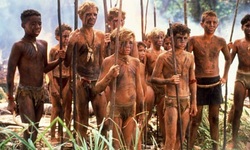
English II Periods 1, 2 & 3
*Make sure you bring your
"Lord of the Flies"book with you to class
Mon. 10/25 through Fri. 10/29
CLASSWORK
I. Vocabulary Workshop Level E, Unit 4 - Week 4 (10/25 through 10/29)
Vocabulary Review Thurs. 10/28
Vocabulary Quiz Fri. 10/29
WRITE one sentence for each word - DUE Fri. 10/29
1) abhor
to regard with horror or loathing; to hate deeply
2) amend
to change in a formal way; to change for the better
3) buffet
to slap or cuff; to strike repeatedly; to drive or force with blows; to force one's way with difficulty; a slap, blow
4) chaos
great confusion, disorder
5) commodious
roomy, spacious
6) corrosive
eating away gradually, acidlike; bitterly sarcastic
7) discern
to see clearly, recognize
8) extant
still existing; not exterminated, destroyed, or lost
9) implicate
to involve in; to connect with or be related to
10) inter
to bury, commit to the earth; to consign to oblivion
11) martinet
a strict disciplinarian; a stickler for the rules
12) obviate
to anticipate and prevent; to remove dispose of
13) renegade
one who leaves a group; a deserter, outlaw; traitorous; unconventional, unorthodo
14) reprehensible
deserving blame or punishment
15) somber
dark, gloomy; depressed or melancholy in spirit
16) squalid
filthy, wretched, debased
17) turbulent
disorderly, riotous, violent; stormy
18) vociferous
loud and noisy; compelling attention
19) voluminous
of great size; numerous; writing or speaking at great length
20) waive
to do without, give up voluntarily; to put off temporarily, defer
II. READ FROM BOOK – Lord of the Flies
Chapter 9 - A View To A Death - Pages 145 - 154
Follow along with CD
(What we don't finish reading in class, please read at home.)
HOMEWORK
III. Lord of the Flies Questions # 1-9, Chapter 9- DUE Tue. 10/26
1. How has the weather changed? a. Why did Golding do this?
2. What does Simon do when he finds the pilot? a. Why does this show his humanity?
b. Why isn't he scared?
3. How do the boys treat Jack?
a. Why might they be more comfortable doing this than the democracy Ralph practiced?
b. Is this similar to the school they were once at?
4. Why won't they look at Ralph? a. How does Ralph and Piggy defuse the scene?
5. How has the Conch lost some of it's power?
6. Instead of trying to protect themselves from the rain, the boys begin their dance.
a. Why? b. What does the dance protect them from?
7. Complete the quote "They were glad to touch____________________"
a. How is the circle a fence? b. Why do Piggy and Ralph join it? c. What do they chant?
8. Complete the quote "there was only the sound of ___________." a. What claws? Explain.
b. Who else takes part in the killing? c. What else leaves the island?
9. How is Simon's body taken away from the island?
a. Why does the author dwell on the bioluminescence
b. What is he trying to compare it to? c. How is that fitting for Simon?
REMINDERS
* Lord of the Flies MASK PROJECT / SHORT ESSAY- DUE Fri. Oct. 29, 2010
* Vocabulary Level E, Unit 4 Review Thurs. 10/28
* Vocabulary Level E, Unit 4 Quiz Fri. 10/29
* WRITE one sentence for each vocabulary word - DUE Fri. 10/29
* Book Report #1- Due Tue. November 2nd (See handout for details)
* Lord of the Flies Essay - 50 Points Final Draft - DUE Wednesday 11/3/2010
____________________________________________________________________________
*Make sure you bring your
"Lord of the Flies"book with you to class
Mon. 10/25 through Fri. 10/29
CLASSWORK
I. Vocabulary Workshop Level E, Unit 4 - Week 4 (10/25 through 10/29)
Vocabulary Review Thurs. 10/28
Vocabulary Quiz Fri. 10/29
WRITE one sentence for each word - DUE Fri. 10/29
1) abhor
to regard with horror or loathing; to hate deeply
2) amend
to change in a formal way; to change for the better
3) buffet
to slap or cuff; to strike repeatedly; to drive or force with blows; to force one's way with difficulty; a slap, blow
4) chaos
great confusion, disorder
5) commodious
roomy, spacious
6) corrosive
eating away gradually, acidlike; bitterly sarcastic
7) discern
to see clearly, recognize
8) extant
still existing; not exterminated, destroyed, or lost
9) implicate
to involve in; to connect with or be related to
10) inter
to bury, commit to the earth; to consign to oblivion
11) martinet
a strict disciplinarian; a stickler for the rules
12) obviate
to anticipate and prevent; to remove dispose of
13) renegade
one who leaves a group; a deserter, outlaw; traitorous; unconventional, unorthodo
14) reprehensible
deserving blame or punishment
15) somber
dark, gloomy; depressed or melancholy in spirit
16) squalid
filthy, wretched, debased
17) turbulent
disorderly, riotous, violent; stormy
18) vociferous
loud and noisy; compelling attention
19) voluminous
of great size; numerous; writing or speaking at great length
20) waive
to do without, give up voluntarily; to put off temporarily, defer
II. READ FROM BOOK – Lord of the Flies
Chapter 9 - A View To A Death - Pages 145 - 154
Follow along with CD
(What we don't finish reading in class, please read at home.)
HOMEWORK
III. Lord of the Flies Questions # 1-9, Chapter 9- DUE Tue. 10/26
1. How has the weather changed? a. Why did Golding do this?
2. What does Simon do when he finds the pilot? a. Why does this show his humanity?
b. Why isn't he scared?
3. How do the boys treat Jack?
a. Why might they be more comfortable doing this than the democracy Ralph practiced?
b. Is this similar to the school they were once at?
4. Why won't they look at Ralph? a. How does Ralph and Piggy defuse the scene?
5. How has the Conch lost some of it's power?
6. Instead of trying to protect themselves from the rain, the boys begin their dance.
a. Why? b. What does the dance protect them from?
7. Complete the quote "They were glad to touch____________________"
a. How is the circle a fence? b. Why do Piggy and Ralph join it? c. What do they chant?
8. Complete the quote "there was only the sound of ___________." a. What claws? Explain.
b. Who else takes part in the killing? c. What else leaves the island?
9. How is Simon's body taken away from the island?
a. Why does the author dwell on the bioluminescence
b. What is he trying to compare it to? c. How is that fitting for Simon?
REMINDERS
* Lord of the Flies MASK PROJECT / SHORT ESSAY- DUE Fri. Oct. 29, 2010
* Vocabulary Level E, Unit 4 Review Thurs. 10/28
* Vocabulary Level E, Unit 4 Quiz Fri. 10/29
* WRITE one sentence for each vocabulary word - DUE Fri. 10/29
* Book Report #1- Due Tue. November 2nd (See handout for details)
* Lord of the Flies Essay - 50 Points Final Draft - DUE Wednesday 11/3/2010
____________________________________________________________________________
Friday, October 22, 2010
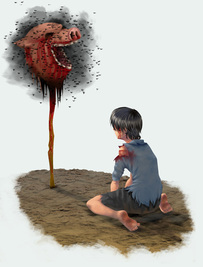
English II Periods 1, 2 & 3
*Make sure you bring your
"Lord of the Flies"book with you to class
Mon. 10/18 through Fri. 10/22
* No Vocabulary this week
LOTF - Gift for the Darkness
Hand In - LOTF activities 1 - 3, Letter and Questions - Due Today!
CLASSWORK
I. REVIEW Continued LOTF Chapter 8 & Themes, Motifs & Symbols - Take NOTES. Record them on the same sheet of paper that you were using last time we took notes. Please keep notes as we will be adding to them after reading each chapter. You will receive 20 points for your notes when completed.
HOMEWORK:
No weekend homework
REMINDERS:
* Lord of the Flies MASK PROJECT / SHORT ESSAY- DUE Fri. Oct. 29, 2010
* Book Report #1- Due Tue. November 2nd (See handout for details)
* Lord of the Flies Essay - 50 Points Final Draft - DUE Wednesday 11/3/2010
____________________________________________________________________________
Thursday, October 21, 2010
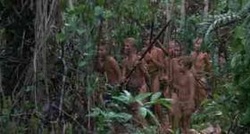
English II Periods 1, 2 & 3
*Make sure you bring your
"Lord of the Flies"book with you to class
Mon. 10/18 through Fri. 10/22
* No Vocabulary this week
Hand In - Lord of the Flies Character Analysis: The Boys and the Dance (Handout) - and LOTF
Drawing Comparisons: Ralph Joins the Hunt (Handout) - Due Today!
CLASSWORK
I. REVIEW Lord of the Flies Essay - 50 Points Final Draft - DUE Wed. 11/3/2010 (Handout)
Lord of the Flies is Golding's warning to humanity,without supervision, society may degenerate into anarchy.
LOTF is a powerful and remarkable tale that helps us understand that we have to have order and learn to work within boundaries if we want to call ourselves civilized.
Essay Topics (Choose just one topic to write a 5-paragraph essay on)
A. Develop an explanation of why some critics feel that Golding's main themes are that there is no hope for mankind, or that evil is an inborn trait of mankind. Be sure to use examples from the book and describe your own ideas.
B. 17th Century Philosopher Thomas Hobbes described human life in a state of nature as "solitary, poor, nasty, brutish, and short." Do you agree? Or are humans more naturally good? Explain yourself in an essay that explores Good vs. Evil essay.
C. William Golding writes: "The theme (of Lord of the Flies) is an attempt to trace the defects of society back to the defects of human nature. The moral is that the shape of society must depend on the ethical nature of the individual and not on any political system however apparently logical or respectable." In a well-constructed essay, discuss the statement this novel makes about this theme and whether you agree or disagree. Avoid plot summary. Instead deal with what different characters symbolize and the statement they make about individuals and their government.
D. Identify three symbols and analyze how Golding uses them as symbols, what each symbolizes, and what role the symbols play in the novel as a whole. If you choose, you could tie the symbols into a specific theme, and illustrate how they support them. You could also compare and contrast (show similarities and differences) the symbols and/or show how the symbols are different aspects of a larger idea.
E. You could construct an essay discussing any of the following themes:
Man's need for civilization, innocence & its loss, loss of identity, power, fear of the unknown,
the indifference of nature, blindness and sight (Check the Edline website for details on each theme)
II. REVIEW LOTF Chapter 8 - Take NOTES. Record them on the same sheet of paper that you were using last time we took notes. Please keep notes as we will be adding to them after reading each chapter. You will receive 20 points for your notes when completed.
REMINDERS:
* LOTF activities 1 - 3, Letter and Questions - DUE Friday Oct. 22, 2010
* Lord of the Flies MASK PROJECT / SHORT ESSAY- DUE Fri. Oct. 29, 2010
* Book Report #1- Due Tue. November 2nd (See handout for details)
* Lord of the Flies Essay - 50 Points Final Draft - DUE Wednesday 11/3/2010
_____________________________________________________________________________
Wednesday, October 20, 2010
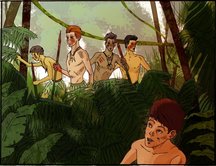
English II Periods 1, 2 & 3
*Make sure you bring your
"Lord of the Flies"book with you to class
Mon. 10/18 through Fri. 10/22
* No Vocabulary this week
Hand In - Lord of the Flies Questions # 1-13, Chapter 7 - Due Today!
CLASSWORK
I. READ in small groups of no more than five people.
LOTF Chapter 8-Gift for the Darkness - Pages 124-144
Answer the following questions and hand them in as a group.
(Make sure you include all group members names on your answer sheet)
DUE at the end of the period today, Wednesday 10/20
*Lord of the Flies Questions # 1-8 , Chapter 8 (Copy from Screen) - DUE at the end of the period
1. Who calls the assembly to discuss the beast?
2. What lie does Jack tell the others at the assembly?
3. What does Jack do before he leaves the assembly?
4. What is Piggy’s radical idea concerning the fire?
5. What feast does Piggy supply for Ralph and the fire builders?
6. How does Roger help in killing the sow?
7. What do the boys do with the pig after they kill it?
8. Who converses with the pig’s head about the nature of the beast?
--------------------------------------------------------------------------------
HOMEWORK:
Complete the following activities 1 - 3 at home. DUE Friday Oct. 22, 2010
A. 1.At first, none of the boys follow Jack when he claims that he will not participate anymore.” Write a letter to a friend describing this scene and explain why Jack’s hunters fail to support him when he calls for a vote to remove Ralph as chief. How would you rate Jack’s maturity level at this point in the story?
2.Jack comes to invite the others to join his hunting party. He is naked, except for the paint on his face. “He was safe from shame or self-consciousness behind the mask of his paint…” In our world, some people hide behind sunglasses or behave differently when talking on the phone. Some drivers, who are usually nice people in their everyday lives, become very aggressive on the road. Why do you think humans might behave differently when their identities are hidden?
3.Simon believes the Lord of the Flies is talking to him. “Fancy thinking the Beast was something you could hunt and kill!” said the head. “You knew, didn’t you? I’m part of you? Close, close, close! I’m the reason why it’s no go? Why things are what they are?” The Lord of the Flies seems to be telling Simon that the evil, the beast, is part of the boys. Describe the evil that is part of Jack, Piggy, and Ralph, and people in general.
B. LOTF Character Analysis: The Boys and the Dance (Handout) - and LOTF Drawing Comparisons:
Ralph Joins the Hunt (Handout) - DUE Thursday Oct. 21, 2010
REMINDERS:
* Lord of the Flies MASK PROJECT / SHORT ESSAY- DUE Fri. Oct. 29, 2010
* Book Report #1- Due Tue. November 2nd (See handout for details)
_____________________________________________________________________________
Tuesday, October 19, 2010
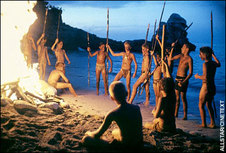
English II Periods 1, 2 & 3
*Make sure you bring your
"Lord of the Flies"book with you to class
Mon. 10/18 through Fri. 10/22
* No Vocabulary this week
CLASSWORK
I. Continue READING– Lord of the Flies Chapter 7 - Shadows & Tall Trees - Pages 109 -123
- Read together in class.
II. CLASSWORK/HOMEWORK:
A. LOTF Character Analysis: The Boys and the Dance (Handout) - DUE Thursday Oct. 21, 2010
B. LOTF Drawing Comparisons: Ralph Joins the Hunt (Handout) - DUE Thursday Oct. 21, 2010
REMINDERS:
Lord of the Flies Questions # 1-13, Chapter 7 - Due Wed. Oct. 20, 2010
Lord of the Flies MASK PROJECT / SHORT ESSAY- DUE Fri. Oct. 29, 2010
Book Report #1- Due Tue. November 2nd (See handout for details)
______________________________________________________________________________
Monday, October 18, 2010
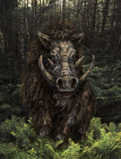
English II Periods 1, 2 & 3
*Make sure you bring your
"Lord of the Flies"book with you to class
Mon. 10/18 through Fri. 10/22
* No Vocabulary this week
CLASSWORK
I. REVIEW – Lord of the Flies - Chapter 2 - 6
Take NOTES. Record them on the same sheet of paper that you were using last time we took notes.
Please keep notes as we will be adding to them after reading each chapter. You will
receive 20 points for your notes when completed.
II. READ– Lord of the Flies Chapter 7 - Shadows & Tall Trees - Pages 109 -123 - Read together in class.
Please Note: This chapter begins with the boys following the winding pig-runs, up the side of the mountain to its peak.
Though everyone is nervous about confronting the beast, somehow Simon knows that Ralph will make it
back alright. When Ralph tells Simon he’s "batty," Simon gets angry, again insisting that Ralph will return
from themountain safely. What’s strange about this dialogue is the fact that Simon never predicts his own
safe return. Like Christ in the Garden of Gethsemane, Simon knows that he will die soon.
III. HOMEWORK:
Lord of the Flies | Chapter 7 Questions - Due Wednesday 10/20/10
1. What is Ralph thinking as he walks behind Jack? How does Golding use hair again?
Why does Ralph want to clean himself up, symbolically?
2. What do the boys look like? What disturbs Ralph about this knowledge?
3. What is the other side of the island like? What depresses him? What does the phrase "brute obtuseness" mean?
4. Simon gives him a prediction. What is it? What is ominous in Simon's prediction?
5. What does Jack find? What unusual simile is used when he finds them?
Why does Ralph give up the leadership role? What does Ralph think about while he is hunting?
What does that show about him?
6. When the boar turns, who gets the first shot in at him? Why is that a good thing for Ralph? How does he feel about that?
7. How do the boys play with Robert? Why is that not play? How does Ralph react to the game?
What do they chant? How does a chant affect them? When have you heard a chant? How does it affect a group?
8. What decision does Ralph make? How does he mess up the peace he has had between himself and Jack?
How does Simon solve the problem?
9. What embarrassing question does Ralph ask? Why is it embarrassing?
10. What challenge does Jack issue? Why does he feel that he needs to do this?
What is the strongest emotion that Jack feels?
11. Who are the three that go up the mountain? Why is it appropriate that Roger comes along?
12. Who sees the beast first? How does he react?
13. Who fully confronts the beast?
----------------------------------------------------------------------------------------------
REMINDERS:
Lord of the Flies Questions # 1-13, Chapter 7 - Due Wed. Oct. 20, 2010
Lord of the Flies MASK PROJECT / SHORT ESSAY- DUE Fri. Oct. 29, 2010
Book Report #1- Due Tue. November 2nd (See handout for details)
*Make sure you bring your
"Lord of the Flies"book with you to class
Mon. 10/18 through Fri. 10/22
* No Vocabulary this week
CLASSWORK
I. REVIEW – Lord of the Flies - Chapter 2 - 6
Take NOTES. Record them on the same sheet of paper that you were using last time we took notes.
Please keep notes as we will be adding to them after reading each chapter. You will
receive 20 points for your notes when completed.
II. READ– Lord of the Flies Chapter 7 - Shadows & Tall Trees - Pages 109 -123 - Read together in class.
Please Note: This chapter begins with the boys following the winding pig-runs, up the side of the mountain to its peak.
Though everyone is nervous about confronting the beast, somehow Simon knows that Ralph will make it
back alright. When Ralph tells Simon he’s "batty," Simon gets angry, again insisting that Ralph will return
from themountain safely. What’s strange about this dialogue is the fact that Simon never predicts his own
safe return. Like Christ in the Garden of Gethsemane, Simon knows that he will die soon.
III. HOMEWORK:
Lord of the Flies | Chapter 7 Questions - Due Wednesday 10/20/10
1. What is Ralph thinking as he walks behind Jack? How does Golding use hair again?
Why does Ralph want to clean himself up, symbolically?
2. What do the boys look like? What disturbs Ralph about this knowledge?
3. What is the other side of the island like? What depresses him? What does the phrase "brute obtuseness" mean?
4. Simon gives him a prediction. What is it? What is ominous in Simon's prediction?
5. What does Jack find? What unusual simile is used when he finds them?
Why does Ralph give up the leadership role? What does Ralph think about while he is hunting?
What does that show about him?
6. When the boar turns, who gets the first shot in at him? Why is that a good thing for Ralph? How does he feel about that?
7. How do the boys play with Robert? Why is that not play? How does Ralph react to the game?
What do they chant? How does a chant affect them? When have you heard a chant? How does it affect a group?
8. What decision does Ralph make? How does he mess up the peace he has had between himself and Jack?
How does Simon solve the problem?
9. What embarrassing question does Ralph ask? Why is it embarrassing?
10. What challenge does Jack issue? Why does he feel that he needs to do this?
What is the strongest emotion that Jack feels?
11. Who are the three that go up the mountain? Why is it appropriate that Roger comes along?
12. Who sees the beast first? How does he react?
13. Who fully confronts the beast?
----------------------------------------------------------------------------------------------
REMINDERS:
Lord of the Flies Questions # 1-13, Chapter 7 - Due Wed. Oct. 20, 2010
Lord of the Flies MASK PROJECT / SHORT ESSAY- DUE Fri. Oct. 29, 2010
Book Report #1- Due Tue. November 2nd (See handout for details)
LORD OF THE FLIES MASK PROJECT / SHORT ESSAY- 60 Points! DUE Fri. Oct. 29, 2010
In Chapter 4 of LOTF Jack seems to become a different person when he paints his face, creating a mask. Masks allow us to choose how the world sees us. In a sense, we put on a “mask” every day: the way we present ourselves to the world – school, public places, work. Maybe only those closest to us see us as we really are. The face we give to the world lets us show – and hide – specific things about ourselves, just like Jack can hide behind the paint on his face..
Your task is to create your own mask. Like the masks in Lord of the Flies, your mask also needs to be symbolic. It needs to hide certain aspects of yourself while selecting other aspects to display.Use symbolism in the colors and composition of your mask. Illustrate your mask based on the character traits of the person who you selected. (Jack, Ralph, Piggy, Simon, Roger, etc.)
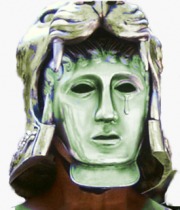
Steps 1-3
Friday, October 15th
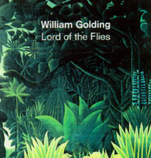
English II Periods 1, 2 & 3
*Make sure you bring your
"Lord of the Flies"book with you to class
Mon. 10/11 through Fri. 10/15
I. Turn in the following:
A. Lord of the Flies Questions # 1-5, Chapter 6 - Due Today!
B. Vocabulary # 3 - Sentences - Due Today!
C. JOURNAL #5 - Title: Civilization vs. Savagery - Due Today!
D. LOTF POSTCARDS PROJECT- Due Today!
E. Lord of the Flies Questions # 1-9, Chapter 4 (Handout) - Due Today!
II. Vocabulary Quiz #3 - Today!
III. REVIEW – Lord of the Flies - Chapter 2 - 6
Take NOTES. Record them on the same sheet of paper that you were using last time we took notes.
Please keep notes as we will be adding to them after reading each chapter. You will
receive 20 points for your notes when completed.
IV. HOMEWORK: No weekend homework
----------------------------------------------------------------------------------------------
REMINDERS:
Book Report #1- Due Tue. November 2nd (See handout for details)
__________________________________________
*Make sure you bring your
"Lord of the Flies"book with you to class
Mon. 10/11 through Fri. 10/15
I. Turn in the following:
A. Lord of the Flies Questions # 1-5, Chapter 6 - Due Today!
B. Vocabulary # 3 - Sentences - Due Today!
C. JOURNAL #5 - Title: Civilization vs. Savagery - Due Today!
D. LOTF POSTCARDS PROJECT- Due Today!
E. Lord of the Flies Questions # 1-9, Chapter 4 (Handout) - Due Today!
II. Vocabulary Quiz #3 - Today!
III. REVIEW – Lord of the Flies - Chapter 2 - 6
Take NOTES. Record them on the same sheet of paper that you were using last time we took notes.
Please keep notes as we will be adding to them after reading each chapter. You will
receive 20 points for your notes when completed.
IV. HOMEWORK: No weekend homework
----------------------------------------------------------------------------------------------
REMINDERS:
Book Report #1- Due Tue. November 2nd (See handout for details)
__________________________________________
Thursday, October 14
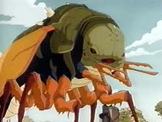
English II Periods 1, 2 & 3
*Make sure you bring your
"Lord of the Flies"book with you to class
Mon. 10/11 through Fri. 10/15
I. Vocabulary Review - Today!
II. READ FROM BOOK – Lord of the Flies
Chapter 6 - Beast From Air - Pages 95 -108
Follow along with CD
(What we don't finish reading in class, please read at home.)
HOMEWORK
III. Lord of the Flies Questions # 1-5, Chapter 6- DUE Fri. 10/15
1. What details in the description let you know that the figure is dead before it hits the ground?
What sort of message is this? Why didn't the twins see the body fall?
2. Who sees the beast? What have they just done? How do they react?
3. Complete the quote "The silence was full of ________________" Explain.
4. How was this a good meeting for Ralph? How does he get the attention of the
meeting away from Jack Do the boys want to be rescued? Explain
5. How was Simon embarrassed? What wasn't he able to do? Who does Simon imagine the beast to be?
----------------------------------------------------------------------------------------------
REMINDERS:
A. Lord of the Flies Questions # 1-5, Chapter 6- DUE Fri. 10/15
B. WRITE one sentence for each vocabulary word - DUE Fri. 10/15
C. Vocabulary Quiz Fri. 10/15
D. JOURNAL #5 - Title: Civilization vs. Savagery - DUE Fri. 10/15
E. LOTF POSTCARDS PROJECT DUE FRIDAY 10/15 (See handout for details)
F. Book Report #1- Due Tue. November 2nd (See handout for details)
__________________________________________
*Make sure you bring your
"Lord of the Flies"book with you to class
Mon. 10/11 through Fri. 10/15
I. Vocabulary Review - Today!
II. READ FROM BOOK – Lord of the Flies
Chapter 6 - Beast From Air - Pages 95 -108
Follow along with CD
(What we don't finish reading in class, please read at home.)
HOMEWORK
III. Lord of the Flies Questions # 1-5, Chapter 6- DUE Fri. 10/15
1. What details in the description let you know that the figure is dead before it hits the ground?
What sort of message is this? Why didn't the twins see the body fall?
2. Who sees the beast? What have they just done? How do they react?
3. Complete the quote "The silence was full of ________________" Explain.
4. How was this a good meeting for Ralph? How does he get the attention of the
meeting away from Jack Do the boys want to be rescued? Explain
5. How was Simon embarrassed? What wasn't he able to do? Who does Simon imagine the beast to be?
----------------------------------------------------------------------------------------------
REMINDERS:
A. Lord of the Flies Questions # 1-5, Chapter 6- DUE Fri. 10/15
B. WRITE one sentence for each vocabulary word - DUE Fri. 10/15
C. Vocabulary Quiz Fri. 10/15
D. JOURNAL #5 - Title: Civilization vs. Savagery - DUE Fri. 10/15
E. LOTF POSTCARDS PROJECT DUE FRIDAY 10/15 (See handout for details)
F. Book Report #1- Due Tue. November 2nd (See handout for details)
__________________________________________
Wednesday, October 13th
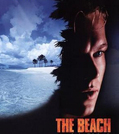
English II Periods 1, 2 & 3
*Make sure you bring your
"Lord of the Flies"book with you to class
Mon. 10/11 through Fri. 10/15
I. TURN IN HOMEWORK TO WIRE RACK-
A. LOTF THE BEAST: PROJECT - DUE Today!
B.LOTF Chapter 5 Questions & Grammar: Punctuating Adverb Clauses - DUE Today!
II. JOURNAL #5 - Title: Civilization vs. Savagery - DUE Fri. 10/15
Use your Notes from the film The Beach & the novel Lord of the Flies to WRITE a two page Journal.
(Double Spaced, Typed, #12 Arial Font, 1" Margins)
Instructions:
The central concern of Lord of the Flies is the conflict between two competing impulses that exist within all human beings: the instinct to live by rules, act peacefully, follow moral commands, and value the good of the group against the instinct to gratify one’s immediate desires, act violently to obtain supremacy over others, and enforce one’s will.
Watch part of the film "The Beach" which is based on the novel by Alex Garland. Take NOTES while viewing the film.
The theme of "The Beach"mirrors Lord of the Flies as it is about the elusiveness of Paradise, and how the basic building blocks of human nature will poison what is seemingly perfect. Do you agree with this? Are Human Being really savage at their core. Do they require conflict in their lives in order to feel that they have purpose? Does great beauty (Paradise) often hold great danger because Humans are flawed creatures and ultimately destroy anything that's good? Please support your answer by giving examples from Lord of the Flies & The Beach.
Footnote: Film - The Beach - Sal (Tilda Swinton) is the leader of the small, multi-racial back-to-nature community that has given up civilization to live in peace and seclusion. Richard (Leonardo DiCaprio) and his two friends, Étienne and Françoise (a young French couple), are accepted almost immediately into Sal's congregation, but they gradually learn that Paradise isn't all that it's cracked up to be. This information can be used to help you compose your journal.
----------------------------------------------------------------------------------------------
REMINDERS:
A. Vocabulary Review Thurs. 10/14
B. WRITE one sentence for each word - DUE Fri. 10/15
C. Vocabulary Quiz Fri. 10/15
D. JOURNAL #5 - Title: Civilization vs. Savagery - DUE Fri. 10/15
E. LOTF POSTCARDS PROJECT DUE FRIDAY 10/15 (See handout for details)
F. Book Report #1- Due Tue. November 2nd (See handout for details)
__________________________________________
*Make sure you bring your
"Lord of the Flies"book with you to class
Mon. 10/11 through Fri. 10/15
I. TURN IN HOMEWORK TO WIRE RACK-
A. LOTF THE BEAST: PROJECT - DUE Today!
B.LOTF Chapter 5 Questions & Grammar: Punctuating Adverb Clauses - DUE Today!
II. JOURNAL #5 - Title: Civilization vs. Savagery - DUE Fri. 10/15
Use your Notes from the film The Beach & the novel Lord of the Flies to WRITE a two page Journal.
(Double Spaced, Typed, #12 Arial Font, 1" Margins)
Instructions:
The central concern of Lord of the Flies is the conflict between two competing impulses that exist within all human beings: the instinct to live by rules, act peacefully, follow moral commands, and value the good of the group against the instinct to gratify one’s immediate desires, act violently to obtain supremacy over others, and enforce one’s will.
Watch part of the film "The Beach" which is based on the novel by Alex Garland. Take NOTES while viewing the film.
The theme of "The Beach"mirrors Lord of the Flies as it is about the elusiveness of Paradise, and how the basic building blocks of human nature will poison what is seemingly perfect. Do you agree with this? Are Human Being really savage at their core. Do they require conflict in their lives in order to feel that they have purpose? Does great beauty (Paradise) often hold great danger because Humans are flawed creatures and ultimately destroy anything that's good? Please support your answer by giving examples from Lord of the Flies & The Beach.
Footnote: Film - The Beach - Sal (Tilda Swinton) is the leader of the small, multi-racial back-to-nature community that has given up civilization to live in peace and seclusion. Richard (Leonardo DiCaprio) and his two friends, Étienne and Françoise (a young French couple), are accepted almost immediately into Sal's congregation, but they gradually learn that Paradise isn't all that it's cracked up to be. This information can be used to help you compose your journal.
----------------------------------------------------------------------------------------------
REMINDERS:
A. Vocabulary Review Thurs. 10/14
B. WRITE one sentence for each word - DUE Fri. 10/15
C. Vocabulary Quiz Fri. 10/15
D. JOURNAL #5 - Title: Civilization vs. Savagery - DUE Fri. 10/15
E. LOTF POSTCARDS PROJECT DUE FRIDAY 10/15 (See handout for details)
F. Book Report #1- Due Tue. November 2nd (See handout for details)
__________________________________________
Tuesday, October 12th

English II Periods 1, 2 & 3
*Make sure you bring your
"Lord of the Flies"book with you to class
Mon. 10/11 through Fri. 10/15
CLASSWORK
I. Hand In LOTF Chapter 4 Questions
II. Grammar: Punctuating Adverb Clauses (See Handout) – Due Wednesday 10/13
III. READ– Lord of the Flies Chapter 5 - Pages 76-94 "Beast From Water" - Read together in class.
IV. HOMEWORK
III. Lord of the Flies Chapter 5 Questions (See back of this page for assignment) – Due Wednesday 10/13
----------------------------------------------------------------------------------------------
REMINDERS:
A. LOTF THE BEAST: PROJECT - DUE Wednesday October 13th
Draw a picture of what you perceive the Beast to be. Write (type) a 1/2 page
description of the Beast and explain why you depicted the Beast to look this way.
B. Vocabulary Review Thurs. 10/14
C. WRITE one sentence for each word - DUE Fri. 10/15
D. Vocabulary Quiz Fri. 10/15
E. LOTF POSTCARDS PROJECT DUE FRIDAY 10/15 (See handout for details)
F. Book Report #1- Due Tue. November 2nd (See handout for details)
__________________________________________
*Make sure you bring your
"Lord of the Flies"book with you to class
Mon. 10/11 through Fri. 10/15
CLASSWORK
I. Hand In LOTF Chapter 4 Questions
II. Grammar: Punctuating Adverb Clauses (See Handout) – Due Wednesday 10/13
III. READ– Lord of the Flies Chapter 5 - Pages 76-94 "Beast From Water" - Read together in class.
IV. HOMEWORK
III. Lord of the Flies Chapter 5 Questions (See back of this page for assignment) – Due Wednesday 10/13
----------------------------------------------------------------------------------------------
REMINDERS:
A. LOTF THE BEAST: PROJECT - DUE Wednesday October 13th
Draw a picture of what you perceive the Beast to be. Write (type) a 1/2 page
description of the Beast and explain why you depicted the Beast to look this way.
B. Vocabulary Review Thurs. 10/14
C. WRITE one sentence for each word - DUE Fri. 10/15
D. Vocabulary Quiz Fri. 10/15
E. LOTF POSTCARDS PROJECT DUE FRIDAY 10/15 (See handout for details)
F. Book Report #1- Due Tue. November 2nd (See handout for details)
__________________________________________
Monday, October 11th
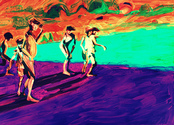
English II Periods 1, 2 & 3
*Make sure you bring your
"Lord of the Flies"book with you to class
Mon. 10/11 through Fri. 10/15
CLASSWORK/HOMEWORK
I.Vocabulary Workshop Level E, Unit 3 - Week 3 (10/11 through 10/15)
Vocabulary Review Thurs. 10/14
Vocabulary Quiz Fri. 10/15
WRITE one sentence for each word - DUE Fri. 10/15
1) accede to yield to; to assume an office or dignity
2) brandish to wave or flourish in a menacing or
vigorous fashion
3) comprise to include or contain; to be made of
4) deft skillful, nimble
5) destitute deprived of the necessities of life; lacking in
6) explicit definite, clearly stated
7) extirpate to tear up by the roots; to destroy totally
8) inopportune coming at a bad time; not appropriate
9) ironic suggesting an incongruity between what
might be expected and what actually happens
10) musty stale, moldy; out-of-date
11) officious meddling; excessively forward in
offering services or assuming authority
12) ominous unfavorable, threatening, of a bad omen
13) pinnacle a high peak or point
14) premeditated considered beforehand,
deliberately planned
15) rampant growing without check, running wild
16) solace comfort, relief; to comfort, console
17) stately dignified, majestic
18) supple bending easily; bending with
agility; readily adaptable; servile
19) suppress to stop by force, put down
20) venal open to or marked by bribery or corruption
II. Grammar: Commas with AND, BUT, and Or (See handout) – Due Tuesday 10/12
III. READ– Lord of the Flies Chapter 4 - Pages 58-75 "Painted Faces & Long Hair" - Read together in class.
IV. HOMEWORK
Lord of the Flies Chapter 4 Questions – Due Tuesday 10/12
1. Which three littluns are playing on the beach as the chapter opens?
2. Who destroys the littluns’ sandcastles?
3. What does Roger do to cruelly bother Henry?
4. What substances and colors does Jack use to paint his face?
5. What item does Piggy suggest they build with a stick?
6. What does Ralph spot on the horizon?
7. Why is the signal fire out?
8. What violence does Jack commit toward Piggy?
9. How did the hunters kill the pig?
--------------------------------------------------------------------------------
REMINDERS:
*LOTF THE BEAST: PROJECT - DUE Wednesday October 13th
Draw a picture of what you perceive the Beast to be. Write (type) a 1/2 page
description of the Beast and explain why you depicted the Beast to look this way.
* LOTF POSTCARDS PROJECT DUE FRIDAY 10/15 (See handout for details)
* Book Report #1- Due Tue. November 2nd (See handout for details)
___________________________________________
*Make sure you bring your
"Lord of the Flies"book with you to class
Mon. 10/11 through Fri. 10/15
CLASSWORK/HOMEWORK
I.Vocabulary Workshop Level E, Unit 3 - Week 3 (10/11 through 10/15)
Vocabulary Review Thurs. 10/14
Vocabulary Quiz Fri. 10/15
WRITE one sentence for each word - DUE Fri. 10/15
1) accede to yield to; to assume an office or dignity
2) brandish to wave or flourish in a menacing or
vigorous fashion
3) comprise to include or contain; to be made of
4) deft skillful, nimble
5) destitute deprived of the necessities of life; lacking in
6) explicit definite, clearly stated
7) extirpate to tear up by the roots; to destroy totally
8) inopportune coming at a bad time; not appropriate
9) ironic suggesting an incongruity between what
might be expected and what actually happens
10) musty stale, moldy; out-of-date
11) officious meddling; excessively forward in
offering services or assuming authority
12) ominous unfavorable, threatening, of a bad omen
13) pinnacle a high peak or point
14) premeditated considered beforehand,
deliberately planned
15) rampant growing without check, running wild
16) solace comfort, relief; to comfort, console
17) stately dignified, majestic
18) supple bending easily; bending with
agility; readily adaptable; servile
19) suppress to stop by force, put down
20) venal open to or marked by bribery or corruption
II. Grammar: Commas with AND, BUT, and Or (See handout) – Due Tuesday 10/12
III. READ– Lord of the Flies Chapter 4 - Pages 58-75 "Painted Faces & Long Hair" - Read together in class.
IV. HOMEWORK
Lord of the Flies Chapter 4 Questions – Due Tuesday 10/12
1. Which three littluns are playing on the beach as the chapter opens?
2. Who destroys the littluns’ sandcastles?
3. What does Roger do to cruelly bother Henry?
4. What substances and colors does Jack use to paint his face?
5. What item does Piggy suggest they build with a stick?
6. What does Ralph spot on the horizon?
7. Why is the signal fire out?
8. What violence does Jack commit toward Piggy?
9. How did the hunters kill the pig?
--------------------------------------------------------------------------------
REMINDERS:
*LOTF THE BEAST: PROJECT - DUE Wednesday October 13th
Draw a picture of what you perceive the Beast to be. Write (type) a 1/2 page
description of the Beast and explain why you depicted the Beast to look this way.
* LOTF POSTCARDS PROJECT DUE FRIDAY 10/15 (See handout for details)
* Book Report #1- Due Tue. November 2nd (See handout for details)
___________________________________________
Thursday, October 7th

English II Periods 1, 2 & 3
*Make sure you bring your
"Lord of the Flies"book with you to class
*CLASSWORK
* No Vocabulary this week
I. TURN IN HOMEWORK TO WIRE RACK - Lord of the Flies Chapter 2 Questions (Handout)
II. CONTINUE DISCUSSING Lord of the Flies - Glossary: British Slang
Record NOTES on the same sheet of paper that you were using for notes last Friday.
Please keep notes as we will be adding to them after reading each chapter. You will
receive 20 points for your notes when completed. Also, use another sheet of paper to
Copy Homework Questions 1-9 LOTF Chapter 3 from digital projection on screen.
III. READ FROM BOOK – Lord of the Flies
Chapter 3 - Pages 48-63 "Huts On The Beach" - Read together in class.
Pass the Conch Shell to take turns reading. Remember only the person
holding the shell may speak, just as it is in Chapter 2 of Lord of the Flies.
(What we don't finish reading in class, please read at home.)
*HOMEWORK
Part A - "Lord of the Flies" Chapter 3 (Questions 1-9) - Due Friday October 8th
Copy Questions 1-9 from digital projection on screen.
1. What sort of weapon is Jack using to hunt pigs?
2. How does Jack know there is a pig in the creepers ahead of him?
3. How are the boys collecting drinking water?
4. Who helps Ralph with the hut building?
5. How many huts have the boys managed to build?
6. What does Jack claim to feel behind him when he hunts?
7. What does Jack suggest will make him a better hunter?
8. Which boy does Jack view as odd?
9. Where does Simon go in the jungle?
Part B - LOTF THE BEAST: PROJECT
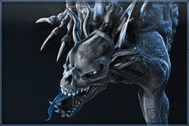
Draw a picture of what you perceive the Beast to be.
Write (type) a 1/2 page description of the Beast and explain
why you depicted the Beast to look this way.
DUE Wednesday October 13th
Write (type) a 1/2 page description of the Beast and explain
why you depicted the Beast to look this way.
DUE Wednesday October 13th
--------------------------------------------------------------
REMINDERS:
* LOTF POSTCARDS PROJECT DUE FRIDAY 10/15 (See handout for details)
* Book Report #1- Due Tue. November 2nd (See handout for details)
____________________________________________
REMINDERS:
* LOTF POSTCARDS PROJECT DUE FRIDAY 10/15 (See handout for details)
* Book Report #1- Due Tue. November 2nd (See handout for details)
____________________________________________
Wednesday, October 6th
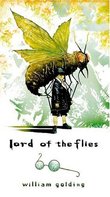
English II Periods 1, 2 & 3
*Make sure you bring your
"Lord of the Flies"book with you to class
*CLASSWORK/HOMEWORK
* No Vocabulary this week
I. TURN IN HOMEWORK TO WIRE RACK - Lord of the Flies / LOST Journal #3
II. READ FROM BOOK – Lord of the Flies
Chapter 2- Pages 32-47 "Fire On The Mountain" - Read together in class.
(What we don't finish reading in class, please read at home.)
HOMEWORK
A. "Lord of the Flies" The Beast Questions 1-6 (Handout) Chapter 2 - Due Thursday October 7th
B. "Lord of the Flies" Questions Chapter 2 Due Thursday October 7th
1. Where does Ralph get the idea for using the conch to speak?
2. Why is Jack so enthusiastic about the possibility of creating rules?
3. Which boy pessimistically introduces the reality that they may never be rescued?
4. Who first mentions “the beastie”?
5. Who is the last to join the boys on the mountain to make a fire?
6. How do the boys start the fire?
7. How does the fire become uncontrollable?
--------------------------------------------------------------
REMINDERS:
* LOTF POSTCARDS PROJECT DUE FRIDAY 10/15 (See handout for details)
* Book Report #1- Due Tue. November 2nd (See handout for details)
_________________________________________________________________________
Tuesday, October 5th
English II Periods 1, 2 & 3
*Make sure you bring your
"Lord of the Flies"book with you to class
Mon. October 4th through Fri. October 8th
Mr. Marzo is out today.
At District Office for Teacher Workshop
*CLASSWORK/HOMEWORK
* No Vocabulary this week
CLASSWORK
Lessons for Substitute Teacher:
I. Grammar Worksheet: Sentence Fragments and Run-On Sentences. – Due Today
(Grammar handouts on my desk. Students make corrections on worksheet. Once they have
completed this assignment, please review answers with them. The answer key is also
located on my desk.)
II. Students should finish WATCHING "LOST" Episode 1- There is about 15 minutes left (Counter # 29:08) and the film is located on the desktop of my computer in the form of an AVI File. I will be there in the morning [7:30] to explain how to show the film from my computer.) Students will continue to Take Notes on the handout that I distributed to them on Monday. (There are extra copies on my desk)
HOMEWORK
III. Journal #3 – Use your Notes &"Lord of the Flies" Chapter 1 to WRITE 2 pages
(Double Spaced, Typed, #12 Arial Font, 1" Margins)
Directions: Compare "LOST" Episode 1 to "Lord of the Flies" Chapter 1. How are
they different, how are they similar? You can compare plot, setting,
characters, etc. There are lots of parallels in both stories - Due Wed. October 6th
----------------------------------------------------------------
REMINDERS:
* LOTF POSTCARDS PROJECT DUE FRIDAY 10/15 (See handout for details)
* Book Report #1- Due Tue. November 2nd (See handout for details)
__________________________________________________________________________
Monday, October 4th
English II Periods 1, 2 & 3
*Make sure you bring your
"Lord of the Flies"book with you to class
Mon. October 4th through Fri. October 8th
*CLASSWORK/HOMEWORK
* No Vocabulary this week
I. D.O.L. (Daily Oral Language) #2 - Hand in along with "LOST" Notes on Wednesday 10/6
II. WATCH "LOST" Episode 1- Take Notes - Due Wednesday 10/6
III. Journal #3 - WRITE 2 pages (Double Spaced, Typed, #12 Arial Font, 1" Margins)
Directions: Compare"LOST" Episode 1 to "Lord of the Flies" Chapter 1. How are
they different, how are they similar? You can compare plot, setting, characters, etc.
Due Wednesday October 6th
------------------------------------------------------------------
REMINDERS:
* LOTF POSTCARDS PROJECT DUE FRIDAY 10/15 (See handout for details)
* Book Report #1- Due Tue. November 2nd (See handout for details)
______________________________________________________________________________
Homework / Classwork -Fall 2010
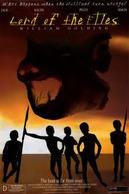
Friday, October 1st
English II Periods 1, 2 & 3
*Make sure you bring your
"Lord of the Flies"book with you to class
Mon. October 4th through Fri. October 8th
*CLASSWORK/HOMEWORK
I. TURN IN HOMEWORK TO WIRE RACK - Vocabulary #2 Sentences
II. Vocabulary #2 Quiz Today! (Matching-20 Questions = 40 points)
III. CONTINUE DISCUSSING Lord of the Flies Chapter 1
Record NOTES on the same sheet of paper that you were using for notes yesterday.
Please keep notes as we will be adding to them after reading each chapter. You will
receive 20 points for your notes when completed.
IV. REVIEW LOTF POSTCARDS PROJECT-DUE FRIDAY 10/15 (Handout)
V. HOMEWORK: No weekend homework
--------------------------------------------------------------
REMINDERS:
* LOTF POSTCARDS PROJECT DUE FRIDAY 10/15 (See handout for details)
* Book Report #1- Due Tue. November 2nd (See handout for details)
_________________________________________________________________________________
Thursday, September 30th
English II Periods 1, 2 & 3
*Make sure you bring your
"Lord of the Flies"book with you to class
Mon. September 27th through Fri. October 1st
*CLASSWORK/HOMEWORK
I. TURN IN HOMEWORK TO WIRE RACK -
LOTF Character Journal & Symbolism Handout (Double Sided) Due Today!
II. CONTINUE DISCUSSING LORD of the Flies Introduction and Chapter 1 -
Record NOTES on the same sheet of paper that you were using for notes yesterday.
Please keep notes as we will be adding to them after reading each chapter. You will receive 20
points for your notes when completed.
III. Vocab #2 - Review
Vocab #2 Quiz and sentences due Friday 10/1
IV. HOMEWORK:
* Study for Friday's Vocabulary#2 Quiz
* WRITE 1 complete sentence for each vocabulary word - Due Fri. Oct. 1st
--------------------------------------------------------------
REMINDERS:
* Vocabulary Workshop #2 - Level E (9/27 through 10/1)
WRITE 1 complete sentence for each word - Due Fri. Oct. 1st (Homework)
Vocab #2 Quiz Friday 10/1
* Book Report #1- Due Tue. November 2nd (See handout for details)
___________________________________________________________________________
Wednesday, September 29th
English II Periods 1, 2 & 3
*Make sure you bring your
"Lord of the Flies" book with you to class
Mon. September 27th through Fri. October 1st
*CLASSWORK/HOMEWORK
I. TURN IN HOMEWORK TO WIRE RACK - 2 Assignments Due Today!
A. Lord of the Flies - Handout (Double Sided)
Foreshadowing: Jack's Violent Nature & Theme Analysis: Death/Destruction
B. LOTF Questions # 1-24, Chapter 1 Pages 7-21 - Handout
II. DISCUSS LORD of the Flies Introduction and Chapter 1 - Take NOTES on your own sheet of paper.
Note: Please Keep notes as we will be adding to them after reading each chapter.
You will receive 20 points for your notes when completed.
III.CLASSWORK:
LOTF Character Journal & Symbolism: The Conch & the Scar Handout (Double Sided)
What you don't complete in class, finish at home - DUE Thursday September 30th
IV. HOMEWORK:
* If you didn't finish the LOTF Character Journal & Symbolism Handout in class, complete at home - DUE 9/30
* WRITE 1 complete sentence for each vocabulary word - Due Fri. Oct. 1st
--------------------------------------------------------------
REMINDERS:
* Vocabulary Workshop #2 - Level E (9/27 through 10/1)
WRITE 1 complete sentence for each word - Due Fri. Oct. 1st (Homework)
Vocab #2 Review Thursday 9/30 - Vocab #2 Quiz Friday 10/1
* Book Report #1- Due Tue. November 2nd (See handout for details)
____________________________________________________________________
Tuesday, September 28th
English II Periods 1, 2 & 3
*Make sure you bring your
"Lord of the Flies" book with you to class
Mon. September 27th through Fri. October 1st
*CLASSWORK/HOMEWORK
I. QUIZ - "The Lottery" and "The Handsomest Drowned Man in the World"
(12 Questions, 24 Points)
II. The Writer's Craft (Orange Book) - Read Pages 42-45 - Compose
a one page letter. Please print neatly & double space.(Classwork) DUE TODAY!
Turn into wire rack when complete.
III. Lord of the Flies - Handouts - DUE TODAY!
Turn into wire rack when complete.
A. Abandoned - Foreshadowing (Handout)
B. Theme Analysis: Death and Destruction (Handout)
IV. HOMEWORK - Due Wednesday 9/30/10
* Continue Working on LOTF Questions # 1-24, Chapter 1 Pages 7-21
(See Handout for questions)
* WRITE 1 complete sentence for each vocabulary word - Due Fri. Oct. 1st
--------------------------------------------------------------
REMINDERS:
* Back to School Night - Tonight at 6:00 PM - Tuesday, September 28th
12 EXTRA CREDIT POINTS for students whose parent's attend.
* Vocabulary Workshop #2 - Level E (9/27 through 10/1)
WRITE 1 complete sentence for each word - Due Fri. Oct. 1st (Homework)
Vocab #2 Review Thursday 9/30 - Vocab #2 Quiz Friday 10/1
* Book Report #1- Due Tue. November 2nd (See handout for details)
____________________________________________________________________
Monday, September 27th
English II Periods 1, 2 & 3
*Make sure you bring your
"Lord of the Flies" book with you to class
Mon. September 27th through Fri. October 1st
*CLASSWORK/HOMEWORK
I. Vocabulary Workshop #2 - Level E (9/27 through 10/1)
altruistic (adj.) unselfish, concerned with the welfare of others, selfless
assent (v.) (n.) to express agreement, agreement, concur, consent, accede
benefactor (n.) patron, humanitarian
chivalrous (adj.) marked by honor, courtesy, and courage; gallant, civil, valiant
clemency (n.) mercy, humaneness, mildness, moderateness leniency,
dearth (n.) a lack, scarcity, inadequate supply; a famine, paucity
diffident (adj.) shy, lacking self-confidence; modest, reserved, bashful,
discrepancy (n.) a difference; a lack of agreement, divergence, inconsistency
embark (v.) to go aboard; to make a start; to invest, commence
facile (adj.) easily done or attained; superficial; ready, fluent;
indomitable (adj.) unconquerable, refusing to yield, unyielding
infallible (adj.) free from error; absolutely dependable, unerring, certain
plod (v.) to walk heavily or slowly; to work slowly , lumber, trudge
pungent (adj.) causing a sharp sensation; stinging, biting, piquant, caustic,
remiss (adj.) neglectful in performance of one's duty, carelessness
repose (v.) (n.) to rest; lie; place; relaxation, peace of mind, calmness, respite
temerity (n.) rashness, boldness, effrontery, foolhardiness
truculent (adj.) fierce and cruel; aggressive; deadly, destructive; scathingly
unfeigned (adj.) sincere, real, without pretense, genuine, heartfelt
virulent (adj.) extremely poisonous, full of malice; spiteful, venomous,
*WRITE 1 complete sentence for each word - Due Fri. Oct. 1st (Homework)
Vocab Review Thursday 9/30 - Vocab Quiz Friday 10/1
II. *LOTF Journal #2 (In class writing. Write one paragraph answers for each question)
Pre-reading questions help you explore your own views in order to uncover important
themes in the novel.
Directions: Write down your response to each of the questions below. Keep this handout.
You will need it after you finish reading the novel.
1. What elements do you need to create a society?
2. Why do you think governments are or are not necessary?
3. How much time should people give to working as opposed to having fun? Why?
4. How should we treat people who have disabilities?
5. What are the best ways to hold people accountable for their actions?
III. READ FROM BOOK – Lord of the Flies
Chapter 1- Pages 7-21 "The Sound of the Shell" - Follow along with CD
(What we don't finish reading in class, please read at home.)
IV. HOMEWORK - Due Wednesday 9/30/10
LOTF Questions # 1-24, Chapter 1 Pages 7-21 (See Handout or questions posted below)
The Sound of the Shell
1- What are "Screwed up eyes"?2- What are the first intimations that Piggy is a rather lower-class person? How does he tell us by speech, movement and social action with Ralph?
3 - How does Ralph treat Piggy? Coiuld this be a personal reaction, or a class consciousness reaction? How would you be able to know?
4 - What is the setting that you are given in the first chapter? How would the word "Idyllic" be brought to bear?
5 - What is the forshadowing you receive that all may not be well in paradise? Give specific details.
6 - What role do adults fill in the boys' lives? What do the boys do when there are no longer any adults available to be present?
7 - Are people basically sheep or goats in your view? What makes you support this opinion?
8 - The explorers go up... way up... but they only go up to see and claim the island as their own. What other historical figures have done this same sort of thing? Thus, are the boys typical or a-typical?
9 - What could indicate that some people in the tattered little band want power? Give some detail in your answer.
10 - What is the evidence of the plane wreck? What seems to be missing?
11 - If Piggy doesn't want to be Piggy anymore, why does he confess that this has been his hated name all along? What does this revelation get him?
12 - The conch shell fulfils a ritual need for many of the boys. Describe it. How do you know that Piggy has never tried to blow a musical instrument?
13 - What is the diet of fruit doing to the boys?
14 - The three boys go exploring and topple a huge rock into the jungle below a precipice. Using parallels to the society you are a part of, would you say that this is an adult or youthful thing to do?
15 - What is Piggy's reaction to Ralph's nakedness?
16 - What is a "cirque"? A "coign"?
17 - "The blade continued to flash at the end of the bioys arm..." What sort of thing seems to be going through Jack's head? What does he do or not do? What is his promise?
18 - How do you know the pig is terrified?
19 - "This toy of voting..." For the boys, voting seems to be a popularity contest, or one where the vote cast is pre-ordained. Why do the boys who vote for Jack, or for Ralph, vote the way they do? Could this be a reflection of voting in our "democratic" society? What could be the responsibility of a voter before voting?
20 - The boys show an insistant need for certainty in their lives whether on the island or not. Describe some of the evidence you find for this.
21 - Jack Merridew is the leader of what? What are his qualifications in his eyes? What might be his qualifications in the eyes of the person/people who appointed him?
22 - Piggy accepts Jack's telling him to "Shut up, fatty". Why?
23 - Jack collects power for himself. Ralph gets it by delegating responsibility. Find evidence for both their styles.
24 - There was a "Communion of shining eyes in the gloom" after pushing the huge rock down. What is the communion about?
--------------------------------------------------------------
REMINDERS:
* REVIEW Notes - "The Lottery" and "The Handsomest Drowned Man in the World"
We will be taking a Short Quiz over both stories on Tuesday Sept. 28th
"Back to School Night" 12 EXTRA CREDIT POINTS for students whose parent's attend BTSN.
Vocab #2 Review Thursday 9/30 - Vocab #2 Quiz Friday 10/1
*WRITE 1 complete sentence for each word - Due Fri. Oct. 1st (Homework)
* Book Report #1- Due Tue. November 2nd (See handout for details)
____________________________________________________________________
Homework / Classwork -Fall 2010
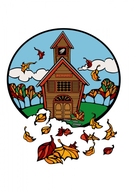
Friday, September 24th
English II Periods 1, 2 & 3
*Make sure you bring your
"Lord of the Flies" book with you to class
Mon. September 27th through Fri. October 1st
*CLASSWORK/HOMEWORK
*No Vocabulary this week
I. HAND IN HOMEWORK - "Contents of the Dead Man's Pocket"
Writing "Just Add the Details"Lit. Book Page 19
II. Watch short film "Contents of the Dead Man's Pocket"
III. We will be checking out Lord of the Flies from the library today
Book Check Out Times
Period 1 - 8:30
Period 2 - 9:30
Period 3 - 10:30
------------------------------------------------
IV. NO Weekend HOMEWORK
REMINDERS:
* REVIEW Notes - "The Lottery" and "The Handsomest Drowned Man in the World"
We will be taking a Short Quiz over both stories on Tuesday Sept. 28th
* Book Report #1- Due Tue. November 2nd (See handout for details)
____________________________________________________________________
Thursday, September 23rd
English II Periods 1, 2 & 3
*Make sure you bring your
"LITERATURE BOOK" with you to class
Wed. September 22nd through Thurs. September 23rd
*CLASSWORK/HOMEWORK
*No Vocabulary this week
I. HAND IN HOMEWORK - "Contents of the Dead Man's Pocket" Questions 2-7 Lit. Book Page 19
II. Journal # 1 -Write 1/2 Page discussing the stories "Handsomest Drown Man" and "The Lottery. Compare and contrast the societies that exist in both stories. How are the people's lives similar, how are they different? What themes
do both stories share? - Due today 9/23/10
III. DISCUSS - "Contents of the Dead Man's Pocket" by Jack Finney - Literature Book Pages 4 - 17
Continue TAKING NOTES. Copy from Whiteboard: Plot (Sequence of events), Cause, Effect, Setting,
Conflict, Suspense, Theme, Characters
-------------------------------------------------
IV. HOMEWORK - Due Friday 9/24/10
A. WRITE -See Literature Book Page 19
Writing "Just Add the Details" Write your a short narrative ( 1 or 2 paragraphs) about a suspenseful experience that you have had. Use sensory detail (vision, hearing, smell, taste, and touch) when writing.
Try to develop a similar writing style like the author of "Contents of the Dead Man's Pocket."
DUE FRIDAY 9/24
REMINDERS:
* We will be checking out Lord of the Flies from the library on Friday 9/24
Don't forget to bring your Student ID!
Book Check Out Times
Period 1 - 8:30
Period 2 - 9:30
Period 3 - 10:30
* Book Report #1- Due Tue. November 2nd (See handout for details)
______________________________________
Wednesday, September 22nd
English II Periods 1, 2 & 3
*Make sure you bring your
"LITERATURE BOOK" with you to class
Wed. September 22nd through Thurs. September 23rd
*CLASSWORK/HOMEWORK
*No Vocabulary this week
I. HAND IN HOMEWORK - "The Lottery Questions"
II. DISCUSS - "The Lottery" and "The Handsomest Drowned Man in the World"
COPY NOTES from Whiteboard
--------------------------------------------------
III. HOMEWORK - Due Thursday 9/23/10
A. READ "Contents of the Dead Man's Pocket" by Jack Finney - Literature Book Pages 4 - 17
or online at http://abcusdcerritoshsmarzo2.weebly.com/short-stories.html
B. QUESTIONS - Answer Q 2 - 7 Page 19 in Literature Book -DUE THURSDAY 9/23
REMINDERS:
* We will be checking out Lord of the Flies from the library on Friday 9/24
Don't forget to bring your Student ID!
Book Check Out Times
Period 1 - 8:30
Period 2 - 9:30
Period 3 - 10:30
* Book Report #1- Due Tue. November 2nd (See handout for details)
______________________________________
Friday, September 17th
READ: "The Handsomest Drowned Man in the World" (Handout)
Answer Questions 1-6- Due at the end of class today.
1) What does Esteban symbolize in "The Handsomest
Drowned Man in the World"? Why?
2) What does the story say about Myth and the Human Condition?
3) How does the villager's attitude toward the drowned man
change over the course of thew story?
4) What role does nostalgia (state of being homesick) play in the story?
5) what ultimate effect does the arrival of the
drowned man have on the villager's lives?
6) What example of Magical Realism can you find in the story?
Magical Realism - a branch of serious fiction, which is not written
as a means escape, but instead to engage the reader. Serious fiction
helps us to name our world and see our place in it. It conveys or explores truth.
REMINDERS:
BMU Voodoo Doll, Golden Carp or Magical Realism Surrealistic Art
Extra Credit Due Thursday March 18th (40 points)
http://abcusdcerritoshsmarzo2.weebly.com/bless-me-ultima.html
Book Report #3- Due Wed April 14th
(Download instructions by clicking on the link below or click on BOOK RPTS Tab at top of page for details)
http://www.weebly.com/uploads/2/8/7/9/2879085/graphic_novels.docx
________________________________________
No Data. March 11th - March 12th
Problem while parsing the module. Not valid XML.
_________________________________________
Wednesday, March 10th
Please bring your BMU Book with you to class
Thursday March 11th through Fri. March 12th
*CLASSWORK/HOMEWORK
English Periods 4 & 5
All 10th graders English Periods 4 & 5 go to the theater for
school registration presentation facilitated by counselors
*QUESTIONS - 1-5 from handout and BMU Chapter 22
homework questions - Due Today along with your 5-paragraph
Symbolic Painting Essay
*Vocabulary #13- Workshop Level E Unit 13 - Week 26 (03/08 through 03/12)
WRITE one sentence for each word - DUE Friday 03/12/10
Vocab Review Thursday 03/11/10 - Vocab Test Friday 03/12/10
Term Definition
1)antipathy a strong dislike, hostile feeling
2)applicable capable of being applied; relevant, suitable
3)asset something of value; a resource; an advantage
4)beset to attack from all sides; to surround, harassed, troubled; studded (as with jewels)
5)compassion sympathy for another's suffering; pity
6)decorum proper behavior, good taste; orderliness
7)duress compulsion by threat; forcible confinement
8)exuberant high-spirited, enthusiastic, unrestrained; excessive, abundant
9)facsimile an exact copy
10)imbibe to drink; to take in, absorb
11)implacable not to be satisfied or pacified; unyielding
12)infinitesimal so small as to be almost immeasurable; minute
13)innocuous harmless, inoffensive; insignificant
14)militate to have effect or force on or against someone or something, fight against
15)patent exclusive rights ; copyright, to arrange or obtain such rights, plain, open to view
16)prowess distinguished bravery; superior skill or ability
17)sedate quiet, settled, sober, to administer a tranquilzer
18)stentorian extremely loud
19)stipulate to arrange specifically; to require as a condition of agreement
20)ultimatum a final proposal or statement of conditions
REMINDERS:
Symbolic Painting Essay - DUE TODAY!
BMU Voodoo Doll, Golden Carp or Magical Realism Surrealistic Art
Extra Credit Due Thursday March 18th (40 points)
http://abcusdcerritoshsmarzo2.weebly.com/bless-me-ultima.html
Book Report #3- Due Wed April 14th
(Download instructions by clicking on the link below or click on BOOK RPTS Tab at top of page for details)
http://www.weebly.com/uploads/2/8/7/9/2879085/graphic_novels.docx
_______________________________________
Tuesday, March 9th
Please bring your BMU Book with you to class
Mon. March 8th through Tuesday March 9th and
Thursday March 11th through Fri. March 12th
*CLASSWORK/HOMEWORK
English Periods 4 & 5
*READ “Bless Me Ultima” Chapter 22
*QUESTIONS - Answer Questions 1-5 from handout. Due at the end of period.
The remaining question on the handout for BMU Chapter 22 are homework
and should be turned in on Wednesday March 10th along with your 5-paragraph
Symbolic Painting Essay
*Vocabulary #13- Workshop Level E Unit 13 - Week 26 (03/08 through 03/12)
WRITE one sentence for each word - DUE Friday 03/12/10
Vocab Review Thursday 03/11/10 - Vocab Test Friday 03/12/10
Term Definition
1)antipathy a strong dislike, hostile feeling
2)applicable capable of being applied; relevant, suitable
3)asset something of value; a resource; an advantage
4)beset to attack from all sides; to surround, harassed, troubled; studded (as with jewels)
5)compassion sympathy for another's suffering; pity
6)decorum proper behavior, good taste; orderliness
7)duress compulsion by threat; forcible confinement
8)exuberant high-spirited, enthusiastic, unrestrained; excessive, abundant
9)facsimile an exact copy
10)imbibe to drink; to take in, absorb
11)implacable not to be satisfied or pacified; unyielding
12)infinitesimal so small as to be almost immeasurable; minute
13)innocuous harmless, inoffensive; insignificant
14)militate to have effect or force on or against someone or something, fight against
15)patent exclusive rights ; copyright, to arrange or obtain such rights, plain, open to view
16)prowess distinguished bravery; superior skill or ability
17)sedate quiet, settled, sober, to administer a tranquilzer
18)stentorian extremely loud
19)stipulate to arrange specifically; to require as a condition of agreement
20)ultimatum a final proposal or statement of conditions
REMINDERS:
Symbolic Painting Essay - DUE March 10, 2010
Write an essay interpreting the symbolic content of the "Curandera"
Painting or any other paintings that are pictured at the following link:
http://abcusdcerritoshsmarzo2.weebly.com/bless-me-ultima.html
Example of structure:
1st Paragraph - "Hook," main topic sentence, thesis statement
2nd Paragraph - The painting, "Curandera," is filled with organic and magical symbolism.
(Describe the symbols you have found in the painting.)
3rd Paragraph - Explain the meaning of each symbol.
4th Paragraph - State the importance of the symbolism in this painting.
5th Paragraph - Conclusion
BMU Voodoo Doll, Golden Carp or Magical Realism Surrealistic Art
Extra Credit Due Thursday March 18th (40 points)
http://abcusdcerritoshsmarzo2.weebly.com/bless-me-ultima.html
Book Report #3- Due Wed April 14th
(Download instructions by clicking on the link below or click on BOOK RPTS Tab at top of page for details)
http://www.weebly.com/uploads/2/8/7/9/2879085/graphic_novels.docx
_______________________________________Monday, March 8th
Please bring your BMU Book with you to class
Mon. March 8th through Fri. March 12th
*CLASSWORK/HOMEWORK
English Periods 4 & 5
Complete warm up exercises in the English-Language Arts CHSEE
Study Guide. Practice Tests Pages 17 – 21 in workbook.
*READ together “Bless Me Ultima” Chapter 21 - Pages 236 – 242
*Vocabulary #13- Workshop Level E Unit 13 - Week 26 (03/08 through 03/12)
WRITE one sentence for each word - DUE Friday 03/12/10
Vocab Review Thursday 03/11/10 - Vocab Test Friday 03/12/10
Term Definition
1)antipathy a strong dislike, hostile feeling
2)applicable capable of being applied; relevant, suitable
3)asset something of value; a resource; an advantage
4)beset to attack from all sides; to surround, harassed, troubled; studded (as with jewels)
5)compassion sympathy for another's suffering; pity
6)decorum proper behavior, good taste; orderliness
7)duress compulsion by threat; forcible confinement
8)exuberant high-spirited, enthusiastic, unrestrained; excessive, abundant
9)facsimile an exact copy
10)imbibe to drink; to take in, absorb
11)implacable not to be satisfied or pacified; unyielding
12)infinitesimal so small as to be almost immeasurable; minute
13)innocuous harmless, inoffensive; insignificant
14)militate to have effect or force on or against someone or something, fight against
15)patent exclusive rights ; copyright, to arrange or obtain such rights, plain, open to view
16)prowess distinguished bravery; superior skill or ability
17)sedate quiet, settled, sober, to administer a tranquilzer
18)stentorian extremely loud
19)stipulate to arrange specifically; to require as a condition of agreement
20)ultimatum a final proposal or statement of conditions
REMINDERS:
Symbolic Painting Essay - DUE March 10, 2010
Write an essay interpreting the symbolic content of the "Curandera"
Painting or any other paintings that are pictured at the following link:
http://abcusdcerritoshsmarzo2.weebly.com/bless-me-ultima.html
Example of structure:
1st Paragraph - "Hook," main topic sentence, thesis statement
2nd Paragraph - The painting, "Curandera," is filled with organic and magical symbolism.
(Describe the symbols you have found in the painting.)
3rd Paragraph - Explain the meaning of each symbol.
4th Paragraph - State the importance of the symbolism in this painting.
5th Paragraph - Conclusion
BMU Voodoo Doll, Golden Carp or Magical Realism Surrealistic Art
Extra Credit Due Thursday March 18th (40 points)
http://abcusdcerritoshsmarzo2.weebly.com/bless-me-ultima.html
Book Report #3- Due Wed April 14th
(Download instructions by clicking on the link below or click on BOOK RPTS Tab at top of page for details)
http://www.weebly.com/uploads/2/8/7/9/2879085/graphic_novels.docx
_______________________________________
Friday, March 5th
Please bring your BMU Book with you to class
Mon. March 8th through Fri. March 12th
*CLASSWORK/HOMEWORK
English Periods 4 & 5
* Bless Me Ultima Review Sheet (Handout)
a. Journal
b. Fill in the blanks chapter review
c. BMU Chapter Questions
All due at the end of the period.
REMINDERS:
Symbolic Painting Essay - DUE March 10, 2010
Write an essay interpreting the symbolic content of the "Curandera"
Painting or any other paintings that are pictured at the following link:
http://abcusdcerritoshsmarzo2.weebly.com/bless-me-ultima.html
Example of structure:
1st Paragraph - "Hook," main topic sentence, thesis statement
2nd Paragraph - The painting, "Curandera," is filled with organic and magical symbolism.
(Describe the symbols you have found in the painting.)
3rd Paragraph - Explain the meaning of each symbol.
4th Paragraph - State the importance of the symbolism in this painting.
5th Paragraph - Conclusion
BMU Voodoo Doll, Golden Carp or Magical Realism Surrealistic Art
Extra Credit Due Thursday March 18th (40 points)
http://abcusdcerritoshsmarzo2.weebly.com/bless-me-ultima.html
Book Report #3- Due Wed April 14th
(Download instructions by clicking on the link below or click on BOOK RPTS Tab at top of page for details)
http://www.weebly.com/uploads/2/8/7/9/2879085/graphic_novels.docx
_______________________________________
No Data. March 2nd - March 4th
Problem while parsing the module. Not valid XML.
_________________________________________
Monday, March 1st
*Make sure you bring your "Bless Me Ultima" book
with you to class Tues. March 2nd through Fri. March 5th
*CLASSWORK/HOMEWORK
English Periods 4 & 5
*No Vocabulary this week
*READ Bless Me Ultima Chapters 18 -20 for homework.
Pages 203 - 235
*HOMEWORK QUESTIONS: Bless Me Ultima Chapters 18 -20
Due Tues. March 2nd
Chapters 18-20 (Dieciocho-Veinte) Questions
1. Who haunted Antonio's nightmares, and why?
2. What did Samuel think would make things easier for Florence?
3. Describe the events that happened when Antonio was on his way to church for his first
confession.
4. Florence said he had not sinned, but had been sinned against. Who had sinned against him,
and how?
5. What did Antonio expect to happen after he made his first communion, and what really did
happen?
6. What did Antonio do every weekend after Easter, and what was the result?
7. Describe the curse on the family near Agua Negra.
8. What was the cause of the curse, according to Ultima?
9. How did Ultima remove the curse?
10. What was Antonio's dream about the night they returned from Agua Negra?
REMINDERS:
BMU Voodoo Doll, Golden Carp or Magical Realism Surrealistic Art
Extra Credit Due Thursday March 18th (40 points)
http://abcusdcerritoshsmarzo2.weebly.com/bless-me-ultima.html
Book Report #3- Due Wed April 14th
(Download instructions by clicking on the link below or click on BOOK RPTS Tab at top of page for details)
http://www.weebly.com/uploads/2/8/7/9/2879085/graphic_novels.docx
_______________________________________
No Data. Feb. 25th - Feb 26th
Problem while parsing the module. Not valid XML.
_________________________________________
Wednesday, February 24th
*Make sure you bring your "Bless Me Ultima" book
with you to class Wed. Feb 24th through Fri. Feb 26th
*CLASSWORK/HOMEWORK
English Periods 4 & 5
*READ Bless Me Ultima Chapters 15 together in class
(READ Chapters 16 & 17 at home)
*HOMEWORK QUESTIONS: Bless Me Ultima Chapters 15, 16 & 17
(Copy from white board)Due Thursday 02/25/10
*Vocabulary #12- Workshop Level E Unit 11 - Week 24 (02/22 through 02/26)
WRITE one sentence for each word - DUE Friday 02/26/10
Vocab Review Thursday 02/25/10 - Vocab Test Friday 02/26/10
REMINDERS:
BMU Voodoo Doll, Golden Carp or Magical Realism Surrealistic Art
Extra Credit Due Thursday March 18th (40 points)
http://abcusdcerritoshsmarzo2.weebly.com/bless-me-ultima.html
_________________________________________
Tuesday, February 23rd
*CLASSWORK/HOMEWORK
English Periods 4 & 5
*Bless Me Ultima Conflict Handout & Journal-Due Today!
*Vocabulary #12- Workshop Level E Unit 11 - Week 24 (02/22 through 02/26)
WRITE one sentence for each word - DUE Friday 02/26/10
Vocab Review Thursday 02/25/10 - Vocab Test Friday 02/26/10
Term Definition
1) allude (v.) to refer to casually or indirectly
2) clairvoyant (adj.) supernaturally perceptive; (n.) one who possesses extrasensory powers, seer
3) disreputable (adj.) not respectable, not esteemed
4) endemic (adj.) native or confined to a particular region or people;characteristic of or prevalent in a field
5) exemplary (adj.) worthy of imitation, commendable; serving as a model
6) fathom (v.) to understand, get to the bottom of; to determine the depth of; (n.) a measure of depth in water
7) guile (n.) treacherous cunning, deceit
8) integrity (n.) honestly, high moral standards; an unimpaired condition, completeness, soundness
9) itinerary (n.) a route of travel; a record of travel; a guidebook
10) misconstrue (v.) to interpret wrongly, mistake the meaning of
11) obnoxious (adj.) highly offensive, arousing strong dislike
12) placate (v.) to appease, soothe, pacify
13) placid (adj.) calm, peaceful
14) plagiarism (n.) passing off or using as one's own the writing (or other materials) of another person
15) potent (adj.) powerful; highly effective
16) pretext (n.) a false reason, deceptive excuse
17) protrude (v.) to stick out, thrust forth
18) stark (adj.) harsh, unrelieved, desolate; (adv.) utterly
19) superficial (adj.) on or near the surface; concerned with or understanding only what is on the surface, shallow
20) conclusive (adj.) serving to settle an issue; final
REMINDERS:
BMU Voodoo Doll, Golden Carp or Magical Realism Surrealistic Art
Extra Credit Due Thursday March 18th (40 points)
http://abcusdcerritoshsmarzo2.weebly.com/bless-me-ultima.html
_________________________________________
Monday, February 22nd
School Holiday
_________________________________________
Friday, February 19th
*CLASSWORK/HOMEWORK
*English Periods 4 & 5
Hand in Bless Me Ultima Chapter 13/14 QUESTIONS - Due Today!
REMINDERS:
BMU Voodoo Doll, Golden Carp or Magical Realism Surrealistic Art
Extra Credit Due Thursday March 18th (40 points)
http://abcusdcerritoshsmarzo2.weebly.com/bless-me-ultima.html
_______________________________________
No Data. Feb. 11th - Feb 18th
Problem while parsing the module. Not valid XML.
_________________________________________
Wednesday, February 10th
*Make sure you bring your "Bless Me Ultima" book
with you to class Mon. Feb 8th through Fri. Feb 12th
*English Periods 4 & 5
Hand in Bless Me Ultima Chapter 10 QUESTIONS (1-10)
*CLASSWORK/HOMEWORK
*English Periods 4 & 5
READ Bless Me Ultima Novel Chapter 11
(What we don't finish reading in class, read at home.)
*English Periods 4 & 5
Bless Me Ultima
Chapter Once (11)
Standard 3.0, 3.7, 3.8
Journal: The Golden Carp Re-imagined
Write 1 Page Using words, symbols, or pictures to represent
the story of the golden carp as told to Antonio. This
representation should reflect not just the literal story
but also the implications (meanings) it has for Antonio.
DUE Thursday FEB 11th
*VOCABULARY #11 (Level E, Unit 7 ) - Week 21 - WRITE one sentence for each word
DUE Friday 02/12/10 - TEST over all 20 words - Friday 02/12/10
(Click on VOCABULARY TAB at top of page or on the link below for the list of words)
http://abcusdcerritoshsmarzo2.weebly.com/vocabulary.html
REMINDERS:
BMU Voodoo Doll, Golden Carp or Magical Realism Surrealistic Art
Extra Credit Due Thursday March 18th (40 points)
http://abcusdcerritoshsmarzo2.weebly.com/bless-me-ultima.html
_________________________________________
Tuesday, February 9th
*Make sure you bring your "Bless Me Ultima" book
with you to class Mon. Feb 8th through Fri. Feb 12th
*CLASSWORK/HOMEWORK
*English Periods 4 & 5
Bless Me Ultima Novel Chapter 10 QUESTIONS - DUE Wed. 02/10
1. Which of Tony’s uncles is sick?
2. Why didn’t the priest ask Ultima to come sooner?
3. True of False: When Tenorio makes the sign of the cross, Ultima flinches.
4. On pg. 98, Ultima explains why she & Antonio do not need to be afraid. What is her reason?
5. How does Ultima’s owl protect them as they cure Tony’s uncle?
6. True or False: Antonio feels his uncle’s pain as Ultima cures him.
7. What “evil” does his uncle vomit?
8. How long were Ultima & Tony in the room with his uncle?
9. Where does Ultima take the sack of “evil”?
10. What does she do with it there?
*English Periods 4 & 5
READ Bless Me Ultima Novel Chapter 10 together in class
(What we don't finish reading in class, read at home.)
*VOCABULARY #11 (Level E, Unit 7 ) - Week 21 - WRITE one sentence for each word
DUE Friday 02/12/10 - TEST over all 20 words - Friday 02/12/10
(Click on VOCABULARY TAB at top of page or on the link below for the list of words)
http://abcusdcerritoshsmarzo2.weebly.com/vocabulary.html
REMINDERS:
BMU Voodoo Doll, Golden Carp or Magical Realism Surrealistic Art
Extra Credit Due Thursday March 18th (40 points)
http://abcusdcerritoshsmarzo2.weebly.com/bless-me-ultima.html
_________________________________________
Monday, February 8th
*Make sure you bring your "Bless Me Ultima" book
with you to class Mon. Feb 8th through Fri. Feb 12th
* Hand in BMU Homework Questions.
*CLASSWORK/HOMEWORK
*English Periods 4 & 5
READ Bless Me Ultima Novel Chapter 9
*VOCABULARY #11 (Level E, Unit 7 ) - Week 21 - WRITE one sentence for each word
DUE Friday 02/12/10 - TEST over all 20 words - Friday 02/12/10
(Click on VOCABULARY TAB at top of page or on the link below for the list of words)
http://abcusdcerritoshsmarzo2.weebly.com/vocabulary.html
REMINDERS:
BMU Voodoo Doll, Golden Carp or Magical Realism Surrealistic Art
Extra Credit Due Thursday March 18th (40 points)
http://abcusdcerritoshsmarzo2.weebly.com/bless-me-ultima.html
_________________________________________
No Data. Jan. 20th - Feb 7th
Problem while parsing the module. Not valid XML.
_________________________________________
Tuesday, January 19th
*Make sure you bring "Bless Me Ultima"
with you to class today.
*CLASSWORK/HOMEWORK
VOCABULARY #10 (Bless Me Ultima) - Week 19 - WRITE one sentence for each word
DUE Friday 01/22/10 - TEST over all 33 words - Friday 01/22/10
Bless Me Ultima - Chapter 2 Questions
1. Quote an example of foreshadowing on page 15.
2. What is the name of the man who killed the sheriff?
3. How is he (the guy from #2) sick?
4. Describe the presence of the river, using Antonio’s words.
5. How do Gabriel & Narciso differ from the rest of the mob on the bridge?
6. What “mortal sin” is Antonio afraid the mob will commit?
7. What does Antonio hear Lupito shout before he dies?
8. How does the owl affect Antonio after the event at the river?
9. What are the names of Antonio’s 3 brothers?
10. Identify the only person who knows Antonio was at the river that night.
REMINDERS:
PowerPoint Book Report #2 - DUE JAN. 25th 2010
(See Classroom Website - BOOK RPTS Tab and handout for details)
English II Periods 1, 2 & 3
*Make sure you bring your
"Lord of the Flies" book with you to class
Mon. September 27th through Fri. October 1st
*CLASSWORK/HOMEWORK
*No Vocabulary this week
I. HAND IN HOMEWORK - "Contents of the Dead Man's Pocket"
Writing "Just Add the Details"Lit. Book Page 19
II. Watch short film "Contents of the Dead Man's Pocket"
III. We will be checking out Lord of the Flies from the library today
Book Check Out Times
Period 1 - 8:30
Period 2 - 9:30
Period 3 - 10:30
------------------------------------------------
IV. NO Weekend HOMEWORK
REMINDERS:
* REVIEW Notes - "The Lottery" and "The Handsomest Drowned Man in the World"
We will be taking a Short Quiz over both stories on Tuesday Sept. 28th
* Book Report #1- Due Tue. November 2nd (See handout for details)
____________________________________________________________________
Thursday, September 23rd
English II Periods 1, 2 & 3
*Make sure you bring your
"LITERATURE BOOK" with you to class
Wed. September 22nd through Thurs. September 23rd
*CLASSWORK/HOMEWORK
*No Vocabulary this week
I. HAND IN HOMEWORK - "Contents of the Dead Man's Pocket" Questions 2-7 Lit. Book Page 19
II. Journal # 1 -Write 1/2 Page discussing the stories "Handsomest Drown Man" and "The Lottery. Compare and contrast the societies that exist in both stories. How are the people's lives similar, how are they different? What themes
do both stories share? - Due today 9/23/10
III. DISCUSS - "Contents of the Dead Man's Pocket" by Jack Finney - Literature Book Pages 4 - 17
Continue TAKING NOTES. Copy from Whiteboard: Plot (Sequence of events), Cause, Effect, Setting,
Conflict, Suspense, Theme, Characters
-------------------------------------------------
IV. HOMEWORK - Due Friday 9/24/10
A. WRITE -See Literature Book Page 19
Writing "Just Add the Details" Write your a short narrative ( 1 or 2 paragraphs) about a suspenseful experience that you have had. Use sensory detail (vision, hearing, smell, taste, and touch) when writing.
Try to develop a similar writing style like the author of "Contents of the Dead Man's Pocket."
DUE FRIDAY 9/24
REMINDERS:
* We will be checking out Lord of the Flies from the library on Friday 9/24
Don't forget to bring your Student ID!
Book Check Out Times
Period 1 - 8:30
Period 2 - 9:30
Period 3 - 10:30
* Book Report #1- Due Tue. November 2nd (See handout for details)
______________________________________
Wednesday, September 22nd
English II Periods 1, 2 & 3
*Make sure you bring your
"LITERATURE BOOK" with you to class
Wed. September 22nd through Thurs. September 23rd
*CLASSWORK/HOMEWORK
*No Vocabulary this week
I. HAND IN HOMEWORK - "The Lottery Questions"
II. DISCUSS - "The Lottery" and "The Handsomest Drowned Man in the World"
COPY NOTES from Whiteboard
--------------------------------------------------
III. HOMEWORK - Due Thursday 9/23/10
A. READ "Contents of the Dead Man's Pocket" by Jack Finney - Literature Book Pages 4 - 17
or online at http://abcusdcerritoshsmarzo2.weebly.com/short-stories.html
B. QUESTIONS - Answer Q 2 - 7 Page 19 in Literature Book -DUE THURSDAY 9/23
REMINDERS:
* We will be checking out Lord of the Flies from the library on Friday 9/24
Don't forget to bring your Student ID!
Book Check Out Times
Period 1 - 8:30
Period 2 - 9:30
Period 3 - 10:30
* Book Report #1- Due Tue. November 2nd (See handout for details)
______________________________________
Friday, September 17th
READ: "The Handsomest Drowned Man in the World" (Handout)
Answer Questions 1-6- Due at the end of class today.
1) What does Esteban symbolize in "The Handsomest
Drowned Man in the World"? Why?
2) What does the story say about Myth and the Human Condition?
3) How does the villager's attitude toward the drowned man
change over the course of thew story?
4) What role does nostalgia (state of being homesick) play in the story?
5) what ultimate effect does the arrival of the
drowned man have on the villager's lives?
6) What example of Magical Realism can you find in the story?
Magical Realism - a branch of serious fiction, which is not written
as a means escape, but instead to engage the reader. Serious fiction
helps us to name our world and see our place in it. It conveys or explores truth.
REMINDERS:
BMU Voodoo Doll, Golden Carp or Magical Realism Surrealistic Art
Extra Credit Due Thursday March 18th (40 points)
http://abcusdcerritoshsmarzo2.weebly.com/bless-me-ultima.html
Book Report #3- Due Wed April 14th
(Download instructions by clicking on the link below or click on BOOK RPTS Tab at top of page for details)
http://www.weebly.com/uploads/2/8/7/9/2879085/graphic_novels.docx
________________________________________
No Data. March 11th - March 12th
Problem while parsing the module. Not valid XML.
_________________________________________
Wednesday, March 10th
Please bring your BMU Book with you to class
Thursday March 11th through Fri. March 12th
*CLASSWORK/HOMEWORK
English Periods 4 & 5
All 10th graders English Periods 4 & 5 go to the theater for
school registration presentation facilitated by counselors
*QUESTIONS - 1-5 from handout and BMU Chapter 22
homework questions - Due Today along with your 5-paragraph
Symbolic Painting Essay
*Vocabulary #13- Workshop Level E Unit 13 - Week 26 (03/08 through 03/12)
WRITE one sentence for each word - DUE Friday 03/12/10
Vocab Review Thursday 03/11/10 - Vocab Test Friday 03/12/10
Term Definition
1)antipathy a strong dislike, hostile feeling
2)applicable capable of being applied; relevant, suitable
3)asset something of value; a resource; an advantage
4)beset to attack from all sides; to surround, harassed, troubled; studded (as with jewels)
5)compassion sympathy for another's suffering; pity
6)decorum proper behavior, good taste; orderliness
7)duress compulsion by threat; forcible confinement
8)exuberant high-spirited, enthusiastic, unrestrained; excessive, abundant
9)facsimile an exact copy
10)imbibe to drink; to take in, absorb
11)implacable not to be satisfied or pacified; unyielding
12)infinitesimal so small as to be almost immeasurable; minute
13)innocuous harmless, inoffensive; insignificant
14)militate to have effect or force on or against someone or something, fight against
15)patent exclusive rights ; copyright, to arrange or obtain such rights, plain, open to view
16)prowess distinguished bravery; superior skill or ability
17)sedate quiet, settled, sober, to administer a tranquilzer
18)stentorian extremely loud
19)stipulate to arrange specifically; to require as a condition of agreement
20)ultimatum a final proposal or statement of conditions
REMINDERS:
Symbolic Painting Essay - DUE TODAY!
BMU Voodoo Doll, Golden Carp or Magical Realism Surrealistic Art
Extra Credit Due Thursday March 18th (40 points)
http://abcusdcerritoshsmarzo2.weebly.com/bless-me-ultima.html
Book Report #3- Due Wed April 14th
(Download instructions by clicking on the link below or click on BOOK RPTS Tab at top of page for details)
http://www.weebly.com/uploads/2/8/7/9/2879085/graphic_novels.docx
_______________________________________
Tuesday, March 9th
Please bring your BMU Book with you to class
Mon. March 8th through Tuesday March 9th and
Thursday March 11th through Fri. March 12th
*CLASSWORK/HOMEWORK
English Periods 4 & 5
*READ “Bless Me Ultima” Chapter 22
*QUESTIONS - Answer Questions 1-5 from handout. Due at the end of period.
The remaining question on the handout for BMU Chapter 22 are homework
and should be turned in on Wednesday March 10th along with your 5-paragraph
Symbolic Painting Essay
*Vocabulary #13- Workshop Level E Unit 13 - Week 26 (03/08 through 03/12)
WRITE one sentence for each word - DUE Friday 03/12/10
Vocab Review Thursday 03/11/10 - Vocab Test Friday 03/12/10
Term Definition
1)antipathy a strong dislike, hostile feeling
2)applicable capable of being applied; relevant, suitable
3)asset something of value; a resource; an advantage
4)beset to attack from all sides; to surround, harassed, troubled; studded (as with jewels)
5)compassion sympathy for another's suffering; pity
6)decorum proper behavior, good taste; orderliness
7)duress compulsion by threat; forcible confinement
8)exuberant high-spirited, enthusiastic, unrestrained; excessive, abundant
9)facsimile an exact copy
10)imbibe to drink; to take in, absorb
11)implacable not to be satisfied or pacified; unyielding
12)infinitesimal so small as to be almost immeasurable; minute
13)innocuous harmless, inoffensive; insignificant
14)militate to have effect or force on or against someone or something, fight against
15)patent exclusive rights ; copyright, to arrange or obtain such rights, plain, open to view
16)prowess distinguished bravery; superior skill or ability
17)sedate quiet, settled, sober, to administer a tranquilzer
18)stentorian extremely loud
19)stipulate to arrange specifically; to require as a condition of agreement
20)ultimatum a final proposal or statement of conditions
REMINDERS:
Symbolic Painting Essay - DUE March 10, 2010
Write an essay interpreting the symbolic content of the "Curandera"
Painting or any other paintings that are pictured at the following link:
http://abcusdcerritoshsmarzo2.weebly.com/bless-me-ultima.html
Example of structure:
1st Paragraph - "Hook," main topic sentence, thesis statement
2nd Paragraph - The painting, "Curandera," is filled with organic and magical symbolism.
(Describe the symbols you have found in the painting.)
3rd Paragraph - Explain the meaning of each symbol.
4th Paragraph - State the importance of the symbolism in this painting.
5th Paragraph - Conclusion
BMU Voodoo Doll, Golden Carp or Magical Realism Surrealistic Art
Extra Credit Due Thursday March 18th (40 points)
http://abcusdcerritoshsmarzo2.weebly.com/bless-me-ultima.html
Book Report #3- Due Wed April 14th
(Download instructions by clicking on the link below or click on BOOK RPTS Tab at top of page for details)
http://www.weebly.com/uploads/2/8/7/9/2879085/graphic_novels.docx
_______________________________________Monday, March 8th
Please bring your BMU Book with you to class
Mon. March 8th through Fri. March 12th
*CLASSWORK/HOMEWORK
English Periods 4 & 5
Complete warm up exercises in the English-Language Arts CHSEE
Study Guide. Practice Tests Pages 17 – 21 in workbook.
*READ together “Bless Me Ultima” Chapter 21 - Pages 236 – 242
*Vocabulary #13- Workshop Level E Unit 13 - Week 26 (03/08 through 03/12)
WRITE one sentence for each word - DUE Friday 03/12/10
Vocab Review Thursday 03/11/10 - Vocab Test Friday 03/12/10
Term Definition
1)antipathy a strong dislike, hostile feeling
2)applicable capable of being applied; relevant, suitable
3)asset something of value; a resource; an advantage
4)beset to attack from all sides; to surround, harassed, troubled; studded (as with jewels)
5)compassion sympathy for another's suffering; pity
6)decorum proper behavior, good taste; orderliness
7)duress compulsion by threat; forcible confinement
8)exuberant high-spirited, enthusiastic, unrestrained; excessive, abundant
9)facsimile an exact copy
10)imbibe to drink; to take in, absorb
11)implacable not to be satisfied or pacified; unyielding
12)infinitesimal so small as to be almost immeasurable; minute
13)innocuous harmless, inoffensive; insignificant
14)militate to have effect or force on or against someone or something, fight against
15)patent exclusive rights ; copyright, to arrange or obtain such rights, plain, open to view
16)prowess distinguished bravery; superior skill or ability
17)sedate quiet, settled, sober, to administer a tranquilzer
18)stentorian extremely loud
19)stipulate to arrange specifically; to require as a condition of agreement
20)ultimatum a final proposal or statement of conditions
REMINDERS:
Symbolic Painting Essay - DUE March 10, 2010
Write an essay interpreting the symbolic content of the "Curandera"
Painting or any other paintings that are pictured at the following link:
http://abcusdcerritoshsmarzo2.weebly.com/bless-me-ultima.html
Example of structure:
1st Paragraph - "Hook," main topic sentence, thesis statement
2nd Paragraph - The painting, "Curandera," is filled with organic and magical symbolism.
(Describe the symbols you have found in the painting.)
3rd Paragraph - Explain the meaning of each symbol.
4th Paragraph - State the importance of the symbolism in this painting.
5th Paragraph - Conclusion
BMU Voodoo Doll, Golden Carp or Magical Realism Surrealistic Art
Extra Credit Due Thursday March 18th (40 points)
http://abcusdcerritoshsmarzo2.weebly.com/bless-me-ultima.html
Book Report #3- Due Wed April 14th
(Download instructions by clicking on the link below or click on BOOK RPTS Tab at top of page for details)
http://www.weebly.com/uploads/2/8/7/9/2879085/graphic_novels.docx
_______________________________________
Friday, March 5th
Please bring your BMU Book with you to class
Mon. March 8th through Fri. March 12th
*CLASSWORK/HOMEWORK
English Periods 4 & 5
* Bless Me Ultima Review Sheet (Handout)
a. Journal
b. Fill in the blanks chapter review
c. BMU Chapter Questions
All due at the end of the period.
REMINDERS:
Symbolic Painting Essay - DUE March 10, 2010
Write an essay interpreting the symbolic content of the "Curandera"
Painting or any other paintings that are pictured at the following link:
http://abcusdcerritoshsmarzo2.weebly.com/bless-me-ultima.html
Example of structure:
1st Paragraph - "Hook," main topic sentence, thesis statement
2nd Paragraph - The painting, "Curandera," is filled with organic and magical symbolism.
(Describe the symbols you have found in the painting.)
3rd Paragraph - Explain the meaning of each symbol.
4th Paragraph - State the importance of the symbolism in this painting.
5th Paragraph - Conclusion
BMU Voodoo Doll, Golden Carp or Magical Realism Surrealistic Art
Extra Credit Due Thursday March 18th (40 points)
http://abcusdcerritoshsmarzo2.weebly.com/bless-me-ultima.html
Book Report #3- Due Wed April 14th
(Download instructions by clicking on the link below or click on BOOK RPTS Tab at top of page for details)
http://www.weebly.com/uploads/2/8/7/9/2879085/graphic_novels.docx
_______________________________________
No Data. March 2nd - March 4th
Problem while parsing the module. Not valid XML.
_________________________________________
Monday, March 1st
*Make sure you bring your "Bless Me Ultima" book
with you to class Tues. March 2nd through Fri. March 5th
*CLASSWORK/HOMEWORK
English Periods 4 & 5
*No Vocabulary this week
*READ Bless Me Ultima Chapters 18 -20 for homework.
Pages 203 - 235
*HOMEWORK QUESTIONS: Bless Me Ultima Chapters 18 -20
Due Tues. March 2nd
Chapters 18-20 (Dieciocho-Veinte) Questions
1. Who haunted Antonio's nightmares, and why?
2. What did Samuel think would make things easier for Florence?
3. Describe the events that happened when Antonio was on his way to church for his first
confession.
4. Florence said he had not sinned, but had been sinned against. Who had sinned against him,
and how?
5. What did Antonio expect to happen after he made his first communion, and what really did
happen?
6. What did Antonio do every weekend after Easter, and what was the result?
7. Describe the curse on the family near Agua Negra.
8. What was the cause of the curse, according to Ultima?
9. How did Ultima remove the curse?
10. What was Antonio's dream about the night they returned from Agua Negra?
REMINDERS:
BMU Voodoo Doll, Golden Carp or Magical Realism Surrealistic Art
Extra Credit Due Thursday March 18th (40 points)
http://abcusdcerritoshsmarzo2.weebly.com/bless-me-ultima.html
Book Report #3- Due Wed April 14th
(Download instructions by clicking on the link below or click on BOOK RPTS Tab at top of page for details)
http://www.weebly.com/uploads/2/8/7/9/2879085/graphic_novels.docx
_______________________________________
No Data. Feb. 25th - Feb 26th
Problem while parsing the module. Not valid XML.
_________________________________________
Wednesday, February 24th
*Make sure you bring your "Bless Me Ultima" book
with you to class Wed. Feb 24th through Fri. Feb 26th
*CLASSWORK/HOMEWORK
English Periods 4 & 5
*READ Bless Me Ultima Chapters 15 together in class
(READ Chapters 16 & 17 at home)
*HOMEWORK QUESTIONS: Bless Me Ultima Chapters 15, 16 & 17
(Copy from white board)Due Thursday 02/25/10
*Vocabulary #12- Workshop Level E Unit 11 - Week 24 (02/22 through 02/26)
WRITE one sentence for each word - DUE Friday 02/26/10
Vocab Review Thursday 02/25/10 - Vocab Test Friday 02/26/10
REMINDERS:
BMU Voodoo Doll, Golden Carp or Magical Realism Surrealistic Art
Extra Credit Due Thursday March 18th (40 points)
http://abcusdcerritoshsmarzo2.weebly.com/bless-me-ultima.html
_________________________________________
Tuesday, February 23rd
*CLASSWORK/HOMEWORK
English Periods 4 & 5
*Bless Me Ultima Conflict Handout & Journal-Due Today!
*Vocabulary #12- Workshop Level E Unit 11 - Week 24 (02/22 through 02/26)
WRITE one sentence for each word - DUE Friday 02/26/10
Vocab Review Thursday 02/25/10 - Vocab Test Friday 02/26/10
Term Definition
1) allude (v.) to refer to casually or indirectly
2) clairvoyant (adj.) supernaturally perceptive; (n.) one who possesses extrasensory powers, seer
3) disreputable (adj.) not respectable, not esteemed
4) endemic (adj.) native or confined to a particular region or people;characteristic of or prevalent in a field
5) exemplary (adj.) worthy of imitation, commendable; serving as a model
6) fathom (v.) to understand, get to the bottom of; to determine the depth of; (n.) a measure of depth in water
7) guile (n.) treacherous cunning, deceit
8) integrity (n.) honestly, high moral standards; an unimpaired condition, completeness, soundness
9) itinerary (n.) a route of travel; a record of travel; a guidebook
10) misconstrue (v.) to interpret wrongly, mistake the meaning of
11) obnoxious (adj.) highly offensive, arousing strong dislike
12) placate (v.) to appease, soothe, pacify
13) placid (adj.) calm, peaceful
14) plagiarism (n.) passing off or using as one's own the writing (or other materials) of another person
15) potent (adj.) powerful; highly effective
16) pretext (n.) a false reason, deceptive excuse
17) protrude (v.) to stick out, thrust forth
18) stark (adj.) harsh, unrelieved, desolate; (adv.) utterly
19) superficial (adj.) on or near the surface; concerned with or understanding only what is on the surface, shallow
20) conclusive (adj.) serving to settle an issue; final
REMINDERS:
BMU Voodoo Doll, Golden Carp or Magical Realism Surrealistic Art
Extra Credit Due Thursday March 18th (40 points)
http://abcusdcerritoshsmarzo2.weebly.com/bless-me-ultima.html
_________________________________________
Monday, February 22nd
School Holiday
_________________________________________
Friday, February 19th
*CLASSWORK/HOMEWORK
*English Periods 4 & 5
Hand in Bless Me Ultima Chapter 13/14 QUESTIONS - Due Today!
REMINDERS:
BMU Voodoo Doll, Golden Carp or Magical Realism Surrealistic Art
Extra Credit Due Thursday March 18th (40 points)
http://abcusdcerritoshsmarzo2.weebly.com/bless-me-ultima.html
_______________________________________
No Data. Feb. 11th - Feb 18th
Problem while parsing the module. Not valid XML.
_________________________________________
Wednesday, February 10th
*Make sure you bring your "Bless Me Ultima" book
with you to class Mon. Feb 8th through Fri. Feb 12th
*English Periods 4 & 5
Hand in Bless Me Ultima Chapter 10 QUESTIONS (1-10)
*CLASSWORK/HOMEWORK
*English Periods 4 & 5
READ Bless Me Ultima Novel Chapter 11
(What we don't finish reading in class, read at home.)
*English Periods 4 & 5
Bless Me Ultima
Chapter Once (11)
Standard 3.0, 3.7, 3.8
Journal: The Golden Carp Re-imagined
Write 1 Page Using words, symbols, or pictures to represent
the story of the golden carp as told to Antonio. This
representation should reflect not just the literal story
but also the implications (meanings) it has for Antonio.
DUE Thursday FEB 11th
*VOCABULARY #11 (Level E, Unit 7 ) - Week 21 - WRITE one sentence for each word
DUE Friday 02/12/10 - TEST over all 20 words - Friday 02/12/10
(Click on VOCABULARY TAB at top of page or on the link below for the list of words)
http://abcusdcerritoshsmarzo2.weebly.com/vocabulary.html
REMINDERS:
BMU Voodoo Doll, Golden Carp or Magical Realism Surrealistic Art
Extra Credit Due Thursday March 18th (40 points)
http://abcusdcerritoshsmarzo2.weebly.com/bless-me-ultima.html
_________________________________________
Tuesday, February 9th
*Make sure you bring your "Bless Me Ultima" book
with you to class Mon. Feb 8th through Fri. Feb 12th
*CLASSWORK/HOMEWORK
*English Periods 4 & 5
Bless Me Ultima Novel Chapter 10 QUESTIONS - DUE Wed. 02/10
1. Which of Tony’s uncles is sick?
2. Why didn’t the priest ask Ultima to come sooner?
3. True of False: When Tenorio makes the sign of the cross, Ultima flinches.
4. On pg. 98, Ultima explains why she & Antonio do not need to be afraid. What is her reason?
5. How does Ultima’s owl protect them as they cure Tony’s uncle?
6. True or False: Antonio feels his uncle’s pain as Ultima cures him.
7. What “evil” does his uncle vomit?
8. How long were Ultima & Tony in the room with his uncle?
9. Where does Ultima take the sack of “evil”?
10. What does she do with it there?
*English Periods 4 & 5
READ Bless Me Ultima Novel Chapter 10 together in class
(What we don't finish reading in class, read at home.)
*VOCABULARY #11 (Level E, Unit 7 ) - Week 21 - WRITE one sentence for each word
DUE Friday 02/12/10 - TEST over all 20 words - Friday 02/12/10
(Click on VOCABULARY TAB at top of page or on the link below for the list of words)
http://abcusdcerritoshsmarzo2.weebly.com/vocabulary.html
REMINDERS:
BMU Voodoo Doll, Golden Carp or Magical Realism Surrealistic Art
Extra Credit Due Thursday March 18th (40 points)
http://abcusdcerritoshsmarzo2.weebly.com/bless-me-ultima.html
_________________________________________
Monday, February 8th
*Make sure you bring your "Bless Me Ultima" book
with you to class Mon. Feb 8th through Fri. Feb 12th
* Hand in BMU Homework Questions.
*CLASSWORK/HOMEWORK
*English Periods 4 & 5
READ Bless Me Ultima Novel Chapter 9
*VOCABULARY #11 (Level E, Unit 7 ) - Week 21 - WRITE one sentence for each word
DUE Friday 02/12/10 - TEST over all 20 words - Friday 02/12/10
(Click on VOCABULARY TAB at top of page or on the link below for the list of words)
http://abcusdcerritoshsmarzo2.weebly.com/vocabulary.html
REMINDERS:
BMU Voodoo Doll, Golden Carp or Magical Realism Surrealistic Art
Extra Credit Due Thursday March 18th (40 points)
http://abcusdcerritoshsmarzo2.weebly.com/bless-me-ultima.html
_________________________________________
No Data. Jan. 20th - Feb 7th
Problem while parsing the module. Not valid XML.
_________________________________________
Tuesday, January 19th
*Make sure you bring "Bless Me Ultima"
with you to class today.
*CLASSWORK/HOMEWORK
VOCABULARY #10 (Bless Me Ultima) - Week 19 - WRITE one sentence for each word
DUE Friday 01/22/10 - TEST over all 33 words - Friday 01/22/10
Bless Me Ultima - Chapter 2 Questions
1. Quote an example of foreshadowing on page 15.
2. What is the name of the man who killed the sheriff?
3. How is he (the guy from #2) sick?
4. Describe the presence of the river, using Antonio’s words.
5. How do Gabriel & Narciso differ from the rest of the mob on the bridge?
6. What “mortal sin” is Antonio afraid the mob will commit?
7. What does Antonio hear Lupito shout before he dies?
8. How does the owl affect Antonio after the event at the river?
9. What are the names of Antonio’s 3 brothers?
10. Identify the only person who knows Antonio was at the river that night.
REMINDERS:
PowerPoint Book Report #2 - DUE JAN. 25th 2010
(See Classroom Website - BOOK RPTS Tab and handout for details)
Thursday May 19, 2011
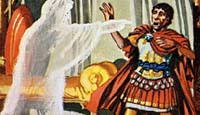
* Students you need to bring your
Julius Caesar book with you to class today.
I. READ JC ACT IV SCENE 1, 2, 3 Pg 133 -165
New Characters Lepidus, Messala Licius - add to Character Chart
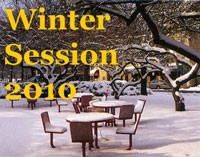
Monday, January 11th
CONTINUE REVIEWING for Tuesday's 1/12 "Night" Exam
*CLASSWORK/HOMEWORK
"Night" : Conspiracy Essay Questions DUE TODAY! (Monday – 1/11/2010)
“How does this careful investigation of the meeting of Nazi leaders in 1942
change your understanding of the Holocaust and the people who made it happen?"
“Is it really possible for a secret group of powerful people to influence historical, political and/or social events?”
Do people tend to not be concerned with or simplify the truth because they instead,
prefer to reside in their very own unreality where everything functions according to their social agreements?
Do you believe that in order to reform society, individuals need to be an active part of it and
change it from within? Or must they hide inside of society or externally rebel against it in order for things to change?
Friday, January 8th
REMINDERS:
PowerPoint Book Report #2 - DUE JAN. 25th 2010
(See Classroom Website - BOOK RPTS Tab and handout for details)
_________________________________________
Friday, January 8th
*Make sure you bring your
"NIGHT"
book with you to class today.
*CLASSWORK/HOMEWORK
REVIEW for Tuesday's 1/12 "Night" Exam
REMINDERS:
PowerPoint Book Report #2 - DUE JAN. 25th 2010
(See Classroom Website - BOOK RPTS Tab and handout for details)
_________________________________________
Thursday, January 7th
*Make sure you bring your
"NIGHT"
book with you to class today."
*CLASSWORK/HOMEWORK
*Finish watching "Conspiracy"
*On January 20, 1942, 15 high-ranking Nazi party and German government leaders met under the leadership of SS Lieutenant General Reinhard Heydrich at a lakeside villa in the wealthy Wannsee district of Berlin. Heydrich called the meeting on the basis of an order instructing him to coordinate logistics for carrying out "the final solution of the Jewish question." By seeing recreated scenes as portrayed in the HBO film “Conspiracy,” you will learn that German government officials discussed "extermination" without hesitation or qualm and thereby sanctioned, coordinated and expanded the implementation of the mass murder of all European Jews.
Objectives
* You should understand the importance of the Wannsee Conference and how it fits into the larger pattern of persecution of the
Jews in Germany prior to 1942.
* You will be able to analyze the purpose and nature of the decisions made at the Wannsee Conference and grasp the change in
Nazi policy this represented.
* You will understand the investment of resources and coordination required by the Nazis in implementing this plan that involved
the cooperation of all government agencies.
* You will know the amount of territory controlled or occupied by the Nazis by 1942 and understand the significance of this in
the execution of the "Final Solution."
Essay Questions:
“How does this careful investigation of the meeting of Nazi leaders in 1942 change your understanding of the Holocaust and the people who made it happen?"
“Is it really possible for a secret group of powerful people to influence historical, political and/or social events?”
Do people tend to not be concerned with or simplify the truth because they instead, prefer to reside in their very own unreality where everything functions according to their social agreements?
Do you believe that in order to reform society, individuals need to be an active part of it and change it from within? Or must they hide inside of society or externally rebel against it in order for things to change? WRITE 2 Full Pages, addressing all four questions. (Compose 4 to 5 Paragraphs. 4 or 5 sentences per. paragraph.) DUE Monday – 1/11/2010
REMINDERS:
PowerPoint Book Report #2 - DUE JAN. 25th 2010
(See Classroom Website - BOOK RPTS Tab and handout for details)
_________________________________________
Wednesday, January 6th
*CLASSWORK/HOMEWORK
*Begin watching "Conspiracy"
REMINDERS:
PowerPoint Book Report #2 - DUE JAN. 25th 2010
(See Classroom Website - BOOK RPTS Tab and handout for details)
_________________________________________
Monday, January 4th
*Make sure you bring your
"NIGHT"
book with you to class today.
*CLASSWORK/HOMEWORK
JOURNAL: (WRITE 1 - 2 Pages) Page 1 - Explain in detail how you spent your time over Christmas Break. Page 2 -Do you make New Year's resolutions 2010? What is a resolution? A resolution is a promise. It is a promise that you make to yourself! It is a tradition for people to make resolutions at the beginning of a new year. There are different kinds of resolutions.
One sort of resolution has to do only with oneself. You might decide to lose weight, to stop eating candy, to exercise more, or to watch less TV. Other resolutions might involve family or friends. You could resolve to be more patient with your little brother, to be more helpful to your mom, or not to get into fights with your friends. Some resolutions are about school and the outside world, such as getting to class on time, trying for better grades, or not teasing the neighbor's dog.
If you manage to keep these promises, it will make you feel better about yourself. So, it's important not to make wild resolutions that are too difficult to follow. Your promises to yourself should not be too hard to keep. - DUE TODAY
REMINDERS:
PowerPoint Book Report #2 - DUE JAN. 25th 2010
(See Classroom Website - BOOK RPTS Tab and handout for details)
CONTINUE REVIEWING for Tuesday's 1/12 "Night" Exam
*CLASSWORK/HOMEWORK
"Night" : Conspiracy Essay Questions DUE TODAY! (Monday – 1/11/2010)
“How does this careful investigation of the meeting of Nazi leaders in 1942
change your understanding of the Holocaust and the people who made it happen?"
“Is it really possible for a secret group of powerful people to influence historical, political and/or social events?”
Do people tend to not be concerned with or simplify the truth because they instead,
prefer to reside in their very own unreality where everything functions according to their social agreements?
Do you believe that in order to reform society, individuals need to be an active part of it and
change it from within? Or must they hide inside of society or externally rebel against it in order for things to change?
Friday, January 8th
REMINDERS:
PowerPoint Book Report #2 - DUE JAN. 25th 2010
(See Classroom Website - BOOK RPTS Tab and handout for details)
_________________________________________
Friday, January 8th
*Make sure you bring your
"NIGHT"
book with you to class today.
*CLASSWORK/HOMEWORK
REVIEW for Tuesday's 1/12 "Night" Exam
REMINDERS:
PowerPoint Book Report #2 - DUE JAN. 25th 2010
(See Classroom Website - BOOK RPTS Tab and handout for details)
_________________________________________
Thursday, January 7th
*Make sure you bring your
"NIGHT"
book with you to class today."
*CLASSWORK/HOMEWORK
*Finish watching "Conspiracy"
*On January 20, 1942, 15 high-ranking Nazi party and German government leaders met under the leadership of SS Lieutenant General Reinhard Heydrich at a lakeside villa in the wealthy Wannsee district of Berlin. Heydrich called the meeting on the basis of an order instructing him to coordinate logistics for carrying out "the final solution of the Jewish question." By seeing recreated scenes as portrayed in the HBO film “Conspiracy,” you will learn that German government officials discussed "extermination" without hesitation or qualm and thereby sanctioned, coordinated and expanded the implementation of the mass murder of all European Jews.
Objectives
* You should understand the importance of the Wannsee Conference and how it fits into the larger pattern of persecution of the
Jews in Germany prior to 1942.
* You will be able to analyze the purpose and nature of the decisions made at the Wannsee Conference and grasp the change in
Nazi policy this represented.
* You will understand the investment of resources and coordination required by the Nazis in implementing this plan that involved
the cooperation of all government agencies.
* You will know the amount of territory controlled or occupied by the Nazis by 1942 and understand the significance of this in
the execution of the "Final Solution."
Essay Questions:
“How does this careful investigation of the meeting of Nazi leaders in 1942 change your understanding of the Holocaust and the people who made it happen?"
“Is it really possible for a secret group of powerful people to influence historical, political and/or social events?”
Do people tend to not be concerned with or simplify the truth because they instead, prefer to reside in their very own unreality where everything functions according to their social agreements?
Do you believe that in order to reform society, individuals need to be an active part of it and change it from within? Or must they hide inside of society or externally rebel against it in order for things to change? WRITE 2 Full Pages, addressing all four questions. (Compose 4 to 5 Paragraphs. 4 or 5 sentences per. paragraph.) DUE Monday – 1/11/2010
REMINDERS:
PowerPoint Book Report #2 - DUE JAN. 25th 2010
(See Classroom Website - BOOK RPTS Tab and handout for details)
_________________________________________
Wednesday, January 6th
*CLASSWORK/HOMEWORK
*Begin watching "Conspiracy"
REMINDERS:
PowerPoint Book Report #2 - DUE JAN. 25th 2010
(See Classroom Website - BOOK RPTS Tab and handout for details)
_________________________________________
Monday, January 4th
*Make sure you bring your
"NIGHT"
book with you to class today.
*CLASSWORK/HOMEWORK
JOURNAL: (WRITE 1 - 2 Pages) Page 1 - Explain in detail how you spent your time over Christmas Break. Page 2 -Do you make New Year's resolutions 2010? What is a resolution? A resolution is a promise. It is a promise that you make to yourself! It is a tradition for people to make resolutions at the beginning of a new year. There are different kinds of resolutions.
One sort of resolution has to do only with oneself. You might decide to lose weight, to stop eating candy, to exercise more, or to watch less TV. Other resolutions might involve family or friends. You could resolve to be more patient with your little brother, to be more helpful to your mom, or not to get into fights with your friends. Some resolutions are about school and the outside world, such as getting to class on time, trying for better grades, or not teasing the neighbor's dog.
If you manage to keep these promises, it will make you feel better about yourself. So, it's important not to make wild resolutions that are too difficult to follow. Your promises to yourself should not be too hard to keep. - DUE TODAY
REMINDERS:
PowerPoint Book Report #2 - DUE JAN. 25th 2010
(See Classroom Website - BOOK RPTS Tab and handout for details)
Christmas Recess

Homework / Classwork - Fall 2009
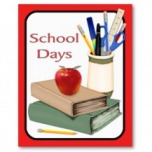
Tuesday, December 15th
Section 5, pages 63-80
1. What did the men do on the eve of Rosh Hashana?
2. How did Elie feel while the others were praying?
3. What was Elie's decision about fasting on Yom Kippur? Why did he make that decision?
4. What was Elie's "inheritance" from his father? Why was his father giving it to him?
5. Did the men remember to say the Kaddish for Akiba Drumer?
6. What did Elie dream of when he dreamed of a better world?
7. What happened to the patients who stayed in the hospital instead of being evacuated?
8. What was the last thing the head of the block ordered the men to do before they evacuated?
Why?
9. What was the weather like during the evacuation?
Monday, December 14th
*Make sure you bring your "NIGHT"
book with you to class today.
*CLASSWORK/HOMEWORK
*VOCABULARY #9 - Week 14 - WRITE one sentence for each word -
DUE Thursday 12/17/09 - TEST over all 20 words - Thursday 12/17/09 REMINDERS:
PowerPoint Book Report #2 - DUE JAN. 25th 2010
(See Classroom Website - BOOK RPTS Tab and handout for details)
_________________________________________
Friday, December 11th
*Make sure you bring your
"NIGHT" with you to class today
*CLASSWORK/HOMEWORK
No Data. Problem while parsing the module. Not valid XML.
_________________________________________
Thursday, December 10th
*Make sure you bring your
"NIGHT" with you to class today
Cartoon Analysis Worksheet - Due Friday 12/11/09
Project: Cartoon-Truth or Tale
*CLASSWORK/HOMEWORK
Finish READING "NIGHT" Pages 55-62 (Section 4)
QUESTIONS - DUE Friday 12/11
Section 4, pages 45-62
1. Describe Elie's encounter with the dentist.
2. What did Elie Wiesel do when Idek hit his father? What was he thinking?
3. Who took Elie's gold tooth? Why did Elie give it up?
4. What were the only things in which Elie took an interest?
5. How did Elie describe the men after the air raid?
6. What happened to the young man from Warsaw? Why?
7. How did Elie say the soup tasted the night the pipel (young servant boy) was hanged?
_________________________________________
Wednesday, December 9th
*Make sure you bring your
"NIGHT" with you to class today
*CLASSWORK/HOMEWORK
No Data. Problem while parsing the module. Not valid XML.
_________________________________________
Tuesday, December 8th
*Make sure you bring your
"NIGHT" with you to class today
*CLASSWORK/HOMEWORK
Cartoon Analysis Worksheet - Due Friday 12/11/09
Project: Cartoon-Truth or Tale
Click on the link below to view a copy
of the "Cartoon Analysis Work Sheet"
http://www.archives.gov/education/lessons/worksheets/cartoon.html
Create or find a cartoon depicting a message of propaganda relating
to current events and that parallels [to some degree] with the Holocaust.
Fill in the "Cartoon Analysis Work Sheet," answering the following questions.
1) Describe the action taking place in the cartoon.
2) Explain how the words in the cartoon clarify the symbols.
3) Explain the message of the cartoon.
4) What special interest groups would agree
disagree with the cartoon's message? Why?
Anti-Semitic Cartoons:
http://somebodyhelpme.info/cartoons/anti-Semitic/anti-Semitic.html
_________________________________________
Monday, December 7th
*Make sure you bring your
"NIGHT" with you to class today
*CLASSWORK/HOMEWORK
No Data. Problem while parsing the module. Not valid XML.
_________________________________________
Friday, December 4th
*Make sure you bring your
"NIGHT" with you to class today
*CLASSWORK/HOMEWORK
No Data. Problem while parsing the module. Not valid XML.
_________________________________________
Thursday, December 3rd
*Make sure you bring your
"NIGHT" with you to class today
*CLASSWORK/HOMEWORK
No Data. Problem while parsing the module. Not valid XML.
_________________________________________
Wednesday, December 2nd
*Make sure you bring your
"NIGHT" with you to class today
*CLASSWORK/HOMEWORKNo Data. Problem while parsing the module. Not valid XML.
_________________________________________
Tuesday, December 1st
*Make sure you bring your
"NIGHT" with you to class today
*CLASSWORK/HOMEWORK
No Data. Problem while parsing the module. Not valid XML.
_________________________________________
Monday, November 30th
*Make sure you bring your
"NIGHT" with you to class today
*CLASSWORK/HOMEWORK
I. The Writer's Craft - Pages 700-702
"Practice Your Skills" Q -1-10
"Drafting Skills" Q 1-15 (write out sentences)
(Classwork) DUE TODAY
Turn into wire rack
II. NIGHT REVIEW QUESTIONS – GET STAMPED when completed -DUE TODAY
Section 1, pages 1-20
1. Describe Moshe the Beadle.
2. Describe Elie Wiesel's father. What was his occupation?
3. Why was Moshe the Beadle important to Elie Wiesel?
4. Summarize the story Moshe the Beadle told on his return from being deported. Why did he say
he had returned to Sighet?
5. What was the public reaction to Moshe's story?
6. What was the setting and the year for the first section of the book? What was the world
condition at the time?
7. Describe, in order, the events that happened from the last day of Passover until Pentecost.
8. How did Wiesel say he felt about the Hungarian police?
9. Who was Martha? What happened when she visited the Wiesel family in the ghetto?
III. VOCABULARY#8 - Week 11 - "NIGHT" Words
WRITE one sentence for each word - DUE Friday 12/4/09
TEST over all 20 words - Friday 12/4/09
1. surname (n): a last name
2. synagogue (n): a Jewish house of worship
3. encumbered (adj): burdened; inconvenienced;
bothered; annoyed
4. insignificant (adj): unimportant
5. waif (n): a person without a home
6. profoundly (adv): deeply
7. unsentimental (adj): tough-minded; determined
8. Gestapo (n): the secret police force of Nazi Germany
9. lorries (n): motor trucks
10. betrothals (n): engagements
11. diplomacy (n): word for relationship between nations
12. weary (adj): tired; exhausted; fatigued
13. liquidate (v): to get rid of; to put an end to
14. Fascism (n): German government during WWII.
15. anti-Semitism (n): discrimination against Jews.
16. billet (v): to provide housing for a soldier
17. bade (v): commanded (past tense of bid)
18. decrees (n): orders
19. ghettos (n): section of a city where Jews were forced to live
20. anguish (n): pain; suffering; distress
IV. HOMEWORK QUESTIONS – DUE WEDNESDAY 12/2
READ NIGHT - Sections 2, 3,
- Pages 21-43. Answer Questions 1-11
1. To what did Wiesel compare the world?
2. What did Madame Schächter see in her vision?
3. How did the other people in the car react to Madame Schächter?
4. Where did the train stop?
5. What did the Jews in the train car discover when they looked out the window?
6. When did Wiesel say the travelers left their illusions behind?
7. Which notorious SS officer did they meet at Auschwitz?
8. What was Elie's main thought as the men and women were being herded from the train?
9. What prayer were the people saying? Why was it unusual?
10. What did Elie do when the gypsy struck his father? Why? What was his father's response?
11. How long were Elie and his father at Auschwitz?
Section 5, pages 63-80
1. What did the men do on the eve of Rosh Hashana?
2. How did Elie feel while the others were praying?
3. What was Elie's decision about fasting on Yom Kippur? Why did he make that decision?
4. What was Elie's "inheritance" from his father? Why was his father giving it to him?
5. Did the men remember to say the Kaddish for Akiba Drumer?
6. What did Elie dream of when he dreamed of a better world?
7. What happened to the patients who stayed in the hospital instead of being evacuated?
8. What was the last thing the head of the block ordered the men to do before they evacuated?
Why?
9. What was the weather like during the evacuation?
Monday, December 14th
*Make sure you bring your "NIGHT"
book with you to class today.
*CLASSWORK/HOMEWORK
*VOCABULARY #9 - Week 14 - WRITE one sentence for each word -
DUE Thursday 12/17/09 - TEST over all 20 words - Thursday 12/17/09 REMINDERS:
PowerPoint Book Report #2 - DUE JAN. 25th 2010
(See Classroom Website - BOOK RPTS Tab and handout for details)
_________________________________________
Friday, December 11th
*Make sure you bring your
"NIGHT" with you to class today
*CLASSWORK/HOMEWORK
No Data. Problem while parsing the module. Not valid XML.
_________________________________________
Thursday, December 10th
*Make sure you bring your
"NIGHT" with you to class today
Cartoon Analysis Worksheet - Due Friday 12/11/09
Project: Cartoon-Truth or Tale
*CLASSWORK/HOMEWORK
Finish READING "NIGHT" Pages 55-62 (Section 4)
QUESTIONS - DUE Friday 12/11
Section 4, pages 45-62
1. Describe Elie's encounter with the dentist.
2. What did Elie Wiesel do when Idek hit his father? What was he thinking?
3. Who took Elie's gold tooth? Why did Elie give it up?
4. What were the only things in which Elie took an interest?
5. How did Elie describe the men after the air raid?
6. What happened to the young man from Warsaw? Why?
7. How did Elie say the soup tasted the night the pipel (young servant boy) was hanged?
_________________________________________
Wednesday, December 9th
*Make sure you bring your
"NIGHT" with you to class today
*CLASSWORK/HOMEWORK
No Data. Problem while parsing the module. Not valid XML.
_________________________________________
Tuesday, December 8th
*Make sure you bring your
"NIGHT" with you to class today
*CLASSWORK/HOMEWORK
Cartoon Analysis Worksheet - Due Friday 12/11/09
Project: Cartoon-Truth or Tale
Click on the link below to view a copy
of the "Cartoon Analysis Work Sheet"
http://www.archives.gov/education/lessons/worksheets/cartoon.html
Create or find a cartoon depicting a message of propaganda relating
to current events and that parallels [to some degree] with the Holocaust.
Fill in the "Cartoon Analysis Work Sheet," answering the following questions.
1) Describe the action taking place in the cartoon.
2) Explain how the words in the cartoon clarify the symbols.
3) Explain the message of the cartoon.
4) What special interest groups would agree
disagree with the cartoon's message? Why?
Anti-Semitic Cartoons:
http://somebodyhelpme.info/cartoons/anti-Semitic/anti-Semitic.html
_________________________________________
Monday, December 7th
*Make sure you bring your
"NIGHT" with you to class today
*CLASSWORK/HOMEWORK
No Data. Problem while parsing the module. Not valid XML.
_________________________________________
Friday, December 4th
*Make sure you bring your
"NIGHT" with you to class today
*CLASSWORK/HOMEWORK
No Data. Problem while parsing the module. Not valid XML.
_________________________________________
Thursday, December 3rd
*Make sure you bring your
"NIGHT" with you to class today
*CLASSWORK/HOMEWORK
No Data. Problem while parsing the module. Not valid XML.
_________________________________________
Wednesday, December 2nd
*Make sure you bring your
"NIGHT" with you to class today
*CLASSWORK/HOMEWORKNo Data. Problem while parsing the module. Not valid XML.
_________________________________________
Tuesday, December 1st
*Make sure you bring your
"NIGHT" with you to class today
*CLASSWORK/HOMEWORK
No Data. Problem while parsing the module. Not valid XML.
_________________________________________
Monday, November 30th
*Make sure you bring your
"NIGHT" with you to class today
*CLASSWORK/HOMEWORK
I. The Writer's Craft - Pages 700-702
"Practice Your Skills" Q -1-10
"Drafting Skills" Q 1-15 (write out sentences)
(Classwork) DUE TODAY
Turn into wire rack
II. NIGHT REVIEW QUESTIONS – GET STAMPED when completed -DUE TODAY
Section 1, pages 1-20
1. Describe Moshe the Beadle.
2. Describe Elie Wiesel's father. What was his occupation?
3. Why was Moshe the Beadle important to Elie Wiesel?
4. Summarize the story Moshe the Beadle told on his return from being deported. Why did he say
he had returned to Sighet?
5. What was the public reaction to Moshe's story?
6. What was the setting and the year for the first section of the book? What was the world
condition at the time?
7. Describe, in order, the events that happened from the last day of Passover until Pentecost.
8. How did Wiesel say he felt about the Hungarian police?
9. Who was Martha? What happened when she visited the Wiesel family in the ghetto?
III. VOCABULARY#8 - Week 11 - "NIGHT" Words
WRITE one sentence for each word - DUE Friday 12/4/09
TEST over all 20 words - Friday 12/4/09
1. surname (n): a last name
2. synagogue (n): a Jewish house of worship
3. encumbered (adj): burdened; inconvenienced;
bothered; annoyed
4. insignificant (adj): unimportant
5. waif (n): a person without a home
6. profoundly (adv): deeply
7. unsentimental (adj): tough-minded; determined
8. Gestapo (n): the secret police force of Nazi Germany
9. lorries (n): motor trucks
10. betrothals (n): engagements
11. diplomacy (n): word for relationship between nations
12. weary (adj): tired; exhausted; fatigued
13. liquidate (v): to get rid of; to put an end to
14. Fascism (n): German government during WWII.
15. anti-Semitism (n): discrimination against Jews.
16. billet (v): to provide housing for a soldier
17. bade (v): commanded (past tense of bid)
18. decrees (n): orders
19. ghettos (n): section of a city where Jews were forced to live
20. anguish (n): pain; suffering; distress
IV. HOMEWORK QUESTIONS – DUE WEDNESDAY 12/2
READ NIGHT - Sections 2, 3,
- Pages 21-43. Answer Questions 1-11
1. To what did Wiesel compare the world?
2. What did Madame Schächter see in her vision?
3. How did the other people in the car react to Madame Schächter?
4. Where did the train stop?
5. What did the Jews in the train car discover when they looked out the window?
6. When did Wiesel say the travelers left their illusions behind?
7. Which notorious SS officer did they meet at Auschwitz?
8. What was Elie's main thought as the men and women were being herded from the train?
9. What prayer were the people saying? Why was it unusual?
10. What did Elie do when the gypsy struck his father? Why? What was his father's response?
11. How long were Elie and his father at Auschwitz?
Homework / Classwork - Fall 2009
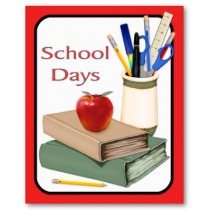
____________________________________________
Wednesday, November 25th
No Data. Problem while parsing the module. Not valid XML.
*CLASSWORK/HOMEWORK
____________________________________________
Monday, November 23rd
No Data. Problem while parsing the module. Not valid XML.
*CLASSWORK/HOMEWORK
____________________________________________
Friday, November 20th
No Data. Problem while parsing the module. Not valid XML.
*CLASSWORK/HOMEWORK
____________________________________________
Thursday, November 19th
No Data. Problem while parsing the module. Not valid XML.
*CLASSWORK/HOMEWORK
____________________________________________
Wednesday, November 18th
No Data. Problem while parsing the module. Not valid XML.
*CLASSWORK/HOMEWORK
____________________________________________
Tuesday, November 17th
*Make sure you bring your
"LITERATURE BOOK" with you to class today
Homework QUESTIONS - Literary Response & Analysis
Story Questions from Typhoid Fever - Pages 204 (1-12) DUE WED. 11/18
*CLASSWORK/HOMEWORK
*REVIEW "Typhoid Fever" by Frank McCourt Pages 193 - 200
*WRITING ASSIGNMENT : Write a personal narrative, relating a
meaningful incident from your own point of view. Use Frank McCourt's
"Typhoid Fever" to help you compose your paper. Share a life experience
that is important to you and insert a poem or prose into your paper that
relates to your incident. The poem or prose must parallel the significant
event that you discuss in your paper. The poem or prose also must be
inserted into your paper 2 or 3 times. (See Typhoid Fever for am example)
http://abcusdcerritoshsmarzo2.weebly.com/essaysresearch-paper.html
Your paper must be 3 pages typed, double spaced, 1" Margins. Font size #12,
Style-Times New Roman or Arial Black Only! (However, you may use the
font of your choice for the poetry part of your paper)
Rough Draft - Due Friday 11/20
Final Draft - Due Tuesday 11/24
Poetry WebSites
http://www.poetry-online.org/
http://famouspoetsandpoems.com/
http://www.poets.org/viewmedia.php/prmMID/5787
REMINDERS:
Bring your "LITERATURE BOOK" with you to class tomorrow!
____________________________________________
Monday, November 16th
*Make sure you bring your
"LITERATURE BOOK" with you to class today
LORD OF THE FLIES MASK PROJECT & ESSAY
DUE TODAY!
*CLASSWORK/HOMEWORK
READ aloud together from Holt Literature Book,
"Typhoid Fever" by Frank McCourt Pages 193 - 200
QUESTIONS - Answer all of the Literary Response & Analysis Story
Questions on Pages 201-202 - DUE Wed. 11/18
REMINDERS:
Bring your "LITERATURE BOOK" with you to class tomorrow!
____________________________________________
Friday, November 13th
Lord of the Flies Test Today!
*After everyone has completed the exam,
continue watching Lord of the Flies Film (DVD)
REMINDERS:
No Vocabulary this week!
LORD OF THE FLIES MASK PROJECT & ESSAY
DUE MONDAY NOV. 16th
http://abcusdcerritoshsmarzo2.weebly.com/lord-of-the-flies.html
____________________________________________
Thursday, November 12th
*Watch Lord of the Flies Film (DVD)
REMINDERS:
No Vocabulary this week!
Lord of the Flies Test
Chapters 1 -12 - Friday 11/13
LORD OF THE FLIES MASK PROJECT & ESSAY
DUE MONDAY NOV. 16th
http://abcusdcerritoshsmarzo2.weebly.com/lord-of-the-flies.html
____________________________________________
Wednesday, November 11th
Veterans Day - School Holiday!
____________________________________________
Tuesday, November 10th
Book Report #1
Due: TODAY!
Lord of the Flies Questions # 1-7, & Q 1-10
Chapters 11 & 12 (See Website)
Due Today!
* REVIEW Notes for Friday's 11/13 LOTF TEST
(handout)
REMINDERS:
No Vocabulary this week!
Lord of the Flies Test
Chapters 1 -12 - Friday 11/13
LORD OF THE FLIES MASK PROJECT & ESSAY
DUE MONDAY NOV. 16th
http://abcusdcerritoshsmarzo2.weebly.com/lord-of-the-flies.html
____________________________________________
Monday, November 9th
*Make sure you bring "Lord of the Flies"
with you to class today.
*CLASSWORK/HOMEWORK
Finish Reading from BOOK
Lord of the Flies - Chapter 11 & 12 - Pages 169 - 202
Read together aloud in class.
(What we don't finish reading in
class, please read at home.)
Lord of the Flies Questions # 1-7, & Q 1-10
Chapters 11 & 12 (See Website)
Due Tuesday 11/10
REMINDERS:
Lord of the Flies Test
Chapters 1 -12 - Friday 11/13
No Vocabulary this week!
Book Report #1 (handout)
Due: TUESDAY NOV. 10th
LORD OF THE FLIES MASK PROJECT & ESSAY
- DUE MONDAY NOV. 16th
http://abcusdcerritoshsmarzo2.weebly.com/lord-of-the-flies.html
____________________________________________
Friday, November 6th
Lord of the Flies Questions # 1-7,
Chapter 10 (See Website)
Due TODAY!
*Vocabulary Workshop Level E
Unit 6 Sentences - Due TODAY!
*CLASSWORK/HOMEWORK
*Vocabulary Workshop Level E Unit 6 - TEST TODAY!
*Survivor Activity
Period 5 - FINAL DRAFT DUE TODAY!
(When handing in, staple the STAMPED
Rough Draft along with STAMPED Essay
Peer Evaluation Sheet to the bottom of
your FINAL DRAFT if you wish to receive full credit.)
REMINDERS:
Book Report #1 (handout)
Due: TUESDAY NOV. 10th
LORD OF THE FLIES MASK PROJECT & ESSAY DUE MONDAY NOV. 16th
http://abcusdcerritoshsmarzo2.weebly.com/lord-of-the-flies.html
___________________________________________
Thursday, November 5th
*Make sure you bring "Lord of the Flies"
with you to class today.
Lord of the Flies Questions # 1-7,
Chapter 10 (See Website)
Due Friday 11/06
Period 5 - FINAL DRAFT DUE FRIDAY NOV. 6th, 2009
(When handing in, staple the STAMPED
Rough Draft along with STAMPED Essay
Peer Evaluation Sheet to the bottom of
your FINAL DRAFT if you wish to receive full credit.)
*CLASSWORK/HOMEWORK
Vocab Review Unit 6: Today
Finish Reading from BOOK
Lord of the Flies - Chapter 10 - Pages 158 - 168
Read together aloud in class.
*Vocabulary Workshop Level E Unit 6 - Week 7 (11/02 through 11/06)
Vocab Test Friday 11/06
http://abcusdcerritoshsmarzo2.weebly.com/vocabulary.html
*Write 1 complete sentence for each word
Due Friday Nov. 6th (Homework)
REMINDERS:
Book Report #1 (handout)
Due: TUESDAY NOV. 10th
LORD OF THE FLIES MASK PROJECT & ESSAY DUE MONDAY NOV. 16th
http://abcusdcerritoshsmarzo2.weebly.com/lord-of-the-flies.html
____________________________________________
Wednesday, November 4th
*Make sure you bring "Lord of the Flies"
with you to class today.
Lord of the Flies Questions # 1-9, Chapter 9 (See Website)
Due Today! Turn into wire rack when complete.
Period 5 - FINAL DRAFT DUE FRIDAY NOV. 6th, 2009
(When handing in, staple the STAMPED
Rough Draft along with STAMPED Essay
Peer Evaluation Sheet to the bottom of
your FINAL DRAFT if you wish to receive full credit.)
*CLASSWORK/HOMEWORK
*LOTF Review Questions Chapters 7, 8, & 9 (HANDOUT) Due Today!
*Ethics:Mob Mentality - (HANDOUT) Due Today!
REVIEW LOTF CHAPTER 9
READ FROM BOOK – Lord of the Flies
Chapter 10 - - Pages 155 -
Read together aloud in class.
*Vocabulary Workshop Level E Unit 6 - Week 7 (11/02 through 11/06)
Vocab Review Thursday 11/05 - Vocab Test Friday 11/06
http://abcusdcerritoshsmarzo2.weebly.com/vocabulary.html
*Write 1 complete sentence for each word
Due Friday Nov. 6th (Homework)
REMINDERS:
Book Report #1 (handout)
Due: TUESDAY NOV. 10th
LORD OF THE FLIES MASK PROJECT & ESSAY - DUE MONDAY NOV. 16thhttp://abcusdcerritoshsmarzo2.weebly.com/lord-of-the-flies.html
____________________________________________
Tuesday, November 3rd
*Make sure you bring "Lord of the Flies"
with you to class today.
Lord of the Flies Questions # 1-9, Chapter 9 (See Website)
Due Wednesday 11/04
Period 5 - FINAL DRAFT DUE FRIDAY NOV. 6th, 2009
(When handing in, staple the STAMPED
Rough Draft along with STAMPED Essay
Peer Evaluation Sheet to the bottom of
your FINAL DRAFT if you wish to receive full credit.)
*CLASSWORK/HOMEWORK
LOTF - Symbolism & Simon vs. Jack (Handout)
Finish in class - Due Today!
Turn into wire rack when complete.
READ FROM BOOK – Lord of the Flies
Chapter 9 - A View To A Death - Pages 145 - 154
Read together aloud in class.
*Vocabulary Workshop Level E Unit 6 - Week 7 (11/02 through 11/06)
Vocab Review Thursday 11/05 - Vocab Test Friday 11/06
http://abcusdcerritoshsmarzo2.weebly.com/vocabulary.html
*Write 1 complete sentence for each word
Due Friday Nov. 6th (Homework)
REMINDERS:
Book Report #1 (handout)
Due: TUESDAY NOV. 10th
LORD OF THE FLIES MASK PROJECT & ESSAY
- DUE FRIDAY NOV.13th
http://abcusdcerritoshsmarzo2.weebly.com/lord-of-the-flies.html
___________________________________________
Monday, November 2nd
*Make sure you bring "Lord of the Flies"
with you to class today.
Period 4 - ESSAY FINAL DRAFT Due Today!
(When handing in, staple the STAMPED Rough Draft
along with STAMPED Essay Peer Evaluation Sheet to the
bottom of your FINAL DRAFT if you wish to receive full credit.)
Period 5 - FINAL DRAFT DUE FRIDAY NOV. 6th, 2009
(When handing in, staple the STAMPED
Rough Draft along with STAMPED Essay
Peer Evaluation Sheet to the bottom of
your FINAL DRAFT if you wish to receive full credit.)
*CLASSWORK/HOMEWORK
*Vocabulary Workshop Level E Unit 6 - Week 7 (11/02 through 11/06)
Vocab Review Thursday 11/05 - Vocab Test Friday 11/06
http://abcusdcerritoshsmarzo2.weebly.com/vocabulary.html
*Write 1 complete sentence for each word
Due Friday Nov. 6th (Homework)
*THE WRITER'S CRAFT
Grammar: Objects of Verbs
Read Pages 512-514 for instructions
(Direct and Indirect Objects)
Practice Your Skills - Page 514 (1-15)
Make 3 columns on your own sheet of paper.
Label them Verb, Indirect Object, Direct Object
For each sentence write those parts in the proper
columns. If a sentence has no IO, write None -DUE TODAY
-------------------------------------------------------
Lord of the Flies
REVIEW Chapter 8
Lord of the Flies Questions # 1-9, Chapter 9 (See Website)
Due Wednesday 11/04
http://abcusdcerritoshsmarzo2.weebly.com/lord-of-the-flies.html
REMINDERS:
Book Report #1 (handout)
Due: TUESDAY NOV. 10th
LORD OF THE FLIES MASK PROJECT & ESSAY
- DUE FRIDAY NOV.13th
http://abcusdcerritoshsmarzo2.weebly.com/lord-of-the-flies.html
Wednesday, November 25th
No Data. Problem while parsing the module. Not valid XML.
*CLASSWORK/HOMEWORK
____________________________________________
Monday, November 23rd
No Data. Problem while parsing the module. Not valid XML.
*CLASSWORK/HOMEWORK
____________________________________________
Friday, November 20th
No Data. Problem while parsing the module. Not valid XML.
*CLASSWORK/HOMEWORK
____________________________________________
Thursday, November 19th
No Data. Problem while parsing the module. Not valid XML.
*CLASSWORK/HOMEWORK
____________________________________________
Wednesday, November 18th
No Data. Problem while parsing the module. Not valid XML.
*CLASSWORK/HOMEWORK
____________________________________________
Tuesday, November 17th
*Make sure you bring your
"LITERATURE BOOK" with you to class today
Homework QUESTIONS - Literary Response & Analysis
Story Questions from Typhoid Fever - Pages 204 (1-12) DUE WED. 11/18
*CLASSWORK/HOMEWORK
*REVIEW "Typhoid Fever" by Frank McCourt Pages 193 - 200
*WRITING ASSIGNMENT : Write a personal narrative, relating a
meaningful incident from your own point of view. Use Frank McCourt's
"Typhoid Fever" to help you compose your paper. Share a life experience
that is important to you and insert a poem or prose into your paper that
relates to your incident. The poem or prose must parallel the significant
event that you discuss in your paper. The poem or prose also must be
inserted into your paper 2 or 3 times. (See Typhoid Fever for am example)
http://abcusdcerritoshsmarzo2.weebly.com/essaysresearch-paper.html
Your paper must be 3 pages typed, double spaced, 1" Margins. Font size #12,
Style-Times New Roman or Arial Black Only! (However, you may use the
font of your choice for the poetry part of your paper)
Rough Draft - Due Friday 11/20
Final Draft - Due Tuesday 11/24
Poetry WebSites
http://www.poetry-online.org/
http://famouspoetsandpoems.com/
http://www.poets.org/viewmedia.php/prmMID/5787
REMINDERS:
Bring your "LITERATURE BOOK" with you to class tomorrow!
____________________________________________
Monday, November 16th
*Make sure you bring your
"LITERATURE BOOK" with you to class today
LORD OF THE FLIES MASK PROJECT & ESSAY
DUE TODAY!
*CLASSWORK/HOMEWORK
READ aloud together from Holt Literature Book,
"Typhoid Fever" by Frank McCourt Pages 193 - 200
QUESTIONS - Answer all of the Literary Response & Analysis Story
Questions on Pages 201-202 - DUE Wed. 11/18
REMINDERS:
Bring your "LITERATURE BOOK" with you to class tomorrow!
____________________________________________
Friday, November 13th
Lord of the Flies Test Today!
*After everyone has completed the exam,
continue watching Lord of the Flies Film (DVD)
REMINDERS:
No Vocabulary this week!
LORD OF THE FLIES MASK PROJECT & ESSAY
DUE MONDAY NOV. 16th
http://abcusdcerritoshsmarzo2.weebly.com/lord-of-the-flies.html
____________________________________________
Thursday, November 12th
*Watch Lord of the Flies Film (DVD)
REMINDERS:
No Vocabulary this week!
Lord of the Flies Test
Chapters 1 -12 - Friday 11/13
LORD OF THE FLIES MASK PROJECT & ESSAY
DUE MONDAY NOV. 16th
http://abcusdcerritoshsmarzo2.weebly.com/lord-of-the-flies.html
____________________________________________
Wednesday, November 11th
Veterans Day - School Holiday!
____________________________________________
Tuesday, November 10th
Book Report #1
Due: TODAY!
Lord of the Flies Questions # 1-7, & Q 1-10
Chapters 11 & 12 (See Website)
Due Today!
* REVIEW Notes for Friday's 11/13 LOTF TEST
(handout)
REMINDERS:
No Vocabulary this week!
Lord of the Flies Test
Chapters 1 -12 - Friday 11/13
LORD OF THE FLIES MASK PROJECT & ESSAY
DUE MONDAY NOV. 16th
http://abcusdcerritoshsmarzo2.weebly.com/lord-of-the-flies.html
____________________________________________
Monday, November 9th
*Make sure you bring "Lord of the Flies"
with you to class today.
*CLASSWORK/HOMEWORK
Finish Reading from BOOK
Lord of the Flies - Chapter 11 & 12 - Pages 169 - 202
Read together aloud in class.
(What we don't finish reading in
class, please read at home.)
Lord of the Flies Questions # 1-7, & Q 1-10
Chapters 11 & 12 (See Website)
Due Tuesday 11/10
REMINDERS:
Lord of the Flies Test
Chapters 1 -12 - Friday 11/13
No Vocabulary this week!
Book Report #1 (handout)
Due: TUESDAY NOV. 10th
LORD OF THE FLIES MASK PROJECT & ESSAY
- DUE MONDAY NOV. 16th
http://abcusdcerritoshsmarzo2.weebly.com/lord-of-the-flies.html
____________________________________________
Friday, November 6th
Lord of the Flies Questions # 1-7,
Chapter 10 (See Website)
Due TODAY!
*Vocabulary Workshop Level E
Unit 6 Sentences - Due TODAY!
*CLASSWORK/HOMEWORK
*Vocabulary Workshop Level E Unit 6 - TEST TODAY!
*Survivor Activity
Period 5 - FINAL DRAFT DUE TODAY!
(When handing in, staple the STAMPED
Rough Draft along with STAMPED Essay
Peer Evaluation Sheet to the bottom of
your FINAL DRAFT if you wish to receive full credit.)
REMINDERS:
Book Report #1 (handout)
Due: TUESDAY NOV. 10th
LORD OF THE FLIES MASK PROJECT & ESSAY DUE MONDAY NOV. 16th
http://abcusdcerritoshsmarzo2.weebly.com/lord-of-the-flies.html
___________________________________________
Thursday, November 5th
*Make sure you bring "Lord of the Flies"
with you to class today.
Lord of the Flies Questions # 1-7,
Chapter 10 (See Website)
Due Friday 11/06
Period 5 - FINAL DRAFT DUE FRIDAY NOV. 6th, 2009
(When handing in, staple the STAMPED
Rough Draft along with STAMPED Essay
Peer Evaluation Sheet to the bottom of
your FINAL DRAFT if you wish to receive full credit.)
*CLASSWORK/HOMEWORK
Vocab Review Unit 6: Today
Finish Reading from BOOK
Lord of the Flies - Chapter 10 - Pages 158 - 168
Read together aloud in class.
*Vocabulary Workshop Level E Unit 6 - Week 7 (11/02 through 11/06)
Vocab Test Friday 11/06
http://abcusdcerritoshsmarzo2.weebly.com/vocabulary.html
*Write 1 complete sentence for each word
Due Friday Nov. 6th (Homework)
REMINDERS:
Book Report #1 (handout)
Due: TUESDAY NOV. 10th
LORD OF THE FLIES MASK PROJECT & ESSAY DUE MONDAY NOV. 16th
http://abcusdcerritoshsmarzo2.weebly.com/lord-of-the-flies.html
____________________________________________
Wednesday, November 4th
*Make sure you bring "Lord of the Flies"
with you to class today.
Lord of the Flies Questions # 1-9, Chapter 9 (See Website)
Due Today! Turn into wire rack when complete.
Period 5 - FINAL DRAFT DUE FRIDAY NOV. 6th, 2009
(When handing in, staple the STAMPED
Rough Draft along with STAMPED Essay
Peer Evaluation Sheet to the bottom of
your FINAL DRAFT if you wish to receive full credit.)
*CLASSWORK/HOMEWORK
*LOTF Review Questions Chapters 7, 8, & 9 (HANDOUT) Due Today!
*Ethics:Mob Mentality - (HANDOUT) Due Today!
REVIEW LOTF CHAPTER 9
READ FROM BOOK – Lord of the Flies
Chapter 10 - - Pages 155 -
Read together aloud in class.
*Vocabulary Workshop Level E Unit 6 - Week 7 (11/02 through 11/06)
Vocab Review Thursday 11/05 - Vocab Test Friday 11/06
http://abcusdcerritoshsmarzo2.weebly.com/vocabulary.html
*Write 1 complete sentence for each word
Due Friday Nov. 6th (Homework)
REMINDERS:
Book Report #1 (handout)
Due: TUESDAY NOV. 10th
LORD OF THE FLIES MASK PROJECT & ESSAY - DUE MONDAY NOV. 16thhttp://abcusdcerritoshsmarzo2.weebly.com/lord-of-the-flies.html
____________________________________________
Tuesday, November 3rd
*Make sure you bring "Lord of the Flies"
with you to class today.
Lord of the Flies Questions # 1-9, Chapter 9 (See Website)
Due Wednesday 11/04
Period 5 - FINAL DRAFT DUE FRIDAY NOV. 6th, 2009
(When handing in, staple the STAMPED
Rough Draft along with STAMPED Essay
Peer Evaluation Sheet to the bottom of
your FINAL DRAFT if you wish to receive full credit.)
*CLASSWORK/HOMEWORK
LOTF - Symbolism & Simon vs. Jack (Handout)
Finish in class - Due Today!
Turn into wire rack when complete.
READ FROM BOOK – Lord of the Flies
Chapter 9 - A View To A Death - Pages 145 - 154
Read together aloud in class.
*Vocabulary Workshop Level E Unit 6 - Week 7 (11/02 through 11/06)
Vocab Review Thursday 11/05 - Vocab Test Friday 11/06
http://abcusdcerritoshsmarzo2.weebly.com/vocabulary.html
*Write 1 complete sentence for each word
Due Friday Nov. 6th (Homework)
REMINDERS:
Book Report #1 (handout)
Due: TUESDAY NOV. 10th
LORD OF THE FLIES MASK PROJECT & ESSAY
- DUE FRIDAY NOV.13th
http://abcusdcerritoshsmarzo2.weebly.com/lord-of-the-flies.html
___________________________________________
Monday, November 2nd
*Make sure you bring "Lord of the Flies"
with you to class today.
Period 4 - ESSAY FINAL DRAFT Due Today!
(When handing in, staple the STAMPED Rough Draft
along with STAMPED Essay Peer Evaluation Sheet to the
bottom of your FINAL DRAFT if you wish to receive full credit.)
Period 5 - FINAL DRAFT DUE FRIDAY NOV. 6th, 2009
(When handing in, staple the STAMPED
Rough Draft along with STAMPED Essay
Peer Evaluation Sheet to the bottom of
your FINAL DRAFT if you wish to receive full credit.)
*CLASSWORK/HOMEWORK
*Vocabulary Workshop Level E Unit 6 - Week 7 (11/02 through 11/06)
Vocab Review Thursday 11/05 - Vocab Test Friday 11/06
http://abcusdcerritoshsmarzo2.weebly.com/vocabulary.html
*Write 1 complete sentence for each word
Due Friday Nov. 6th (Homework)
*THE WRITER'S CRAFT
Grammar: Objects of Verbs
Read Pages 512-514 for instructions
(Direct and Indirect Objects)
Practice Your Skills - Page 514 (1-15)
Make 3 columns on your own sheet of paper.
Label them Verb, Indirect Object, Direct Object
For each sentence write those parts in the proper
columns. If a sentence has no IO, write None -DUE TODAY
-------------------------------------------------------
Lord of the Flies
REVIEW Chapter 8
Lord of the Flies Questions # 1-9, Chapter 9 (See Website)
Due Wednesday 11/04
http://abcusdcerritoshsmarzo2.weebly.com/lord-of-the-flies.html
REMINDERS:
Book Report #1 (handout)
Due: TUESDAY NOV. 10th
LORD OF THE FLIES MASK PROJECT & ESSAY
- DUE FRIDAY NOV.13th
http://abcusdcerritoshsmarzo2.weebly.com/lord-of-the-flies.html
Homework / Classwork - Fall 2009
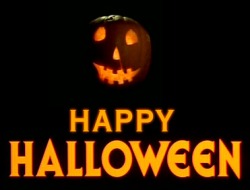
Friday,October 30th
*Lord of the Flies Questions # 1-9 , Chapt 8 (See Handout) Due Today
*Lord of the Flies Questions # 1-14 , Chapt 7 (See Website) Due Today
LOTF 5-PARAGRAPH ESSAY- ROUGH DRAFT
for Period 5 DUE TODAY! Get Stamped [See Handout for Details] Peer Edit!
FINAL DRAFT DUE FRIDAY NOV. 6th, 2009 (Period 5 Only)
*CLASSWORK/HOMEWORK
*Halloween Journal:
After watching scary film clips from several horror movies,
write 1 full page answering the following questions:
A. Which scene did you find to be most frightening and why?
If you didn't find any of the clips to be scary, explain why.
B. What's your greatest fear in real life. What types of films
do you find most horrifying? (Name a few Horror Films and describe
specific scenes.)
C. Why do people liked to be scared anyway? Explain.
D. What do you find to be more terrifying, real life events or
pretend situations & things found in fictitious books and films?
Please give examples.
REMINDERS:
Period 4 - FINAL DRAFT Due Mon. Nov. 2nd (Period 4 Only)
(When handing in, staple the STAMPED
Rough Draft along with STAMPED Essay
Peer Evaluation Sheet to the bottom of
your FINAL DRAFT if you wish to receive full credit.)
Book Report #1 (handout)
Due: TUESDAY NOV. 10th
LORD OF THE FLIES MASK PROJECT & ESSAY
- DUE FRIDAY NOV.13th
http://abcusdcerritoshsmarzo2.weebly.com/lord-of-the-flies.html
____________________________________________
Thursday,October 29th
*Make sure you bring "Lord of the Flies"
with you to class today.
LOTF- Handouts - Character Analysis: The Dance Pg. 48 &
Drawing Comparisons: Ralph Joins the Hunt Pg. 49 - DUE TODAY!
*CLASSWORK/HOMEWORK
LOTF: Discussion Questions (Group Assignment: Handout)
Q 1-6 Answer in paragraph form (No more than 3 people
per group) - DUE TODAY THURSDAY 10/29
*READ FROM BOOK – Lord of the Flies
Chapter 8 - Gift for the Darkness - Pages 124-144
(Read for Homework)
*Lord of the Flies Questions # 1-9 , Chapter 8 (See Handout)
Homework Due Friday 10/30
Lord of the Flies Questions # 1-14 , Chapter 7 (See Website)
Due Friday 10/30
http://abcusdcerritoshsmarzo2.weebly.com/lord-of-the-flies.html
- FINAL DRAFT Due Mon. Nov. 2nd (Period 4 Only)
(When handing in, staple the STAMPED
Rough Draft along with STAMPED Essay
Peer Evaluation Sheet to the bottom of
your FINAL DRAFT if you wish to receive full credit.)
REMINDERS:
No Vocabulary this week!
Book Report #1 (handout)
Due: TUESDAY NOV. 10th
LORD OF THE FLIES MASK PROJECT & ESSAY
- DUE FRIDAY NOV.13th
http://abcusdcerritoshsmarzo2.weebly.com/lord-of-the-flies.html
-----------------------------------------------------------------------------
ENGLISH II - PERIOD 5 ONLY
*CLASSWORK/HOMEWORK
LOTF 5-PARAGRAPH ESSAY- ROUGH DRAFT
for Period 5 DUE FRIDAY 10/30
[See Handout for Details] Peer Edit!
Get Stamped on Fri. 10/30
FINAL DRAFT DUE FRIDAY NOV. 6th, 2009 (Period 5 Only)
(When handing in, staple the STAMPED
Rough Draft along with STAMPED Essay
Peer Evaluation Sheet to the bottom of
your FINAL DRAFT if you wish to receive full credit.)
____________________________________________
Wednesday,October 28th
*Make sure you bring "Lord of the Flies"
with you to class today.
Hand in Homework Questions
Lord of the Flies Questions # 1-5, Chapter 6
*CLASSWORK/HOMEWORK
LOTF- Handouts - Character Analysis: The Dance Pg. 48 &
Drawing Comparisons: Ralph Joins the Hunt Pg. 49 - DUE THURSDAY 10/29
READ FROM BOOK – Lord of the Flies
Chapter 7 - Shadows and Tall Trees - Pages 109 -123
Follow along with CD
(What we don't finish reading in
class, please read at home.)
Lord of the Flies Questions # 1-14 , Chapter 7 (See Website)
Due Friday 10/30
http://abcusdcerritoshsmarzo2.weebly.com/lord-of-the-flies.html
- FINAL DRAFT Due Mon. Nov. 2nd
(When handing in, staple the STAMPED
Rough Draft along with STAMPED Essay
Peer Evaluation Sheet to the bottom of
your FINAL DRAFT if you wish to receive full credit.)
REMINDERS:
No Vocabulary this week!
Book Report #1 (handout)
Due: TUESDAY NOV. 10th
LORD OF THE FLIES MASK PROJECT & ESSAY
- DUE FRIDAY NOV.13th
http://abcusdcerritoshsmarzo2.weebly.com/lord-of-the-flies.html
-----------------------------------------------------------------------------
ENGLISH II - PERIOD 5 ONLY
*CLASSWORK/HOMEWORK
LOTF 5-PARAGRAPH ESSAY- ROUGH DRAFT
for Period 5 DUE FRIDAY 10/30
[See Handout for Details] Peer Edit!
Get Stamped on Fri. 10/30
____________________________________________
Tuesday,October 27th
*Make sure you bring "Lord of the Flies"
with you to class today.
*CLASSWORK/HOMEWORK
*THE WRITER'S CRAFT
Grammar: Subject/Predicate
Practice Your Skills Page 502Q 1-10
WRITE OUT SENTENCES - UNDERLINE THE COMPLETE SUBJECT -DUE TODAY
READ FROM BOOK – Lord of the Flies
Chapter 6 - Beast From Air - Pages 95 -108
Follow along with CD
(What we don't finish reading in
class, please read at home.)
Lord of the Flies Questions # 1-5, Chapter 6 (See Website)
Due Wednesday 10/28
http://abcusdcerritoshsmarzo2.weebly.com/lord-of-the-flies.html
1. What details in the description let you know that the figure is dead before it hits the ground? What sort of message is this? Why didn't the twins see the body fall?
2. Who sees the beast? What have they just done? How do they react?
3. Complete the quote "The silence was full of ________________" Explain.
4. How was this a good meeting for Ralph? How does he get the attention of the meeting away from Jack Do the boys want to be rescued? Explain
5. How was Simon embarrassed? What wasn't he able to do? Who does Simon imagine the beast to be?
If you were peer editing your Essay Mon. 10/26
Don't forget to turn in Monday's 1 Page Journal "Ralph:Trading Places"
- FINAL DRAFT Due Mon. Nov. 2nd
(When handing in, staple the STAMPED
Rough Draft along with STAMPED Essay
Peer Evaluation Sheet to the bottom of
your FINAL DRAFT if you wish to receive full credit.)
REMINDERS:
No Vocabulary this week!
Book Report #1 (handout)
Due: TUESDAY NOV. 10th
LORD OF THE FLIES MASK PROJECT & ESSAY
- DUE FRIDAY NOV.13th
http://abcusdcerritoshsmarzo2.weebly.com/lord-of-the-flies.html
-----------------------------------------------------------------------------
ENGLISH II - PERIOD 5 ONLY
*CLASSWORK/HOMEWORK
1 Page Journal "Ralph:Trading Places" DUE TODAY , TUE. 10/27
LOTF 5-PARAGRAPH ESSAY- ROUGH DRAFT
for Period 5 DUE FRIDAY 10/30
[See Handout for Details] Peer Edit!
Get Stamped on Fri. 10/30
____________________________________________
Monday,October 26th
*Make sure you bring
"Lord of the Flies" with you to class today.
No Vocabulary this week!
*CLASSWORK/HOMEWORK
In Class One Page Journal LOTF - "Ralph - Trading Places"
Due: TODAY
LOTF 5-PARAGRAPH ESSAY- ROUGH DRAFT DUE TODAY 10/26
(Period 4 Only!) [See Handout for Details]
Peer Edit! Get Stamped today
- FINAL DRAFT Due Today,Mon. Nov. 2nd
(When handing in, staple the STAMPED
Rough Draft along with STAMPED Essay
Peer Evaluation Sheet to the bottom of
your FINAL DRAFT if you wish to receive full credit.)
REMINDERS:
Book Report #1 (handout)
Due: TUESDAY NOV. 10th
LORD OF THE FLIES MASK PROJECT & ESSAY
- DUE FRIDAY NOV.13th
http://abcusdcerritoshsmarzo2.weebly.com/lord-of-the-flies.html
-----------------------------------------------------------------------------------
ENGLISH II - PERIOD 5 ONLY
*CLASSWORK/HOMEWORK
LOTF 5-PARAGRAPH ESSAY- ROUGH DRAFT
for Period 5 DUE FRIDAY 10/30
[See Handout for Details] Peer Edit!Get Stamped today
LOTF Chapt. 5 QUESTIONS from Friday's (10/23) Handout Questions # 1-13
and Friday's Journal DUE TODAY! (Period 5 only)
Homework / Classwork - Fall 2009
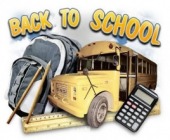
Friday,October 23rd
Vocab Test Today
http://abcusdcerritoshsmarzo.weebly.com/vocabulary.html
POP QUIZ - LOTF
Short Story using all 20 words
Due Today Oct. 23rd
____________________________________________
Thursday,October 22nd
*Make sure you bring "Lord of the Flies"
with you to class today.
*CLASSWORK/HOMEWORK
Vocab Review - Level D Unit 5 Today 10/22
Fill in Handout-Get STAMPED when completed.
Turn back in for full credit on Friday 10/23
*Lord of the Flies - The Beast - Handout
Complete Questions 1-8 (#6 is the Chart, #8 is the 1/2 page journal)
Due Friday 10/23
Vocab Test Friday 10/23
http://abcusdcerritoshsmarzo.weebly.com/vocabulary.html
*Write a short story using all 20 words
Due Friday Oct. 23rd (Homework)
LOTF 5-PARAGRAPH ESSAY- ROUGH DRAFT
DUE MON. 10/26 (Period 4 Only!) [See Handout for Details]
REMINDERS:
Book Report #1 (handout)
Due: TUESDAY NOV. 10th
LORD OF THE FLIES MASK PROJECT & ESSAY
- DUE FRIDAY NOV.13th
http://abcusdcerritoshsmarzo2.weebly.com/lord-of-the-flies.html
____________________________________________
Wednesday,October 21st
*Make sure you bring "Lord of the Flies"
with you to class today.
*CLASSWORK/HOMEWORK
*Vocabulary Workshop Level D Unit 5 - Week 5 (10/19 through 10/23)
Vocab Review Thursday 10/22 - Vocab Test Friday 10/23
http://abcusdcerritoshsmarzo.weebly.com/vocabulary.html
*Write a short story using all 20 words
Due Friday Oct. 23rd (Homework)
LOTF 5-PARAGRAPH ESSAY- ROUGH DRAFT
DUE MON. 10/26 (Period 4 Only!) [See Handout for Details]
REMINDERS:
Book Report #1 (handout)
Due: TUESDAY NOV. 10th
LORD OF THE FLIES MASK PROJECT & ESSAY
- DUE FRIDAY NOV.13th
http://abcusdcerritoshsmarzo2.weebly.com/lord-of-the-flies.html
____________________________________________
Tuesday,October 20th
*Make sure you bring "Lord of the Flies"
with you to class today.
HAND IN - Questions # 1-13, LOTF Chapter 5
(See Handout) - DUE TODAY!
*CLASSWORK/HOMEWORK
*Vocabulary Workshop Level D Unit 5 - Week 5 (10/19 through 10/23)
Vocab Review Thursday 10/22 - Vocab Test Friday 10/23
http://abcusdcerritoshsmarzo.weebly.com/vocabulary.html
*Write a short story using all 20 words
Due Friday Oct. 23rd (Homework)
LOTF 5-PARAGRAPH ESSAY- ROUGH DRAFT
DUE MON. 10/26 (Period 4 Only!) [See Handout for Details]
REMINDERS:
Book Report #1 (handout)
Due: TUESDAY NOV. 10th
LORD OF THE FLIES MASK PROJECT & ESSAY
- DUE FRIDAY NOV.13th
http://abcusdcerritoshsmarzo2.weebly.com/lord-of-the-flies.html
____________________________________________
Monday,October 19th
*Make sure you bring "Lord of the Flies"
with you to class today.
*CLASSWORK/HOMEWORK
Lord of the Flies Journal Chapter 4 (See Handout) - Due Today
READ FROM BOOK – Lord of the Flies
Chapter 5- Page 76 - 94
Follow along with CD
(What we don't finish reading in
class, please read at home.)
Questions # 1-13, Chapter 5 (See Handout)
Due Tuesday 10/20
*Vocabulary Workshop Level D Unit 5 - Week 5 (10/19 through 10/23)
Vocab Review Thursday 10/22 - Vocab Test Friday 10/23
http://abcusdcerritoshsmarzo.weebly.com/vocabulary.html
*Write a short story using all 20 words
Due Friday Oct. 23rd (Homework)
LOTF 5-PARAGRAPH ESSAY- ROUGH DRAFT DUE MON. 10/26
(See Handout for Details)
REMINDERS:
Book Report #1 (handout)
Due: TUESDAY NOV. 10th
LORD OF THE FLIES MASK PROJECT & ESSAY
- DUE FRIDAY NOV.13th
http://abcusdcerritoshsmarzo2.weebly.com/lord-of-the-flies.html
-------------------------------------------------------
ENGLISH II - PERIOD 5 ONLY
*CLASSWORK/HOMEWORK
READ FROM BOOK – Lord of the Flies
Chapter 2- Page 32 -
Follow along with CD
(What we don't finish reading in
class, please read at home.)
*Character Analysis: Ralph As A Leader (Handout) - Due Tue 10/20
*Theme Analysis: Death and Destruction (Handout) - Due Tue 10/20
*Vocabulary Workshop Level D Unit 5 - Week 5 (10/19 through 10/23)
Vocab Review Thursday 10/22 - Vocab Test Friday 10/23
http://abcusdcerritoshsmarzo.weebly.com/vocabulary.html
*Write a short story using all 20 words
Due Friday Oct. 23rd (Homework)
REMINDERS:
Book Report #1 (handout)
Due: TUESDAY NOV. 10th
____________________________________________
Friday,October 16th
Character Analysis : Piggy, Jack & Ralph's
Relationship Handout Due Today
Vocabulary sentences Unit 4 Due Today
LOTF POSTCARD PROJECT DUE TODAY
*CLASSWORK/HOMEWORK
*Vocabulary Level D Unit 4 Test Today
LOTF POSTCARD PRESENTATIONS
EXTRA CREDIT Points for those that present
____________________________________________
Thursday,October 15th
*Make sure you bring "Lord of the Flies"
with you to class today.
*CLASSWORK/HOMEWORK
*Vocabulary Workshop Level E Unit 4
Review Today 10/15
- Vocab Test Friday 10/16
Book Report #1 (handout)
Due: TUESDAY NOV. 10th
____________________________________________
Wednesday,October 14th
*Make sure you bring "Lord of the Flies"
with you to class today.
Homework Questions Chapters 3 & 4
Due Today
____________________________________________
Tuesday, October 13th-
*Make sure you bring "Lord of the Flies"
with you to class today.
*CLASSWORK/HOMEWORK
READ FROM BOOK – LOTF- Chapter 4
Follow along with CD - Pages
Homework Questions Chapters 3 & 4
Due Wed. Oct. 14th (Homework)
See LOTF Tab at web site for questions
LORD OF THE FLIES MASK PROJECT & ESSAY
- DUE FRIDAY NOV.13th
http://abcusdcerritoshsmarzo2.weebly.com/lord-of-the-flies.html
*Vocabulary Workshop Level E Unit 4 - Week 4 (10/12 through 10/16)
Vocab Review Thursday 10/15 - Vocab Test Friday 10/16
http://abcusdcerritoshsmarzo2.weebly.com/vocabulary.html
*Write 1 complete sentence for each word
Due Friday Oct. 16th (Homework)
LOTF POSTCARD PROJECT DUE FRIDAY 10/15
(See handout for details)
____________________________________________
Monday, October 12th-
*Make sure you bring "Lord of the Flies"
with you to class today.
*CLASSWORK/HOMEWORK
READ "Lord of the Flies" Chapter 3.
*Vocabulary Workshop Level E Unit 4 - Week 4 (10/12 through 10/16)
Vocab Review Thursday 10/15 - Vocab Test Friday 10/16
http://abcusdcerritoshsmarzo2.weebly.com/vocabulary.html
*Write 1 complete sentence for each word
Due Friday Oct. 16th (Homework)
LOTF POSTCARD PROJECT DUE FRIDAY 10/16
(See handout for details)
____________________________________________
Friday, October 9th-
*Make sure you bring "Lord of the Flies"
with you to class today.
*LOTF Chapter 2 Homework Questions DUE TODAY
*CLASSWORK/HOMEWORK
*Vocabulary Level D Unit 3 Test - TODAY!
http://abcusdcerritoshsmarzo2.weebly.com/vocabulary.html
*Character Analysis: Jack As A Leader (Handout) - Due Today
*Theme Analysis: Death and Destruction (Handout) - Due Today
*LOTF POSTCARD PROJECT DUE FRIDAY 10/16
(See handout for details)
_________________________________________
Thursday, October 8th-
*Make sure you bring "Lord of the Flies"
with you to class today.
Foreshadowing/The Sound of the Shell Handout - Due Today
Vocabulary Sentences for Unit 3 - Due Today
*CLASSWORK/HOMEWORK
*Vocabulary Workshop Level D Unit 3 - Review Today
http://abcusdcerritoshsmarzo2.weebly.com/vocabulary.html
COPY Notes & Homework Questions
for LOTF Chapter 2 from screen.
READ LOTF Chapter 2 for Homework
and answer Chapter 2 questions - Due Fri. 10/9Vocab Test Friday 10/09
LOTF POSTCARD PROJECT DUE FRIDAY 10/16
(See handout for details)
____________________________________________
Wednesday, October 7th-
*Make sure you bring "Lord of the Flies"
with you to class today.
*CLASSWORK/HOMEWORK
Lord of the Flies Questions Chapter 1- Due Today
Abandoned Handout - Due Today
Foreshadowing/The Sound of the Shell Handout - Due Thurs. 10/8
LOTF POSTCARD PROJECT DUE FRIDAY 10/16
(See handout for details)
Vocabulary Sentences for Unit 3 - Due Thurs. 10/8
Vocab Test Friday 10/09
____________________________________________
Tuesday, October 6th-
*Make sure you bring "Lord of the Flies"
with you to class today.
*CLASSWORK/HOMEWORK
*LOTF JOURNAL #1 - How can we define civilization?
Describe what life is like within the school setting. What is school?
What type of rules do we have in school? What is the purpose of those rules?
What happens when the rules we have in school are broken?
What would school be like if there were no rules at all?
Which events in the first chapter of Lord of the Flies could be viewed as “civilized.”
WRITE 1 Full Page (Classwork) DUE TODAY
Turn into wire rack
*READ Pages 22-31 The Sound of the Shell - "Lord of the Flies"
Follow along with CD - Pages (Classwork/Homework)
*QUESTIONS 1-24 Chapter 1 - See Lord of the Flies TAB Above for Questions
or click on the link below to navigate to page.(Classwork/Homework)
http://abcusdcerritoshsmarzo2.weebly.com/lord-of-the-flies.html
Due Wednesday October 7th
*Vocabulary Workshop Level D Unit 3 - Week 3 (10/05 through 10/09)
Vocab Review Thursday 10/08 - Vocab Test Friday 10/09
http://abcusdcerritoshsmarzo2.weebly.com/vocabulary.html
*Write 1 complete sentence for each word
Due Thursday Oct. 8th (Homework)
____________________________________________
Monday, October 5th-
*Make sure you bring "Lord of the Flies"
with you to class today.
*CLASSWORK/HOMEWORK
*Grammar -Who/Whom & Whoever/Whomever - (Handout)
(Classwork) DUE TODAY - Turn into wire rack
*Vocabulary Workshop Level D Unit 3 - Week 3 (10/05 through 10/09)
Vocab Review Thursday 10/08 - Vocab Test Friday 10/09
http://abcusdcerritoshsmarzo2.weebly.com/vocabulary.html
*Write 1 complete sentence for each word
Due Thursday Oct. 8th (Homework)
*READ Pages 7-21 The Sound of the Shell - "Lord of the Flies"
Follow along with CD - Pages (Classwork/Homework)
*QUESTIONS 1-24 Chapter 1 - See Lord of the Flies TAB Above for Questions
or click on the link below to navigate to page.(Classwork/Homework)
http://abcusdcerritoshsmarzo2.weebly.com/lord-of-the-flies.html
Due Wednesday October 7th
________________________________________________________________
Friday, October 2nd-
*Make sure you bring "Lord of the Flies"
with you to class today
*Vocabulary Workshop Level D Unit 2 - Test Today - Friday 10/02
________________________________________________________________
Thursday, October 1st-
*Hand in DOL #2, Babylon II Journal and Vocabulary #2 Sentences
-Due Today Turn into wire rack
*CLASSWORK/HOMEWORK
* Discuss Club Day
*Vocabulary Workshop Level D Unit 2
Review Today - Pictionary Vocabulary Game
*Vocab #2 Test Friday 10/2 - Study for test
Friday,October 23rd
Vocab Test Today
http://abcusdcerritoshsmarzo.weebly.com/vocabulary.html
Short Story using all 20 words
Due Today Oct. 23rd Thursday,October 22nd
*Make sure you bring Lord of the Flies with you to class today.
*CLASSWORK/HOMEWORK Vocab Review - Level D Unit 5
Today 10/22
Fill in Handout-Get STAMPED when completed.Turn back in for full credit on
Friday 10/23*Lord of the Flies - The Beast - Handout
Complete Questions 1-8 ( 6 is the Chart, 8 is the 1/2 page journal)
Due Friday 10/23 Vocab Test Friday 10/23
http://abcusdcerritoshsmarzo.weebly.com/vocabulary.html
*Write a short story using all 20 words
Due Friday Oct. 23rd (Homework)LOTF 5-PARAGRAPH ESSAY- ROUGH DRAFT DUE MON. 10/26 (Period 4 Only!) [See Handout for Details]
REMINDERS:Book Report 1 (handout) Due: TUESDAY NOV. 10thLORD OF THE FLIES MASK PROJECT & ESSAY - DUE FRIDAY NOV.13thhttp://abcusdcerritoshsmarzo2.weebly.com/lord-of-the-flies.html Wednesday,October 21st*Make sure you bring Lord of the Flies with you to class today.
*CLASSWORK/HOMEWORK*Vocabulary Workshop Level D Unit 5 - Week 5 (10/19 through 10/23) Vocab Review Thursday 10/22 - Vocab Test Friday 10/23http://abcusdcerritoshsmarzo.weebly.com/vocabulary.html*Write a short story using all 20 words Due Friday Oct. 23rd (Homework)LOTF 5-PARAGRAPH ESSAY- ROUGH DRAFT DUE MON. 10/26 (Period 4 Only!) [See Handout for Details]REMINDERS:Book Report 1 (handout) Due: TUESDAY NOV. 10thLORD OF THE FLIES MASK PROJECT & ESSAY - DUE FRIDAY NOV.13thhttp://abcusdcerritoshsmarzo2.weebly.com/lord-of-the-flies.html Tuesday,October 20th*Make sure you bring Lord of the Flies with you to class today.HAND IN - Questions 1-13, LOTF Chapter 5 (See Handout) - DUE TODAY!
*CLASSWORK/HOMEWORK*Vocabulary Workshop Level D Unit 5 - Week 5 (10/19 through 10/23) Vocab Review Thursday 10/22 - Vocab Test Friday 10/23http://abcusdcerritoshsmarzo.weebly.com/vocabulary.html*Write a short story using all 20 words Due Friday Oct. 23rd (Homework)LOTF 5-PARAGRAPH ESSAY- ROUGH DRAFT DUE MON. 10/26 (Period 4 Only!) [See Handout for Details]REMINDERS:Book Report 1 (handout) Due: TUESDAY NOV. 10thLORD OF THE FLIES MASK PROJECT & ESSAY - DUE FRIDAY NOV.13thhttp://abcusdcerritoshsmarzo2.weebly.com/lord-of-the-flies.html Monday,October 19th*Make sure you bring Lord of the Flies with you to class today.
*CLASSWORK/HOMEWORKLord of the Flies Journal Chapter 4 (See Handout) - Due TodayREAD FROM BOOK – Lord of the FliesChapter 5- Page 76 - 94Follow along with CD(What we don't finish reading inclass, please read at home.)Questions 1-13, Chapter 5 (See Handout)Due Tuesday 10/20*Vocabulary Workshop Level D Unit 5 - Week 5 (10/19 through 10/23) Vocab Review Thursday 10/22 - Vocab Test Friday 10/23http://abcusdcerritoshsmarzo.weebly.com/vocabulary.html*Write a short story using all 20 words Due Friday Oct. 23rd (Homework)LOTF 5-PARAGRAPH ESSAY- ROUGH DRAFT DUE MON. 10/26(See Handout for Details)REMINDERS:Book Report 1 (handout) Due: TUESDAY NOV. 10thLORD OF THE FLIES MASK PROJECT & ESSAY - DUE FRIDAY NOV.13thhttp://abcusdcerritoshsmarzo2.weebly.com/lord-of-the-flies.htmlENGLISH II - PERIOD 5 ONLY
*CLASSWORK/HOMEWORKREAD FROM BOOK – Lord of the FliesChapter 2- Page 32 - Follow along with CD(What we don't finish reading inclass, please read at home.)*Character Analysis: Ralph As A Leader (Handout) - Due Tue 10/20*Theme Analysis: Death and Destruction (Handout) - Due Tue 10/20*Vocabulary Workshop Level D Unit 5 - Week 5 (10/19 through 10/23) Vocab Review Thursday 10/22 - Vocab Test Friday 10/23http://abcusdcerritoshsmarzo.weebly.com/vocabulary.html*Write a short story using all 20 words Due Friday Oct. 23rd (Homework)REMINDERS:Book Report 1 (handout) Due: TUESDAY NOV. 10th Friday,October 16thCharacter Analysis : Piggy, Jack & Ralph's Relationship Handout Due TodayVocabulary sentences Unit 4 Due TodayLOTF POSTCARD PROJECT DUE TODAY
*CLASSWORK/HOMEWORK*Vocabulary Level D Unit 4 Test TodayLOTF POSTCARD PRESENTATIONSEXTRA CREDIT Points for those that present Thursday,October 15th*Make sure you bring Lord of the Flies with you to class today.
*CLASSWORK/HOMEWORK*Vocabulary Workshop Level E Unit 4 Review Today 10/15 - Vocab Test Friday 10/16 Book Report 1 (handout) Due: TUESDAY NOV. 10th Wednesday,October 14th*Make sure you bring Lord of the Flies with you to class today.Homework Questions Chapters 3 & 4 Due Today Tuesday, October 13th-*Make sure you bring Lord of the Flies with you to class today.
*CLASSWORK/HOMEWORK READ FROM BOOK – LOTF- Chapter 4Follow along with CD - Pages Homework Questions Chapters 3 & 4 Due Wed. Oct. 14th (Homework) See LOTF Tab at web site for questionsLORD OF THE FLIES MASK PROJECT & ESSAY - DUE FRIDAY NOV.13thhttp://abcusdcerritoshsmarzo2.weebly.com/lord-of-the-flies.html *Vocabulary Workshop Level E Unit 4 - Week 4 (10/12 through 10/16) Vocab Review Thursday 10/15 - Vocab Test Friday 10/16 http://abcusdcerritoshsmarzo2.weebly.com/vocabulary.html *Write 1 complete sentence for each word Due Friday Oct. 16th (Homework) LOTF POSTCARD PROJECT DUE FRIDAY 10/16 (See handout for details) Monday, October 12th-*Make sure you bring Lord of the Flies with you to class today.
*CLASSWORK/HOMEWORKREAD Lord of the Flies Chapter 3. *Vocabulary Workshop Level E Unit 4 - Week 4 (10/12 through 10/16) Vocab Review Thursday 10/15 - Vocab Test Friday 10/16http://abcusdcerritoshsmarzo2.weebly.com/vocabulary.html*Write 1 complete sentence for each word Due Friday Oct. 16th (Homework)LOTF POSTCARD PROJECT DUE FRIDAY 10/16 (See handout for details) Friday, October 9th-*Make sure you bring Lord of the Flies with you to class today.*LOTF Chapter 2 Homework Questions DUE TODAY
*CLASSWORK/HOMEWORK*Vocabulary Level D Unit 3 Test - TODAY! http://abcusdcerritoshsmarzo2.weebly.com/vocabulary.html*Character Analysis: Jack As A Leader (Handout) - Due Today*Theme Analysis: Death and Destruction (Handout) - Due Today*LOTF POSTCARD PROJECT DUE FRIDAY 10/16 (See handout for details) Thursday, October 8th-*Make sure you bring Lord of the Flies with you to class today.Foreshadowing/The Sound of the Shell Handout - Due TodayVocabulary Sentences for Unit 3 - Due Today
*CLASSWORK/HOMEWORK*Vocabulary Workshop Level D Unit 3 - Review Today http://abcusdcerritoshsmarzo2.weebly.com/vocabulary.htmlCOPY Notes & Homework Questionsfor LOTF Chapter 2 from screen.READ LOTF Chapter 2 for Homeworkand answer Chapter 2 questions - Due Fri. 10/9Vocab Test Friday 10/09LOTF POSTCARD PROJECT DUE FRIDAY 10/16 (See handout for details) Wednesday, October 7th-*Make sure you bring Lord of the Flies with you to class today.
*CLASSWORK/HOMEWORKLord of the Flies Questions Chapter 1- Due TodayAbandoned Handout - Due TodayForeshadowing/The Sound of the Shell Handout - Due Thurs. 10/8LOTF POSTCARD PROJECT DUE FRIDAY 10/16(See handout for details)Vocabulary Sentences for Unit 3 - Due Thurs. 10/8Vocab Test Friday 10/09 Tuesday, October 6th-*Make sure you bring Lord of the Flies with you to class today.*
CLASSWORK/HOMEWORK*LOTF JOURNAL 1 - How can we define civilization? Describe what life is like within the school setting. What is school? What type of rules do we have in school? What is the purpose of those rules? What happens when the rules we have in school are broken? What would school be like if there were no rules at all? Which events in the first chapter of Lord of the Flies could be viewed as “civilized.” WRITE 1 Full Page (Classwork) DUE TODAYTurn into wire rack*READ Pages 22-31 The Sound of the Shell - Lord of the Flies Follow along with CD - Pages (Classwork/Homework) *QUESTIONS 1-24 Chapter 1 - See Lord of the Flies TAB Above for Questions or click on the link below to navigate to page.(Classwork/Homework) http://abcusdcerritoshsmarzo2.weebly.com/lord-of-the-flies.html Due Wednesday October 7th*Vocabulary Workshop Level D Unit 3 - Week 3 (10/05 through 10/09) Vocab Review Thursday 10/08 - Vocab Test Friday 10/09http://abcusdcerritoshsmarzo2.weebly.com/vocabulary.html*Write 1 complete sentence for each word Due Thursday Oct. 8th (Homework) Monday, October 5th- *Make sure you bring Lord of the Flies with you to class today.
*CLASSWORK/HOMEWORK*Grammar -Who/Whom & Whoever/Whomever - (Handout)(Classwork) DUE TODAY - Turn into wire rack*Vocabulary Workshop Level D Unit 3 - Week 3 (10/05 through 10/09) Vocab Review Thursday 10/08 - Vocab Test Friday 10/09 http://abcusdcerritoshsmarzo2.weebly.com/vocabulary.html *Write 1 complete sentence for each word Due Thursday Oct. 8th (Homework)*READ Pages 7-21 The Sound of the Shell - Lord of the Flies Follow along with CD - Pages (Classwork/Homework)*QUESTIONS 1-24 Chapter 1 - See Lord of the Flies TAB Above for Questionsor click on the link below to navigate to page.(Classwork/Homework)http://abcusdcerritoshsmarzo2.weebly.com/lord-of-the-flies.htmlDue Wednesday October 7th Friday, October 2nd- *Make sure you bring Lord of the Flies with you to class today*Vocabulary Workshop Level D Unit 2 - Test Today - Friday 10/02 Thursday, October 1st-*Hand in DOL 2, Babylon II Journal and Vocabulary 2 Sentences -Due Today Turn into wire rack
*CLASSWORK/HOMEWORK * Discuss Club Day *Vocabulary Workshop Level D Unit 2 Review Today - Pictionary Vocabulary Game *Vocab 2 Test Friday 10/2 - Study for test
Vocab Test Today
http://abcusdcerritoshsmarzo.weebly.com/vocabulary.html
POP QUIZ - LOTF
Short Story using all 20 words
Due Today Oct. 23rd
____________________________________________
Thursday,October 22nd
*Make sure you bring "Lord of the Flies"
with you to class today.
*CLASSWORK/HOMEWORK
Vocab Review - Level D Unit 5 Today 10/22
Fill in Handout-Get STAMPED when completed.
Turn back in for full credit on Friday 10/23
*Lord of the Flies - The Beast - Handout
Complete Questions 1-8 (#6 is the Chart, #8 is the 1/2 page journal)
Due Friday 10/23
Vocab Test Friday 10/23
http://abcusdcerritoshsmarzo.weebly.com/vocabulary.html
*Write a short story using all 20 words
Due Friday Oct. 23rd (Homework)
LOTF 5-PARAGRAPH ESSAY- ROUGH DRAFT
DUE MON. 10/26 (Period 4 Only!) [See Handout for Details]
REMINDERS:
Book Report #1 (handout)
Due: TUESDAY NOV. 10th
LORD OF THE FLIES MASK PROJECT & ESSAY
- DUE FRIDAY NOV.13th
http://abcusdcerritoshsmarzo2.weebly.com/lord-of-the-flies.html
____________________________________________
Wednesday,October 21st
*Make sure you bring "Lord of the Flies"
with you to class today.
*CLASSWORK/HOMEWORK
*Vocabulary Workshop Level D Unit 5 - Week 5 (10/19 through 10/23)
Vocab Review Thursday 10/22 - Vocab Test Friday 10/23
http://abcusdcerritoshsmarzo.weebly.com/vocabulary.html
*Write a short story using all 20 words
Due Friday Oct. 23rd (Homework)
LOTF 5-PARAGRAPH ESSAY- ROUGH DRAFT
DUE MON. 10/26 (Period 4 Only!) [See Handout for Details]
REMINDERS:
Book Report #1 (handout)
Due: TUESDAY NOV. 10th
LORD OF THE FLIES MASK PROJECT & ESSAY
- DUE FRIDAY NOV.13th
http://abcusdcerritoshsmarzo2.weebly.com/lord-of-the-flies.html
____________________________________________
Tuesday,October 20th
*Make sure you bring "Lord of the Flies"
with you to class today.
HAND IN - Questions # 1-13, LOTF Chapter 5
(See Handout) - DUE TODAY!
*CLASSWORK/HOMEWORK
*Vocabulary Workshop Level D Unit 5 - Week 5 (10/19 through 10/23)
Vocab Review Thursday 10/22 - Vocab Test Friday 10/23
http://abcusdcerritoshsmarzo.weebly.com/vocabulary.html
*Write a short story using all 20 words
Due Friday Oct. 23rd (Homework)
LOTF 5-PARAGRAPH ESSAY- ROUGH DRAFT
DUE MON. 10/26 (Period 4 Only!) [See Handout for Details]
REMINDERS:
Book Report #1 (handout)
Due: TUESDAY NOV. 10th
LORD OF THE FLIES MASK PROJECT & ESSAY
- DUE FRIDAY NOV.13th
http://abcusdcerritoshsmarzo2.weebly.com/lord-of-the-flies.html
____________________________________________
Monday,October 19th
*Make sure you bring "Lord of the Flies"
with you to class today.
*CLASSWORK/HOMEWORK
Lord of the Flies Journal Chapter 4 (See Handout) - Due Today
READ FROM BOOK – Lord of the Flies
Chapter 5- Page 76 - 94
Follow along with CD
(What we don't finish reading in
class, please read at home.)
Questions # 1-13, Chapter 5 (See Handout)
Due Tuesday 10/20
*Vocabulary Workshop Level D Unit 5 - Week 5 (10/19 through 10/23)
Vocab Review Thursday 10/22 - Vocab Test Friday 10/23
http://abcusdcerritoshsmarzo.weebly.com/vocabulary.html
*Write a short story using all 20 words
Due Friday Oct. 23rd (Homework)
LOTF 5-PARAGRAPH ESSAY- ROUGH DRAFT DUE MON. 10/26
(See Handout for Details)
REMINDERS:
Book Report #1 (handout)
Due: TUESDAY NOV. 10th
LORD OF THE FLIES MASK PROJECT & ESSAY
- DUE FRIDAY NOV.13th
http://abcusdcerritoshsmarzo2.weebly.com/lord-of-the-flies.html
-------------------------------------------------------
ENGLISH II - PERIOD 5 ONLY
*CLASSWORK/HOMEWORK
READ FROM BOOK – Lord of the Flies
Chapter 2- Page 32 -
Follow along with CD
(What we don't finish reading in
class, please read at home.)
*Character Analysis: Ralph As A Leader (Handout) - Due Tue 10/20
*Theme Analysis: Death and Destruction (Handout) - Due Tue 10/20
*Vocabulary Workshop Level D Unit 5 - Week 5 (10/19 through 10/23)
Vocab Review Thursday 10/22 - Vocab Test Friday 10/23
http://abcusdcerritoshsmarzo.weebly.com/vocabulary.html
*Write a short story using all 20 words
Due Friday Oct. 23rd (Homework)
REMINDERS:
Book Report #1 (handout)
Due: TUESDAY NOV. 10th
____________________________________________
Friday,October 16th
Character Analysis : Piggy, Jack & Ralph's
Relationship Handout Due Today
Vocabulary sentences Unit 4 Due Today
LOTF POSTCARD PROJECT DUE TODAY
*CLASSWORK/HOMEWORK
*Vocabulary Level D Unit 4 Test Today
LOTF POSTCARD PRESENTATIONS
EXTRA CREDIT Points for those that present
____________________________________________
Thursday,October 15th
*Make sure you bring "Lord of the Flies"
with you to class today.
*CLASSWORK/HOMEWORK
*Vocabulary Workshop Level E Unit 4
Review Today 10/15
- Vocab Test Friday 10/16
Book Report #1 (handout)
Due: TUESDAY NOV. 10th
____________________________________________
Wednesday,October 14th
*Make sure you bring "Lord of the Flies"
with you to class today.
Homework Questions Chapters 3 & 4
Due Today
____________________________________________
Tuesday, October 13th-
*Make sure you bring "Lord of the Flies"
with you to class today.
*CLASSWORK/HOMEWORK
READ FROM BOOK – LOTF- Chapter 4
Follow along with CD - Pages
Homework Questions Chapters 3 & 4
Due Wed. Oct. 14th (Homework)
See LOTF Tab at web site for questions
LORD OF THE FLIES MASK PROJECT & ESSAY
- DUE FRIDAY NOV.13th
http://abcusdcerritoshsmarzo2.weebly.com/lord-of-the-flies.html
*Vocabulary Workshop Level E Unit 4 - Week 4 (10/12 through 10/16)
Vocab Review Thursday 10/15 - Vocab Test Friday 10/16
http://abcusdcerritoshsmarzo2.weebly.com/vocabulary.html
*Write 1 complete sentence for each word
Due Friday Oct. 16th (Homework)
LOTF POSTCARD PROJECT DUE FRIDAY 10/15
(See handout for details)
____________________________________________
Monday, October 12th-
*Make sure you bring "Lord of the Flies"
with you to class today.
*CLASSWORK/HOMEWORK
READ "Lord of the Flies" Chapter 3.
*Vocabulary Workshop Level E Unit 4 - Week 4 (10/12 through 10/16)
Vocab Review Thursday 10/15 - Vocab Test Friday 10/16
http://abcusdcerritoshsmarzo2.weebly.com/vocabulary.html
*Write 1 complete sentence for each word
Due Friday Oct. 16th (Homework)
LOTF POSTCARD PROJECT DUE FRIDAY 10/16
(See handout for details)
____________________________________________
Friday, October 9th-
*Make sure you bring "Lord of the Flies"
with you to class today.
*LOTF Chapter 2 Homework Questions DUE TODAY
*CLASSWORK/HOMEWORK
*Vocabulary Level D Unit 3 Test - TODAY!
http://abcusdcerritoshsmarzo2.weebly.com/vocabulary.html
*Character Analysis: Jack As A Leader (Handout) - Due Today
*Theme Analysis: Death and Destruction (Handout) - Due Today
*LOTF POSTCARD PROJECT DUE FRIDAY 10/16
(See handout for details)
_________________________________________
Thursday, October 8th-
*Make sure you bring "Lord of the Flies"
with you to class today.
Foreshadowing/The Sound of the Shell Handout - Due Today
Vocabulary Sentences for Unit 3 - Due Today
*CLASSWORK/HOMEWORK
*Vocabulary Workshop Level D Unit 3 - Review Today
http://abcusdcerritoshsmarzo2.weebly.com/vocabulary.html
COPY Notes & Homework Questions
for LOTF Chapter 2 from screen.
READ LOTF Chapter 2 for Homework
and answer Chapter 2 questions - Due Fri. 10/9Vocab Test Friday 10/09
LOTF POSTCARD PROJECT DUE FRIDAY 10/16
(See handout for details)
____________________________________________
Wednesday, October 7th-
*Make sure you bring "Lord of the Flies"
with you to class today.
*CLASSWORK/HOMEWORK
Lord of the Flies Questions Chapter 1- Due Today
Abandoned Handout - Due Today
Foreshadowing/The Sound of the Shell Handout - Due Thurs. 10/8
LOTF POSTCARD PROJECT DUE FRIDAY 10/16
(See handout for details)
Vocabulary Sentences for Unit 3 - Due Thurs. 10/8
Vocab Test Friday 10/09
____________________________________________
Tuesday, October 6th-
*Make sure you bring "Lord of the Flies"
with you to class today.
*CLASSWORK/HOMEWORK
*LOTF JOURNAL #1 - How can we define civilization?
Describe what life is like within the school setting. What is school?
What type of rules do we have in school? What is the purpose of those rules?
What happens when the rules we have in school are broken?
What would school be like if there were no rules at all?
Which events in the first chapter of Lord of the Flies could be viewed as “civilized.”
WRITE 1 Full Page (Classwork) DUE TODAY
Turn into wire rack
*READ Pages 22-31 The Sound of the Shell - "Lord of the Flies"
Follow along with CD - Pages (Classwork/Homework)
*QUESTIONS 1-24 Chapter 1 - See Lord of the Flies TAB Above for Questions
or click on the link below to navigate to page.(Classwork/Homework)
http://abcusdcerritoshsmarzo2.weebly.com/lord-of-the-flies.html
Due Wednesday October 7th
*Vocabulary Workshop Level D Unit 3 - Week 3 (10/05 through 10/09)
Vocab Review Thursday 10/08 - Vocab Test Friday 10/09
http://abcusdcerritoshsmarzo2.weebly.com/vocabulary.html
*Write 1 complete sentence for each word
Due Thursday Oct. 8th (Homework)
____________________________________________
Monday, October 5th-
*Make sure you bring "Lord of the Flies"
with you to class today.
*CLASSWORK/HOMEWORK
*Grammar -Who/Whom & Whoever/Whomever - (Handout)
(Classwork) DUE TODAY - Turn into wire rack
*Vocabulary Workshop Level D Unit 3 - Week 3 (10/05 through 10/09)
Vocab Review Thursday 10/08 - Vocab Test Friday 10/09
http://abcusdcerritoshsmarzo2.weebly.com/vocabulary.html
*Write 1 complete sentence for each word
Due Thursday Oct. 8th (Homework)
*READ Pages 7-21 The Sound of the Shell - "Lord of the Flies"
Follow along with CD - Pages (Classwork/Homework)
*QUESTIONS 1-24 Chapter 1 - See Lord of the Flies TAB Above for Questions
or click on the link below to navigate to page.(Classwork/Homework)
http://abcusdcerritoshsmarzo2.weebly.com/lord-of-the-flies.html
Due Wednesday October 7th
________________________________________________________________
Friday, October 2nd-
*Make sure you bring "Lord of the Flies"
with you to class today
*Vocabulary Workshop Level D Unit 2 - Test Today - Friday 10/02
________________________________________________________________
Thursday, October 1st-
*Hand in DOL #2, Babylon II Journal and Vocabulary #2 Sentences
-Due Today Turn into wire rack
*CLASSWORK/HOMEWORK
* Discuss Club Day
*Vocabulary Workshop Level D Unit 2
Review Today - Pictionary Vocabulary Game
*Vocab #2 Test Friday 10/2 - Study for test
Friday,October 23rd
Vocab Test Today
http://abcusdcerritoshsmarzo.weebly.com/vocabulary.html
Short Story using all 20 words
Due Today Oct. 23rd Thursday,October 22nd
*Make sure you bring Lord of the Flies with you to class today.
*CLASSWORK/HOMEWORK Vocab Review - Level D Unit 5
Today 10/22
Fill in Handout-Get STAMPED when completed.Turn back in for full credit on
Friday 10/23*Lord of the Flies - The Beast - Handout
Complete Questions 1-8 ( 6 is the Chart, 8 is the 1/2 page journal)
Due Friday 10/23 Vocab Test Friday 10/23
http://abcusdcerritoshsmarzo.weebly.com/vocabulary.html
*Write a short story using all 20 words
Due Friday Oct. 23rd (Homework)LOTF 5-PARAGRAPH ESSAY- ROUGH DRAFT DUE MON. 10/26 (Period 4 Only!) [See Handout for Details]
REMINDERS:Book Report 1 (handout) Due: TUESDAY NOV. 10thLORD OF THE FLIES MASK PROJECT & ESSAY - DUE FRIDAY NOV.13thhttp://abcusdcerritoshsmarzo2.weebly.com/lord-of-the-flies.html Wednesday,October 21st*Make sure you bring Lord of the Flies with you to class today.
*CLASSWORK/HOMEWORK*Vocabulary Workshop Level D Unit 5 - Week 5 (10/19 through 10/23) Vocab Review Thursday 10/22 - Vocab Test Friday 10/23http://abcusdcerritoshsmarzo.weebly.com/vocabulary.html*Write a short story using all 20 words Due Friday Oct. 23rd (Homework)LOTF 5-PARAGRAPH ESSAY- ROUGH DRAFT DUE MON. 10/26 (Period 4 Only!) [See Handout for Details]REMINDERS:Book Report 1 (handout) Due: TUESDAY NOV. 10thLORD OF THE FLIES MASK PROJECT & ESSAY - DUE FRIDAY NOV.13thhttp://abcusdcerritoshsmarzo2.weebly.com/lord-of-the-flies.html Tuesday,October 20th*Make sure you bring Lord of the Flies with you to class today.HAND IN - Questions 1-13, LOTF Chapter 5 (See Handout) - DUE TODAY!
*CLASSWORK/HOMEWORK*Vocabulary Workshop Level D Unit 5 - Week 5 (10/19 through 10/23) Vocab Review Thursday 10/22 - Vocab Test Friday 10/23http://abcusdcerritoshsmarzo.weebly.com/vocabulary.html*Write a short story using all 20 words Due Friday Oct. 23rd (Homework)LOTF 5-PARAGRAPH ESSAY- ROUGH DRAFT DUE MON. 10/26 (Period 4 Only!) [See Handout for Details]REMINDERS:Book Report 1 (handout) Due: TUESDAY NOV. 10thLORD OF THE FLIES MASK PROJECT & ESSAY - DUE FRIDAY NOV.13thhttp://abcusdcerritoshsmarzo2.weebly.com/lord-of-the-flies.html Monday,October 19th*Make sure you bring Lord of the Flies with you to class today.
*CLASSWORK/HOMEWORKLord of the Flies Journal Chapter 4 (See Handout) - Due TodayREAD FROM BOOK – Lord of the FliesChapter 5- Page 76 - 94Follow along with CD(What we don't finish reading inclass, please read at home.)Questions 1-13, Chapter 5 (See Handout)Due Tuesday 10/20*Vocabulary Workshop Level D Unit 5 - Week 5 (10/19 through 10/23) Vocab Review Thursday 10/22 - Vocab Test Friday 10/23http://abcusdcerritoshsmarzo.weebly.com/vocabulary.html*Write a short story using all 20 words Due Friday Oct. 23rd (Homework)LOTF 5-PARAGRAPH ESSAY- ROUGH DRAFT DUE MON. 10/26(See Handout for Details)REMINDERS:Book Report 1 (handout) Due: TUESDAY NOV. 10thLORD OF THE FLIES MASK PROJECT & ESSAY - DUE FRIDAY NOV.13thhttp://abcusdcerritoshsmarzo2.weebly.com/lord-of-the-flies.htmlENGLISH II - PERIOD 5 ONLY
*CLASSWORK/HOMEWORKREAD FROM BOOK – Lord of the FliesChapter 2- Page 32 - Follow along with CD(What we don't finish reading inclass, please read at home.)*Character Analysis: Ralph As A Leader (Handout) - Due Tue 10/20*Theme Analysis: Death and Destruction (Handout) - Due Tue 10/20*Vocabulary Workshop Level D Unit 5 - Week 5 (10/19 through 10/23) Vocab Review Thursday 10/22 - Vocab Test Friday 10/23http://abcusdcerritoshsmarzo.weebly.com/vocabulary.html*Write a short story using all 20 words Due Friday Oct. 23rd (Homework)REMINDERS:Book Report 1 (handout) Due: TUESDAY NOV. 10th Friday,October 16thCharacter Analysis : Piggy, Jack & Ralph's Relationship Handout Due TodayVocabulary sentences Unit 4 Due TodayLOTF POSTCARD PROJECT DUE TODAY
*CLASSWORK/HOMEWORK*Vocabulary Level D Unit 4 Test TodayLOTF POSTCARD PRESENTATIONSEXTRA CREDIT Points for those that present Thursday,October 15th*Make sure you bring Lord of the Flies with you to class today.
*CLASSWORK/HOMEWORK*Vocabulary Workshop Level E Unit 4 Review Today 10/15 - Vocab Test Friday 10/16 Book Report 1 (handout) Due: TUESDAY NOV. 10th Wednesday,October 14th*Make sure you bring Lord of the Flies with you to class today.Homework Questions Chapters 3 & 4 Due Today Tuesday, October 13th-*Make sure you bring Lord of the Flies with you to class today.
*CLASSWORK/HOMEWORK READ FROM BOOK – LOTF- Chapter 4Follow along with CD - Pages Homework Questions Chapters 3 & 4 Due Wed. Oct. 14th (Homework) See LOTF Tab at web site for questionsLORD OF THE FLIES MASK PROJECT & ESSAY - DUE FRIDAY NOV.13thhttp://abcusdcerritoshsmarzo2.weebly.com/lord-of-the-flies.html *Vocabulary Workshop Level E Unit 4 - Week 4 (10/12 through 10/16) Vocab Review Thursday 10/15 - Vocab Test Friday 10/16 http://abcusdcerritoshsmarzo2.weebly.com/vocabulary.html *Write 1 complete sentence for each word Due Friday Oct. 16th (Homework) LOTF POSTCARD PROJECT DUE FRIDAY 10/16 (See handout for details) Monday, October 12th-*Make sure you bring Lord of the Flies with you to class today.
*CLASSWORK/HOMEWORKREAD Lord of the Flies Chapter 3. *Vocabulary Workshop Level E Unit 4 - Week 4 (10/12 through 10/16) Vocab Review Thursday 10/15 - Vocab Test Friday 10/16http://abcusdcerritoshsmarzo2.weebly.com/vocabulary.html*Write 1 complete sentence for each word Due Friday Oct. 16th (Homework)LOTF POSTCARD PROJECT DUE FRIDAY 10/16 (See handout for details) Friday, October 9th-*Make sure you bring Lord of the Flies with you to class today.*LOTF Chapter 2 Homework Questions DUE TODAY
*CLASSWORK/HOMEWORK*Vocabulary Level D Unit 3 Test - TODAY! http://abcusdcerritoshsmarzo2.weebly.com/vocabulary.html*Character Analysis: Jack As A Leader (Handout) - Due Today*Theme Analysis: Death and Destruction (Handout) - Due Today*LOTF POSTCARD PROJECT DUE FRIDAY 10/16 (See handout for details) Thursday, October 8th-*Make sure you bring Lord of the Flies with you to class today.Foreshadowing/The Sound of the Shell Handout - Due TodayVocabulary Sentences for Unit 3 - Due Today
*CLASSWORK/HOMEWORK*Vocabulary Workshop Level D Unit 3 - Review Today http://abcusdcerritoshsmarzo2.weebly.com/vocabulary.htmlCOPY Notes & Homework Questionsfor LOTF Chapter 2 from screen.READ LOTF Chapter 2 for Homeworkand answer Chapter 2 questions - Due Fri. 10/9Vocab Test Friday 10/09LOTF POSTCARD PROJECT DUE FRIDAY 10/16 (See handout for details) Wednesday, October 7th-*Make sure you bring Lord of the Flies with you to class today.
*CLASSWORK/HOMEWORKLord of the Flies Questions Chapter 1- Due TodayAbandoned Handout - Due TodayForeshadowing/The Sound of the Shell Handout - Due Thurs. 10/8LOTF POSTCARD PROJECT DUE FRIDAY 10/16(See handout for details)Vocabulary Sentences for Unit 3 - Due Thurs. 10/8Vocab Test Friday 10/09 Tuesday, October 6th-*Make sure you bring Lord of the Flies with you to class today.*
CLASSWORK/HOMEWORK*LOTF JOURNAL 1 - How can we define civilization? Describe what life is like within the school setting. What is school? What type of rules do we have in school? What is the purpose of those rules? What happens when the rules we have in school are broken? What would school be like if there were no rules at all? Which events in the first chapter of Lord of the Flies could be viewed as “civilized.” WRITE 1 Full Page (Classwork) DUE TODAYTurn into wire rack*READ Pages 22-31 The Sound of the Shell - Lord of the Flies Follow along with CD - Pages (Classwork/Homework) *QUESTIONS 1-24 Chapter 1 - See Lord of the Flies TAB Above for Questions or click on the link below to navigate to page.(Classwork/Homework) http://abcusdcerritoshsmarzo2.weebly.com/lord-of-the-flies.html Due Wednesday October 7th*Vocabulary Workshop Level D Unit 3 - Week 3 (10/05 through 10/09) Vocab Review Thursday 10/08 - Vocab Test Friday 10/09http://abcusdcerritoshsmarzo2.weebly.com/vocabulary.html*Write 1 complete sentence for each word Due Thursday Oct. 8th (Homework) Monday, October 5th- *Make sure you bring Lord of the Flies with you to class today.
*CLASSWORK/HOMEWORK*Grammar -Who/Whom & Whoever/Whomever - (Handout)(Classwork) DUE TODAY - Turn into wire rack*Vocabulary Workshop Level D Unit 3 - Week 3 (10/05 through 10/09) Vocab Review Thursday 10/08 - Vocab Test Friday 10/09 http://abcusdcerritoshsmarzo2.weebly.com/vocabulary.html *Write 1 complete sentence for each word Due Thursday Oct. 8th (Homework)*READ Pages 7-21 The Sound of the Shell - Lord of the Flies Follow along with CD - Pages (Classwork/Homework)*QUESTIONS 1-24 Chapter 1 - See Lord of the Flies TAB Above for Questionsor click on the link below to navigate to page.(Classwork/Homework)http://abcusdcerritoshsmarzo2.weebly.com/lord-of-the-flies.htmlDue Wednesday October 7th Friday, October 2nd- *Make sure you bring Lord of the Flies with you to class today*Vocabulary Workshop Level D Unit 2 - Test Today - Friday 10/02 Thursday, October 1st-*Hand in DOL 2, Babylon II Journal and Vocabulary 2 Sentences -Due Today Turn into wire rack
*CLASSWORK/HOMEWORK * Discuss Club Day *Vocabulary Workshop Level D Unit 2 Review Today - Pictionary Vocabulary Game *Vocab 2 Test Friday 10/2 - Study for test
Homework / Classwork - Fall 2009

Wednesday, September 30th-
Sorry folks but Mr. Marzo is out today. It wasn’t a planned absence but his car decided to take a turn for the worse and go on to its final resting place. Very unexpected, but on the bright side of things, he finally gets to buy a new car. Woo-hoo!
Sorry folks but Mr. Marzo is out today. It wasn’t a planned absence but his car decided to take a turn for the worse and go on to its final resting place. Very unexpected, but on the bright side of things, he finally gets to buy a new car. Woo-hoo!
Homework / Classwork - Fall 2009

Tuesday, September 29th-
Hand in homework questions
"BY THE WATERS OF BABYLON"
Literature Book Page 152 Questions (1-9)
Due Today-Turn into wire rack
Hand in World of Tomorrow Project -35 Points
Due Today
*CLASSWORK/HOMEWORK
*DOL # 2 (Classwork) DUE TODAY
*Journal # 3 (Classwork/Homework)
Literature Book - Page 152 Writing Babylon II
DUE Tomorrow 9/30
*REVIEW "BY THE WATERS OF BABYLON" by Stephen Vincent Benét
-Literature Book Pages 140 - 151 (Classwork)
http://abcusdcerritoshsmarzo2.weebly.com/short-stories.html
Take NOTES on Literary Terms from story (Classwork)
*Vocabulary Workshop Level D Unit 2 - Week 2 (9/28 through 10/02)
Vocab Review Thursday 10/01 - Vocab Test Friday 10/02
http://abcusdcerritoshsmarzo2.weebly.com/vocabulary.html
*Write 1 complete sentence for each word
- Due Thursday Oct. 1st (Homework)
____________________________________________
Monday, September28th-
*Make sure you bring your
"LITERATURE BOOK" with you to class today
*CLASSWORK/HOMEWORK
*The Writer's Craft - Read Pages 42-45 - Compose a one page
letter. Please print neatly & double space.(Classwork) DUE TODAY
Turn into wire rack
*Vocabulary Workshop Level D Unit 2 - Week 2 (9/28 through 10/02)
Vocab Review Thursday 10/01 - Vocab Test Friday 10/02
http://abcusdcerritoshsmarzo2.weebly.com/vocabulary.html
*Write 1 complete sentence for each word
- Due Thursday Oct. 1st (Homework)
*READ "BY THE WATERS OF BABYLON" by Stephen Vincent Benét
-Literature Book Pages 140 - 151 (Classwork/Homework)
http://abcusdcerritoshsmarzo2.weebly.com/short-stories.html
*QUESTIONS- Literature Book Page 152
Answer Questions (1-9)
Due Tomorrow-Tuesday September 29th
World of Tomorrow Project -35 Points
Due Tomorrow-Tuesday September 29th
(See Short Stories Section for details)
____________________________________________
Friday, September 25th-
*Make sure you bring your
"LITERATURE BOOK" with you to class today
CLASSWORK/HOMEWORK
World of Tomorrow Project -35 Points
DUE TUE. 9/29 (See Short Stories Section for details)
_____________________________________________
Thursday, September 24th-
*Make sure you bring your
"LITERATURE BOOK" with you to class today
JOURNAL # 2 “The Pedestrian –World Of Tomorrow”
Page 46 - Quickwrite - DUE TODAY
The Pedestrian Literary Terms Chart -MOOD/ATMOSPHERE,
FORESHADOWING, SETTING, AUTHOR’S PURPOSE - DUE TODAY
CLASSWORK/HOMEWORK
*REVIEW- Short Story - The Pedestrian by Ray Bradbury Pages 46 -52
*REVIEW-World of Tomorrow Project -35 Points
DUE TUE. 9/29 (See Short Stories Section for details)
*REVIEW Vocabulary Words Unit 1 -
TEST over all 20 Vocab Words Friday 9/25
_____________________________________________
Wednesday, September 23rd-
*Make sure you bring your
"LITERATURE BOOK" with you to class today
*REVIEW - Short Story - The Pedestrian by Ray Bradbury
Pages 46 -52 Q 1 - 10 Pg. 53 - DUE TODAY
CLASSWORK/HOMEWORK
*Study Vocabulary Words Unit 1
_____________________________________________
Tuesday, September 22nd-
*Make sure you bring your
"LITERATURE BOOK" with you to class today
*REVIEW - Short Story - Contents of the Dead Man's Pocket *Homework QUESTIONS -
Contents of the Dead Man's Pocket
Literature Book Page 19 Q 1 - 9 - DUE TODAY
*REVIEW Book Report #1 (handout)Due: TUESDAY NOV. 10th
Back to School Night - 20 EXTRA CREDIT POINTS
CLASSWORK/HOMEWORK
*READ The Pedestrian by Ray Bradbury
- Literature Book Pages46 -52
*QUESTIONS Page 53 - Answer Questions 1-10 - Due Wednesday 9/23
*Study Vocabulary Words Unit 1
*10th Grade First Quarter Assessment Test Make-Ups
_____________________________________________
Monday, September 21st-
*Homework Assignment -
"Getting To Know Your Text Book" - DUE TODAY
*Vocabulary Workshop Level D Unit 1 - Week 1 (9/21 through 9/25)
*Vocab Review Thursday 9/24 - Vocab Test Friday 9/25
*READ "Contents of the Dead Man's Pocket" by Jack Finney -Literature BookPages 4 - 17
*QUESTIONS- Literature Book Page 19 Answer Questions 1 - 9
*DUE Tuesday September 22nd
*Make sure you bring your
"LITERATURE BOOK" with you to class today
_____________________________________________
Friday, September 18th-
*Last day to hand in "Classroom Rules &
Regulations" contract signed by parents.
*Distribute "Back to School Night" letter.
Please fill in your school schedule and give
to parents. 20 EXTRA CREDIT POINTS to
students whose parent's attend BTSC.
*Finish taking the English Assessment Test
*Make sure you have your
"LITERATURE BOOK" with you in class today
*Classwork/Homework Assignment - Due Monday 9/21
"Getting To Know Your Text Book" (handout)
*Quarter I Seating Chart
Get your Edline Activation Code
to access classroom websites.
*"Distribute Book Report #1-4 Guidelines
_____________________________________________________________________________________
Thursday, September 17th-
*10th Grade First Quarter Assessment Test
_____________________________________________________________________________________
Wednesday, September 16th-
*REVIEW "Why We Study Literature " (handout)
*Check out Literature Book from Library
_____________________________________________________________________________________
Tuesday, September 15th-
*LOTF Journal #1 (In class writing. Write one paragraph answers for each question)
Pre-reading questions help you explore your own views in order to uncover important
themes in the novel.
Directions: Write down your response to each of the questions below. Keep this handout.
You will need it after you finish reading the novel.
1. What elements do you need to create a society?
2. Why do you think governments are or are not necessary?
3. How much time should people give to working as opposed to having fun? Why?
4. How should we treat people who have disabilities?
5. What are the best ways to hold people accountable for their actions?
_____________________________________________________________________________________
Monday, September 14th-
*REVIEW "English II Syllabus"(handout)
Website Update In Progress!

Classroom Website temporarily unavailable during major update
FRIDAY MAY 25, 2012
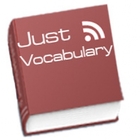
JC Vocabulary #3
Definitions and Sentences Due Thursday 5/24
Quiz over all words on Friday 5/25
1) intermit - to discontinue temporarily
2) servile - overly submissive
3) hinder - to cause delay
4) countenance - appearance
5) impart - to make known, disclose
6) feeble - lacking strength
7) recount - to narrate past facts, tell as events
8) seldom - rarely or infrequently
9) thrice - three times
10) rogues - dishonest ; a vagrant, scoundrel, or rascal
11) bondage - slavery or involuntary servitude
12) rubbish - worthless trash
13) bestow - to present as a gift
14) craves - to long for
15) insurrection - rebellion
16) resolution - a resolve or determination
17) shrewd - sly, clever, tricky, calculating
18) apparent - capable of being easily perceived or understood
19) disperse - To drive off or scatter in different directions
20) acquainted - having personal knowledge as a result of study, experience, made familiar
21) exploit - heroic or difficult deed
22) consumed - to absorb, destroy, as by decomposition or burning
23) amiss - out of the right or proper course, order, or condition;improperly; wrongly; astray
24) notwithstanding - in spite of the fact that, although:
FRIDAY APRIL 27, 2012
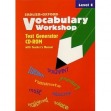
VOCABULARY QUIZ TODAY!
Sentences and definitions due at the beginning of class
1) Construe - make sense of
2) Cogitations - thoughts, ideas
3) Accoutred - provided with necessary articles of equipment for a specialized purpose (especially military)
4) Entreat - Negotiate; to plead with especially in order to persuade
5) Fain - gladly
6) Mettle - the courage to carry on
7) Prodigies - Special young individuals, endowed with exceptional abilities
8) Portentous - being a grave or serious matter; Hints of sinister & violent mysteries
9) Augmented - to make greater
10) Visage - the face, with reference to shape, features, or expression
11) Affability - friendliness
12) Ingrafted to incorporate in a firm or permanent way; implant
13) Augurers - Fortune Tellers or Soothsayers who interpret and observe omens
14) Appertain - to belong as a part, right, possession, attribute
15) Puissant - power, might
16) Malice - Desire to inflict injury, harm, or suffering on another.
17) Appeased - To bring to a state of peace, quiet, ease, calm; pacify; soothe
18) Strife - Vigorous or bitter conflict, discord, or antagonism
19) Oration - a formal public speech, especially one delivered on a special occasion,
as on an anniversary, at a funeral, or at academic exercises.
20) Coffers - a box or chest, especially one for valuables.
21) Mantle - a loose, sleeveless cloak or cape.
22) Conspirator - A person who takes part in a conspiracy; plotter
FRIDAY FEBRUARY 3, 2012

END OF SEMESTER ONE
STUDENT FREE DAY!
THURSDAY FEBRUARY 2, 2012
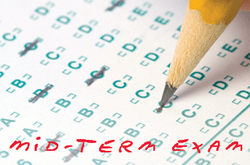
Mid - Term Exams
Period 5 7:45 to 9:45 Grade 9
SNACK 9:45 to 10:00
Period 6 10:05 to 12:05 Grade 9
Period 5 7:45 to 9:45 Grade 9
SNACK 9:45 to 10:00
Period 6 10:05 to 12:05 Grade 9
WEDNESDAY FEBRUARY 1, 2012
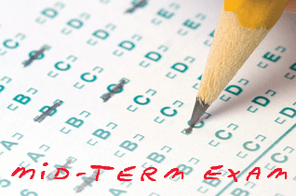
Mid - Term Exams
Period 0 6:45 to 7:40
Period 3 7:45 to 9:45 Grade 9
SNACK 9:45 to 10:00
Period 4 10:05 to 12:05 Grade 10
Period 0 6:45 to 7:40
Period 3 7:45 to 9:45 Grade 9
SNACK 9:45 to 10:00
Period 4 10:05 to 12:05 Grade 10
TUESDAY JANUARY 31, 2012
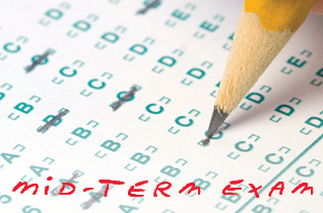
Mid - Term Exams
Period 0 6:45 to 7:40
Period 1 7:45 to 9:45 Grade 10
SNACK 9:45 to 10:00
Period 2 10:05 to 12:05 Prep
MONDAY JANUARY 30, 2012
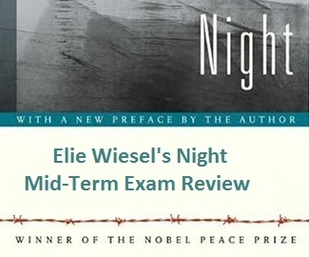
Review Elie Wiesel's Night to prepare
for English II Mid-Term Exam (Handout)
Fall Semester Finals' Schedule
Tuesday, January 31, 2012
Period 1 7:45 to 9:45 Grade 10
Wednesday, February 1, 2012
Period 4 10:05 to 12:05 Grade 10
REMINDERS
Make sure you bring your Night Notes with you to class on the day
of the Mid-Term Exam so that you can turn them in for points.
FRIDAY JANUARY 20, 2012
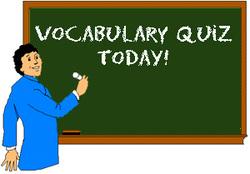
Make sure you bring your "Night" book with
you to class on Thursday 1/26 through Friday 1/27, 2012
Book Report #2 Power Point- Due Tuesday, Jan. 24th 2012
HAND IN - Vocabulary #6 sentences
CLASSWORK
I. Vocabulary #6 Quiz
II. Begin taking California Education Content Standards
9th Grade Benchmark Test #2(Q2)
REMINDERS
A. Make sure you bring your "Night" book with
you to class on Thursday 1/26 through Friday 1/27, 2012
B. Book Report #2 Power Point- Due Tuesday, Jan. 24th 2012
http://abcusdcerritoshsmarzo2.weebly.com/book-reports.html
THURSDAY JANUARY 19, 2012
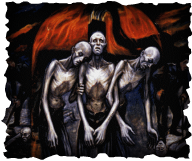
*You will not need your Night book with you in class Fri. 1/20
HAND IN "The Last Days" Holocaust ReactionJournal
CLASSWORK
I. Review Night Themes
Night themes include the dangers of silence and the importance of remembering. Putting into practice these themes from Night by Elie Wiesel can help prevent human rights atrocities.
Silence - As Eliezer and his family exit the train at Auschwitz, they are shocked at its existence, causing one of the prisoners to insult them, in disbelief that it was 1944 and they had never heard of Auschwitz. They weren't alone.
How many otherwise good humans were aware of the existence of concentration camps but chose to remain silent? It is silence which allows the Nazi takeover in Europe. Another silence Wiesel emphasizes is the silence of God to allow such atrocities to occur. Wiesel counsels his readers to not be silent witnesses to hate.
The Importance of Remembering - One of Wiesel's main objectives in writing Night is to remind his audience that the Holocaust occurred, in hopes that it will never repeat itself. Wiesel has maintained his vigilance against hatred and inhumanity through the Elie Wiesel foundation for humanity.
More Themes in Night by Elie WieselNight themes include the inhumanity of humans toward others and the struggle to have faith in a benevolent God during suffering.
The Existence of Evil - Philosphers and religious scholars have theorized on the existence of evil for centuries, asking the question "How or why does God allow evil to exist if he is, in fact, all powerful and good. Throughout the narrative, Eliezer answers the question by asserting his God is dead. Despite his avowal that his faith is dead, he maintains scraps of it, praying, for example, that he will never betray his father as Rabbi Eliahou's son does. He also recognizes that those prisoners who completely lose their faith soon die.
Inhumanity - Eliezer is shocked that human beings can be so cruel. The first section of the narrative portrays the entire city of Sighet in denial. When foreign Jews are deported, the town insists all is well. When Moshe the Beadle returns and reports Nazi atrocities, the town insists all is well. When the Fascists take over in Hungary, the town insists all is well. When the SS begin patrolling the streets, the town insists all is well. When Eliezer suggests they move to Palestine, his father refuses. When Martha the former servant offers them refuge, even after most of the town had been expelled, they remain. Those in Sighet cannot comprehend that other human beings can be so evil.
The Animalization of Humans - Eliezer comments on how prisoners themselves become inhuman in concentration camps. In addition to the kapos who treat regular prisoners almost as cruelly as the SS, Eliezer witnesses three instances of sons turning against their fathers: (1) He witnesses a son abusing his father; (2) He witnesses Rabbi Eliahou's son abandon him during the forced evacuation from Buna; (3) He witnesses a son beat his own father over a piece of bread on the train to Buchenwald. Eliezer fels guilt over the manner in which he treats his father, feeling him a burden at times.
II. DOL (Daily Oral Language)
Make Corections
A. which do you like better johanna asked mr wordsworth poem or miss wordsworths journal entry
B. well garrett admits i preferr fog by carl sandburg because i like cats and i dont care so much about flowers
HOMEWORK
I. VOCABULARY#6 - "NIGHT" Words
WRITE one sentence for each word - DUE Friday 1/20/12
TEST over all 20 words - Friday 1/20/12
1. emerged - to come forth into view or notice, as from concealment
2. hillock - a small hill or mound
3. timid - lacking in self-assurance, courage, or bravery; easily alarmed
4. tiers - a layer; level
5. beseeching - sought or -seeched, to implore urgently
6. livid - enraged; furiously angry
7. dysentery - intestinal inflammation causing abnormal pain and diarrhea
8. invalids - a person who is too sick or weak to care for himself
9. wailing - to utter a prolonged, inarticulate, mournful cry
10. spasmodically - bursts of excitement
11. summons - a request, demand, or call to do something
12. conscience - the inner sense of what is right or wrong in one's conduct or motives
13. delirious - hallucinating, excited, frantic
14. pleaded - to appeal or entreat earnestly
15. indifference - lack of interest or concern
16. distinguish - to recognize as distinct or different
17. spectacle - a public show or display
18. vitality - exuberant physical strength or mental vigor
19. disengage - to release from attachment or connection; loosen; unfasten
20. grimace - a facial expression, often ugly or contorted, that indicates disapproval, pain
REMINDERS:
I. Night: Genocide Research Paper (100 Points)
Due Friday January 20th, 2012 (See Handout)
II. Book Report #2 - Due Tuesday, Jan. 24th 2012
(See instructions under the BOOK REPORTS TAB for details)
http://abcusdcerritoshsmarzo2.weebly.com/book‐reports.html
WEDNESDAY JANUARY 18, 2012
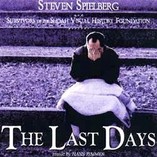
*Bring your Night book with you to class Thurs. 1/19
HAND IN "Night" Homework Questions Chapters 6 & 7
CLASSWORK
I. Finish watching film "The Last Days"
II. JOURNAL - TITLE: HolocaustReaction - WRITE 1 page - Due Today, March 18th
Explain the significance of "Night" and the film "The Last Days." How does the film relate to the novel? Discuss the realness, the situations, events, and how it applies to your thoughts on what you just learned about the Holocaust. Do you now understand why Author and Holocaust survivor Elie Wiesel titles his book NIGHT?
III. COPY Vocabulary Words and Homework Questions from
White Board or get from Classroom Website.
HOMEWORK
I. VOCABULARY#6 - "NIGHT" Words
WRITE one sentence for each word - DUE Friday 1/20/12
TEST over all 20 words - Friday 1/20/12
1. emerged - to come forth into view or notice, as from concealment
2. hillock - a small hill or mound
3. timid - lacking in self-assurance, courage, or bravery; easily alarmed
4. tiers - a layer; level
5. beseeching - sought or -seeched, to implore urgently
6. livid - enraged; furiously angry
7. dysentery - intestinal inflammation causing abnormal pain and diarrhea
8. invalids - a person who is too sick or weak to care for himself
9. wailing - to utter a prolonged, inarticulate, mournful cry
10. spasmodically - bursts of excitement
11. summons - a request, demand, or call to do something
12. conscience - the inner sense of what is right or wrong in one's conduct or motives
13. delirious - hallucinating, excited, frantic
14. pleaded - to appeal or entreat earnestly
15. indifference - lack of interest or concern
16. distinguish - to recognize as distinct or different
17. spectacle - a public show or display
18. vitality - exuberant physical strength or mental vigor
19. disengage - to release from attachment or connection; loosen; unfasten
20. grimace - a facial expression, often ugly or contorted, that indicates disapproval, pain
REMINDERS:
I. Night: Genocide Research Paper (100 Points)
Due Friday January 20th, 2012 (See Handout)
II. Book Report #2 - Due Tuesday, Jan. 24th 2012
(See instructions under the BOOK REPORTS TAB for details)
http://abcusdcerritoshsmarzo2.weebly.com/book‐reports.html
TUESDAY JANUARY 17, 2012
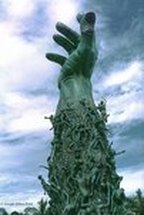
*Bring your Night book with you to class
Tue. 1/17 through Fri. 1/20
HAND IN - Cartoon Analysis Project - Due Today, Tuesday 1/17/12
CLASSWORK/HOMEWORK
I. READ– Night Sections 6 & 7- Pages 91-108 Read together in class.
(What we don't finish reading in class together, you will need to finish tonight at home.)
II. COPY Vocabulary Words and Homework Questions from
White Board or get from Classroom Website.
HOMEWORK
I.Night Section 6 Questions - Due Wednesday Jan 18th
1. What was the only thing that kept Wiesel going as they journeyed to a new camp?
2. Why did Wiesel describe himself and the other prisoners “masters of nature,
the master of the world”?
3. Why did Wiesel and his father take turns sleeping?
4. Who was Rabbi Eliahu? What did he ask Wiesel?
5. After Rabbi Eliahu had journeyed on, what did Wiesel realize in relation to his question?
6. What was Juliek worried about as the prisoners piled on top of him?
7. What do you think Wiesel meant by this statement: “All I could hear was the violin, and
it was as if Juliek’s soul had become his bow. He was playing his life. His whole being
was gliding over the strings.”
8. Once they arrived at Gleiwitz, how many days did they go without food or water?
9. Why did Wiesel put his life at risk at the end of this section?
10. What did the prisoners finally do to get water?
II. Night Section 7 Questions - Due Wednesday Jan 18th
1. What did they do with the dead bodies on the train?
2. What happened when workmen threw bread on the train?
3. Meir Katz groaned "Why don't they shoot us right away?" Why do you think they didn't?
III. VOCABULARY#6 - "NIGHT" Words
WRITE one sentence for each word - DUE Friday 1/20/12
TEST over all 20 words - Friday 1/20/12
1. emerged - to come forth into view or notice, as from concealment
2. hillock - a small hill or mound
3. timid - lacking in self-assurance, courage, or bravery; easily alarmed
4. tiers - a layer; level
5. beseeching - sought or -seeched, to implore urgently
6. livid - enraged; furiously angry
7. dysentery - intestinal inflammation causing abnormal pain and diarrhea
8. invalids - a person who is too sick or weak to care for himself
9. wailing - to utter a prolonged, inarticulate, mournful cry
10. spasmodically - bursts of excitement
11. summons - a request, demand, or call to do something
12. conscience - the inner sense of what is right or wrong in one's conduct or motives
13. delirious - hallucinating, excited, frantic
14. pleaded - to appeal or entreat earnestly
15. indifference - lack of interest or concern
16. distinguish - to recognize as distinct or different
17. spectacle - a public show or display
18. vitality - exuberant physical strength or mental vigor
19. disengage - to release from attachment or connection; loosen; unfasten
20. grimace - a facial expression, often ugly or contorted, that indicates disapproval, pain
REMINDERS:
I. Night: Genocide Research Paper (100 Points)
Due Friday January 20th, 2012 (See Handout)
II. Book Report #2 - Due Tuesday, Jan. 24th 2012
(See instructions under the BOOK REPORTS TAB for details)
http://abcusdcerritoshsmarzo2.weebly.com/book‐reports.html
MONDAY JANUARY 16, 2012
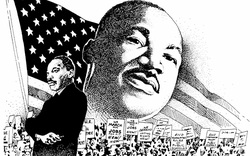
No School!
Martin Luther King Jr Holiday
Martin Luther King Jr Holiday
FRIDAY JANUARY 13, 2012
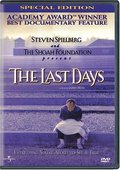
You will not need your "Night" book with you in class today.
No Vocabulary this week!
*CLASSWORK
I. Begin watching film "The Last Days"
The Last Days presents four distinct perspectives on the holocaust.
First, the survivors tell of their life before the holocaust: life in a regular town, living a regular life. They tell of how that changed, usually by insidious degrees as opposed to all at one moment. It is horrifying to see how it happened, how it started. The Nazi's suppression was so subtle at first, gradually becoming more harsh, and yet seemingly not that far out of the ordinary, at least not as much so as what was to follow. You can see how it could happen to anybody. People didn't think to run. This is the first perspective.
The second perspective is of the survivors talking about their experiences in interviews, the horrors they saw, the last time they saw they their families, the way people were executed by a perfectly efficient system. They tell how they swallowed jewels to keep them safe. The survivors recount their stories from memory.
The third perspective is the most unusual: the survivors actually visiting the ruins of the camp they had witnessed such horror in, lived in for a period of months. They walk over to a decrepit foundation of a building and say "This was the latrine," and then tell how they performed a ceremony in there. You get to see the places where the attrocities happened, which you may have seen before, but this time you have a guide who was actually there. This is not a history lesson, but a personal narrative.
There is actually a fourth perspective too: a Nazi doctor from Auschwitz, who is interviewed both by one of the documentarians and also by one of the survivors. You get to hear the survivor's perspective on the Nazi doctor's account of events at the camp.
An extremely well rounded story, which will help you understand on an emotional level what was going on.
HOMEWORK
I. Cartoon Analysis Project - Due Tuesday 1/17/12 (See detailed instructions under Wed. Jan 11th)
REMINDERS:
I. Night: Genocide Research Paper (100 Points)
Due Friday January 20th, 2012 (See Handout)
II. Book Report #2 - Due Tuesday, Jan. 24th 2012
See instructions under the BOOK REPORTS TAB for details)
http://abcusdcerritoshsmarzo2.weebly.com/book‐reports.html
THURSDAY JANUARY 12, 2012
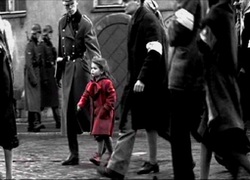
*Bring your Night book with you to class
Wed. 1/11 through Fri. 1/13
* No Vocabulary this week
HAND IN - Night Section 5 Questions (1-9) - Due Today!
Complete Journal for section 5 and get stamped!
CLASSWORK
I. Watch scenes from the film "Schindler's List" and Write 1/2 Page Response
Perhaps the most moving image in Steven Spielberg's epic Schindler's List is the little girl in the red coat. The girl in the red coat is the most obvious symbol in the film, simply because her coat is the only color object, presented in the main body of the black & white film. To Schindler, she represents the innocence of the Jews being slaughtered. Her oblivion mirrors the inaction of the Allied powers in helping to save the Jews. This one child is a symbol of all the 6,000,000 victims, exposed to ruthless slaughter. Each was an individual, who had dreams, who had a life, who had a family. Schindler watches the girl from his horse, high atop a hill and is riveted by her, almost to the exclusion of the surrounding violence. The moment Schindler catches sight of her marks the moment when he is forced to confront the horror of Jewish life during the Holocaust and his own hand in that horror. Schindler later spots the little girl in a pile of exhumed dead bodies, and her death symbolizes the loss of innocence.
HOMEWORK
I. Cartoon Analysis Project - Due Tuesday 1/17/12 (See detailed instructions under Wed. Jan 11th)
REMINDERS:
I. Night: Genocide Research Paper (100 Points)
Due Friday January 20th, 2012 (See Handout)
II. Book Report #2 - Due Tuesday, Jan. 24th 2012
See instructions under the BOOK REPORTS TAB for details)
http://abcusdcerritoshsmarzo2.weebly.com/book‐reports.html
WEDNESDAY JANUARY 11, 2012
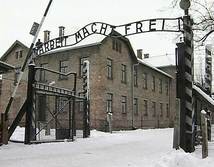
*Bring your Night book with you to class Wed. 1/11 through Fri. 1/13
* No Vocabulary this week
HAND IN - Night Section 4 Questions (1-7) - Due Today!
CLASSWORK
I. READ together the book NIGHT - Section 5, Pages 73-90
(What we don't finish reading in class today, you will need to finish tonight at home.)
II. Sketchbook- Journal - TITLE: Night Section 5 - WRITE 1/2 page.
When complete, GET STAMPED in class today, Wednesday 1/11 - Keep in
binder along with your first three sketchbook journals.
A. Enter Date
B. Create a title for section 5 based on what happens in this section.
C. Two Illustration of one scene from Night Section 5 - Pages 73 - 90
D. Two Quotes from section 5 and page numbers where quotes were found
E. Written response for Night Section 5 - Pages 73-90
The written entries should focus on your response to the literature, and should not merely be chapter summaries. They should include comments about your thoughts and feelings while reading, any questions you have, and predictions about the next chapter. Try to write at least 1/2 page for each entry. Choose one important sentence from the book. Copy it word for word and include the page number.
III. Review Cartoon Analysis Assignment - Due Tuesday 1/17/12
Project: Cartoon-Truth or Tale
Click on the link below to print a copy
of the "Cartoon Analysis Work Sheet"
http://www.archives.gov/education/lessons/worksheets/cartoon.html
Create your own cartoon depicting a message of propaganda relating to
Racism and that parallels [to some degree] with what was happening in the
world during the late 30's and 1940s. You can depict the race of your choice
(including your own) in a demeaning way or make your own anti-Nazi
propaganda (See examples below)
Fill in the "Cartoon Analysis Work Sheet," answering the following questions.
1) Describe the action taking place in the cartoon.
2) Explain how the words in the cartoon clarify the symbols.
3) Explain the message of the cartoon.
4) What special interest groups would agree/disagree with the cartoon's message?
Propaganda Posters
*HOMEWORK
Night Questions Section 5, pages 73-90 - Due Thurs. 1/12/2012
1. What did the men do on the eve of Rosh Hashana?
2. How did Elie feel while the others were praying?
3. What was Elie's decision about fasting on Yom Kippur? Why did he make that decision?
4. What was Elie's "inheritance" from his father? Why was his father giving it to him?
5. Did the men remember to say the Kaddish for Akiba Drumer?
6. What did Elie dream of when he dreamed of a better world?
7. What happened to the patients who stayed in the hospital instead of being evacuated?
8. What was the last thing the head of the block ordered the
men to do before they evacuated? Why?
9. What was the weather like during the evacuation?
REMINDERS:
I. Cartoon Analysis Project - Due Tuesday 1/17/12
II. Night: Genocide Research Paper (100 Points)
Due Friday January 20th, 2012 (See Handout)
III. Book Report #2 - Due Tuesday, Jan. 24th 2012
See instructions under the BOOK REPORTS TAB for details)
http://abcusdcerritoshsmarzo2.weebly.com/book‐reports.html
Extra Credit Book Report (50 Points) Due Wednesday February 1, 2012
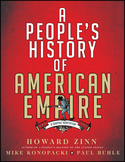
A People's History of American Empire by Howard Zinn
Adapted from the Bestselling Grassroots History of the United States, The Story of American in the World, Told in Comics Form.
Since its landmark publication in 1980, A People's History of the United Stateshas had six new editions, sold in excess of 1.7 million copies, become required classroom reading, and been turned into an acclaimed play. Not merely a successful book, A People's History triggered a revolution in the way history is told, displacing official versions with their emphasis on great men in high places to chronicle events as they were lived, from the bottom up.
Now, Howard Zinn, cartoonist Mike Konopacki, and historian Paul Buhle have collaborated to retell, in vibrant graphic detail, a most immediate and relevant chapter of A People's History: the centuries-long story of America's actions in the world. Narrated by Zinn himself, this version opens with the events of 9/11 and then jumps back to explore the cycles of U.S. expansionism and intervention from Wounded Knee to Iraq, stopping along the way at World War I, Vietnam, the Iranian revolution, and Central America. The book also follows Zinn's own story, as the son of poor Jewish immigrants becomes one of America's leading historians.
Instructions for A People's History of American Empire Book Report
You have read "A People's History of American Empire." Your next step will be to organize what you are going to say about it in your report. Writing the basic elements down in an outline format will help you to organize your thoughts.What will you include in the outline?
The description of the book should include such elements as:
- The setting—where does the story take place? Is it a real place or an imaginary one? If the author does not tell you exactly where the story is set, what can you tell about it from the way it is described?
- The time periods—are the stories set in the present day or in earlier time periods?
Let your reader know. - The main character(s)—who are the stories mostly about? Give a brief description. Often, one character can be singled out as the main character, but some books will have more than one.
- The plot—what happens to the main character? WARNING! Be careful here. Do not fall into the boring trap of reporting every single thing that happens in the story. Pick only the most important events. Here are some hints on how to do that. First, explain the situation of the main character as the story opens. Next, identify the basic plot element of the story--is the main character trying to achieve something or overcome a particular problem? Thirdly, describe a few of the more important things that happen to the main character as he/she works toward that goal or solution. Finally, you might hint at the story's conclusion without completely giving away the ending.
Remember! Whether you are writing about fiction or non-fiction you must be sure to recognize the main idea or ideas in the book. So be sure that you have a good understanding of it before you begin writing. Keep the book beside you while you are writing your report so that you can refer to it when necessary.
The Draft and the Final Report
The Draft
Your draft will be a fleshing out of the ideas from your outline. Don't worry about being too neat as no one else will be reading this part of your work. You can write additional notes in the margins but try to make sure that, when you come back to write your final report, you can understand the exact order of your material.
The Final Report
If you have followed my advice, you should be ready to write your final report. Thoroughly familiarize yourself with your draft before you type it. All of your revisions should have been made on your draft so your job now is to make sure that your presentation is correct. Check your grammar and your spelling. Typed double spaced, 1" Margins, Arial or Times New Roman Font, Size 12 only!
TUESDAY JANUARY 10, 2012
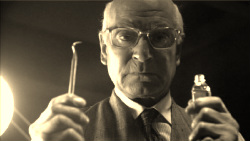
*Bring your Night book with you to class Tue. 1/10 through Fri. 1/13
* No Vocabulary this week
HAND IN - Conspiracy Essay Questions - Due Today!
CLASSWORK
I. READ together the book NIGHT - Section 4, Pages 45-62
II. Sketchbook- Journal - TITLE: Night Section 4 - WRITE 1/2 page.
When complete, GET STAMPED in class today, Tuesday 1/10 - Keep in
binder along with your first three sketchbook journals.
A. Enter Date
B. Create a title for section 4 based on what happens in this section.
C. Two Illustration of one scene from Night Section 4 - Pages 45-62
D. Two Quotes from section 4 and page numbers where quotes were found
E. Written response for Night Section 4 - Pages 45-62
The written entries should focus on your response to the literature, and should not merely be chapter summaries. They should include comments about your thoughts and feelings while reading, any questions you have, and predictions about the next chapter. Try to write at least 1/2 page for each entry. Choose one important sentence from the book. Copy it word for word and include the page number.
*HOMEWORK
Night Questions Section 4, pages 45-62 - Due Wed 1/11/2012
1. Describe Elie's encounter with the dentist.
2. What did Elie Wiesel do when Idek hit his father? What was he thinking?
3. Who took Elie's gold tooth? Why did Elie give it up?
4. What were the only things in which Elie took an interest?
5. How did Elie describe the men after the air raid?
6. What happened to the young man from Warsaw? Why?
7. How did Elie say the soup tasted the night the Pipel (young servant boy) was hanged?
REMINDERS:
I. Night: Genocide Research Paper (100 Points)
Due Friday January 20th, 2012 (See Handout)
II. Book Report #2 - Due Tuesday, Jan. 24th 2012
See instructions under the BOOK REPORTS TAB for details)
http://abcusdcerritoshsmarzo2.weebly.com/book‐reports.html
MONDAY JANUARY 9, 2012
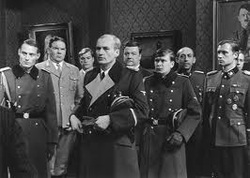
*Bring you Night book with you to class Tue. 1/10 through Fri. 1/13
* No Vocabulary this week
CLASSWORK - DUE TODAY at the end of class!
JOURNAL: (WRITE 1 - 2 Pages) Title - Resolutions and Change/X-Mas Break
Page 1 -Do you make New Year's resolutions 2012? What is a resolution? A resolution is a promise. It is a promise that you make to yourself! It is a tradition for people to make resolutions at the beginning of a new year. There are different kinds of resolutions.
One sort of resolution has to do only with oneself. You might decide to lose weight, to stop eating candy, to exercise more, to watch less TV, limit your time playing video games or spend less time text messaging and using other social applications such as Facebook.
Other resolutions might involve family or friends. You could resolve to be more patient with your little brother, to be more helpful to your mom, or not to gossip or get into fights with your friends. Some resolutions are about school and the outside world, such as getting to class on time, trying for better grades, or not teasing the neighbor's dog.
If you manage to keep these promises, it might make you feel better about yourself. So, it's important not to make wild resolutions that are too difficult to follow. Your promises to yourself should not be too hard to keep.
Page 2 - Explain in detail how you spent your time over Christmas Break. - DUE TODAY
HOMEWORK-Due Tue. Jan. 10th
I. Conspiracy Essay Questions - Remember, this paper was assigned before Christmas
Break and is based on the film we watched in class "Conspiracy" about the Wannsee Conference where Nazi Officiers and German Law Makers made plans to systematically exterminate the Jews.
Objectives
* You should understand the importance of the Wannsee Conference and how it fits into the
larger pattern of persecution of the Jews in Germany prior to 1942.
* You will be able to analyze the purpose and nature of the decisions made at the Wannsee Conference
and grasp the change in Nazi policy this represented.
* You will understand the investment of resources and coordination required by the
Nazis in implementing this plan that involved the cooperation of all government agencies.
* You will know the amount of territory controlled or occupied by the Nazis by
1942 and understand the significance of this in the execution of the "Final Solution."
(Write one paragraph answers for each question. See instructions below for details.)
1) How does this careful investigation of the meeting of Nazi leaders in 1942 change
your understanding of the Holocaust and the people who made it happen?"
2) Is it really possible for a secret group of powerful people to influence historical, political and/or social events?”
3) Do people tend to not be concerned with or simplify the truth because they instead, prefer to
reside in their very own unreality where everything functions according to their social agreements?
4) Do you believe that in order to reform society, individuals need to be an active part of it and change it from within? Or must they hide inside of society or externally rebel against it in order for things to change?
WRITE 2 Full Pages, addressing all four questions. (Compose a 5 Paragraph essay. 4 or 5 sentences per. paragraph. The 5th paragraph should be your Conclusion) (Typed, double spaced, #12 font Times New Roman or Arial only, 1" margins on right/left hand sides of paper) - Due Tuesday January 10, 2012
REMINDERS:
I. Night: Genocide Research Paper (100 Points)Due Friday January 20th, 2012 (See Handout)
Assignment: 5-Paragraph Essay- Research Paper
Students will research and provide a written report with visuals about a specific country or race of people who experienced the act of genocide. The research paper must be a minimum of two pages with a works cited page (three pages total) and a maximum of five. (Typed, Double Spaced, Times New Roman or Arial Font Size 12 Only, 1” Margins)
Your research paper must contain concrete details and commentary. It must follow MLA guidelines for a research paper (See Holt Language and Literature Book Pages 690 -709 for instructions and sample essay.)
MLA Guidelines can be found at the following web site:
Purdue Online Writing Lab
http://owl.english.purdue.edu/owl/resource/747/01/
The visuals may be maps of the geographical locations, charts, diagrams or other relevant photos such as pictures of the victims. However, please don’t count the pages that contain pictures as part of your
two pages of written material.
The following questions should be addressed within your essay:
Ø Who are the people who experienced genocide?
Ø How do they meet the criteria for experiencing genocide? (See Article 2 below)
Ø What geographical location did the genocide take place?
Ø Who were the perpetrators of the genocide?
Ø What reasons (excuses/justification) did the perpetrators use?
Ø How did the victims respond?
Ø What other groups responded? Did the U.N. get involved?
Were the perpetrators prosecuted? Why?
Ø What is the current status on the conflict today? Is it possible to return? Is it ongoing?
Ø What can we do to prevent genocide in the future?
Article 2
In the present Convention, genocide means any of the following acts committed with intent to destroy, in whole or in part, a national, ethnical, racial or religious group, as such:
- (a) Killing members of the group;
- (b) Causing serious bodily or mental harm to members of the group;
- (c) Deliberately inflicting on the group conditions of life calculated to bring about its physical destruction in whole or in part;
- (d) Imposing measures intended to prevent births within the group;
- (e) Forcibly transferring children of the group to another group.
of genocide. In any single class, a people or region can only be chosen twice.
|
1. Americas 2. Argentina 3. Australia 4. France 5. Philippines 6. Ireland 7. Russia 8. Qing Empire 9. Congo 10. Ottoman Empire/Turkey 11. Armenia 12. Assyria |
13. Greece 14. Dersim Kurds 15. Croatia 16. India 17. Republic of China and Tibet 18. Australia 19. Zanzibar 20. Guatemala 21. Pakistan 22. Burundi 23. Rwanda 24. North Korea |
25. Equatorial Guinea 26. Cambodia 27. East Timor under Indonesian Occupation 28. Argentina 29. Sabra-Shatila, Lebanon 30. Soviet invasion of Afghanistan 31. US invasion of Vietnam 32. Ethiopia 33. Iraqi Kurds 34. Brazil 35. Bosnia |
WRITING: 1.0 Writing Strategies
Students write coherent and focused essays that convey a well-defined perspective and tightly reasoned argument. The writing demonstrates students’ awareness of the audience and purpose. Students’ progress through the stages of the writing process as needed.
Organization and Focus
1.1 Establish a controlling impression or coherent thesis that conveys a clear and distinctive
perspective on the subject and maintain a consistent tone and focus throughout the piece of writing.
1.2 Use precise language, action verbs, sensory details, appropriate modifiers, and the active rather than the passive voice.
Research and Technology
1.3 Use clear research questions and suitable research methods (e.g., library, electronic
media, personal interview) to elicit and present evidence from primary and secondary sources.
1.4 Develop the main ideas within the body of the composition through supporting evidence
(e.g., scenarios, commonly held beliefs, hypotheses, definitions).
1.5 Synthesize information from multiple sources and identify complexities and
discrepancies in the information and the different perspectives found in each medium
(e.g., almanacs, microfiche, news sources, in-depth field studies, speeches, journals,
technical documents).
1.6 Integrate quotations and citations into a written text while maintaining the flow of ideas.
1.7 Use appropriate conventions for documentation in the text, notes, and bibliographies by
adhering to those in style manuals (e.g., Modern Language Association Handbook, The Chicago Manual of Style).
1.8 Design and publish documents by using advanced publishing software and graphic programs.
Evaluation and Revision
1.9 Revise writing to improve the logic and coherence of the organization and controlling perspective, the precision of word choice, and the tone by taking into consideration the audience, purpose, and formality of the context.
II. Book Report #2 - Due Tuesday, Jan. 24th 2012
See instructions under the BOOK REPORTS TAB for details)
http://abcusdcerritoshsmarzo2.weebly.com/book‐reports.html
Christmas Recess Dec. 23, 2011 through Jan. 8, 2012
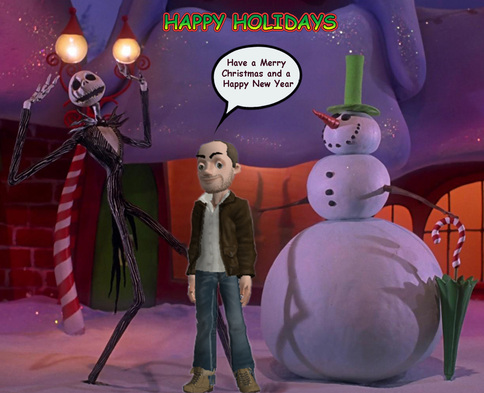
SCHOOL
HOLIDAY!
No Data December 21st - December 23rd, 2011
=head1 NAME code.pl v1.13 - CGI script to convert on-the-fly html pages across ... else { print "Content-type: text/html<title>HTTP Error</title><h2>Error: 404 Not ... type; $slang=$defcode; $slang="KOI8" if $charset=~/koi/io; $slang="WIN" if ...=head1 NAME code.pl v1.13 - CGI script to convert on-the-fly html pages across ... else { print "Content-type: text/html <title>HTTP Error</title><h2>Error: 404 Not ... type; $slang=$defcode; $slang="KOI8" if $charset=~/koi/io; $slang="WIN" if ...
Problem while parsing the module. Not valid XML.
TUESDAY DECEMBER 20, 2011
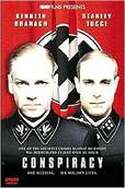
I. HAND IN NIGHT Questions (1-11) - Section 2-3 - Pages 21-43
CLASSWORK/HOMEWORK
II. Begin watching film "Conspiracy"
*On January 20, 1942, 15 high-ranking Nazi party and German government leaders met under the leadership of SS Lieutenant General Reinhard Heydrich at a lakeside villa in the wealthy Wannsee district of Berlin. Heydrich called the meeting on the basis of an order instructing him to coordinate logistics for carrying out "the final solution of the Jewish question." By seeing recreated scenes as portrayed in the HBO film “Conspiracy,” you will learn that German government officials discussed "extermination" without hesitation or qualm and thereby sanctioned, coordinated and expanded the implementation of the mass murder of all European Jews.
Objectives
* You should understand the importance of the Wannsee Conference and how it fits into the
larger pattern of persecution of the Jews in Germany prior to 1942.
* You will be able to analyze the purpose and nature of the decisions made at the Wannsee Conference
and grasp the change in Nazi policy this represented.
* You will understand the investment of resources and coordination required by the
Nazis in implementing this plan that involved the cooperation of all government agencies.
* You will know the amount of territory controlled or occupied by the Nazis by
1942 and understand the significance of this in the execution of the "Final Solution."
Essay Questions -Due Thursday December 22, 2012
(Write one paragraph answers for each question. See instructions below for details.)
1) How does this careful investigation of the meeting of Nazi leaders in 1942 change
your understanding of the Holocaust and the people who made it happen?"
2) Is it really possible for a secret group of powerful people to influence historical, political and/or social events?”
3) Do people tend to not be concerned with or simplify the truth because they instead, prefer to
reside in their very own unreality where everything functions according to their social agreements?
4) Do you believe that in order to reform society, individuals need to be an active part of it and change it from within? Or must they hide inside of society or externally rebel against it in order for things to change?
WRITE 2 Full Pages, addressing all four questions. (Compose a 5 Paragraph essay. 4 or 5 sentences per. paragraph. The 5th paragraph should be your Conclusion) (Typed, double spaced, #12 font Times New Roman or Arial only, 1" margins on right/left hand sides of paper) - Due Thursday December 22, 2012
REMINDERS:
I. Book Report #2- Due Tuesday, Jan. 24th 2012
See instructions under the BOOK REPORTS TAB for details)
http://abcusdcerritoshsmarzo2.weebly.com/book‐reports.html
MONDAY DECEMBER 19, 2011
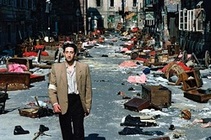
*Bring you Night book with you to class Mon. 12/19 through Wed. 12/21
* No Vocabulary this week
CLASSWORK
I. HAND IN NIGHT Questions (1-11) - Section 2-3 - Pages 21-43
II. JOURNAL #2- TITLE: Night: Deportation - WRITE 1/2 page - Due Today! - BASED ON FILM CLIPS
Your Journal should focus on your response to the film clips, and should not merely be a summary of what you watched. You should include comments about your thoughts and feelings while viewing the movie, any questions you have, and predictions about the next scene.
*HOMEWORK
I. Sketchbook- Journal - TITLE: Night Section 2-3- WRITE 1/2 page for each section -Due Wed. 12/21
GET STAMPED in class on Tuesday 12/20 - Keep in binder along with your first sketchbook journal
A. Enter Date
B. Create titles for each chapter based on what happened in the chapters. (2-3)
C. Two Illustration of one scene from each chapter: Night Section 2-3 - Pages 21-43
D. Two Quotes from each section (2 & 3) and page numbers where quotes were found
E. Written response for each chapter- Night Section 2-3 - Pages 21-43
The written entries should focus on your response to the literature, and should not merely be chapter summaries. They should include comments about your thoughts and feelings while reading, any questions you have, and predictions about the next chapter. Try to write at least 1/2 page for each entry. Choose one important sentence from the book. Copy it word for word and include the page number.
REMINDERS:
I. Book Report #2- Due Tuesday, Jan. 24th 2012
See instructions under the BOOK REPORTS TAB for details)
http://abcusdcerritoshsmarzo2.weebly.com/book‐reports.html
FRIDAY DECEMBER 16, 2011

*Bring you Night book with you to class Mon. 12/12 through Fri. 12/16
* No Vocabulary this week
CLASSWORK
I. READ together the book NIGHT - Section 2-3 - Pages 21-43
HOMEWORK
I. NIGHT Questions - Section 2-3 - Pages 21-43- Due Tuesday 12/20
1. To what did Wiesel compare the world?
2. What did Madame Schächter see in her vision?
3. How did the other people in the car react to Madame Schächter?
4. Where did the train stop?
5. What did the Jews in the train car discover when they looked out the window?
6. When did Wiesel say the travelers left their illusions behind?
7. Which notorious SS officer did they meet at Auschwitz?
8. What was Elie's main thought as the men and women were being herded from the train?
9. What prayer were the people saying? Why was it unusual?
10. What did Elie do when the gypsy struck his father? Why? What was his father's response?
11. How long were Elie and his father at Auschwitz?
REMINDERS:
I. Book Report #2- Due Tuesday, Jan. 24th 2012
See instructions under the BOOK REPORTS TAB for details)
http://abcusdcerritoshsmarzo2.weebly.com/book‐reports.html
THURSDAY DECEMBER 15, 2011
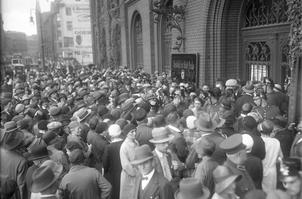
*Bring you Night book with you to
class Mon. 12/12 through Fri. 12/16
* No Vocabulary this week
CLASSWORK
I. Night - Lecture #2 - Take Notes - Brief History of Antisemitism and Germany's Economic Woes
In the year 70 B.C.E. Pompey the Great, a powerful Roman military leader, conquered Jerusalem, the capital of Palestine. Pompey defiled the Jewish temple, killed the priests, and ordered the Jews to begin worshipping the Roman gods. Most Jews resisted, but pressure to worship the Roman gods only mounted, and as the pressure increased, so did conflict within the Jewish community. Many Jews called for open rebellion against Rome, while others argued that Jews must be willing to adapt.
A hundred years later the Romans still occupied Jerusalem and the situation was not much improved when, Jesus, a Jew from Nazareth, began his ministry and travels in Palestine. The debate between the rival Jewish factions grew increasingly heated, and the climax of the conflict was triggered by the death of Jesus. Immediately afterwards, the followers of Jesus renounced Judaism, and Christianity was born as a distinctively separate religion.
Although Jesus' death had been ordered and carried out by non-Jews, most Christians believed that the Jews and their priests were responsible. St. Paul later proclaimed that the Jews "killed the Lord Jesus and the prophets and drove us out, the Jews who are heedless of God's will and enemies of their fellow men..." (I Thessalonians 2:15-16)
As Christianity spread, the differences between Christianity and Judaism became more and more pronounced. But it was not until Christianity became the official religion of the Roman Empire that anti-Judaism became a serious threat to Jewish existence.
By the fourth century, Jews were generally despised by Christians everywhere. St. Augustine, one of Christianity's most influential leaders, likened the Jewish people to Cain, who had murdered his own brother and thus became the first criminal in biblical history. St. Augustine wrote that Jews were a "wicked sect" and should be subjected to permanent exile because of their evil ways. John the author of the book of Revelations even called Jews the children of the devil. (John.8:44)
Laws were passed throughout the Christian world to "protect" the "faithful" from Jewish "contamination" by forbidding them to eat with, do business with, or have sex with Jews, and by the sixth century, Jews were not allowed to hold public office, employ Christian servants, or even show themselves in the streets during Holy Week (the week commemorating the time between Jesus' "Last Supper" and his crucifixion).
Beginning in 1096, Christian leaders launched a series of crusades against the Muslims to win control of Palestine, the birthplace of Jesus. On their way to the Middle East, the crusader armies attacked Jewish communities along the route. The First Crusade was especially bloody. Entire communities of Jews were forced to choose between baptism or death, and since few Jews would renounce their faith, the First Crusade resulted in nearly 10,000 Jews being slaughtered during the first six months alone.
Godfrey Bouillon, leader of the First Crusade, vowed "to leave no single member of the Jewish race alive," and ordered the synagogue in Jerusalem burned to the ground with its entire Jewish congregation trapped inside.
The Second Crusade, in 1146, was more sparing of Jewish lives; but, nevertheless, intensified the religious persecution of Jews.
Thousands of Jews fled to Eastern Europe, but they were unable to escape the relentless oppression, and by the thirteenth century, church leaders in what is now Germany required all Jews to wear cone-shaped hats so that no one would mistake them from ordinary Germans. In Latin countries, Jews were forced to sew yellow badges on their clothing as a means of instant identification. The persecutions, large and small, went on and on.
Peter Abler, a twelfth century philosopher and priest wrote of the Jews:
"Heaven is their only place of refuge. If they want to travel to the nearest town, they have to buy protection with huge sums of money from the Christian rulers who actually wish for the Jews' deaths so that the rulers can confiscate the possessions of the Jews. The Jews cannot own land or vineyards. Thus, all that is left to them as a means of livelihood is the business of money lending, and this in turn brings the hatred of Christians upon them even more."
Jews were allowed to become moneylenders largely because the Catholic Church considered it a sin for Christians to charge interest for lending money. And because Jews had few other ways of earning a living, large numbers of them eventually became bankers and financiers, which resulted in a stereotyping of Jews as money-hungry exploiters and usurers. It was a stereotype that was to linger even after Jews were driven from the banking industry years later, and still continues in many places up until the present day.
By the end of the fifteenth century, except for a few business encounters, Jews were totally isolated from their Christian neighbors. In some countries, Jews were forcibly confined in ghettos, sections of cities that were enclosed by high, prison-like walls. With forced segregation came new myths and stereotypes. Increasingly Jews were portrayed as agents of the devil, responsible for every catastrophe from random crime to plague and drought. Artists portrayed Jews as having horns, tails, and evil satanic faces. Christian priests and scholars often elaborated on the idea that Jews were evil creatures who were somehow less than human.
In 1517, Martin Luther, a Catholic priest in Germany, complained of corruption in the Church of Rome and called on Church leaders to reform. Instead, the Church branded him a heretic and excommunicated him. The result was the Protestant Reformation, which ultimately led to the founding of New Christian churches in Western Europe and a series of devastating wars.
Luther had hoped of converting Jews to Christianity. In 1523, he told his followers, "...we in our turn ought to treat the Jews in a brotherly fashion in order that we convert some of them ... we are but Gentiles, while Jews are of the lineage of Christ."
But when Jews refused to convert, an angry Luther wrote, in part:
"First their synagogues... should be set on fire, and whatever does not burn up should be covered or spread over with dirt so that no one may ever be able to see a cinder or stone of it. And this ought to be done for the honor of God and of Christianity in order that God may see that we are Christians... Secondly, their homes should likewise be broken down and destroyed... For, as has been said, God's rage is so great against them that they only become worse and worse through mild mercy, and not much better through severe mercy. Therefore away with them... To sum up, dear princes and nobles who have Jews in your domains, if this advice of mine does not suit you, then find a better one so that you and we may be free of this insufferable devilish burden -- the Jews."
Other Protestant leaders were more tolerant of Jews, but even among the most tolerant, the old stereotypes of Jews lingered on. As Malcolm Hay, a Catholic historian, explains:
"Men are not born with hatred in their blood. The infection is usually acquired by contact; it may be injected deliberately or even unconsciously by the parents, or by the teachers... The disease may be spread throughout the land like the plague, so that a class, a religion, or a nation will become the victim of popular hatred without anyone knowing exactly how it all began; and people will disagree, and even quarrel among themselves, about the real reason for its existence; and no one foresees the inevitable consequences."
Over time, most Jews were driven from central Europe. Many of them settled in Poland and Russia. But there the persecution continued. In 1648 and 1649, thousands of Polish Jews were slaughtered. During the late 1800's, in both Poland and Russia, Jews were murdered in organized mass killings called pogroms.
Meanwhile, in France, many Christians were calling for the emancipation of Jews. This push for Jewish civil rights was an outgrowth of the French Revolution (1789-1799) with its emphasis on liberty and equality. The movement grew, and by the mid 1800's, most Western and Central European Jews were fully emancipated.
Yet, during the late 1800's, "Jew-hatred" resurfaced as a formidable force throughout Europe, and in 1879 the word "Anti-Semitism" was coined by the German journalist and pre-Fascist Wilhelm Mahr who felt he needed a more scientific, more benign, term than "Juden-hass" (German for "hatred of Jews") to define a political movement centered upon hatred of Jews.
About this same time a new Jewish movement called Zionism emerged, and many Jews began working toward an independent Jewish state in Palestine, viewing this as the only sure way to avoid the resurgent persecution. Zionists in large numbers bought land and settled in Palestine.
In 1918, during the course of World War I, Britain captured Palestine from the Ottoman Turks. Fearing the hostility of the local Palestinians and neighboring Arab nations, Britain soon limited Jewish immigration to Palestine, even though many Jews had aided in the British takeover.
In 1933, Adolf Hitler became Chancellor of Germany and set out on a concentrated program to intensify his nations hatred of the Jews. Hitler once said that if the Jews hadn't existed he would have had to invent them. In many respects that is exactly what he did. Hitler mounted a powerful propaganda campaign designed and implemented by Joseph Goebbels, which blamed the Jews for Germany's many economic problems.
Germany was faced with reparation payments that they could not afford, so they began printing exaggerated amounts of money. This threw Germany into a state of super inflation. Inflation reached the point where millions of marks were worthless. Cartoons of the time depicted people with wheelbarrows full of money who could not buy a loaf of bread. "With the approach of world crisis foreign lenders withdrew capital and markets further closed against German imports. The United States was an extremely significant example of this. When the U.S. was hit by the great depression they immediately sought to get the loans, which they had made to German, paid back. This, in addition to all of Germany's other problems, practically caused the German economy to collapse.With Germany at its weakest and most vulnerable point, Hitler took the opportunity to begin his ascent to power. Even to this date, in a country as diverse and liberally minded as the United States, when the economy is down, people desire somewhere to place the blame. For example, the current use of illegal immigrants from Mexico as scapegoats for economic hardships. In Germany, Hitler used the Jewish people as a scapegoat for all of Germany's problems. With disproportional numbers of wealthy Jewish business owners, Hitler convinced much of Germany that the Jews were to blame for the poor economic state.
Hitler had two significant ideas that helped launch him in to power. He had someone to blame for the economy and he had a plan for a swift economic recovery. Hitler outlined a plan where in four years he would completely eliminate unemployment throughout Germany. Even though his plan was a plan that would not raise the level of income for the enrichment of the people but an economic plan for military strength and victory the German people were eager to see any economic success. Hitler used an extremely detail and well-organized plan for economic revitalization. Through his method, Hitler was able to keep his promise of economic growth and begin his climb to power.
Germany's nationalistic hatred of the Jews ultimately lead to what was known as the "Final Solution:" the physical annihilation of almost six million Jews -- in addition to almost five million other non-Jewish "racial enemies" of the German people during World War II.
Jews the world over, vowing "Never Again" in reaction to the Holocaust, rallied to the Zionist cause. Though faced with often violent opposition from Palestinian Arabs and others, Jews persisted in their quest for freedom and autonomy.
Finally in 1947, the United Nations partitioned Palestine into Arab and Jewish states. The Jewish state, Israel, declared its independence on May 14, 1948.
REMINDERS:
I. Book Report #2- Due Tuesday, Jan. 24th 2012
See instructions under the BOOK REPORTS TAB for details)
http://abcusdcerritoshsmarzo2.weebly.com/book‐reports.html
WEDNESDAY DECEMBER 14, 2011
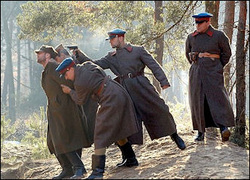
*Bring you Night book with you to class Mon. 12/12 through Fri. 12/16
* No Vocabulary this week
CLASSWORK
I. Night - Lecture #1 - Take Notes - Why the Jews?
The Holocaust was the systematic, bureaucratic, state-sponsored persecution and murder of approximately six million Jews by the Nazi regime and its collaborators. "Holocaust" is a word of Greek origin meaning "sacrifice by fire." The Nazis, who came to power in Germany in January 1933, believed that Germans were "racially superior" and that the Jews, deemed "inferior," were an alien threat to the so-called German racial community.
Contrasting their own failures the Nazi Party saw successful and prospering Jews in all fields of arts and culture, business and politics. For them, life was a constant struggle, a struggle between individuals, people, races, a struggle between Nordic culture- creators, and Semitic culture-destroyers. The Nazis distorted world view saw the Jews as a race whose goal was world domination. In their eyes, the Jews were responsible for all social vices and were seen as cold-hearted, shameless and calculating.
They believed that all of history was a fight between races which should culminate in the triumph of the superior Aryan race. Therefore, they considered it their duty to eliminate the Jews, whom they regarded as a threat. Moreover, in their eyes, the Jews' racial origin made them habitual criminals and born subversives who could never be rehabilitated and were, therefore, hopelessly corrupt and inferior.
The Jews had already been demonized. There is no doubt that other factors contributed toward Nazi hatred of the Jews and their distorted image of the Jewish people. These included the centuries-old tradition of Christian antisemitism which propagated a negative stereotype of the Jew as a Christ-killer, agent of the devil, and practitioner of witchcraft. Also significant was the political antisemitism of the latter half of the nineteenth and early part of the twentieth centuries, which singled out the Jews as a threat to the established order of society. These combined to point to the Jews as a target for persecution and ultimate destruction by the Nazis.
Some Germans believed that Germany had not been militarily defeated during World War I but instead, brought down by (mainly Jewish) subversives on the home front. This went hand in hand with the belief the the Jews were Communists (and that Communism was somehow a specifically Jewish ideology).
The original plan was to expel the Jews from Germany. One needs to bear in mind that the decision to exterminate the Jews dates from 1941, and was probably triggered by the fact that the Nazis had made their self-inflicted 'Jewish problem' more difficult by invading Poland (which had a large Jewish population) and by then isolating them in such a way that most of them became of only marginal economic usefulness to the Nazi conquerors.
REMINDERS:
I. Book Report #2- Due Tuesday, Jan. 24th 2012
See instructions under the BOOK REPORTS TAB for details)
http://abcusdcerritoshsmarzo2.weebly.com/book‐reports.html
TUESDAY DECEMBER 13, 2011
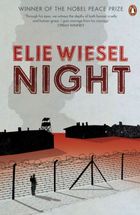
*Bring you Night book with you to class Mon. 12/12 through Fri. 12/16
* No Vocabulary this week
* HAND IN - NIGHT - Chapter 1 Questions - Due Today
I. Sketchbook- Journal- TITLE: Holocaust - WRITE 1/2 page
Must be completed TODAY!- GET STAMPED! (Write on back of Character Chart. Keep "on going"
journal until we finish the novel. We will also be adding more characters from the story to the character chart.)
Respond to the following prompts:
A. Describe in detail everything you already know about the Holocaust. Consider who was involved,
where it took place, and as many events as you can recall from class room discussion.
B. Sketch 2 symbols/illustrations that depict what happened to the people during the Holocaust.
C. Chapter journal and Sketch Log - Must be completed TODAY! - GET STAMPED!
For this novel, "NIGHT", you will be asked to keep a sketchbook- journal. This is a combination of sketches about and written responses to the story. You will be required to make an entry for each chapter in the novel.
1. Create a title for each chapter based on what happened in the chapter.
2. Also date each entry.
3. Sketch memorable scenes from the chapters. Even if you do not consider yourself
a good artist, try to make some sketches. Use colors that remind you of the mood of the story.
The written entries should focus on your response to the literature, and should not merely be chapter summaries. They should include comments about your thoughts and feelings while reading, any questions you have, and predictions about the next chapter. Try to write at least 1/2 page for each entry. Choose one important sentence from the book. Copy it word for word and include the page number.
Format your paper as shown below:
____________________________________________________________________________
Date:
Chapter Title:
Illustration of one scene from the chapter:
Quote, page#:
Written response to chapter:
D. If you only had 10 minutes to vacate your home, what items would you take?
(You can only take as much as you can carry)
REMINDERS:
I. Book Report #2- Due Tuesday, Jan. 24th 2012
See instructions under the BOOK REPORTS TAB for details)
http://abcusdcerritoshsmarzo2.weebly.com/book‐reports.html
* No Vocabulary this week
* HAND IN - NIGHT - Chapter 1 Questions - Due Today
I. Sketchbook- Journal- TITLE: Holocaust - WRITE 1/2 page
Must be completed TODAY!- GET STAMPED! (Write on back of Character Chart. Keep "on going"
journal until we finish the novel. We will also be adding more characters from the story to the character chart.)
Respond to the following prompts:
A. Describe in detail everything you already know about the Holocaust. Consider who was involved,
where it took place, and as many events as you can recall from class room discussion.
B. Sketch 2 symbols/illustrations that depict what happened to the people during the Holocaust.
C. Chapter journal and Sketch Log - Must be completed TODAY! - GET STAMPED!
For this novel, "NIGHT", you will be asked to keep a sketchbook- journal. This is a combination of sketches about and written responses to the story. You will be required to make an entry for each chapter in the novel.
1. Create a title for each chapter based on what happened in the chapter.
2. Also date each entry.
3. Sketch memorable scenes from the chapters. Even if you do not consider yourself
a good artist, try to make some sketches. Use colors that remind you of the mood of the story.
The written entries should focus on your response to the literature, and should not merely be chapter summaries. They should include comments about your thoughts and feelings while reading, any questions you have, and predictions about the next chapter. Try to write at least 1/2 page for each entry. Choose one important sentence from the book. Copy it word for word and include the page number.
Format your paper as shown below:
____________________________________________________________________________
Date:
Chapter Title:
Illustration of one scene from the chapter:
Quote, page#:
Written response to chapter:
D. If you only had 10 minutes to vacate your home, what items would you take?
(You can only take as much as you can carry)
REMINDERS:
I. Book Report #2- Due Tuesday, Jan. 24th 2012
See instructions under the BOOK REPORTS TAB for details)
http://abcusdcerritoshsmarzo2.weebly.com/book‐reports.html
MONDAY DECEMBER 12, 2011
Thor vs. Hitler
A nice transition from Norse Myth to Elie Wiesel's "Night"
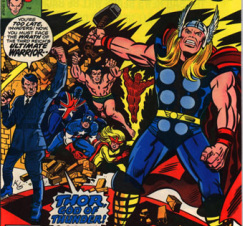
*Bring you Night book with you to class Mon. 12/12 through Fri. 12/16
I. HAND IN - Myth Story & Picture
CLASSWORK
II. READ NIGHT Pages 13 -31
(Read together in class. What we don't finish in
class, please finish reading at home.)
III. Take Notes - Make Character Chart
*HOMEWORK
I. NIGHT - Chapter 1 Questions - Due Tuesday 12/13
1. Describe Moshe the Beadle.
2. Describe Elie Wiesel's father. What was his occupation?
3. Why was Moshe the Beadle important to Elie Wiesel?
4. Summarize the story Moshe the Beadle told on his return from being deported.
Why did he say he had returned to Sighet?
5. What was the public reaction to Moshe's story?
6. What was the setting and the year for the first section of the book? What was
the world condition at the time?
7. Describe, in order, the events that happened from the last day of Passover until Pentecost.
8. How did Wiesel say he felt about the Hungarian police?
9. Who was Martha? What happened when she visited the Wiesel family in the ghetto?
REMINDERS:
I. Writing - A Modern Monster - Project - 24 Points - Lit Book Pg 687
WRITE a one page descriptive story- Due Today!
II. Book Report #2- Due Tuesday, Jan. 24th 2012
See instructions under the BOOK REPORTS TAB for details)
http://abcusdcerritoshsmarzo2.weebly.com/book‐reports.html
I. NIGHT - Chapter 1 Questions - Due Tuesday 12/13
1. Describe Moshe the Beadle.
2. Describe Elie Wiesel's father. What was his occupation?
3. Why was Moshe the Beadle important to Elie Wiesel?
4. Summarize the story Moshe the Beadle told on his return from being deported.
Why did he say he had returned to Sighet?
5. What was the public reaction to Moshe's story?
6. What was the setting and the year for the first section of the book? What was
the world condition at the time?
7. Describe, in order, the events that happened from the last day of Passover until Pentecost.
8. How did Wiesel say he felt about the Hungarian police?
9. Who was Martha? What happened when she visited the Wiesel family in the ghetto?
REMINDERS:
I. Writing - A Modern Monster - Project - 24 Points - Lit Book Pg 687
WRITE a one page descriptive story- Due Today!
II. Book Report #2- Due Tuesday, Jan. 24th 2012
See instructions under the BOOK REPORTS TAB for details)
http://abcusdcerritoshsmarzo2.weebly.com/book‐reports.html
FRIDAY DECEMBER 9, 2011
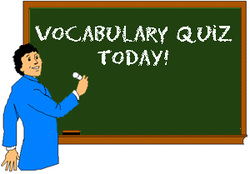
I. Hand in Vocabulary #4 Sentences
CLASSWORK
II. Vocabulary #4 CrossWord Puzzle Quiz
III. "Night" introduction Page 192
*REMINDERS:
I.Writing - A Modern Monster - Project - 24 Points - Lit Book Pg 687
WRITE a one page descriptive story- Due Monday 12/12/2011
III. Book Report #2- Due Tuesday, Jan. 24th 2012
See instructions under the BOOK REPORTS TAB for details)
http://abcusdcerritoshsmarzo2.weebly.com/book‐reports.html
THURSDAY DECEMBER 8, 2011
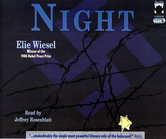
I. Check out book from the Library - ElieWiesel's Night
CLASSWORK
II. NIGHT - Pre-reading Journal 1 – Write ½ Page
Do people (parents, teachers, friends, employers, etc.) pick favorites? Have you ever been the favorite or least favorite? Describe how it made you feel. How do you feel when you don’t belong? What does it feel like to be an outsider?
III. Vocabulary #4 Review - Today
IV. Grammar - Analogies and Parts of Speech - Handout - Due Today
HOMEWORK
I. VOCABULARY #4- WRITE one sentence for each word - DUE Fri. 12/09/11
QUIZ over all 20 words - Friday 12/09/11
Terms Definitions
1) accrue - to grow or accumulate over time; to happen as a natural result
2) annotation - a critical or explanatory note or comment, especially for a literary work
3) bedlam - a state or scene of uproar and confusion
4) covert- hidden, disguised, purposefully kept a secret; sheltered, secluded; (n.) a sheltered place, a hiding place
5) debonair - pleasant, curteous, lighthearted; smooth and polished in manner and appearance
6) dun - to demand insistenly, especially in payment of a debt; (n.) a creditor; (adk.) dark, dull, drab, dingy
7) effacious - effective, producing results
8) fortuitous - accidental, occuring by a happy chance
9) gist - the essential part, the main point, or essence
10) gratuitous - freely given; not called for by circumstances, unwarranted
11) equanamity - calmness, composure, refusal to panic
12) imperious - overbearing, arrogant; seeking to dominate, pressing, compelling
13) invective - a strong denunciation or condemnation; abusive language; (adj.) abusive, vituperative
14) motley - showing great variety; composed of different elements or many colors; (n.) a jester's costume; a jester
15) munificent - extremely generous, lavish
16) procrastinate - to delay, put off until later
17) provocative - tending to produce a strong feeling or response; arousing desire or appetite; irritating, annoying
18) recondite - exceeding ordinary knowledge and understanding
19) reprobate - a depraved, vicious, or unprinicipled person, scoundrel; (adj.) wicked, corrupt, or unprincipled;
20) sedentary - characterized by or calling for continued sitting; remaining in one place
*REMINDERS:
I. Work on Vocabulary #4 Sentences - DUE Fri. 12/09/11
Study for Friday's Vocabulary Quiz
II.Writing - A Modern Monster - Project - 24 Points - Lit Book Pg 687
WRITE a one page descriptive story- Due Monday 12/12/2011
III. Book Report #2- Due Tuesday, Jan. 24th 2012
See instructions under the BOOK REPORTS TAB for details)
http://abcusdcerritoshsmarzo2.weebly.com/book‐reports.html
WEDNESDAY DECEMBER 7, 2011

CLASSWORK
I. Arthurian Legend, Celtic, & Scandinavian Myths Quiz.
II. VOCABULARY #4- WRITE one sentence for each word - DUE Fri. 12/09/11
QUIZ over all 20 words - Friday 12/09/11
Terms Definitions
1) accrue - to grow or accumulate over time; to happen as a natural result
2) annotation - a critical or explanatory note or comment, especially for a literary work
3) bedlam - a state or scene of uproar and confusion
4) covert- hidden, disguised, purposefully kept a secret; sheltered, secluded; (n.) a sheltered place, a hiding place
5) debonair - pleasant, curteous, lighthearted; smooth and polished in manner and appearance
6) dun - to demand insistenly, especially in payment of a debt; (n.) a creditor; (adk.) dark, dull, drab, dingy
7) effacious - effective, producing results
8) fortuitous - accidental, occuring by a happy chance
9) gist - the essential part, the main point, or essence
10) gratuitous - freely given; not called for by circumstances, unwarranted
11) equanamity - calmness, composure, refusal to panic
12) imperious - overbearing, arrogant; seeking to dominate, pressing, compelling
13) invective - a strong denunciation or condemnation; abusive language; (adj.) abusive, vituperative
14) motley - showing great variety; composed of different elements or many colors; (n.) a jester's costume; a jester
15) munificent - extremely generous, lavish
16) procrastinate - to delay, put off until later
17) provocative - tending to produce a strong feeling or response; arousing desire or appetite; irritating, annoying
18) recondite - exceeding ordinary knowledge and understanding
19) reprobate - a depraved, vicious, or unprinicipled person, scoundrel; (adj.) wicked, corrupt, or unprincipled;
20) sedentary - characterized by or calling for continued sitting; remaining in one place
*REMINDERS:
I. Work on Vocabulary #4 Sentences - DUE Fri. 12/09/11
Study for Friday's Vocabulary Quiz
II.Writing - A Modern Monster - Project - 24 Points - Lit Book Pg 687
WRITE a one page descriptive story- Due Monday 12/12/2011
III. Book Report #2- Due Tuesday, Jan. 24th 2012
See instructions under the BOOK REPORTS TAB for details)
http://abcusdcerritoshsmarzo2.weebly.com/book‐reports.html
TUESDAY DECEMBER 6, 2011
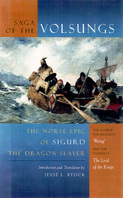
I. REVIEW Book Report #2 (Handout) - Due Tuesday, Jan. 24th 2012
http://abcusdcerritoshsmarzo2.weebly.com/book‐reports.html
II. Journal- Title: Ring of the Nibelungs& The Saga of the Volsungs –WRITE ½ Page
The Saga of the Volsungs is an Old Norse work of literature that depicts the folk legend Sigurd the Dragon Slayer. The story depicts tales of mighty achievements of men and women from some of Iceland's and Germany's great families as they wrestle for political power, engage in blood feuds, and carry out raids and battles.
We also see the clash between the pagan and the Christian in both version of the legend. These sagas also share a variety of common elements. Explain the following elements by giving examples from the story that demonstrate these things:
Victory and Vengeance, Honor and Glory, Feuds and Battles,
Swords and Sorcery, and Warriors and Poets.
III. VOCABULARY #4- WRITE one sentence for each word - DUE Fri. 12/09/11
QUIZ over all 20 words - Friday 12/09/11
Terms Definitions
1) accrue - to grow or accumulate over time; to happen as a natural result
2) annotation - a critical or explanatory note or comment, especially for a literary work
3) bedlam - a state or scene of uproar and confusion
4) covert- hidden, disguised, purposefully kept a secret; sheltered, secluded; (n.) a sheltered place, a hiding place
5) debonair - pleasant, curteous, lighthearted; smooth and polished in manner and appearance
6) dun - to demand insistenly, especially in payment of a debt; (n.) a creditor; (adk.) dark, dull, drab, dingy
7) effacious - effective, producing results
8) fortuitous - accidental, occuring by a happy chance
9) gist - the essential part, the main point, or essence
10) gratuitous - freely given; not called for by circumstances, unwarranted
11) equanamity - calmness, composure, refusal to panic
12) imperious - overbearing, arrogant; seeking to dominate, pressing, compelling
13) invective - a strong denunciation or condemnation; abusive language; (adj.) abusive, vituperative
14) motley - showing great variety; composed of different elements or many colors; (n.) a jester's costume; a jester
15) munificent - extremely generous, lavish
16) procrastinate - to delay, put off until later
17) provocative - tending to produce a strong feeling or response; arousing desire or appetite; irritating, annoying
18) recondite - exceeding ordinary knowledge and understanding
19) reprobate - a depraved, vicious, or unprinicipled person, scoundrel; (adj.) wicked, corrupt, or unprincipled;
20) sedentary - characterized by or calling for continued sitting; remaining in one place
*REMINDERS:
I. Study Notes for Arthurian Legend, Celtic, & Scandinavian Myths Quiz. QUIZ is Wednesday 12/7/11
II. Work on Vocabulary #4 Sentences - DUE Fri. 12/09/11
Study for Friday's Vocabulary Quiz
III.Writing - A Modern Monster - Project - 24 Points - Lit Book Pg 687
WRITE a one page descriptive story- Due Monday 12/12/2011
IV. Book Report #2- Due Tuesday, Jan. 24th 2012
See instructions under the BOOK REPORTS TAB for details)
http://abcusdcerritoshsmarzo2.weebly.com/book‐reports.html
|
Project - 24 Points - Due Monday 12/12/2011
Lit. Book Pg 687 Writing - A Modern Monster WRITE a one page descriptive story (Please Type. No. 12 Font Arial) with vivid imagery. Compose a modern hero story in which the hero must destroy a monster. Decide what your hero and monster will look like, smell like, feel like, sound like, etc. What treasure trove will your monster guard? Also include a a picture of your monster and hero. You can use the following web sites to help you create your picture. Hero Machine http://www.ugo.com/games/superhero-generator-heromachine-2-5 http://marvel.com/games/play/31/create_your_own_superhero |
Hero Machine lets you create the hero of your dreams, whether you want to be a Greek God or a Super Hero.
You can SAVEyour characters design specs and RELOAD them back into the Hero Machine at a later time. You can even PRINTout you designs. Once you are done designing, you can name your character, save and print your design. |
MONDAY DECEMBER 5, 2011
Dark Kingdom Questions Part 1 (Handout) - Due today at the end of class
*CLASSWORK
I. REVIEW Book Report #2 (Handout) - Due Tuesday, Jan. 24th 2012
http://abcusdcerritoshsmarzo2.weebly.com/book‐reports.html
II. Finish Watching Film -Dark Kingdom: The Dragon King
(also known as Sigurd the Dragon Slayer & Ring of the Nibelungs)
III. VOCABULARY #4- WRITE one sentence for each word - DUE Fri. 12/09/11
QUIZ over all 20 words - Friday 12/09/11
Terms Definitions
1) accrue - to grow or accumulate over time; to happen as a natural result
2) annotation - a critical or explanatory note or comment, especially for a literary work
3) bedlam - a state or scene of uproar and confusion
4) covert- hidden, disguised, purposefully kept a secret; sheltered, secluded; (n.) a sheltered place, a hiding place
5) debonair - pleasant, curteous, lighthearted; smooth and polished in manner and appearance
6) dun - to demand insistenly, especially in payment of a debt; (n.) a creditor; (adk.) dark, dull, drab, dingy
7) effacious - effective, producing results
8) fortuitous - accidental, occuring by a happy chance
9) gist - the essential part, the main point, or essence
10) gratuitous - freely given; not called for by circumstances, unwarranted
11) equanamity - calmness, composure, refusal to panic
12) imperious - overbearing, arrogant; seeking to dominate, pressing, compelling
13) invective - a strong denunciation or condemnation; abusive language; (adj.) abusive, vituperative
14) motley - showing great variety; composed of different elements or many colors; (n.) a jester's costume; a jester
15) munificent - extremely generous, lavish
16) procrastinate - to delay, put off until later
17) provocative - tending to produce a strong feeling or response; arousing desire or appetite; irritating, annoying
18) recondite - exceeding ordinary knowledge and understanding
19) reprobate - a depraved, vicious, or unprinicipled person, scoundrel; (adj.) wicked, corrupt, or unprincipled;
20) sedentary - characterized by or calling for continued sitting; remaining in one place
*HOMEWORK
Handout Due Tuesday 12/6
I. Dark Kingdom: The Dragon King Questions Part 2 (Use your notes to answer)
1) What part of the world are myths like Sigurd the Dragon Slayer told?
2) Why is the mythology of this region so dark and grim?
3) Explain Ragnarok the twilight of the gods and end of the earth (Please explain in detail)
4) Who is Loki and what key role does he play in the fall of Valhalla and Asgard?
5) “One man and one woman will survive, sheltering in the World Tree Yggdrasill, to
become the parents of a new human race.” What Christian Story is this tale similar to?
6) What was the most important Norse myth called and when was it written?
7) What was it that the Vikings prized above all other things and handing
down from generation to generation?
8) What is the name of the magical ring that Sigurd (Siegfried) acquires to
awakens the sleeping beauty (Valkyrie* Brunhilde) ?
9) What leads to Sigurd's ultimate downfall?
10) How are women portrayed in Norse Myth and how does this differ from Greek Myth?
11) Why does the story end in tragedy? What factors contribute to this?
*REMINDERS:
I. Work on Vocabulary #4 Sentences - DUE Fri. 12/09/11
Study for Friday's Vocabulary Quiz
Book Report #2- Due Tuesday, Jan. 24th 2012
(See instructions under the BOOK REPORTS TAB for details)
http://abcusdcerritoshsmarzo2.weebly.com/book‐reports.html
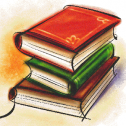
Book Report #2- Due Tuesday, Jan. 24th 2012
Procedures:
Create a PowerPoint Presentation of at least 14 slides based upon the information below.
The presentation must contain pictures, animation and sound. The presentation should include information about the author.
Read a book of at least 200 pages in length.
Then create a story map that includes:
Slides must contain the following -
*title and author
*Book Preview (Quick Summary of overall plot)
*Book Genre:
*Main Characters and descriptions (three to five characters)
*Writer's Style:
*Detailed Description of Plot and Setting (Without giving away any surprises)
*Biography about the Author
*Important events from the story (Scenes which you liked best and that you feel will appeal to your audience)
* The intended audience for the book and why you think your classmates would enjoy reading it.
SAMPLE BOOK REPORT (PPT)
Procedures:
Create a PowerPoint Presentation of at least 14 slides based upon the information below.
The presentation must contain pictures, animation and sound. The presentation should include information about the author.
Read a book of at least 200 pages in length.
Then create a story map that includes:
Slides must contain the following -
*title and author
*Book Preview (Quick Summary of overall plot)
*Book Genre:
*Main Characters and descriptions (three to five characters)
*Writer's Style:
*Detailed Description of Plot and Setting (Without giving away any surprises)
*Biography about the Author
*Important events from the story (Scenes which you liked best and that you feel will appeal to your audience)
* The intended audience for the book and why you think your classmates would enjoy reading it.
SAMPLE BOOK REPORT (PPT)
Book Report Orion Protocol
View more presentations from jamarch.
FRIDAY DECEMBER 2, 2011
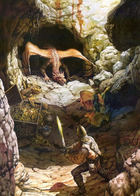
*CLASSWORK
I. Continue watching film -Dark Kingdom: The Dragon King
(also known as Sigurd the Dragon Slayer & Ring of the Nibelungs)
II. Answer Film Questions (See Handout) - Due Monday Dec. 5th at the end of class
REMINDERS
A. No Vocabulary this week.
B. Book Report #2- Due Tuesday, Jan. 24th 2012
I. Continue watching film -Dark Kingdom: The Dragon King
(also known as Sigurd the Dragon Slayer & Ring of the Nibelungs)
II. Answer Film Questions (See Handout) - Due Monday Dec. 5th at the end of class
REMINDERS
A. No Vocabulary this week.
B. Book Report #2- Due Tuesday, Jan. 24th 2012
WEDNESDAY NOVEMBER 30, 2011
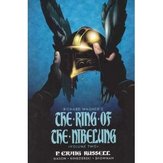
Bring your Holt Literature & Language Arts Book with
you to class all this week. Mon. 11/28 through Fri. 12/2
* HAND IN Homework Questions - Theseus
Questions 2-13 - Page 670 from your literature book.
Due Today!
*CLASSWORK
I. REVIEW - Norse Mythology & Sigurd the Dragon Slayer -TAKE NOTES
Norse mythology comes from the northernmost part of Europe, Scandinavia: Sweden, Norway, Denmark, and Iceland.
The mythology of this region is grim, shadowed by long, sunless winters. But the darkness is laced with gleams of grandeur and sparks of humor. The myths depict a universe in which gods and giants battle among themselves in a cosmic conflict fated to end in the destruction of the world. (Ragnarok)
Ragnarok (Armageddon) The twilight of the gods and end of the earth began when Loki used trickery to kill Balder, whose death was a sign that the orderly universe was falling apart. The gods chained Loki to a rock, but eventually he will break loose and lead the giants in a last bitter battle against the gods and the greatest heroes from Valhalla. The bridge Bifrost will shatter, cutting Midgard off from Asgard, and all monsters will run free. Fenrir will kill Odin, while Thor will perish in the process of slaying the serpent Jormungard. In the end, all worlds will be consumed by fire and flood. One man and one woman will survive, sheltering in the World Tree Yggdrasill, to become the parents of a new human race.
The most important Norse myth is the Volsunga Saga, written around 1300 and set in Hylestad & Setesdal, Norway. The Norse version of the German epic the Nibelungenlied, tells the folk legend of Sigurd(Siegfried), a hero who uses a magic sword called Gram (Balmung) to slay the dragon Fafnir. The Vikings prized their swords above all other things, handing them down from generation to generation and giving them names. The value of the blade was not only determined by its quality but also by how many battles that it was used in.
Sigurd (Siegfried) also acquires the magical ring of Andvari, awakens a sleeping beauty
(the Valkyrie* Brunhilde), and in the end, bravely meets his Destiny.
Fafnir’s treasure and the magic ring become a few of the factors that lead to Sigurd's downfall.
Both of these stories (the Norse Volsunga Saga and German epic the Nibelungenlied) depict the tales of might achievements of men and women from some of Iceland's and Germany's great families as they wrestle for political power, engage in blood feuds, and carry out raids and battles.
In both of these texts we see that women are portrayed on one level as warriors. Brunhilde is a perfect example of this, as she has miraculous strength and tremendous abilities.
We also see the clash between the Pagan and the Christian in both version of the legend. These sagas also share a variety of common elements: victory and vengeance, honor and glory, blood and guts, feuds and battles, swords and sorcery, and warriors and poets. Like the story of Beowulf, another Germanic hero, Sigurd triumphs over the forces of evil and chaos by slaying a monster (Fafnir).
II. Review Book Report #2- Due Tuesday, Jan. 24th 2012
III. JOURNAL #1- TITLE: Sigurd - WRITE 3/4 page
Homework if you don't complete in class today. Due Thursday 12/01/2011
Identify a lesson or theme that you learned by reading "Sigurd, the Dragon Slayer. Pages 673 - 683 in Literature Book" Discuss what this theme teaches you about Norse culture and the history of the Vikings. Use at least two details from the myth to support your ideas. Make sure to give examples from the story, using concrete detail and commentary in your writing.
*HOMEWORK
JOURNAL #1- "Sigurd" is homework if you did not finish in class.
*REMINDERS:
A. *Make sure you bring your "Holt Literature & Language Arts"
book with you to class Monday 11/28 through Friday 12/02
B. No Vocabulary this week.
C. Book Report #2- Due Tuesday, Jan. 24th 2012
you to class all this week. Mon. 11/28 through Fri. 12/2
* HAND IN Homework Questions - Theseus
Questions 2-13 - Page 670 from your literature book.
Due Today!
*CLASSWORK
I. REVIEW - Norse Mythology & Sigurd the Dragon Slayer -TAKE NOTES
Norse mythology comes from the northernmost part of Europe, Scandinavia: Sweden, Norway, Denmark, and Iceland.
The mythology of this region is grim, shadowed by long, sunless winters. But the darkness is laced with gleams of grandeur and sparks of humor. The myths depict a universe in which gods and giants battle among themselves in a cosmic conflict fated to end in the destruction of the world. (Ragnarok)
Ragnarok (Armageddon) The twilight of the gods and end of the earth began when Loki used trickery to kill Balder, whose death was a sign that the orderly universe was falling apart. The gods chained Loki to a rock, but eventually he will break loose and lead the giants in a last bitter battle against the gods and the greatest heroes from Valhalla. The bridge Bifrost will shatter, cutting Midgard off from Asgard, and all monsters will run free. Fenrir will kill Odin, while Thor will perish in the process of slaying the serpent Jormungard. In the end, all worlds will be consumed by fire and flood. One man and one woman will survive, sheltering in the World Tree Yggdrasill, to become the parents of a new human race.
The most important Norse myth is the Volsunga Saga, written around 1300 and set in Hylestad & Setesdal, Norway. The Norse version of the German epic the Nibelungenlied, tells the folk legend of Sigurd(Siegfried), a hero who uses a magic sword called Gram (Balmung) to slay the dragon Fafnir. The Vikings prized their swords above all other things, handing them down from generation to generation and giving them names. The value of the blade was not only determined by its quality but also by how many battles that it was used in.
Sigurd (Siegfried) also acquires the magical ring of Andvari, awakens a sleeping beauty
(the Valkyrie* Brunhilde), and in the end, bravely meets his Destiny.
Fafnir’s treasure and the magic ring become a few of the factors that lead to Sigurd's downfall.
Both of these stories (the Norse Volsunga Saga and German epic the Nibelungenlied) depict the tales of might achievements of men and women from some of Iceland's and Germany's great families as they wrestle for political power, engage in blood feuds, and carry out raids and battles.
In both of these texts we see that women are portrayed on one level as warriors. Brunhilde is a perfect example of this, as she has miraculous strength and tremendous abilities.
We also see the clash between the Pagan and the Christian in both version of the legend. These sagas also share a variety of common elements: victory and vengeance, honor and glory, blood and guts, feuds and battles, swords and sorcery, and warriors and poets. Like the story of Beowulf, another Germanic hero, Sigurd triumphs over the forces of evil and chaos by slaying a monster (Fafnir).
II. Review Book Report #2- Due Tuesday, Jan. 24th 2012
III. JOURNAL #1- TITLE: Sigurd - WRITE 3/4 page
Homework if you don't complete in class today. Due Thursday 12/01/2011
Identify a lesson or theme that you learned by reading "Sigurd, the Dragon Slayer. Pages 673 - 683 in Literature Book" Discuss what this theme teaches you about Norse culture and the history of the Vikings. Use at least two details from the myth to support your ideas. Make sure to give examples from the story, using concrete detail and commentary in your writing.
*HOMEWORK
JOURNAL #1- "Sigurd" is homework if you did not finish in class.
*REMINDERS:
A. *Make sure you bring your "Holt Literature & Language Arts"
book with you to class Monday 11/28 through Friday 12/02
B. No Vocabulary this week.
C. Book Report #2- Due Tuesday, Jan. 24th 2012
TUESDAY NOVEMBER 29, 2011
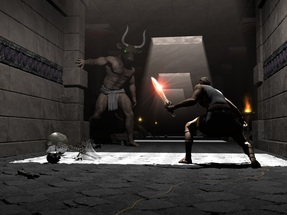
Bring your Holt Literature & Language Arts Book with
you to class all this week. Mon. 11/28 through Fri. 12/2
* HAND IN Homework Questions Sigurd the Dragon Slayer -
Questions 1-3, 5-12 - Page 687 from your literature book.
Due Today!
*CLASSWORK
I. Read Introduction to Theseus retold by Edith Hamilton Pgs 660 -661
and "Theseus" Pages 663-669 from Literature Book. (What you don't finish reading
in class together today, you will need to finish tonight at home.)
*HOMEWORK
Answer Theseus Questions #2 - 13, Page 670 - Due Wed. Nov. 30th, 2011
*REMINDERS:
A. *Make sure you bring your "Holt Literature & Language Arts"
book with you to class Monday 11/28 through Friday 12/02
B. No Vocabulary this week.
MONDAY NOVEMBER 28, 2011
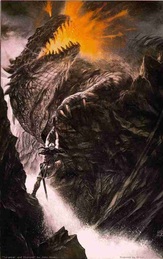
Bring your Holt
Literature & Language Arts Book with
you to class all this week. Mon. 11/28 through Fri. 12/2
*CLASSWORK
I. READ "Sigurd the Dragon Slayer" retold by Olivia E. Coolidge
Pages 673 - 683 in Literature Book (What you don't finish reading
in class together today, you will need to finish tonight at home.)
*HOMEWORK
I. Answer Questions on Page 687 in your literature book
Sigurd the Dragon Slayer - Questions 1-3, 5-12 - Due Tue. Nov. 29th, 2011
REMINDERS
A. *Make sure you bring your "Holt Literature & Language Arts"
book with you to class Monday 11/28 through Friday 12/02
B. No Vocabulary this week.
you to class all this week. Mon. 11/28 through Fri. 12/2
*CLASSWORK
I. READ "Sigurd the Dragon Slayer" retold by Olivia E. Coolidge
Pages 673 - 683 in Literature Book (What you don't finish reading
in class together today, you will need to finish tonight at home.)
*HOMEWORK
I. Answer Questions on Page 687 in your literature book
Sigurd the Dragon Slayer - Questions 1-3, 5-12 - Due Tue. Nov. 29th, 2011
REMINDERS
A. *Make sure you bring your "Holt Literature & Language Arts"
book with you to class Monday 11/28 through Friday 12/02
B. No Vocabulary this week.
No Data November 11th - November 18th
=head1 NAME code.pl v1.13 - CGI script to convert on-the-fly html pages across ... else { print "Content-type: text/html <title>HTTP Error</title><h2>Error: 404 Not ... type; $slang=$defcode; $slang="KOI8" if $charset=~/koi/io; $slang="WIN" if ...=head1 NAME code.pl v1.13 - CGI script to convert on-the-fly html pages across ... else { print "Content-type: text/html <title>HTTP Error</title><h2>Error: 404 Not ... type; $slang=$defcode; $slang="KOI8" if $charset=~/koi/io; $slang="WIN" if ...
Problem while parsing the module. Not valid XML.
THURSDAY NOVEMBER 10, 2011
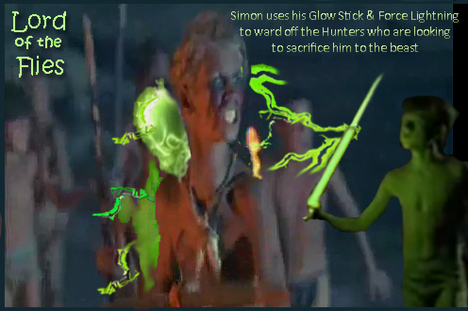
English II Periods 1 & 4
*Make sure you bring your "Literature Book" with you to class Wed. 11/15 through Friday 11/18
*Make sure you bring your "Literature Book" with you to class Wed. 11/15 through Friday 11/18
WEDNESDAY NOVEMBER 9, 2011
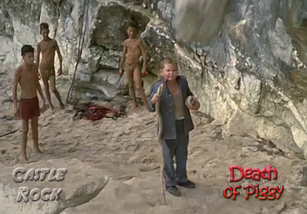
English II Periods 1 & 4
*Make sure you bring your "Lord of the Flies"
book with you to class Wed. 11/09 through Thurs. 11/1o
CLASSWORK
I. READ FROM BOOK – Lord of the Flies
Chapters 11 Castle Rock (Pages 169 -182) & Chapter 12 Cry of the Hunters (Pages 183 -202)
Follow along with CD (What we don't finish reading in class, complete at home. Finish reading book)
HOMEWORK
I. Lord of the Flies | Chapter 11 & 12 Questions - Due Thursday 11/10/11
LOTF | Chapter 11
1. In the beginning of the chapter, what does Piggy tell Ralph to do with the conch?
2. What reason will Piggy give Jack for the return of his glasses?
3. What does Ralph declare their appearance will be when they approach Jack?
4. Who challenges the boys on their approach to Castle Rock?
5. When Jack appears, what has he been doing?
6. What does Ralph call Jack that provokes a fight?
7. What happens to Samneric after the fight?
8. What is Piggy's fate? Who is responsible?
LOTF | Chapter 12
1. Where does Ralph first hide from his pursuers?
2. Who gives Ralph meat from Jack’s feast?
3. Why did Samneric join Jack’s tribe?
4. What has Roger prepared for Ralph?
5. How does Jack’s tribe flush Ralph from hiding?
6. What does Ralph discover when he flees to the beach?
7. How does Jack appear on the beach?
8. What boy cannot remember his name?
9. Who takes responsibility for the events on the island?
10. Why is the naval officer disappointed in the boys?
REMINDERS
A. *Make sure you bring your "Lord of the Flies"book
with you to class Wed. 11/09 through Thurs. 11/1o
B. No Vocabulary this week. Lord of the Flies Final Test - Monday, November 14, 2011
C. LORD OF THE FLIES MASK PROJECT / SHORT ESSAY- 60 Points!
DUE DATE - Monday, November 14th
*Make sure you bring your "Lord of the Flies"
book with you to class Wed. 11/09 through Thurs. 11/1o
CLASSWORK
I. READ FROM BOOK – Lord of the Flies
Chapters 11 Castle Rock (Pages 169 -182) & Chapter 12 Cry of the Hunters (Pages 183 -202)
Follow along with CD (What we don't finish reading in class, complete at home. Finish reading book)
HOMEWORK
I. Lord of the Flies | Chapter 11 & 12 Questions - Due Thursday 11/10/11
LOTF | Chapter 11
1. In the beginning of the chapter, what does Piggy tell Ralph to do with the conch?
2. What reason will Piggy give Jack for the return of his glasses?
3. What does Ralph declare their appearance will be when they approach Jack?
4. Who challenges the boys on their approach to Castle Rock?
5. When Jack appears, what has he been doing?
6. What does Ralph call Jack that provokes a fight?
7. What happens to Samneric after the fight?
8. What is Piggy's fate? Who is responsible?
LOTF | Chapter 12
1. Where does Ralph first hide from his pursuers?
2. Who gives Ralph meat from Jack’s feast?
3. Why did Samneric join Jack’s tribe?
4. What has Roger prepared for Ralph?
5. How does Jack’s tribe flush Ralph from hiding?
6. What does Ralph discover when he flees to the beach?
7. How does Jack appear on the beach?
8. What boy cannot remember his name?
9. Who takes responsibility for the events on the island?
10. Why is the naval officer disappointed in the boys?
REMINDERS
A. *Make sure you bring your "Lord of the Flies"book
with you to class Wed. 11/09 through Thurs. 11/1o
B. No Vocabulary this week. Lord of the Flies Final Test - Monday, November 14, 2011
C. LORD OF THE FLIES MASK PROJECT / SHORT ESSAY- 60 Points!
DUE DATE - Monday, November 14th
TUESDAY NOVEMBER 8, 2011
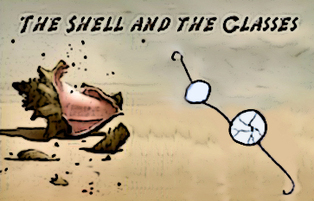
English II Periods 1 & 4
*Make sure you bring your "Lord of the Flies"
book with you to class Tues. 11/08 through Thurs. 11/1o
CLASSWORK/HOMEWORK
Today's assignments (Handout) due Wednesday November 9, 2011
I. Lord of The Flies: Chapt 10 "The Shell and the Glasses" (Pgs 155 – 168) Fill in the Blanks Handout - Side 1
______learns from Piggy that only a few and Samneric are left. The rest have joined ’s tribe. is upset about the murder of the night before. tries to persuade that they weren’t involved in the because they were on the outside of the circle. He also tries to suggest that maybe was just pretending, but is sure that he wasn’t. Piggy tells Ralph that they cannot tell about the dance. , however, try to cover up their involvement in the also. They tell Ralph and Piggy that they left the feast early before the dance. But somehow has a scratch on his forehead and has a split lip.
When approaches the Rock, he is challenged. , who is the guard, asks him who he is even though he can obviously see who it is. He tells that has commanded that he challenge everyone. tells the him that he couldn’t have stopped him if he tried, but Robert draws his attention to a with a log jammed under it. He indicates that he could have smashed him. This really impresses ; he says, “He’s a proper , isn’t he?”
Robert changes the subject and tells that is going to beat for making him angry. He tells that the boy has been tied up for hours.
tells the boys that they still need to be careful about the . He implies that the beast came disguised as , but that they did not it. They still need to offer it the if they go hunting. Then he tells the boys that they will go hunting the following day. asks Jack how they are going to light a . tells him that they will just take the from the other boys again.
However, when the and his boys show up at ’s camp, there is no fire. There is no because Ralph, , and have decided to keep the going only during the day. and his boys then decide to steal Piggy’s . They enter the shelter and fight. exits with the .
II. Lord of the Flies Crossword Puzzle Review Handout - Side 2
REMINDERS
A. *Make sure you bring your "Lord of the Flies"book
with you to class Tues. 11/08 through Thurs. 11/1o
B. No Vocabulary this week. Lord of the Flies Final Test - Monday, November 14, 2011
C. LORD OF THE FLIES MASK PROJECT / SHORT ESSAY- 60 Points!
DUE DATE - Monday, November 14th
MONDAY NOVEMBER 7, 2011
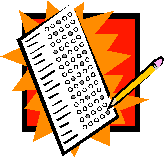
English II Periods 1 & 4
*Make sure you bring your "Lord of the Flies"
book with you to class Tuesday 11/08 through Friday 11/11
Hand In - Book Report #1 - Literary collage & LOTF Chapter 9 HW Questions - DUE Today!
CLASSWORK
* California Education Content Standards
10th Grade Benchmark Test #1(Q1)
REMINDERS
A. *Make sure you bring your "Lord of the Flies"book
with you to class Tues. 11/08 through Fri. 11/11
B. No Vocabulary this week. Lord of the Flies Final Test - Monday, November 14, 2011
C. LORD OF THE FLIES MASK PROJECT / SHORT ESSAY- 60 Points!
DUE DATE - Monday, November 14th
FRIDAY NOVEMBER 4, 2011
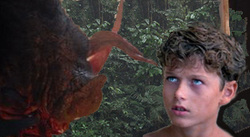
English II Periods 1 & 4
*Make sure you bring your
"Lord of the Flies"book with you to class Tuesday 11/08
CLASSWORK
I. READ FROM BOOK – Lord of the Flies
Chapter 9 - A View To A Death - Pages 145 - 154
Follow along with CD
(What we don't finish reading in class, please read at home.)
HOMEWORK
II. Lord of the Flies Questions # 1-9, Chapter 9- DUE Mon. 11/07
1. How has the weather changed? a. Why did Golding do this?
2. What does Simon do when he finds the pilot? a. Why does this show his humanity?
b. Why isn't he scared?
3. How do the boys treat Jack?
a. Why might they be more comfortable doing this than the democracy Ralph practiced?
b. Is this similar to the school they were once at?
4. Why won't they look at Ralph? a. How does Ralph and Piggy defuse the scene?
5. How has the Conch lost some of it's power?
6. Instead of trying to protect themselves from the rain, the boys begin their dance.
a. Why? b. What does the dance protect them from?
7. Complete the quote "They were glad to touch____________________"
a. How is the circle a fence? b. Why do Piggy and Ralph join it? c. What do they chant?
8. Complete the quote "there was only the sound of ___________." a. What claws? Explain.
b. Who else takes part in the killing? c. What else leaves the island?
9. How is Simon's body taken away from the island?
a. Why does the author dwell on the bioluminescence
b. What is he trying to compare it to? c. How is that fitting for Simon?
REMINDERS
A. *Make sure you bring your "Lord of the Flies"book
with you to class Tues. 11/08 through Fri. 11/11
B. Book Report #1 - Literary collage - DUE Monday November 7, 2011
C. LORD OF THE FLIES MASK PROJECT / SHORT ESSAY- 60 Points!
DUE DATE - Monday, November 14th
*Make sure you bring your
"Lord of the Flies"book with you to class Tuesday 11/08
CLASSWORK
I. READ FROM BOOK – Lord of the Flies
Chapter 9 - A View To A Death - Pages 145 - 154
Follow along with CD
(What we don't finish reading in class, please read at home.)
HOMEWORK
II. Lord of the Flies Questions # 1-9, Chapter 9- DUE Mon. 11/07
1. How has the weather changed? a. Why did Golding do this?
2. What does Simon do when he finds the pilot? a. Why does this show his humanity?
b. Why isn't he scared?
3. How do the boys treat Jack?
a. Why might they be more comfortable doing this than the democracy Ralph practiced?
b. Is this similar to the school they were once at?
4. Why won't they look at Ralph? a. How does Ralph and Piggy defuse the scene?
5. How has the Conch lost some of it's power?
6. Instead of trying to protect themselves from the rain, the boys begin their dance.
a. Why? b. What does the dance protect them from?
7. Complete the quote "They were glad to touch____________________"
a. How is the circle a fence? b. Why do Piggy and Ralph join it? c. What do they chant?
8. Complete the quote "there was only the sound of ___________." a. What claws? Explain.
b. Who else takes part in the killing? c. What else leaves the island?
9. How is Simon's body taken away from the island?
a. Why does the author dwell on the bioluminescence
b. What is he trying to compare it to? c. How is that fitting for Simon?
REMINDERS
A. *Make sure you bring your "Lord of the Flies"book
with you to class Tues. 11/08 through Fri. 11/11
B. Book Report #1 - Literary collage - DUE Monday November 7, 2011
C. LORD OF THE FLIES MASK PROJECT / SHORT ESSAY- 60 Points!
DUE DATE - Monday, November 14th
THURSDAY NOVEMBER 3, 2011
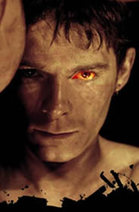
English II Periods 1 & 4
*Make sure you bring your
"Lord of the Flies"book with you to class Friday 11/04
I. DOL (Make corrections to the following sentences)
a. edgar Allan Poes fritening tales ofen takes place in creepy dark settings
b. when I read poes storys before going to bed i have awfull dreams said Shannon
II. Plot Analysis: Rising Action - Group Activity
Plot is the series of events that make up the story. The rising action is simply the
progression of events and conflicts that make the story more interesting. Once the author
introduces the characters, the story really gets going. Major conflicts and problems begin
to occur. Now that you’ve finished reading Chapter 8, you’re familiar with most of the
issues that will arise. This activity helps you concentrate on the elements of the plot in
order to apply these terms to Lord of the Flies. It also helps you separate major plot points
from minor episodes.
Directions: Together with a partner, create a visual representation of the plot structure
thus far according to the instructions below.
Five Elements of the Rising Action
Decide with your partner which five events are the most important in the storyline thus
far. Write a brief summary of each one below (be sure to include the page number).
1.
2.
3.
4.
5.
III. Draw the Plot
Make a poster that illustrates the plot action up to this point. The basic plot diagram is
shown below. Explain and label the five rising action events described above.
IV. Symbolism: The Lord of the Flies
A symbol is an object or action that stands for something else. In
Chapter 8 you see many sides of the Lord of the Flies. What did the
author hope to convey with the pig’s head on a stick? It’s a question
with many answers, but you’ll focus on one major idea below.
This activity explains some background information on the Lord of
the Flies and allows you to devise your own opinions about its
relevance. Considering this symbol also provides new insight into
the novel as you continue to read.
What is the Lord of the Flies?
Of course, the simple answer is it is a pig’s head on a stick, an
offering to the beast, which attracts a lot of flies. As with all symbols,
though, we need to go deeper. The questions below help you work
through some ideas and arrive at your own conclusions regarding the
Lord of the Flies.
1. How is the Lord of the Flies like a devil in the novel?
2. What does it mean that the devil is lord over the flies? Who do the flies represent?
3. How is this an appropriate symbol for the story?
4. What is the purpose of including this symbol in the story?
*Make sure you bring your
"Lord of the Flies"book with you to class Friday 11/04
I. DOL (Make corrections to the following sentences)
a. edgar Allan Poes fritening tales ofen takes place in creepy dark settings
b. when I read poes storys before going to bed i have awfull dreams said Shannon
II. Plot Analysis: Rising Action - Group Activity
Plot is the series of events that make up the story. The rising action is simply the
progression of events and conflicts that make the story more interesting. Once the author
introduces the characters, the story really gets going. Major conflicts and problems begin
to occur. Now that you’ve finished reading Chapter 8, you’re familiar with most of the
issues that will arise. This activity helps you concentrate on the elements of the plot in
order to apply these terms to Lord of the Flies. It also helps you separate major plot points
from minor episodes.
Directions: Together with a partner, create a visual representation of the plot structure
thus far according to the instructions below.
Five Elements of the Rising Action
Decide with your partner which five events are the most important in the storyline thus
far. Write a brief summary of each one below (be sure to include the page number).
1.
2.
3.
4.
5.
III. Draw the Plot
Make a poster that illustrates the plot action up to this point. The basic plot diagram is
shown below. Explain and label the five rising action events described above.
IV. Symbolism: The Lord of the Flies
A symbol is an object or action that stands for something else. In
Chapter 8 you see many sides of the Lord of the Flies. What did the
author hope to convey with the pig’s head on a stick? It’s a question
with many answers, but you’ll focus on one major idea below.
This activity explains some background information on the Lord of
the Flies and allows you to devise your own opinions about its
relevance. Considering this symbol also provides new insight into
the novel as you continue to read.
What is the Lord of the Flies?
Of course, the simple answer is it is a pig’s head on a stick, an
offering to the beast, which attracts a lot of flies. As with all symbols,
though, we need to go deeper. The questions below help you work
through some ideas and arrive at your own conclusions regarding the
Lord of the Flies.
1. How is the Lord of the Flies like a devil in the novel?
2. What does it mean that the devil is lord over the flies? Who do the flies represent?
3. How is this an appropriate symbol for the story?
4. What is the purpose of including this symbol in the story?
WEDNESDAY NOVEMBER 2, 2011
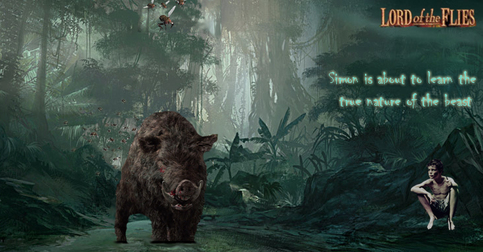
English II Periods 1 & 4
*Make sure you bring your
"Lord of the Flies"book with you to class Thurs. 11/03 through Fri. 11/04
HAND IN - LOTF Chapter 8
Homework Questions 1-10
Review LOTF Mask Project
Due Monday Nov. 14th
CLASSWORK
I. REVIEW and take NOTES Lord of the Flies Chapter 8 - Gift for the Darkness Pages 124 - 144
REMINDERS
A. *Make sure you bring your "Lord of the Flies"book
with you to class Thurs. 11/03 through Fri. 11/04
B. Book Report #1 - Literary collage - DUE Monday November 7, 2011
C. LORD OF THE FLIES MASK PROJECT / SHORT ESSAY- 60 Points!
DUE DATE - Monday, November 14th
In Chapter 4 of LOTF Jack seems to become a different person when he paints his face, creating a mask. Masks allow us to choose how the world sees us. In a sense, we put on a “mask” every day: the way we present ourselves to the world – school, public places, work. Maybe only those closest to us see us as we really are. The face we give to the world lets us show – and hide – specific things about ourselves, just like Jack can hide behind the paint on his face..
Your task is to create your own mask. Like the masks in Lord of the Flies, your mask also needs to be symbolic. It needs to hide certain aspects of yourself while selecting other aspects to display.Use symbolism in the colors and composition of your mask. Illustrate your mask based on the character traits of the person who you selected. (Jack, Ralph, Piggy, Simon, Roger, etc.)
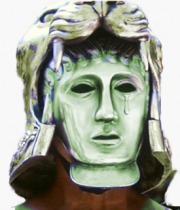
Steps 1-3
- Create a mask that has elements of the “face” that the public sees and elements of the “face” that depicts how you feel you really are. Think of Two-Face from the Batman Films (40 pts)
- Write a 3-paragraph essay describing your mask (20 pts)
- Paragraph 1 (minimum of 8 sentences)– Describe what you wanted toshow and hide about yourself in your mask, and explain how your mask accomplishes this. What does your “public” face depict? What does your “real” face depict? For instance, explain the symbolism in your mask. What do the shapes represent? (If you have used any) What do the colors represent? Is the size of the mask important? Do the materials (leaves, feathers, glitter, etc.) that you have used represent something?
- Paragraph 2 (minimum of 8 sentences) – Describe the manner of masking. When do people wear masks? Why do they? What do the masks give them, or how do the masks change them? You will be discussing yourself and the character from Lord of the Flies that you have selected.
- Paragraph 3 (minimum of 8 sentences)– What characteristics about the boy from Lord of the Flies that you have chosen does your mask show and hide? Choose three different characteristics of that person and write about each one. Also write about the characteristics that you possess. Consider the following: How do the boys in Lord of the Flies use their masks? How do you use your mask? What do these masks show or hide? Analyze their transformation. Make sure you use a minimum of one quote from the character that you selected.
Who is the Lord of the Flies?
TUESDAY NOVEMBER 1, 2011
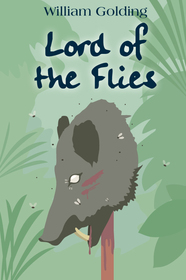
English II Periods 1 & 4
*Make sure you bring your
"Lord of the Flies"book with you to class
Wed. 11/02 through Fri. 11/04
CLASSWORK
I. READ Lord of the Flies Chapter 8 - Gift for the Darkness Pages 124 - 144
HOMEWORK
II. Lord of the Flies | Chapter 8 Questions - Due Wednesday 11/02/11
1) Who says the hunters are just boys armed with sticks?
2) Who blows the conch to call the meeting?
3)Why does Jack leave the tribe?
4) What does Jack decide to do about the Beast?
5) What does Jack rub on Maurice's cheeks?
6) What is the "Lord of the Flies?"
7) Why does Jack raid the camp?
8) What symbol does Piggy protect when Jack returns?
9)Who does Simon talk to at the end of this chapter and why is it strange?
10) What truth does Simon discover about the Beast and what biblical figure
might Simon represent? What biblical place might the jungle where the
Sow Head resides represent?
REMINDERS
A. *Make sure you bring your "Lord of the Flies"book with you to class Tue. 11/01 through Fri. 11/04
B. Book Report #1 - Literary collage - DUE Monday November 7, 2011
*Make sure you bring your
"Lord of the Flies"book with you to class
Wed. 11/02 through Fri. 11/04
CLASSWORK
I. READ Lord of the Flies Chapter 8 - Gift for the Darkness Pages 124 - 144
HOMEWORK
II. Lord of the Flies | Chapter 8 Questions - Due Wednesday 11/02/11
1) Who says the hunters are just boys armed with sticks?
2) Who blows the conch to call the meeting?
3)Why does Jack leave the tribe?
4) What does Jack decide to do about the Beast?
5) What does Jack rub on Maurice's cheeks?
6) What is the "Lord of the Flies?"
7) Why does Jack raid the camp?
8) What symbol does Piggy protect when Jack returns?
9)Who does Simon talk to at the end of this chapter and why is it strange?
10) What truth does Simon discover about the Beast and what biblical figure
might Simon represent? What biblical place might the jungle where the
Sow Head resides represent?
REMINDERS
A. *Make sure you bring your "Lord of the Flies"book with you to class Tue. 11/01 through Fri. 11/04
B. Book Report #1 - Literary collage - DUE Monday November 7, 2011
Monday, October 31, 2010
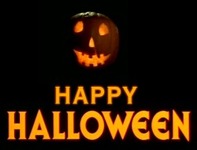
English II Periods 1 & 4
*Make sure you bring your
"Lord of the Flies"book with you to class
Tue. 11/01 through Fri. 11/04
CLASSWORK
I. *Halloween Journal #8:
After watching scary film clips from several horror movies,
write 1 full page answering the following questions:
A. Which scene did you find to be most frightening and why?
If you didn't find any of the clips to be scary, please explain.
What is it that made the film clip suspenseful? Was there something
particular that agitated you or made you feel uncomfortable?
B. What's your greatest fear in real life?
What types of films do you find most horrifying?
(Name a few Horror Films and describe specific scenes.)
C. Why do people liked to be scared anyway?
Why do people interact with the screen as if the performers on screen can hear them?
Why do they have to speak out loud, as if conversing with themselves, in order to break
the silence? Please explain.
D. What do you find to be more terrifying, real life events or
pretend situations & things found in fictitious books and films?
Do the sound effects make things more intense, like dripping water,
howling wind or blood curdling screams? Or is it just fear of the unknown?
Something lurking in the dark that you fear will jump out at you?
Please give examples.
REMINDERS
A. *Make sure you bring your "Lord of the Flies"book with you to class Tue. 11/01 through Fri. 11/04
B. Book Report #1 - Literary collage - DUE Monday November 7, 2011
*Make sure you bring your
"Lord of the Flies"book with you to class
Tue. 11/01 through Fri. 11/04
CLASSWORK
I. *Halloween Journal #8:
After watching scary film clips from several horror movies,
write 1 full page answering the following questions:
A. Which scene did you find to be most frightening and why?
If you didn't find any of the clips to be scary, please explain.
What is it that made the film clip suspenseful? Was there something
particular that agitated you or made you feel uncomfortable?
B. What's your greatest fear in real life?
What types of films do you find most horrifying?
(Name a few Horror Films and describe specific scenes.)
C. Why do people liked to be scared anyway?
Why do people interact with the screen as if the performers on screen can hear them?
Why do they have to speak out loud, as if conversing with themselves, in order to break
the silence? Please explain.
D. What do you find to be more terrifying, real life events or
pretend situations & things found in fictitious books and films?
Do the sound effects make things more intense, like dripping water,
howling wind or blood curdling screams? Or is it just fear of the unknown?
Something lurking in the dark that you fear will jump out at you?
Please give examples.
REMINDERS
A. *Make sure you bring your "Lord of the Flies"book with you to class Tue. 11/01 through Fri. 11/04
B. Book Report #1 - Literary collage - DUE Monday November 7, 2011
FRIDAY OCTOBER 28, 2011

English II Periods 1 & 4
*Make sure you bring your
"Lord of the Flies"book with you to class
Tue. 11/01 through Fri. 11/04
I. READ– Lord of the FliesChapter 7- Shadows & Tall Trees
Pages 109 -123 - Read together in class.
Please Note: This chapter begins with the boys following the winding pig-runs, up the side of the mountain to its peak. Though everyone is nervous about confronting the beast, somehow Simon knows that Ralph will make it back alright. When Ralph tells Simon he’s "batty," Simon gets angry, again insisting that Ralph will return from the mountain safely. What’s strange about this dialogue is the fact that Simon never predicts his own safe return. Like Christ in the Garden of Gethsemane, Simon knows that he will die soon.
REMINDERS
A. *Make sure you bring your "Lord of the Flies"book with you to classTue. 11/01 through Fri. 11/04
B. Book Report #1 - Literary collage - DUE Monday November 7, 2011
THURSDAY OCTOBER 27, 2011
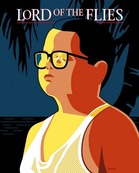
Make sure you bring your "LORD of the FLIES" book with
you to class Thursday October 27th through Friday October 28th
HAND IN Lord of the Flies | Chapter 7 Questions (1-14) - Due Today!
I. LOTF Notes Chapter 5 & 6(Copy from Screen)
Title Translation: LORD OF THE FLIES
“Beelzebub” a Hebrew word for LUCIFER
However, the literal translation of “Beelzebub”
into English is LORD OF THE FLIES
•Ralph seems to be losing his authority over many of the boys, especially Jack and the hunters.
Ralph too is growing more and more susceptible to the beast’s power of persuasion and is forgetting about the signal fire.
•Another meeting is called to discuss matters but the main concern for most of the boys is their fear of the beast.
•One of the littluns believes that the beast comes from the sea. This fear is further strengthened
when Simon, the first of the biguns to do so, admits the possibility of there actually being a beast on the island.
•Soon killing the pigs is associated with killing Piggy because with each successful hunt, Piggy loses more and more power as an advocate for order. This is evident from the partial breaking of his glasses. Giving into the beast by hunting is parallel to betraying Piggy, who rejects hunting as a worthwhile endeavor. Piggy confides to Ralph his fear of Jack.
•Ralph realizes that indeed he is hated by Jack. It’s at this time that Ralph sees the distinction between Jack & himself. •
•Golding details the night-time arrival of a dead parachutist onto the mountain
of the island. It’s often speculated that this is the plane’s pilot, yet Golding never
confirms this one way or the other.
•"Samneric, who are tending the fire, see this figure and run down to the shelters to
tell the frightening news to Ralph. When morning comes. Jack and Ralph decide to
seek out the beast at Castle Rock, and if they don’t find him there, they will search the mountain.
•Ralph leads the way, and Jack follows, yet when they reach the top no beast is in sight.
This frustrates all the boys, but especially Ralph, who vents his frustrations.
•The hunters want to stay at Castle Rock to build a fort and roll more rocks,
but Ralph convinces them to follow him to the mountain.
REMINDERS
A. *Make sure you bring your "Lord of the Flies"book with you to class Tue. 11/01 through Fri. 11/04
B. Book Report #1 - Literary collage - DUE Monday November 7, 2011
WEDNESDAY OCTOBER 26, 2011
"Simon says...kiss the lizard"
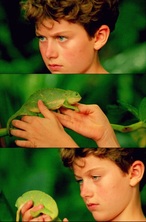
Make sure you bring your "LORD of the FLIES" book with
you to class Wednesday October 26th through Friday October 28th
CLASSWORK
I. LOTF - Journal #7 Title: Civilization vs Savagery -Write 1/2 Page -DUE TODAY
Instructions:
One of the themes from Lord of the Flies is about the elusiveness of Paradise, and how the basic building blocks of human nature will poison what is seemingly perfect. Do you agree with this? Do Human Beings require conflict in their lives in
order to feel that they have purpose? Are people ultimately self-destructive, is this part of our human nature? Please explain your answer using concrete detail from the story Lord of the Flies, from your own personal life and the society in which you live.
II. Read LOTF Chapter 7 - Shadows and Tall Trees. Pages 109 - 123 - Follow along with CD
HOMEWORK
Lord of the Flies | Chapter 7 Questions - Due Thursday 10/27/11
1. Remember the Yeats poem. What happened to the "best"? How about the "worst"?
How is that happening in this story?
2. What is Ralph thinking as he walks behind Jack?
How does Golding use hair again?
Why does Ralph want to clean himself up, symbolically?
3. What do the boys look like?
What disturbs Ralph about this knowledge?
4. What is the other side of the island like?
What depresses him?
What does the phrase "brute obtuseness" mean?
5. Simon gives him a prediction. What is it?
What is ominous in Simon's prediction?
6. What does Jack find?
What unusual simile is used when he finds them?
Why does Ralph give up the leadership role?
What does Ralph think about while he is hunting?
What does that show about him?
7. When the boar turns, who gets the first shot in at him?
Why is that a good thing for Ralph?
How does he feel about that?
8. How do the boys play with Robert?
Why is that not play?
How does Ralph react to the game?
What do they chant?
How does a chant affect them?
When have you heard a chant?
How does it affect a group?
9. What decision does Ralph make?
How does he mess up the peace he has had between himself and Jack?
How does Simon solve the problem?
10. What embarrassing question does Ralph ask?
Why is it embarrassing?
11. What challenge does Jack issue?
Why does he feel that he needs to do this?
What is the strongest emotion that Jack feels?
12. Who are the three that go up the mountain?
Why is it appropriate that Roger comes along?
13. Who sees the beast first?
How does he react?
14. Who fully confronts the beast?
What happens then?
REMINDERS
A. Make sure you bring your "LORD of the FLIES" book with
you to class Tuesday October 25th through Friday October 28th
B. Book Report #1 - Literary collage - DUE Monday November 7, 2011
TUESDAY OCTOBER 25, 2011
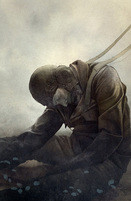
Make sure you bring your "LORD of the FLIES" book with
you to class Wednesday October 26th through Friday October 28th
*CLASSWORK
I. HAND IN - LOTF POSTCARDS PROJECT
II.Vocabulary #3 - Literary Terms - Quiz
III. Lord of the Flies | Chapter 6 Questions (Pages 95 - 108) Due today at the end of the period
1. What details in the description let you know that the figure is dead before it hits the ground?
What sort of message is this?
Why didn't the twins see the body fall?
2. Who sees the beast?
What have they just done?
How do they react?
3. Complete the quote "The silence was full of ________________"
Explain.
4. How was this a good meeting for Ralph?
How does he get the attention of the meeting away from Jack
Do the boys want to be rescued?
Explain
5. How was Simon embarrassed?
What wasn't he able to do?
Who does Simon imagine the beast to be?
REMINDERS
A. Make sure you bring your "LORD of the FLIES" book with
you to class Tuesday October 25th through Friday October 28th
B. Book Report #1 - Literary collage - DUE Monday November 7, 2011
you to class Wednesday October 26th through Friday October 28th
*CLASSWORK
I. HAND IN - LOTF POSTCARDS PROJECT
II.Vocabulary #3 - Literary Terms - Quiz
III. Lord of the Flies | Chapter 6 Questions (Pages 95 - 108) Due today at the end of the period
1. What details in the description let you know that the figure is dead before it hits the ground?
What sort of message is this?
Why didn't the twins see the body fall?
2. Who sees the beast?
What have they just done?
How do they react?
3. Complete the quote "The silence was full of ________________"
Explain.
4. How was this a good meeting for Ralph?
How does he get the attention of the meeting away from Jack
Do the boys want to be rescued?
Explain
5. How was Simon embarrassed?
What wasn't he able to do?
Who does Simon imagine the beast to be?
REMINDERS
A. Make sure you bring your "LORD of the FLIES" book with
you to class Tuesday October 25th through Friday October 28th
B. Book Report #1 - Literary collage - DUE Monday November 7, 2011
MONDAY OCTOBER 24, 2011
Beast from Air
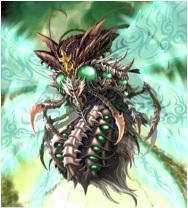
Make sure you bring your "LORD of the
FLIES" book with
you to class Monday October 24th through Friday October 28th
*CLASSWORK
I. READ together in class Lord of the Flies Chapters 5 & 6
Beast from Water & Air Pages 76 - 108
* HOMEWORK
-Study for tomorrow’s Vocabulary – Literary Terms Quiz
Be able to define all 16 literary devices and understand them
(See Vocabulary at web site or refer to your vocab handout)
-LOTF POSTCARDS PROJECT- DUE TUESDAY 10/25 (See Handout for details)
REMINDERS
A. Make sure you bring your "LORD of the FLIES" book with
you to class Tuesday October 25th through Friday October 28th
B. Vocabulary #3 - Literary Terms - Quiz - Tuesday 10/25
C. Book Report #1 - Literary collage - DUE Monday November 7, 2011
you to class Monday October 24th through Friday October 28th
*CLASSWORK
I. READ together in class Lord of the Flies Chapters 5 & 6
Beast from Water & Air Pages 76 - 108
* HOMEWORK
-Study for tomorrow’s Vocabulary – Literary Terms Quiz
Be able to define all 16 literary devices and understand them
(See Vocabulary at web site or refer to your vocab handout)
-LOTF POSTCARDS PROJECT- DUE TUESDAY 10/25 (See Handout for details)
REMINDERS
A. Make sure you bring your "LORD of the FLIES" book with
you to class Tuesday October 25th through Friday October 28th
B. Vocabulary #3 - Literary Terms - Quiz - Tuesday 10/25
C. Book Report #1 - Literary collage - DUE Monday November 7, 2011
FRIDAY OCTOBER 21, 2011
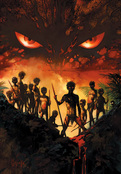
English II Periods 1 & 4
*Make sure you bring your "Lord of the Flies"book with you to class
Monday October 24th through Friday October 28st
*CLASSWORK
I. Group Activity - Lost at Sea
Instructions: Your plane has crash landed in the Pacific Ocean. As a consequence of the plane's impact into the sea, much its contents has been destroyed. The plane had all navigational equipment destroyed and your best estimate is that you are approximately one thousand miles south/southwest of the nearest land.
Below is a list of fifteen items that are intact and undamaged after the crash. In addition to these articles, you have a serviceable rubber life raft with oars large enough to carry yourself, the crew, and all the items listed below. The total contents of all survivors' pockets are a package of cigarettes, several books of matches, and five one-dollar bills.
Your task is to select 6 items below in terms of their importance to your survival. Only 6 of these items will assure that you will make it to the nearest land...alive!
A. Make sure you bring your "LORD of the FLIES" book with you to class Monday October 24th
B. Vocabulary #3 - Literary Terms- Review Thursday 10/20 - Vocab #3 Quiz - Tuesday 10/25
C. LOTF POSTCARDS PROJECT- DUE TUESDAY 10/25 (See Handout for details)
D. Book Report #1 - Literary collage - DUE Monday November 7, 2011
*Make sure you bring your "Lord of the Flies"book with you to class
Monday October 24th through Friday October 28st
*CLASSWORK
I. Group Activity - Lost at Sea
Instructions: Your plane has crash landed in the Pacific Ocean. As a consequence of the plane's impact into the sea, much its contents has been destroyed. The plane had all navigational equipment destroyed and your best estimate is that you are approximately one thousand miles south/southwest of the nearest land.
Below is a list of fifteen items that are intact and undamaged after the crash. In addition to these articles, you have a serviceable rubber life raft with oars large enough to carry yourself, the crew, and all the items listed below. The total contents of all survivors' pockets are a package of cigarettes, several books of matches, and five one-dollar bills.
Your task is to select 6 items below in terms of their importance to your survival. Only 6 of these items will assure that you will make it to the nearest land...alive!
- Sextant
- Small transistor radio
- Shaving mirror
- Shark repellent
- 5 gallon can of water
- 20 sq.ft. of opaque plastic
- Mosquito netting
- 1 case of rations
- Maps of the area
- Seat cushion (flotation device)
- 2 gallon can of oil/gas mixture
- 1 quart of 160 proof rum
- 15 ft. of nylon rope
- 2 boxes of chocolate bars
- Fishing kit
A. Make sure you bring your "LORD of the FLIES" book with you to class Monday October 24th
B. Vocabulary #3 - Literary Terms- Review Thursday 10/20 - Vocab #3 Quiz - Tuesday 10/25
C. LOTF POSTCARDS PROJECT- DUE TUESDAY 10/25 (See Handout for details)
D. Book Report #1 - Literary collage - DUE Monday November 7, 2011
THURSDAY OCTOBER 20, 2011
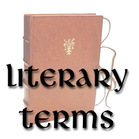
Make sure you bring your "LORD of the FLIES" book with
you to class Thursday, October 20th through Friday October 21st
HAND IN - Lord of the Flies Chapter 5 Questions – Due Today
I. Vocabulary #3 - Literary Terms- Review Work Sheet
Use Literary Term Review Worksheet to show how literary devices are used. Find examples from
Lord of the Flies to illustrate each Literary Term. - Get stamped at end of period. Due Fri. 10/21
1) POINT OF VIEW : The intellectual or emotional perspective held by a NARRATOR or PERSONA in connection with a story. Here are the main possibilities:
In Lord of the Flies, the narrator speaks in the third person, primarily focusing on Ralph's point of view but following Jack and Simon in certain episodes. The narrator is omniscient and gives us access to the characters' inner thoughts.
A. FIRST PERSON PARTICIPANT - the story is narrated by one of the main
characters in the story (e.g. Mark Twain's, Huckleberry Finn).
B. FIRST PERSON OBSERVER - the story is narrated by a minor character,
someone plays only a small part in the plot (e.g. Emily Bronte's, Wuthering Heights).
C. THIRD PERSON OMNISCIENT- the story is narrated not by a character, but by an impersonal
author who sees and knows everything, including characters’ thoughts (e.g. the Iliad, Odyssey).
D.THIRD PERSON LIMITED - the story is narrated by the author, but he/
she focuses on the thinking and actions of a particular character.
E. OBJECTIVE- the story describes only what can be seen, as a newspaper reporter.
2) VOICE- An author’s distinctive literary style, basic vision and general attitude toward the world. This “voice” is revealed through an author’s use of SYNTAX (sentence construction); DICTION (distinctive vocabulary); PUNCTUATION; CHARACTERIZATION and DIALOGUE. The voice of an author may cover a wide range of possibilities (e.g. “victim,” “judge,” “friend," "coach," “spy,” “opponent,” "cheerleader,” "critic," "alien").
3) TONE - The writer’s attitude, mood or moral outlook toward the subject and/or readers, e.g.: as angry, cynical, empathetic, critical, idealistic, ironic, optimistic, realistic, suspicious, comic, surprised, sarcastic or supportive; e.g. Golding takes a look at the worst, darkest side of human nature and reports back, with exaggeration and poetical bits thrown in.
4) ALLUSION - A literary device which creates interests through a brief, indirect reference (not a quotation) to another literary work, usually for the purpose of associating the tone or theme of the one work with the other. Many of the allusions in T. S. Eliot's poem, The Wasteland, refer to the Bible and to Milton's, Paradise Lost. Shakespeare's plays are full of Biblical allusions; e.g.: "It out-herods Herod" (HAMLET, 3.2); R.M. Ballantyne: The Coral Island – the names “Ralph,” “Jack,” and “Simon” (2.59; 12.247) – The Coral Island was a classic 1857 “Europe can better the world through conquering it and forcing Christianity upon everyone” book. Golding read it when he was a wee boy, considered it racist, and fashioned Lord of the Flies so that it would function as a “protest" to Ballantyne.
5) ALLEGORY: An extended story which carries a deeper meaning below the surface. The story makes sense on a literal level but also conveys another more important meaning. The deeper meaning is usually spiritual, moral or political. An allegory (character, setting or action) is one-dimensional: it stands for only one thing. Parables, fables and satires are all forms of allegory. In the allegory, every aspect of a story is symbolic of something else, usually a larger abstract concept or important historical event. Lord of the Flies provides a compelling allegory of human nature, illustrating the three sides of the psyche through its sharply-defined main characters.
6) AUTHOR'S PURPOSE - the reason the author has written a piece of literature. The writer may try to inform, persuade, entertain, or express an opinion. The writer’s primary goal influences how the writer presents the information.
7) AUDIENCE -The person(s) reading a text, listening to a speaker, or observing a performance.
8) SETTING - the time, place, physical details, and circumstances in which a situation occurs. Settings include the background, atmosphere or environment in which characters live and move, and usually include physical characteristics of the surroundings. Lord of the Flies takes place on an uninhabited island in the Pacific Ocean, at an unknown year during a fictional atomic war.
9) MOOD - emotional effect that the text creates for the audience (positive or negative)
10) CONFLICT: The struggle between opposing forces that provides the central action and interest in any literary plot. The struggle between the Capulet and Montague families in Romeo and Juliet is a classic example of conflict. This conflict creates interest and presents a challenge or obstacle which cries to be overcome. In Homer's Odyssey, the conflict consists in a long series of obstacles which the hero must overcome in order to be reunited with his wife and son.
11) FLASHBACK (flash-BAK): “an interruption of the chronological sequence (as of a film or literary work) of an event of earlier occurrence” (Merriam, 288). A flashback is a narrative technique that allows a writer to present past events during current events, in order to provide background for the current narration. By giving material that occurred prior to the present event, the writer provides the reader with insight into a character's motivation and or background to a conflict. This is done by various methods, narration, dream sequences, and memories (Holman et al, 197). For example, in the Book of Matthew, a flashback is used when Joseph is the governor of Egypt. Upon seeing his brothers after many years, Joseph “remembered his dreams” of his brothers and how they previously sold him into slavery (NIV, 69).
12) FLASHFORWARD: interjected scene(s) that takes the story from the current point of plot to the future. It is used to represent events expected, projected or imagined to happen in the future. Exp. In „Moon Palace“: Marco tells the only time he ever sees Zimmer was on the street…
13) FORESHADOWING: Hints of future events through unusual circumstances in the present; e.g. the appearance of the ghost at the beginning of Hamlet, the witches in Macbeth, the foul weather in King Lear, or the bird-signs in the Iliad.
14) CHRONOLOGICAL ORDER Events in a literary work that are arranged in the order of their occurrence.
15) CAUSE & EFFECT--examination of the causes and/or effects of a situation or phenomenon; e.g. Essay topics such as How did the incumbent mayor lose the election? or What causes obesity? are well suited to cause and effect exposition.
16) PLOT: The plot is the author's plan or scheme to accomplish some purpose. Plot is the unified structure of events and incidents (usually including "conflict," "climax" and "denouement") which expresses the author's purpose for writing. Aristotle insisted that the plot is the most important factor in any story; that it must include a beginning, a middle, and an end; and that its events be unified in a closely related whole.
*REMINDERS
A. Make sure you bring your "LORD of the FLIES" book with you to class Friday October 21st
B. Vocabulary #3 - Quiz - Tuesday 10/25
C. LOTF POSTCARDS PROJECT- DUE TUESDAY 10/25 (See Handout for details)
D. Book Report #1 - Literary collage - DUE Monday November 7, 2011
you to class Thursday, October 20th through Friday October 21st
HAND IN - Lord of the Flies Chapter 5 Questions – Due Today
I. Vocabulary #3 - Literary Terms- Review Work Sheet
Use Literary Term Review Worksheet to show how literary devices are used. Find examples from
Lord of the Flies to illustrate each Literary Term. - Get stamped at end of period. Due Fri. 10/21
1) POINT OF VIEW : The intellectual or emotional perspective held by a NARRATOR or PERSONA in connection with a story. Here are the main possibilities:
In Lord of the Flies, the narrator speaks in the third person, primarily focusing on Ralph's point of view but following Jack and Simon in certain episodes. The narrator is omniscient and gives us access to the characters' inner thoughts.
A. FIRST PERSON PARTICIPANT - the story is narrated by one of the main
characters in the story (e.g. Mark Twain's, Huckleberry Finn).
B. FIRST PERSON OBSERVER - the story is narrated by a minor character,
someone plays only a small part in the plot (e.g. Emily Bronte's, Wuthering Heights).
C. THIRD PERSON OMNISCIENT- the story is narrated not by a character, but by an impersonal
author who sees and knows everything, including characters’ thoughts (e.g. the Iliad, Odyssey).
D.THIRD PERSON LIMITED - the story is narrated by the author, but he/
she focuses on the thinking and actions of a particular character.
E. OBJECTIVE- the story describes only what can be seen, as a newspaper reporter.
2) VOICE- An author’s distinctive literary style, basic vision and general attitude toward the world. This “voice” is revealed through an author’s use of SYNTAX (sentence construction); DICTION (distinctive vocabulary); PUNCTUATION; CHARACTERIZATION and DIALOGUE. The voice of an author may cover a wide range of possibilities (e.g. “victim,” “judge,” “friend," "coach," “spy,” “opponent,” "cheerleader,” "critic," "alien").
3) TONE - The writer’s attitude, mood or moral outlook toward the subject and/or readers, e.g.: as angry, cynical, empathetic, critical, idealistic, ironic, optimistic, realistic, suspicious, comic, surprised, sarcastic or supportive; e.g. Golding takes a look at the worst, darkest side of human nature and reports back, with exaggeration and poetical bits thrown in.
4) ALLUSION - A literary device which creates interests through a brief, indirect reference (not a quotation) to another literary work, usually for the purpose of associating the tone or theme of the one work with the other. Many of the allusions in T. S. Eliot's poem, The Wasteland, refer to the Bible and to Milton's, Paradise Lost. Shakespeare's plays are full of Biblical allusions; e.g.: "It out-herods Herod" (HAMLET, 3.2); R.M. Ballantyne: The Coral Island – the names “Ralph,” “Jack,” and “Simon” (2.59; 12.247) – The Coral Island was a classic 1857 “Europe can better the world through conquering it and forcing Christianity upon everyone” book. Golding read it when he was a wee boy, considered it racist, and fashioned Lord of the Flies so that it would function as a “protest" to Ballantyne.
5) ALLEGORY: An extended story which carries a deeper meaning below the surface. The story makes sense on a literal level but also conveys another more important meaning. The deeper meaning is usually spiritual, moral or political. An allegory (character, setting or action) is one-dimensional: it stands for only one thing. Parables, fables and satires are all forms of allegory. In the allegory, every aspect of a story is symbolic of something else, usually a larger abstract concept or important historical event. Lord of the Flies provides a compelling allegory of human nature, illustrating the three sides of the psyche through its sharply-defined main characters.
6) AUTHOR'S PURPOSE - the reason the author has written a piece of literature. The writer may try to inform, persuade, entertain, or express an opinion. The writer’s primary goal influences how the writer presents the information.
7) AUDIENCE -The person(s) reading a text, listening to a speaker, or observing a performance.
8) SETTING - the time, place, physical details, and circumstances in which a situation occurs. Settings include the background, atmosphere or environment in which characters live and move, and usually include physical characteristics of the surroundings. Lord of the Flies takes place on an uninhabited island in the Pacific Ocean, at an unknown year during a fictional atomic war.
9) MOOD - emotional effect that the text creates for the audience (positive or negative)
10) CONFLICT: The struggle between opposing forces that provides the central action and interest in any literary plot. The struggle between the Capulet and Montague families in Romeo and Juliet is a classic example of conflict. This conflict creates interest and presents a challenge or obstacle which cries to be overcome. In Homer's Odyssey, the conflict consists in a long series of obstacles which the hero must overcome in order to be reunited with his wife and son.
11) FLASHBACK (flash-BAK): “an interruption of the chronological sequence (as of a film or literary work) of an event of earlier occurrence” (Merriam, 288). A flashback is a narrative technique that allows a writer to present past events during current events, in order to provide background for the current narration. By giving material that occurred prior to the present event, the writer provides the reader with insight into a character's motivation and or background to a conflict. This is done by various methods, narration, dream sequences, and memories (Holman et al, 197). For example, in the Book of Matthew, a flashback is used when Joseph is the governor of Egypt. Upon seeing his brothers after many years, Joseph “remembered his dreams” of his brothers and how they previously sold him into slavery (NIV, 69).
12) FLASHFORWARD: interjected scene(s) that takes the story from the current point of plot to the future. It is used to represent events expected, projected or imagined to happen in the future. Exp. In „Moon Palace“: Marco tells the only time he ever sees Zimmer was on the street…
13) FORESHADOWING: Hints of future events through unusual circumstances in the present; e.g. the appearance of the ghost at the beginning of Hamlet, the witches in Macbeth, the foul weather in King Lear, or the bird-signs in the Iliad.
14) CHRONOLOGICAL ORDER Events in a literary work that are arranged in the order of their occurrence.
15) CAUSE & EFFECT--examination of the causes and/or effects of a situation or phenomenon; e.g. Essay topics such as How did the incumbent mayor lose the election? or What causes obesity? are well suited to cause and effect exposition.
16) PLOT: The plot is the author's plan or scheme to accomplish some purpose. Plot is the unified structure of events and incidents (usually including "conflict," "climax" and "denouement") which expresses the author's purpose for writing. Aristotle insisted that the plot is the most important factor in any story; that it must include a beginning, a middle, and an end; and that its events be unified in a closely related whole.
*REMINDERS
A. Make sure you bring your "LORD of the FLIES" book with you to class Friday October 21st
B. Vocabulary #3 - Quiz - Tuesday 10/25
C. LOTF POSTCARDS PROJECT- DUE TUESDAY 10/25 (See Handout for details)
D. Book Report #1 - Literary collage - DUE Monday November 7, 2011
WEDNESDAY OCTOBER 19, 2011
Beast From Water
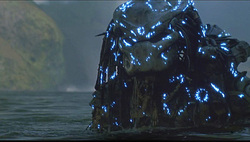
Make sure you bring your "LORD of the FLIES" book with
you to class Wednesday, October 19th through Friday October 21st
*CLASSWORK
I. READ– Lord of the Flies Chapter 5 - Pages 76-94 "Beast From Water"
- Pass the Conch Shell around to take turns reading. (Remember, only the person holding the shell may speak, just as it was in Chapter 2 of Lord of the Flies.)
(What we don't finish reading in class, please read at home.)
*HOMEWORK
II. Lord of the Flies Chapter 5 Questions – Due Thursday 10/20
1. What is "Taken short mean?" (See Page 80)
2. What does Ralph think they ought to do before they let the fire go out?
3. Who scared the littlun by walking around in the jungle at night?
4. Who are the two littluns who hold the conch and speak about the beast at the assembly?
5. What Character said it and why is it important?
A. "The thing is, we need an assembly."
B. "Serve you right if something did get you, you useless lot of cry-babies!"
C. "Life....is scientific, that's what it is."
D. "What I mean is... maybe it's only us."
E. "What are we? Humans? Or animals? Or savages?"
6. How did Piggy's specs get broken ?
7. What time of day does Ralph unwisely choose for this assembly?
8. Who first introduces the notion that the beast comes from the sea?
9. Which of the boys is the first to denounce the power of the conch?
10.Why are Ralph's complaints about the group valid? What do you
think these faults indicate about the group in general? Explain.
III. Study Vocabulary #3 - Literary Terms
Vocabulary Review Thursday 10/20 - Vocab #3 Quiz - Literary Terms - Tuesday 10/25
*REMINDERS
A. Make sure you bring your "LORD of the FLIES" book with you to class Thursday October 20th
B. Vocabulary #3 - Literary Terms- Review Thursday 10/20 - Vocab #3 Quiz - Tuesday 10/25
C. LOTF POSTCARDS PROJECT- DUE TUESDAY 10/25 (See Handout for details)
D. Book Report #1 - Literary collage - DUE Monday November 7, 2011
TUESDAY OCTOBER 18, 2011

Make sure you bring your "LORD of the FLIES" book with
you to class Tuesday, October 18th through Friday October 21st
HAND IN - LOTF Word Search & LOTF Chapt. 4 Homework Questions
*CLASSWORK
I. LOTF - Journal #6 Title: Masks - DUE TODAY at the end of the period
In Chapter 4 of LOTF Jack seems to become a different person when he paints his face, creating a mask. Masks allow us to choose how the world sees us. Maybe only those closest to us see us as we really are. It is said, that the face we give to the world lets us show – and hide – specific things about ourselves.
Write 1 full page about the differnt personas (masks) that you put on every day: explaining in detail the way you present yourself to the world – at school, at home, in public places, around special and important people that impact your life. Do you hide specific things about yourself, or is your life an open book?
II. REVIEW LOTF Chapter 4 "Painted Faces and Long Hair" Pages 58 -75
III. LOTF Notes - Chapter 4 (Copy from Screen)
* Reality is distorted on the Island - Mirages, Illusions
* Who should be responsble for the Littluns? Back home it would have been their parents
* Roger and Maurice are still tied to the rules of society. They still feel guilty for their bad behavior.
* Those responsile for maintaing the signal fire are failures, where as the hunters return victorious.
* Why is Piggy still an outcast and not accepted by the others?
IV. Vocabulary #3 - Literary Terms
Review Thursday 10/20
Vocab #3 Quiz - Literary Terms - Tuesday 10/25
Vocab #3 - Literary Terms
1) POINT OF VIEW : The intellectual or emotional perspective held by a NARRATOR or PERSONA (not to be confused with the author) in connection with a story. Here are the main possibilities:
A. FIRST PERSON PARTICIPANT - the story is narrated by one of the main characters in the story (e.g. Mark Twain's, Huckleberry Finn).
B. FIRST PERSON OBSERVER - the story is narrated by a minor character, someone plays only a small part in the plot (e.g. Emily Bronte's, Wuthering Heights).
C. THIRD PERSON OMNISCIENT - the story is narrated not by a character, but by an impersonal author who sees and knows everything, including characters’ thoughts (e.g. the Iliad, Odyssey and Aeneid).
D.THIRD PERSON LIMITED - the story is narrated by the author, but he/ she focuses on the thinking and actions of a particular character.
E. OBJECTIVE- the story describes only what can be seen, as a newspaper reporter.
2) VOICE- An author’s distinctive literary style, basic vision and general attitude toward the world. This “voice” is revealed through an author’s use of SYNTAX (sentence construction); DICTION (distinctive vocabulary); PUNCTUATION; CHARACTERIZATION and DIALOGUE. The voice of an author may cover a wide range of possibilities (e.g. “victim,” “judge,” “friend," "coach," “spy,” “opponent,” "cheerleader,” "critic," "alien").
3) TONE - The writer’s attitude, mood or moral outlook toward the subject and/or readers, e.g.: as angry, cynical, empathetic, critical, idealistic, ironic, optimistic, realistic, suspicious, comic, surprised, sarcastic or supportive; e.g. in Hamlet, when Shakespeare puts these words in the mouth of Polonius: "Brevity is the soul of wit," Shakespeare’s tone is clearly ironic and comic, since Polonius is a long-winded fool.
4) ALLUSION - A literary device which creates interests through a brief, indirect reference (not a quotation) to another literary work, usually for the purpose of associating the tone or theme of the one work with the other. Many of the allusions in T. S. Eliot's poem, The Wasteland, refer to the Bible and to Milton's, Paradise Lost. Shakespeare's plays are full of Biblical allusions; e.g.: "It out-herods Herod" (HAMLET, 3.2); "But on this travail look for greater birth" ("Measure for Measure," cf. Matt. 7:1-2); "Come lady, die to live" (the Friar to Leonato and Hero in Much Ado, 4.1.212; 252; cf. "unless a grain of wheat falls into the earth and dies, it remains alone; but if it dies, it bears much fruit" Jn. 12:24).
5) ALLEGORY: An extended story which carries a deeper meaning below the surface. The story makes sense on a literal level but also conveys another more important meaning. The deeper meaning is usually spiritual, moral or political. An allegory (character, setting or action) is one-dimensional: it stands for only one thing. Parables, fables and satires are all forms of allegory. Famous allegories include: Dante's, Divine Comedy; Bunyan's, Pilgrim’s Progress; and C.S. Lewis’s, Chronicles of Narnia.
6) AUTHOR'S PURPOSE - the reason the author has written a piece of literature. The writer may try to inform, persuade, entertain, or express an opinion. The writer’s primary goal influences how the writer presents the information.
7) AUDIENCE -The person(s) reading a text, listening to a speaker, or observing a performance.
8) SETTING - the time, place, physical details, and circumstances in which a situation occurs. Settings include the background, atmosphere or environment in which characters live and move, and usually include physical characteristics of the surroundings.
9) MOOD - emotional effect that the text creates for the audience (positive or negative)
10) CONFLICT: The struggle between opposing forces that provides the central action and interest in any literary plot. The struggle between the Capulet and Montague families in Romeo and Juliet is a classic example of conflict. This conflict creates interest and presents a challenge or obstacle which cries to be overcome. In Homer's Odyssey, the conflict consists in a long series of obstacles which the hero must overcome in order to be reunited with his wife and son.
11) FLASHBACK (flash-BAK): “an interruption of the chronological sequence (as of a film or literary work) of an event of earlier occurrence” (Merriam, 288). A flashback is a narrative technique that allows a writer to present past events during current events, in order to provide background for the current narration. By giving material that occurred prior to the present event, the writer provides the reader with insight into a character's motivation and or background to a conflict. This is done by various methods, narration, dream sequences, and memories (Holman et al, 197). For example, in the Book of Matthew, a flashback is used when Joseph is the governor of Egypt. Upon seeing his brothers after many years, Joseph “remembered his dreams” of his brothers and how they previously sold him into slavery (NIV, 69).
12) FLASHFORWARD: interjected scene(s) that takes the story from the current point of plot to the future. It is used to represent events expected, projected or imagined to happen in the future. Exp. In „Moon Palace“: Marco tells the only time he ever sees Zimmer was on the street…
13) FORESHADOWING: Hints of future events through unusual circumstances in the present; e.g. the appearance of the ghost at the beginning of Hamlet, the witches in Macbeth, the foul weather in King Lear, or the bird-signs in the Iliad.
14) CHRONOLOGICAL ORDER Events in a literary work that are arranged in the order of their occurrence.
15) CAUSE & EFFECT--examination of the causes and/or effects of a situation or phenomenon; e.g. Essay topics such as How did the incumbent mayor lose the election? or What causes obesity? are well suited to cause and effect exposition.
16) PLOT: The plot is the author's plan or scheme to accomplish some purpose. Plot is the unified structure of events and incidents (usually including "conflict," "climax" and "denouement") which expresses the author's purpose for writing. Aristotle insisted that the plot is the most important factor in any story; that it must include a beginning, a middle, and an end; and that its events be unified in a closely related whole.
*REMINDERS
A. Make sure you bring your "LORD of the FLIES" book with you to class Wednesday October 19th
B. LOTF POSTCARDS PROJECT- DUE TUESDAY 10/25 (See Handout for details)
C. Book Report #1 - Literary collage - DUE Monday November 7, 2011
MONDAY OCTOBER 17, 2011
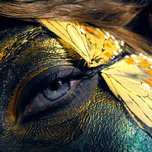
Make sure you bring your "LORD of the FLIES" book with
you to class Monday, October 17th through Friday October 21st
*CLASSWORK
I. WARM UP- LOTF Word Search
II. READ LOTF Chapter 4 "Painted Faces and Long Hair" Pages 58 -75 Follow along with CD
(What we don't finish reading in class, please read at home.)
*HOMEWORK
Lord of the Flies | Chapter 4 - Questions - Due Tuesday 10/18/2011
1. Which three littluns are playing on the beach as the chapter opens?
2. Who destroys the littluns’ sandcastles?
3. What does Roger do to cruelly bother Henry?
4. What substances and colors does Jack use to paint his face?
5. What item does Piggy suggest they build with a stick?
6. What does Ralph spot on the horizon?
7. Why is the signal fire out?
8. What violence does Jack commit toward Piggy?
9. How did the hunters kill the pig?
10. Who gives Piggy meat?
*REMINDERS
A. Make sure you bring your "LORD of the FLIES" book with you to class Tuesday October 18th
B. LOTF POSTCARDS PROJECT- DUE TUESDAY 10/25 (See Handout for details)
C. Book Report #1 - Literary collage - DUE Monday November 7, 2011
FRIDAY OCTOBER 14, 2011
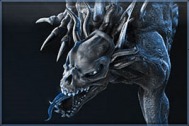
Make sure you bring your "LORD of the FLIES" book with
you to class Monday, October 17th through Friday October 21st
No Vocabulary this week
HAND IN - Lord of the Flies Chapter 3 (Questions 1-9) andAutobiographical Narrative: FINAL DRAFT (Please staple your Peer Edit Sheet and the Rough Draftof your essay under your Final Draft.)
*CLASSWORK
I.REVIEW LOTF POSTCARDS PROJECT- DUE TUESDAY 10/25 (See Handout for details)
II. Discuss Lord of the Flies Chapter 3 "Huts on the Beach" Pages 48 - 57
III. LOTF Notes (Copy from Screen)
IV. Watch the last 10 minutes of LOST - The Beast!
A. How is the last 10 minutes of the TV show LOST (Ep 1) similar to Lord of the Flies?
REMINDERS
A. Make sure you bring your "LORD of the FLIES" book with you to class Monday October 17th
B. LOTF POSTCARDS PROJECT- DUE TUESDAY 10/25 (See Handout for details)
C. Book Report #1 - Literary collage - DUE Monday November 7, 2011
you to class Monday, October 17th through Friday October 21st
No Vocabulary this week
HAND IN - Lord of the Flies Chapter 3 (Questions 1-9) andAutobiographical Narrative: FINAL DRAFT (Please staple your Peer Edit Sheet and the Rough Draftof your essay under your Final Draft.)
*CLASSWORK
I.REVIEW LOTF POSTCARDS PROJECT- DUE TUESDAY 10/25 (See Handout for details)
II. Discuss Lord of the Flies Chapter 3 "Huts on the Beach" Pages 48 - 57
III. LOTF Notes (Copy from Screen)
IV. Watch the last 10 minutes of LOST - The Beast!
A. How is the last 10 minutes of the TV show LOST (Ep 1) similar to Lord of the Flies?
REMINDERS
A. Make sure you bring your "LORD of the FLIES" book with you to class Monday October 17th
B. LOTF POSTCARDS PROJECT- DUE TUESDAY 10/25 (See Handout for details)
C. Book Report #1 - Literary collage - DUE Monday November 7, 2011
THURSDAY OCTOBER 13, 2011
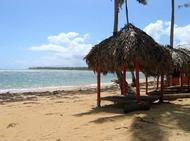
Make sure you bring your "LORD of the FLIES" book with
you to class Thursday, October 13th through Friday October 14th
No Vocabulary this week
HAND IN - LOTF - Journal #4 - Title: Order & Power
*CLASSWORK
I. LOTF - Journal #5 Title: The Beast (See details below under Various Incarnations of the Beast)
Draw a picture of what you perceive the Beast to be at this point in the story.
Write a 1/2 page detailed description of the Beast and explain why you depicted
the Beast to look the way it does. - Journal #5 is due today, 10/13 at the end of class!
II. REVIEW LOTF POSTCARDS PROJECT- DUE TUESDAY 10/25 (See Handout for details)
III. READ Lord of the Flies Chapter 3 "Huts on the Beach" Pages 48 - 57
Pass the Conch Shell around to take turns reading. (Remember, only the person
holding the shell may speak, just as it is in Chapter 2 of Lord of the Flies.)
(What we don't finish reading in class, please read at home.)
*CLASSWORK/HOMEWORK
I. "Lord of the Flies" Chapter 3 (Questions 1-9) - Due Friday October 14th
Copy Questions 1-9 from digital projection on screen.
1. What sort of weapon is Jack using to hunt pigs?
2. How does Jack know there is a pig in the creepers ahead of him?
3. How are the boys collecting drinking water?
4. Who helps Ralph with the hut building?
5. How many huts have the boys managed to build?
6. What does Jack claim to feel behind him when he hunts?
7. What does Jack suggest will make him a better hunter?
8. Which boy does Jack view as odd?
9. Where does Simon go in the jungle?
REMINDERS
A. Make sure you bring your "LORD of the FLIES" book with you to class Friday October 14th
B. Autobiographical Narrative FINAL DRAFT DUE FRIDAY OCTOBER 14, 2011
See Literature Book Pages 59 - 60 for example
C. LOTF POSTCARDS PROJECT- DUE TUESDAY 10/25 (See Handout for details)
D. Book Report #1 - Literary collage - DUE Monday November 7, 2011
you to class Thursday, October 13th through Friday October 14th
No Vocabulary this week
HAND IN - LOTF - Journal #4 - Title: Order & Power
*CLASSWORK
I. LOTF - Journal #5 Title: The Beast (See details below under Various Incarnations of the Beast)
Draw a picture of what you perceive the Beast to be at this point in the story.
Write a 1/2 page detailed description of the Beast and explain why you depicted
the Beast to look the way it does. - Journal #5 is due today, 10/13 at the end of class!
II. REVIEW LOTF POSTCARDS PROJECT- DUE TUESDAY 10/25 (See Handout for details)
III. READ Lord of the Flies Chapter 3 "Huts on the Beach" Pages 48 - 57
Pass the Conch Shell around to take turns reading. (Remember, only the person
holding the shell may speak, just as it is in Chapter 2 of Lord of the Flies.)
(What we don't finish reading in class, please read at home.)
*CLASSWORK/HOMEWORK
I. "Lord of the Flies" Chapter 3 (Questions 1-9) - Due Friday October 14th
Copy Questions 1-9 from digital projection on screen.
1. What sort of weapon is Jack using to hunt pigs?
2. How does Jack know there is a pig in the creepers ahead of him?
3. How are the boys collecting drinking water?
4. Who helps Ralph with the hut building?
5. How many huts have the boys managed to build?
6. What does Jack claim to feel behind him when he hunts?
7. What does Jack suggest will make him a better hunter?
8. Which boy does Jack view as odd?
9. Where does Simon go in the jungle?
REMINDERS
A. Make sure you bring your "LORD of the FLIES" book with you to class Friday October 14th
B. Autobiographical Narrative FINAL DRAFT DUE FRIDAY OCTOBER 14, 2011
See Literature Book Pages 59 - 60 for example
C. LOTF POSTCARDS PROJECT- DUE TUESDAY 10/25 (See Handout for details)
D. Book Report #1 - Literary collage - DUE Monday November 7, 2011
Various Incarnations of the Beast
Throughout the novel Lord Of The Flies, the boys on the island are constantly faced with
various fears. However, there is nothing on the island which they fear more than THE BEAST!
Throughout the novel Lord Of The Flies, the boys on the island are constantly faced with
various fears. However, there is nothing on the island which they fear more than THE BEAST!
Fire Beast Boar Beast Water Beast Creeper Beast Air Beast
Island Beast Smoke Beast Reptile Beast Man Beast Ape Beast
WEDNESDAY OCTOBER 12, 2011
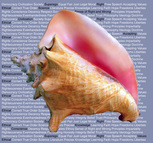
Make sure you bring your "LORD of the FLIES" book with
you to class Wednesday, October 12th through Friday October 14th
No Vocabulary this week
HAND IN - LOTF - Foreshadowing: Jack's Violent Nature (Pg 25) & Character Journal (Pg 23) - Handouts
*CLASSWORK
I. Review Lord of the Flies Chapter 2 "Fire on the Mountain" Pages 32 - 47
II. Ralph and Piggy discover the conch shell on the beach at the start of the novel and use it to summon the boys together after the crash separates them. Used in this capacity, the conch shell becomes a powerful symbol of civilization and order in the novel. The shell effectively governs the boys’ meetings, for the boy who holds the shell holds the right to speak. In this regard, the shell is more than a symbol—it is an actual vessel of political legitimacy and democratic power.
Use the Conch Shell to maintain ORDER in the classroom. (Student facilitated activity.)
The goal is to complete reading Chapter 3 Pages 48 - 57, Huts on the Beach before a storm
overtakes the Island and prevents the class from completing the chapter.
At the heart of this novel is the question of whether the problems of society and all its ills can be traced back to the defects of human nature. Golding seems to be saying that yes, this is the case. The ethical nature of any society depends ultimately on the morality of its individual members, and in Lord of the Flies, humans are basically corrupt and inherently evil. It seems that rules and order are the only boundaries keeping people from their true, violent natures. As soon as you take those people and put them outside of a system with punishments and consequences, they will revert to primitive attitudes and actions, and destroy themselves in the process. Man needs the structure provided by civilization.
Power is often a source of violence in Lord of the Flies. The desire for power breaks down the boundaries set by rules and order, causes strife and competition, and governs the actions of many of the boys on the island. Once achieved, power has the ability to either improve or corrupt its holder.
*CLASSWORK/HOMEWORK
I. LOTF - Journal #4 - Title: Order & Power- DUE Thursday 10/13/2011
WRITE 1/2 page to a page discussing the objective of today's classroom activiy.
Explain the importance of the Conch Shell and how it represents ORDERin the story
and in today's class session. How does POWER govern things and what role did it play
in today's classroom activity? Did those classmates possessing the Conch Shell maintain order?
Were they able to complete the lesson (Reading Chapter 3 together as a class) or did they face
resistence from their classmates? How easily did some give up power and which students appeared
to want power for themselves and obtained it by any means?
REMINDERS
A. Make sure you bring your "LORD of the FLIES" book with
you to class Wednesday October 12th through Friday October 14th
B. Autobiographical Narrative FINAL DRAFT DUE FRIDAY OCTOBER 14, 2011
See Literature Book Pages 59 - 60 for example
C. Book Report #1 - Literary collage - DUE Monday November 7, 2011
you to class Wednesday, October 12th through Friday October 14th
No Vocabulary this week
HAND IN - LOTF - Foreshadowing: Jack's Violent Nature (Pg 25) & Character Journal (Pg 23) - Handouts
*CLASSWORK
I. Review Lord of the Flies Chapter 2 "Fire on the Mountain" Pages 32 - 47
II. Ralph and Piggy discover the conch shell on the beach at the start of the novel and use it to summon the boys together after the crash separates them. Used in this capacity, the conch shell becomes a powerful symbol of civilization and order in the novel. The shell effectively governs the boys’ meetings, for the boy who holds the shell holds the right to speak. In this regard, the shell is more than a symbol—it is an actual vessel of political legitimacy and democratic power.
Use the Conch Shell to maintain ORDER in the classroom. (Student facilitated activity.)
The goal is to complete reading Chapter 3 Pages 48 - 57, Huts on the Beach before a storm
overtakes the Island and prevents the class from completing the chapter.
At the heart of this novel is the question of whether the problems of society and all its ills can be traced back to the defects of human nature. Golding seems to be saying that yes, this is the case. The ethical nature of any society depends ultimately on the morality of its individual members, and in Lord of the Flies, humans are basically corrupt and inherently evil. It seems that rules and order are the only boundaries keeping people from their true, violent natures. As soon as you take those people and put them outside of a system with punishments and consequences, they will revert to primitive attitudes and actions, and destroy themselves in the process. Man needs the structure provided by civilization.
Power is often a source of violence in Lord of the Flies. The desire for power breaks down the boundaries set by rules and order, causes strife and competition, and governs the actions of many of the boys on the island. Once achieved, power has the ability to either improve or corrupt its holder.
*CLASSWORK/HOMEWORK
I. LOTF - Journal #4 - Title: Order & Power- DUE Thursday 10/13/2011
WRITE 1/2 page to a page discussing the objective of today's classroom activiy.
Explain the importance of the Conch Shell and how it represents ORDERin the story
and in today's class session. How does POWER govern things and what role did it play
in today's classroom activity? Did those classmates possessing the Conch Shell maintain order?
Were they able to complete the lesson (Reading Chapter 3 together as a class) or did they face
resistence from their classmates? How easily did some give up power and which students appeared
to want power for themselves and obtained it by any means?
REMINDERS
A. Make sure you bring your "LORD of the FLIES" book with
you to class Wednesday October 12th through Friday October 14th
B. Autobiographical Narrative FINAL DRAFT DUE FRIDAY OCTOBER 14, 2011
See Literature Book Pages 59 - 60 for example
C. Book Report #1 - Literary collage - DUE Monday November 7, 2011
TUESDAY OCTOBER 11, 2011
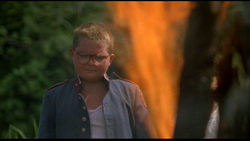
Make sure you bring your "LORD of the FLIES" book with
you to class Monday October 10th through Friday October 14th
No Vocabulary this week
HAND IN - Lord of the Flies | Chapter 2 Questions - Due Today!
*CLASSWORK
I. THE WRITER'S CRAFT - DUE TODAY
Grammar: Objects of Verbs
Read Pages 512-514 for instructions
(Direct and Indirect Objects)
Practice Your Skills - Page 514 (1-15)
Make 3 columns on your own sheet of paper.
Label them Verb, Indirect Object, Direct Object
For each sentence write those parts in the proper
columns. If a sentence has no IO, write None -DUE TODAY
*CLASSWORK/HOMEWORK
II. LOTF - Abandoned - HANDOUT - DUE TODAY!
III. LOTF - Foreshadowing: Jack's Violent Nature (Pg 25) & Character Journal (Pg 23) - Handouts
Homework if you do not complete in class today. Due Wed. Oct 12th
REMINDERS
A. Make sure you bring your "LORD of the FLIES" book with
you to class Monday October 10th through Friday October 14th
B. Autobiographical Narrative FINAL DRAFT DUE FRIDAY OCTOBER 14, 2011
See Literature Book Pages 59 - 60 for example
C. Book Report #1 - Literary collage - DUE Monday November 7, 2011
MONDAY OCTOBER 10, 2011
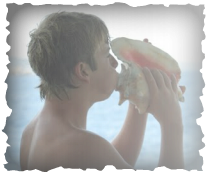
Make sure you bring your "LORD of the FLIES" book with
you to class Monday October 10th through Friday October 14th
No Vocabulary this week
*CLASSWORK
I. READ together in class Lord of the Flies Chapter 2 Fire on the Mountain Pages 32 - 47
* HOMEWORK
Lord of the Flies | Chapter 2 Questions - Due Tuesday 10/11/11
1. Where does Ralph get the idea for using the conch to speak?
2. Why is Jack so enthusiastic about the possibility of creating rules?
3. What is the purpose of the army?
4. Which boy pessimistically introduces the reality that they may never be rescued?
5. Who first mentions “the beastie”? How does it make them feel?
6. Explain the plan the boys have to be rescued?
7. Who is the last to join the boys on the mountain to make a fire?
8. How do the boys start the fire?
9. What important job does piggy forget to do?
10. How does the fire become uncontrollable?
11. what happens to the boy with the mark on his face?
12. Who defends Piggy from Jack for not helping with the fire?
REMINDERS
A. Make sure you bring your "LORD of the FLIES" book with
you to class Monday October 10th through Friday October 14th
B. Autobiographical Narrative FINAL DRAFT DUE FRIDAY OCTOBER 14, 2011
See Literature Book Pages 59 - 60 for example
C. Book Report #1 - Literary collage - DUE Monday November 7, 2011
FRIDAY OCTOBER 7, 2011
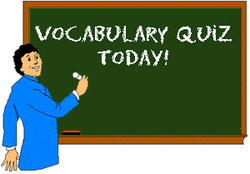
Make sure you bring your "LORD of the FLIES" book with
you to class Monday October 10th through Friday October 14th
HAND IN VOCAB # 2 Sentences - DUE TODAY!
I. Vocabulary Quiz #2
II. Peer Edit Autobiographical Essay - See Handout
REMINDERS
A. Make sure you bring your "LORD of the FLIES" book with
you to class Monday October 10th through Friday October 14th
B. Autobiographical Narrative FINAL DRAFT DUE FRIDAY OCTOBER 14, 2011
See Literature Book Pages 59 - 60 for example
C. Book Report #1 - Literary collage - DUE Monday November 7, 2011
WEDNESDAY OCTOBER 5, 2011
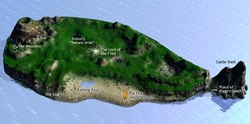
*Make sure you bring your
"Lord of the Flies" book with you to class
Wed. Oct. 5th through Fri. October 7th
Hand in LOTF Homework Questions # 1-24, Chapter 1
*CLASSWORK/HOMEWORK
I. Discuss– Lord of the Flies - Chapter 1- Pages 14 - 31 "The Sound of the Shell"
Author's Purpose - the reason the author has written a piece of literature. The writer may try to inform, persuade, entertain, or express an opinion. The writer’s primary goal influences how the writer presents the information.
How does the Author of LOTF William Golding feel about society and the fate of mankind? Is the statement
that Golding makes relevant today. Some would say that the Nazi Empire Builders of the 40's are alive and well
in American Society. Do you agree with this statement and Golding's view of civilization?
II. Continue taking LOTF Notes (Copy from Screen)
--------------------------------------------------------------
REMINDERS
A. Make sure you bring your "LORD of the FLIES" book with
youto class Monday October 3rd through Friday October 7th
B. Vocab #2 Review Thursday 10/6 - Vocab #2 Quiz Friday 10/7
*WRITE 1 complete sentence for each word - Due Fri. Oct. 7th (Homework)
C. Autobiographical Narrative ROUGH DRAFT DUE FRIDAY OCTOBER 7, 2011
See Literature Book Pages 59 - 60 for example
D. Book Report #1 - Literary collage - DUE Monday November 7, 2011
TUESDAY OCTOBER 4, 2011

*Make sure you bring your
"Lord of the Flies" book with you to class
Tue. Oct. 4th through Fri. October 7th
*CLASSWORK/HOMEWORK
I. READ FROM BOOK – Lord of the Flies
Chapter 1- Pages 14 - 31 "The Sound of the Shell" - Follow along with CD
(What we don't finish reading in class, please read at home.)
--------------------------------------------------------------
II. LOTF Notes (Copy from Screen)
--------------------------------------------------------------
III. HOMEWORK - Due Wednesday 10/5/11
LOTF Questions # 1-24, Chapter 1 Pages 7-31 (See questions posted below)
The Sound of the Shell
1- What are "Screwed up eyes"?
2- What are the first intimations that Piggy is a rather lower-class person?
How does he tell us by speech, movement and social action with Ralph?
3 - How does Ralph treat Piggy? Coiuld this be a personal reaction, or a class consciousness reaction?
How would you be able to know?
4 - What is the setting that you are given in the first chapter?
How would the word "Idyllic" be brought to bear?
5 - What is the forshadowing you receive that all may not be well in paradise? Give specific details.
6 - What role do adults fill in the boys' lives?
What do the boys do when there are no longer any adults available to be present?
7 - Are people basically sheep or goats in your view? What makes you support this opinion?
8 - The explorers go up... way up... but they only go up to see and claim the island as their own.
What other historical figures have done this same sort of thing? Thus, are the boys typical or a-typical?
9 - What could indicate that some people in the tattered little band want power?
Give some detail in your answer.
10 - What is the evidence of the plane wreck? What seems to be missing?
11 - If Piggy doesn't want to be Piggy anymore, why does he confess that this has been
his hated name all along? What does this revelation get him?
12 - The conch shell fulfils a ritual need for many of the boys. Describe it.
How do you know that Piggy has never tried to blow a musical instrument?
13 - What is the diet of fruit doing to the boys?
14 - The three boys go exploring and topple a huge rock into the jungle below a precipice.
Using parallels to the society you are a part of, would you say that this is an adult
or youthful thing to do?
15 - What is Piggy's reaction to Ralph's nakedness?
16 - What is a "cirque"? A "coign"?
17 - "The blade continued to flash at the end of the bioys arm..." What sort of thing seems to be going through Jack's head? What does he do or not do? What is his promise?
18 - How do you know the pig is terrified?
19 - "This toy of voting..." For the boys, voting seems to be a popularity contest, or one where the vote cast is pre-ordained. Why do the boys who vote for Jack, or for Ralph, vote the way they do? Could this be a reflection of voting in our "democratic" society? What could be the responsibility of a voter before voting?
20 - The boys show an insistant need for certainty in their lives whether on the island or not.
Describe some of the evidence you find for this.
21 - Jack Merridew is the leader of what? What are his qualifications in his eyes?
What might be his qualifications in the eyes of the person/people who appointed him?
22 - Piggy accepts Jack's telling him to "Shut up, fatty". Why?
23 - Jack collects power for himself. Ralph gets it by delegating responsibility.
Find evidence for both their styles.
24 - There was a "Communion of shining eyes in the gloom" after pushing the huge rock down.
What is the communion about?
HOMEWORK QUESTIONS- Due Wednesday 10/5/11
--------------------------------------------------------------
REMINDERS
A. Make sure you bring your "LORD of the FLIES" book with you
to class Monday October 3rd through Friday October 7th
B. Vocab #2 Review Thursday 10/6 - Vocab #2 Quiz Friday 10/7
*WRITE 1 complete sentence for each word - Due Fri. Oct. 7th (Homework)
C. Autobiographical Narrative ROUGH DRAFT DUE FRIDAY OCTOBER 7, 2011
See Literature Book Pages 59 - 60 for example
D. Book Report #1 - Literary collage - DUE Monday November 7, 2011
MONDAY OCTOBER 3, 2011
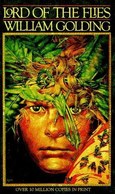
*Make sure you bring your
"Lord of the Flies" book with you to class
Mon. Oct. 3rd through Fri. October 7th
HAND IN "By the Waters of Babylon" Questions 1 - 11
Literature Book Page 152 - DUE Today!
*CLASSWORK/HOMEWORK
I. *LOTF - Journal #3 (In class writing. Write one paragraph answers for each question)
Pre-reading questions help you explore your own views
in order to uncover important themes in the novel.
Directions: Write down your response to each of the questions below.
1. What elements do you need to create a society?
2. Why do you think governments are or are not necessary?
3. How much time should people give to working as opposed to having fun? Why?
4. How should we treat people who have disabilities?
5. What are the best ways to hold people accountable for their actions?
--------------------------------------------------------------
II. Vocabulary Workshop #2 - Level E (10/3 through 10/7)
altruistic (adj.) unselfish, concerned with the welfare of others, selfless
assent (v.) (n.) to express agreement, agreement, concur, consent, accede
benefactor (n.) patron, humanitarian
chivalrous (adj.) marked by honor, courtesy, and courage; gallant, civil, valiant
clemency (n.) mercy, humaneness, mildness, moderateness leniency,
dearth (n.) a lack, scarcity, inadequate supply; a famine, paucity
diffident (adj.) shy, lacking self-confidence; modest, reserved, bashful,
discrepancy (n.) a difference; a lack of agreement, divergence, inconsistency
embark (v.) to go aboard; to make a start; to invest, commence
facile (adj.) easily done or attained; superficial; ready, fluent;
indomitable (adj.) unconquerable, refusing to yield, unyielding
infallible (adj.) free from error; absolutely dependable, unerring, certain
plod (v.) to walk heavily or slowly; to work slowly , lumber, trudge
pungent (adj.) causing a sharp sensation; stinging, biting, piquant, caustic,
remiss (adj.) neglectful in performance of one's duty, carelessness
repose (v.) (n.) to rest; lie; place; relaxation, peace of mind, calmness, respite
temerity (n.) rashness, boldness, effrontery, foolhardiness
truculent (adj.) fierce and cruel; aggressive; deadly, destructive; scathingly
unfeigned (adj.) sincere, real, without pretense, genuine, heartfelt
virulent (adj.) extremely poisonous, full of malice; spiteful, venomous,
*WRITE 1 complete sentence for each word - Due Fri. Oct. 7th (Homework)
Vocab Review Thursday 10/6 - Vocab Quiz Friday 10/7
--------------------------------------------------------------
III. READ FROM BOOK – Lord of the Flies Chapter 1- Pages 7-13 "The Sound of the Shell"
(What we don't finish reading in class, please read at home.)
--------------------------------------------------------------
IV. HOMEWORK - Due Wednesday 10/5/11
LOTF Questions # 1-24, Chapter 1 Pages 7-31 (See questions posted below)
The Sound of the Shell
1- What are "Screwed up eyes"?
2- What are the first intimations that Piggy is a rather lower-class person? How does he tell us by speech, movement and social action with Ralph?
3 - How does Ralph treat Piggy? Coiuld this be a personal reaction, or a class consciousness reaction? How would you be able to know?
4 - What is the setting that you are given in the first chapter? How would the word "Idyllic" be brought to bear?
5 - What is the forshadowing you receive that all may not be well in paradise?
Give specific details.
6 - What role do adults fill in the boys' lives? What do the boys do when there are no longer any adults available to be present?
7 - Are people basically sheep or goats in your view? What makes you support this opinion?
8 - The explorers go up... way up... but they only go up to see and claim the island as their own. What other historical figures have done this same sort of thing? Thus, are the boys typical or a-typical?
9 - What could indicate that some people in the tattered little band want power? Give some detail in your answer.
10 - What is the evidence of the plane wreck? What seems to be missing?
11 - If Piggy doesn't want to be Piggy anymore, why does he confess that this has been his hated name all along? What does this revelation get him?
12 - The conch shell fulfils a ritual need for many of the boys. Describe it. How do you know that Piggy has never tried to blow a musical instrument?
13 - What is the diet of fruit doing to the boys?
14 - The three boys go exploring and topple a huge rock into the jungle below a precipice. Using parallels to the society you are a part of, would you say that this is an adult or youthful thing to do?
15 - What is Piggy's reaction to Ralph's nakedness?
16 - What is a "cirque"? A "coign"?
17 - "The blade continued to flash at the end of the bioys arm..." What sort of thing seems to be going through Jack's head? What does he do or not do? What is his promise?
18 - How do you know the pig is terrified?
19 - "This toy of voting..." For the boys, voting seems to be a popularity contest, or one where the vote cast is pre-ordained. Why do the boys who vote for Jack, or for Ralph, vote the way they do? Could this be a reflection of voting in our "democratic" society? What could be the responsibility of a voter before voting?
20 - The boys show an insistant need for certainty in their lives whether on the island or not. Describe some of the evidence you find for this.
21 - Jack Merridew is the leader of what? What are his qualifications in his eyes? What might be his qualifications in the eyes of the person/people who appointed him?
22 - Piggy accepts Jack's telling him to "Shut up, fatty". Why?
23 - Jack collects power for himself. Ralph gets it by delegating responsibility. Find evidence for both their styles.
24 - There was a "Communion of shining eyes in the gloom" after pushing the huge rock down. What is the communion about?
HOMEWORK QUESTIONS- Due Wednesday 10/5/11
--------------------------------------------------------------
REMINDERS
A. Make sure you bring your "LORD of the FLIES" book with you
to class Monday October 3rd through Friday October 7th
B. Vocab #2 Review Thursday 10/6 - Vocab #2 Quiz Friday 10/7
*WRITE 1 complete sentence for each word - Due Fri. Oct. 7th (Homework)
C. Autobiographical Narrative ROUGH DRAFT DUE FRIDAY OCTOBER 7, 2011
See Literature Book Pages 59 - 60 for example
D. Book Report #1 - Literary collage - DUE Monday November 7, 2011
FRIDAY SEPTEMBER 30, 2011

* HAND IN QUICK WRITE "By the Waters of Babylon" Page 140 Literature Book - Due Today
* Go to library to check out Lord of the Flies. Make sure you bring
your Student ID with you so that you will be able to get a book.
CLASSWORK/HOMEWORK
I. READ "By the Waters of Babylon" Pages 144 -150 Literature Book
II. Answer Questions 1 - 11 Literature Book Page 152 - DUE Monday October 3rd
REMINDERS
A. Make sure you bring your "LORD of the FLIES" book with you
to class Monday October 3rd through Friday October 7th
B. Autobiographical Narrative ROUGH DRAFT DUE FRIDAY OCTOBER 7, 2011
See Literature Book Pages 59 - 60 for example
C. Book Report #1 - Literary collage - DUE Monday November 7, 2011
* Go to library to check out Lord of the Flies. Make sure you bring
your Student ID with you so that you will be able to get a book.
CLASSWORK/HOMEWORK
I. READ "By the Waters of Babylon" Pages 144 -150 Literature Book
II. Answer Questions 1 - 11 Literature Book Page 152 - DUE Monday October 3rd
REMINDERS
A. Make sure you bring your "LORD of the FLIES" book with you
to class Monday October 3rd through Friday October 7th
B. Autobiographical Narrative ROUGH DRAFT DUE FRIDAY OCTOBER 7, 2011
See Literature Book Pages 59 - 60 for example
C. Book Report #1 - Literary collage - DUE Monday November 7, 2011
Course Objectives
The goal of this course is to enhance your reading and writing skills, increase your vocabulary and grammar usage, to introduce you to new works of literature, and to help you prepare for Standardized Testing and the California High School Exit Exam. Hopefully by the end of the school year, you will have acquired the basic skills that you will need to be successful in future Language Arts classes that you are required to take while attending Cerritos High School.
THURSDAY SEPTEMBER 29, 2011
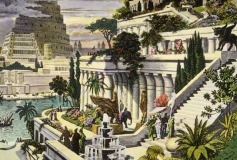
Bring your Student ID with you to class on Friday September 30th
as we will be checking out Lord of the Flies from the library
Continue Reviewing Autobiographical Narrative.
Literature Book Pages 58-60
*CLASSWORK
I. Autobiographical Narrative (5 Paragraph Essay) See example in Literature Book Pages 59-60
* Autobiographical Narrative ROUGH DRAFT DUE FRIDAY OCTOBER 7, 2011
II. REVIEW Pages 138 -140 in Literature Book - Narrative and Voice
III. READ "By the Waters of Babylon" Pages 141 -143 Literature Book
Literary Terms
1) Point of View : The intellectual or emotional perspective held by a NARRATOR or PERSONA (not to be confused with the author) in connection with a story. Here are the main possibilities:
A. FIRST PERSON PARTICIPANT - the story is narrated by one of the main
characters in the story (e.g. Mark Twain's, Huckleberry Finn).
B. FIRST PERSON OBSERVER - the story is narrated by a minor character,
someone plays only a small part in the plot (e.g. Emily Bronte's,
Wuthering Heights).
C. THIRD PERSON OMNISCIENT - the story is narrated not by a character,
but by an impersonal author who sees and knows everything,
including characters’ thoughts (e.g. the Iliad, Odyssey and Aeneid).
D.THIRD PERSON LIMITED - the story is narrated by the author, but he/
she focuses on the thinking and actions of a particular character.
E. OBJECTIVE- the story describes only what can be seen, as a newspaper reporter.
2) Voice - An author’s distinctive literary style, basic vision and general attitude toward the world. This “voice” is revealed through an author’s use of SYNTAX (sentence construction); DICTION (distinctive vocabulary); PUNCTUATION; CHARACTERIZATION and DIALOGUE. The voice of an author may cover a wide range of possibilities (e.g. “victim,” “judge,” “friend," "coach," “spy,” “opponent,” "cheerleader,” "critic," "alien").
3) Tone - The writer’s attitude, mood or moral outlook toward the subject and/or readers, e.g.: as angry, cynical, empathetic, critical, idealistic, ironic, optimistic, realistic, suspicious, comic, surprised, sarcastic or supportive; e.g. in Hamlet, when Shakespeare puts these words in the mouth of Polonius: "Brevity is the soul of wit," Shakespeare’s tone is clearly ironic and comic, since Polonius is a long-winded fool.
4) Allusion - A literary device which creates interests through a brief, indirect reference (not a quotation) to another literary work, usually for the purpose of associating the tone or theme of the one work with the other. Many of the allusions in T. S. Eliot's poem, The Wasteland, refer to the Bible and to Milton's, Paradise Lost. Shakespeare's plays are full of Biblical allusions; e.g.: "It out-herods Herod" (HAMLET, 3.2); "But on this travail look for greater birth" ("Measure for Measure," cf. Matt. 7:1-2); "Come lady, die to live" (the Friar to Leonato and Hero in Much Ado, 4.1.212; 252; cf. "unless a grain of wheat falls into the earth and dies, it remains alone; but if it dies, it bears much fruit" Jn. 12:24).
HOMEWORK
I. QUICK WRITE "By the Waters of Babylon" Page 140 Literature Book - Due Friday 9/30
REMINDERS
A. Bring your Student ID with you to class on Friday September 30th
as we will be checking out Lord of the Flies from the library
B. Make sure you bring your "LITERATURE BOOK" with you
to class Monday September 26 through Friday September 30th
C. No Vocabulary this week
D. Autobiographical Narrative ROUGH DRAFT DUE FRIDAY OCTOBER 7, 2011
See Literature Book Pages 59 - 60 for example
E. Book Report #1 - Literary collage - DUE Monday November 7, 2011
WEDNESDAY SEPTEMBER 28, 2011

Periods 1 & 4 English II (CP) Grade 10
HAND IN Questions 1 – 10 from page 86 (Literature Book )
*CLASSWORK
I. Journal #2 – Character – Know Thyself - Literature Book Page 74
On a sheet of line paper, describe in 3rd person (omniscient) your own character in detail. (physical and emotional self) Please explain the person that you are now on the first half of your paper (Positive and Negative qualities)
On the second half of your paper, explain in 1st person the ideal person that you would like to become and how you plan on getting there.
Review Autobiographical Narrative. Literature Book Pages 56 -58
Literary Terms
Author's Purpose - the reason the author has written a piece of literature. The writer may try to inform, persuade, entertain, or express an opinion. The writer’s primary goal influences how the writer presents the information.
Audience -The person(s) reading a text, listening to a speaker, or observing a performance.
REMINDERS
A. Make sure you bring your "LITERATURE BOOK" with you
to class Monday September 26 through Friday September 30th
B. No Vocabulary this week
C. Book Report #1 - Literary collage - DUE Monday November 7, 2011
TUESDAY SEPTEMBER 27, 2011
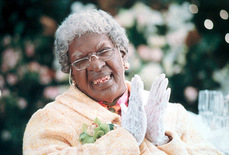
Periods 1 & 4 English II (CP) Grade 10
Students bring your Literature Book with you to class today.
Hand In - Homework Questions 1-10
(from Literature Book Page 53) – Due today.
Everyday Use For Your Grandma by Alice Walker
*CLASSWORK
I. Read and Discuss Chapter 2 Character – Literature Book Pages 73 -75
II. Quickwrite Page 76 (Literature Book)
III. Read together in class Everyday Use For Your Grandma by Alice Walker
Literature Book Pages 77 – 83 (What we don’t complete reading in class, read for homework.)
*HOMEWORK
I. On the same sheet of paper that you completed the Quickwrite (from Page 76), answer Questions 1 – 10 on page 86 (Literature Book )– Turn both assignments in on Wednesday September 28th.
REMINDERS
A. Make sure you bring your "LITERATURE BOOK" with you
to class Monday September 26 through Friday September 30th
B. No Vocabulary this week
C. Book Report #1 - Literary collage - DUE Monday November 7, 2011
Students bring your Literature Book with you to class today.
Hand In - Homework Questions 1-10
(from Literature Book Page 53) – Due today.
Everyday Use For Your Grandma by Alice Walker
*CLASSWORK
I. Read and Discuss Chapter 2 Character – Literature Book Pages 73 -75
II. Quickwrite Page 76 (Literature Book)
III. Read together in class Everyday Use For Your Grandma by Alice Walker
Literature Book Pages 77 – 83 (What we don’t complete reading in class, read for homework.)
*HOMEWORK
I. On the same sheet of paper that you completed the Quickwrite (from Page 76), answer Questions 1 – 10 on page 86 (Literature Book )– Turn both assignments in on Wednesday September 28th.
REMINDERS
A. Make sure you bring your "LITERATURE BOOK" with you
to class Monday September 26 through Friday September 30th
B. No Vocabulary this week
C. Book Report #1 - Literary collage - DUE Monday November 7, 2011
MONDAY SEPTEMBER 26, 2011
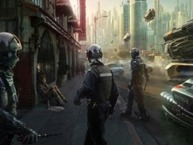
*CLASSWORK
READ & DISCUSS "The Pedestrian" by Ray Bradbury
Literature Book Pages 46 - 52
Literary Terms
Setting - the time, place, physical details, and circumstances in which a situation occurs. Settings include the background, atmosphere or environment in which characters live and move, and usually include physical characteristics of the surroundings.
Mood- emotional effect that the text creates for the audience (positive or negative)
Author's Purpose- the reason the author has written a piece of literature. The writer may try to inform, persuade, entertain, or express an opinion. The writer’s primary goal influences how the writer presents the information.
HOMEWORK
Literature Book Page 53 - Answer Questions 1-10 Due Tuesday 9/27
REMINDERS
A. Make sure you bring your "LITERATURE BOOK" with you
to class Monday September 26 through Friday September 30th
B. No Vocabulary this week
C. Book Report #1 - Literary collage - DUE Monday November 7, 2011
READ & DISCUSS "The Pedestrian" by Ray Bradbury
Literature Book Pages 46 - 52
Literary Terms
Setting - the time, place, physical details, and circumstances in which a situation occurs. Settings include the background, atmosphere or environment in which characters live and move, and usually include physical characteristics of the surroundings.
Mood- emotional effect that the text creates for the audience (positive or negative)
Author's Purpose- the reason the author has written a piece of literature. The writer may try to inform, persuade, entertain, or express an opinion. The writer’s primary goal influences how the writer presents the information.
HOMEWORK
Literature Book Page 53 - Answer Questions 1-10 Due Tuesday 9/27
REMINDERS
A. Make sure you bring your "LITERATURE BOOK" with you
to class Monday September 26 through Friday September 30th
B. No Vocabulary this week
C. Book Report #1 - Literary collage - DUE Monday November 7, 2011
FRIDAY SEPTEMBER 23, 2011
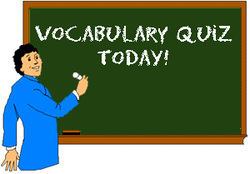
*CLASSWORK
I. Hand in Vocabulary Sentences
II. Take Vocabulary Quiz #1
III. After you finish the Vocabulary Quiz, please begin the
following assignment which is due today, at the end of the period.
A. Use your Literature Book pages 2 - 4 and 979 - 991 to define the literary terms listed below
Conflict (external & internal: gives examples)
Setting
Flashback
Flash-Forward
Foreshadowing
Chronological Order
Cause & Effect
Plot
B. Create a plot diagram similar to the one found on Page 3 in your literature book.
Label the diagram and plug in the events in sequence as they appear in the story "Contents of the
Dead Man's Pocket" Pages 6 - 17. You will need to give details about the exposition, rising action
(list all of the complications that the main character encounters), climax, and resolution.
Due today, at the end of the period!
REMINDERS
A. Make sure you bring your "LITERATURE BOOK" with you
to class Monday September 26 through Friday September 30th
B. Book Report #1 - Literary collage - DUE Monday November 7, 2011
I. Hand in Vocabulary Sentences
II. Take Vocabulary Quiz #1
III. After you finish the Vocabulary Quiz, please begin the
following assignment which is due today, at the end of the period.
A. Use your Literature Book pages 2 - 4 and 979 - 991 to define the literary terms listed below
Conflict (external & internal: gives examples)
Setting
Flashback
Flash-Forward
Foreshadowing
Chronological Order
Cause & Effect
Plot
B. Create a plot diagram similar to the one found on Page 3 in your literature book.
Label the diagram and plug in the events in sequence as they appear in the story "Contents of the
Dead Man's Pocket" Pages 6 - 17. You will need to give details about the exposition, rising action
(list all of the complications that the main character encounters), climax, and resolution.
Due today, at the end of the period!
REMINDERS
A. Make sure you bring your "LITERATURE BOOK" with you
to class Monday September 26 through Friday September 30th
B. Book Report #1 - Literary collage - DUE Monday November 7, 2011
THURSDAY SEPTEMBER 22, 2011
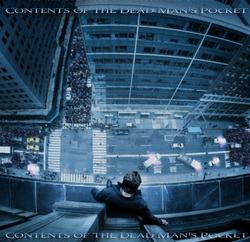
*CLASSWORK
I.Revise yesterday's Journal # 1 - Dead Man's Pocket from Lit Book Page 4. Review instructions on page 19 in your literature book
"Writing" Just add the details. (See example of Author's writing style on page 9 in the story) - Due today at the end of the period!
II. Review for Friday's Vocabulary Quiz #1
III. HAND IN - Dead Man's Pocket - Lit Book Questions from Page 19. Q 1 through 8 - Due Today!
HOMEWORK ASSIGNMENT(S)
I. Write a complete sentence for each of your vocabulary words Due Friday 9/23 before Quiz
II. Study for Vocabulary Quiz #1 (See words and definitions at classroom web site)
http://abcusdcerritoshsmarzo2.weebly.com/vocab.html
REMINDERS
A. Make sure you bring your "LITERATURE BOOK" with you
to class Tuesday September 20 through Friday September 23rd
B. Book Report #1 - Literary collage - DUE Monday November 7, 2011
WEDNESDAY SEPTEMBER 21, 2011
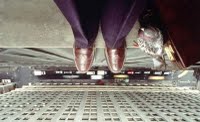
CLASSWORK
I. Journal # 1 - Dead Man's Pocket - Quick Write Lit Book Page 4
Write 1/2 page - Due Today!
II. Copy Plot Structure Chart from Screen on the same paper that you composed today's Quick Write
III. Read together in class from Literature Book
"Contents of the Dead Man's Pocket" by Jack Finney - Pages 6 - 17
Because Wednesdays are Late Start (and we have a shorter class period), you will
need to finish reading the story at home if we do not complete it in class today.
*CLASSWORK/HOMEWORK ASSIGNMENT(S)
IV. Dead Man's Pocket - Lit Book Questions Page 19. Answer Q 1 through 8 - Due Thurs.9/22
V . Write a complete sentence for each of your vocabulary words Due Friday 9/23 before Quiz
REMINDERS
A. Make sure you bring your "LITERATURE BOOK" with you
to class Tuesday September 20 through Friday September 23rd
B. Book Report #1 - Literary collage - DUE Monday November 7, 2011
C. Write a complete sentence for each of your vocabulary words Due Friday 9/23 before Quiz
D. Vocabulary Workshop Level E Unit 1 - Week 2 (9/19 through 9/23)
Vocab Review Thursday 9/22 - Vocab Quiz Friday 9/23
TUESDAY SEPTEMBER 20, 2011
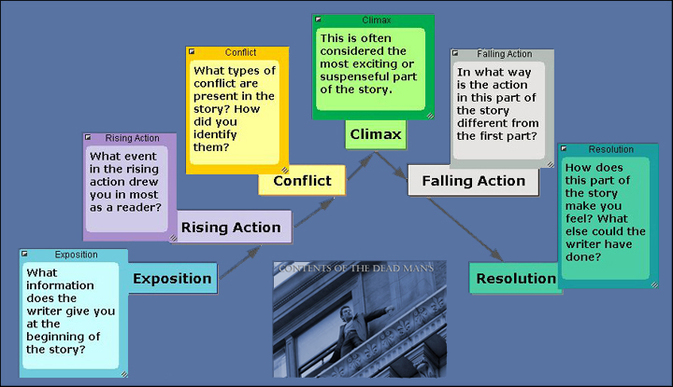
CLASSWORK
I. Review homework "Getting To Know Your Text Book" (handout)
II. Turn in homework (handout)
A. DOL/Analogies & Getting To Know Your Text Book
*CLASSWORK/HOMEWORK ASSIGNMENT(S)
I. Review Story Plot & Structure Pages 1-5 Literature Book
II. Write a complete sentence for each of your vocabulary words Due Friday 9/23 before Quiz
REMINDERS
A. Make sure you bring your "LITERATURE BOOK" with you
to class Tuesday September 20 through Friday September 23rd
B. Book Report #1 - Literary collage - DUE Monday November 7, 2011
C. Write a complete sentence for each of your vocabulary words Due Friday 9/23 before Quiz
D. Vocabulary Workshop Level E Unit 1 - Week 2 (9/19 through 9/23)
Vocab Review Thursday 9/22 - Vocab Quiz Friday 9/23
MONDAY SEPTEMBER 19, 2011
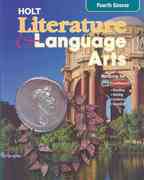
CLASSWORK
I. WARM UP - DOL # 1 Capitalization & Analogies (Handout) - Due Tue. Sept. 20th
II.Go to library to check out literature book
*CLASSWORK/HOMEWORK ASSIGNMENT(S)
III. "Getting To Know Your Text Book" (handout) - DUE TUESDAY SEPTEMBER 20th
IV.Copy Vocabulary words from screen and write a complete sentence
for each of your vocabulary words- Due Friday 9/23 before Quiz
REMINDERS
A. Make sure you bring your "LITERATURE BOOK" with you
to class Tuesday September 20 through Friday September 23rd
B. Book Report #1 - Literary collage - DUE Monday November 7, 2011
C. Write a complete sentence for each of your vocabulary words Due Friday 9/23 before Quiz
D. Vocabulary Workshop Level E Unit 1 - Week 2 (9/19 through 9/23)
Vocab Review Thursday 9/22 - Vocab Quiz Friday 9/23
Terms Definitions
affiliated- associated, connected
ascertain - to find out
attainment - to accomplish, the act of achieving
bequeath - to give or pass as an inheritance
cogent - forceful, convincing; relevant, to the point
converge - to move toward one point, approach nearer together
disperse - to scatter; spread far and wide
esteem - to regard highly, a highly favorable opinion or judgement
expunge - to erase, obliterate, destroy
finite - having limits, lasting for a limited time
invunerable - not able to be wounded or hurt; shielded against attack
nonchalant - cool and confident, unconcerned
omniscient - knowing everything; having unlimited awareness or understanding
panacea - a remedy for all ills; cure all; an answer to all problems
malevolent - spiteful, showing ill will
scrupulous - exact, careful, attending to details; having high moral standards, principles
skulk - to move about stealthily; to lie hidden
supercilious - proud and contemptous; showing scorn because of a feeling of superiority
uncanny - strange, mysterious, weird, beyond explanation
venial - easily excused; pardonable
FRIDAY SEPTEMBER 16, 2011
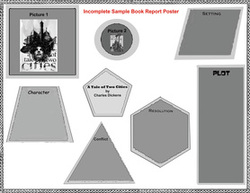
I. Book Report #1 - Review - DUE Monday November 7, 2011
II. English II Entry Level Assessment
Part 2 - Scantron Test - Finish Exam
REMINDERS:
* Book Report #1-Literary Collage - Due Mon. November 7th (See handout for details)
THURSDAY SEPTEMBER 15, 2011
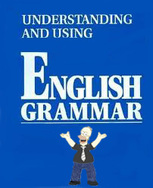
I. Sentence Fragments (Activity)
II. Run-on Sentences (Work Sheet)
Example: Your brain is an organ
Expand on the short sentence above using the five Ws.
Punctuate correctly so you don't create a run-on sentence.
Who? Abby Normal (or your)
What? brain
Where? CastleFrankenstein
When? Stormy night, 1782
Why? defective
How? Using lightning
One stormy night in 1782, Abby Normal's defective brain was reanimated using lightning, at Castle Frankenstein.
When Who Why What How Where
III. English II Entry Level Assessment Part 1
WEDNESDAY SEPTEMBER 14, 2011
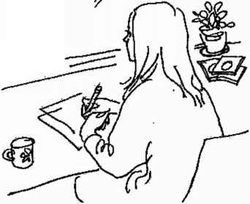
Pre-Writing Activity: Brainstorming and Run-on Sentences
Free Write
When you free write, you write whatever comes into your head about your topic, without stopping. Free writing helps you practice fluency (writing quickly and easily). When you free write, you do not need to worry about accuracy (having correct grammar and spelling). Don't stop, erase, or go back if you make a mistake. Just keep writing!
Write for six minutes straight, don’t ponder about what you’ll write next, and just continue writing out your thoughts. Once we start you cannot stop until the six minutes are up. I shouldn’t see anyone not writing at this time, so your hand must be in motion throughout the exercise. If your hand begins to hurt toward the end of this activity, that means you are doing it correctly. Also, discard old notions that sentences should be a certain length. A writer's command of long and short sentences makes for a "more pliable" writing range.
Here is an example of a student's free writing:
There tire hm so many subjects to study at university, it is difficult to choose one for my major. I've always madegood grades in math, but / dont (ike it very much. / don't (ikephysicalphysics or any science very much. Writing—ive always liked writing. Would journalism he a good course to take? Neu/spapers have pictures, ioo, so maybe photography would begood, fm maybe definitely looking forward to meeting new friends at university. And what about reading? Reading is a part of any course, but literature includes a lot of reading and it probably includes a lot of writing, too.
Notice how the writer's ideas jump around. When she makes a mistake, she just crosses it out and continues writing. One thought [writing] leads to another (journalism), and then to another {photography). There are some details that are not exactly about her topic (looking forward to meeting new friends)> but that's OK in free writing. You want to get as many ideas on paper as you can. You can take out unnecessary words and sentences later.
I.Exchange papers with another person in the classroom.
II. Proof read their paper and identify at lease one topic sentence that you like
(Must have subject & verb) Circle or highlight the topic sentence(s).
Return the paper to its owner.
III. Select the topic sentence that you like best from your free write and reconstruct it
on the back side or another sheet of paper. (If you do not like the topic sentence the
proof reader selected from your paper, you may use another one.)
IV. Once you have witten down the topic sentence, expand on the topic writing one to two paragraphs.
Please print neatly, edit your own work and had in your rough draft along with your final.
Turn in to black tray at the end of the period.
TUESDAY SEPTEMBER 13, 2011
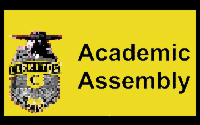
Academic Grade Level Assembly (Grade 10)
English II (CP) Periods 1 & 4
After we take roll, please go to the West Gym for Grade Level Assembly
Presenters: Mr. Wentz/Mrs. Chan
During this assembly, School Administration will be distributing student
planners and letters outlining the student Gaggle E-mail program.
MONDAY SEPTEMBER 12, 2011
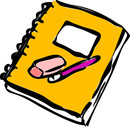
* Fill out Student Information Sheet
* Review Classroom Website
ABI Account Set Up & Registration Document
(Download by clicking on the link below)
abi_account_setup.doc
Download File Aeries Parent Portal (Check grades and attendance here)
https://www.abi.myabcusd.org/
What is the difference between Edline, ABI, and EasyGradePro?
Edline is the umbrella program that houses both ABI and EasyGradePro.
Edline is a password protected web‐based program that allows teachers to post
homework, documents, and grades. That’s where ABI and EasyGradePro come in.
ABI and EasyGradePro are grading and attendance programs used by teachers.
ABI is password based and can be found
on the Cerritos High School Homepage
https://www.edline.net/pages/Cerritos_High_School
or under Links on a teacher’s Edline class page, while EasyGradePro is
automatically uploaded to a teacher’s Edlineclass page under the title Student Report.
Features of Each Program
Edline
• Requires an initial activation code that can be obtained from front office or teacher.
• Includes posted homework, syllabi, grades or link to a classroom website outside of the
network.
• If teacher uses ABI, grades are located under Links
• If teachers uses EasyGradePro, grades are located
underContents as Student Report or Grades
• Forgotten screen names or passwords can be
retrieved by going to cerritoshs.com, clicking
on login, and then clicking on Click here if you
forgot your screen name or password.
• Frequency of updates responsibility of the teacher.
ABI
• Gradebook and attendance online software.
• Used by some teachers as a gradebook system.
• Used by all teachers to post progress reports and quarter or semester grades.
• Parent and/or student must have email address on file through the front office or teachers.
• Links to ABI are on the Cerritos homepage under
Links or on certain teacher pages on Edline.
• Forgotten email address or password can be
retrieved by clicking on “Forgot Your Password.”
• Frequency of updates responsibility of teacher.
EasyGradePro
• Gradebook software used by some teachers.
• Shows on Edline under Contents as either Student Report or Grades.
• Frequency of updates responsibility of teacher.
FRIDAY SEPTEMBER 9, 2011

*REVIEW "English II Syllabus"(handout)
Note: The information below pertains to last year's English II Curriculum.
Please disregard and refer to the NEW information that is posted above.
_____________________________________________________________________
Friday June 10, 2011
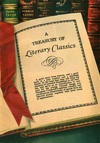
* Students you need to bring your Literature and Julius Caesar books
with you to class today. We will be returning both books to the library.
* Book Report #4- Due TODAY! Friday June 10, 2011
(See instructions under the BOOK REPORTS TAB for details)
http://abcusdcerritoshsmarzo.weebly.com/book-rpts.html
The Macabre Side of Literary & Historical Classics (Mash-Up Parodies)
Mash-up classical novels for High School Students who want read literature that has been turned on it's head. The original text is combined with new words to create tales that are both emotionally heart-wrenching and literally feature human hearts being wrenched from rib cages. It's sick and twisted dark satire at its best!
http://www.amazon.com/lm/R3F1CC6ISCYVRO/ref=cm_lm_pthnk_view?ie=UTF8&lm_bb=
http://qwillery.blogspot.com/p/mash-up-etc.html
Instructions:
Report must be three to four pages long (Typed, double spaced, #12 font Times New Roman or
Arial font only, 1" margins on right/left hand sides of paper) - 75 Points
Identify the following story components:
1) Setting
2) Analysis of novel's major characters (Character development, character descriptions and/or traits)
3) Plot/problem (Conflict)
4) Climax
5) Resolution
6) Why is the novel a parody (satire) of the original classic?
7) What parts of the story do you think are from the text of the original classic?
8) What parts were added to change the book into a horror/suspense story?
9) What was your favorite part of the story and why?
10) Would you recommend this book to others and why?
NOTE: If you do not want to read a Mash-Up Parody of a
Literary Classic, you may select one of the titles from the list below.
CATCH-22
DON QUIXOTE
ETHAN FROME
ANNA KARENINA
THE GRAPES OF WRATH
HEART OF DARKNESS
PRIDE AND PREJUDICE
A TALE OF TWO CITIES
TESS OF THE D’URBERVILLES
WUTHERING HEIGHTS
THE AGE OF INNOCENCE
THE FOUR FEATHERS
THE MAN IN THE IRON MASK
A PORTRAIT OF THE ARTIST AS A YOUNG MAN
SLAUGHTERHOUSE-FIVE
THE MOON IS A HARSH MISTRES
STRANGER IN A STRANGE LAND
A PASSAGE TO INDIA
A PRAYER FOR OWEN MEANY
THE WORLD ACCORDING TO GARP
ALL THE KING’S MEN
THE SUN ALSO RISES
A FAREWELL TO ARMS
NAKED LUNCH
THE HANDMAID’S TALE
BLOOD MERIDIAN
THE STAND BY STEPHEN KING
RAGTIME
ONE HUNDRED YEARS OF SOLITUDE
LIFE OF PI
THE NAME OF THE ROSE
THE POISONWOOD BIBLE
ONE FLEW OVER THE CUCKOOS NEST
THE CORRECTIONS
FREEDOM BY JONATHAN FRANZEN
THE BRIEF WONDROUS LIFE OF OSCAR WAO
EMPIRE FALLS
THE AMAZING ADVENTURES OF KAVALIER & CLAY
LONESOME DOVE
* To report on a classical novel from the list above, follow the same instructions
for the Mash-Up Parody but you do not need to answer questions 6, 7, & 8
Tuesday June 7, 2011
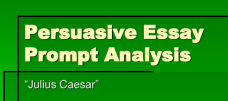
CLASSWORK
I. Journal - Part 1 - Title: Do the needs of the manyoutweigh the needs of the few - WRITE 1/2 Page
II. Journal - Part 2 - Title: Fate vs Freewill - WRITE 1/2 Page
The fault, dear Brutus, is not in our stars, / But in ourselves, that we are underlings” Do you agree with Cassius' statement?
HOMEWORK
I. Julius Caesar Persuasive Essay (100 Points)
DUE Wednesday June 8, 2011
Just as Brutus attempted to use the idea that the end justifies the means to rationalize his decision to kill Caesar, some people today use the same argument to justify acts of war, violent protest, or terrorism. In a well organized essay, defend, challenge, or qualify the validity of this argument. Use examples from your reading, observation, and/or experience to support your position.
What does the end justifies the means mean?
This phrase, originating from Niccolo Machiavelli's book "The Prince", is interpreted by some to mean doing anything whatsoever that is required to get the result you want, regardless of the methods used. It does not matter whether these methods are legal or illegal, fair or foul, kind or cruel, truth or lies, democratic or dictatorial, good or evil.
The phrase the end justifies the means refers to the morality of an action. It means that the morality of an action is based solely on the outcome of that action and not on the action itself. Example: Telling a lie that has no negative effect on anyone, and saves someone grief, is good. Killing someone to save others may also be morally justifiable.
A deontologist would say lying/killing is always bad. A consequentialist would say that it is acceptable if the outcome is positive. It can involve illegal activities and what some would consider immoral methods, but definitely is not based on that.
The end justifies the means refers to the idea that if you need a specific outcome, it doesn't matter how it is achieved as long as you get the desired result. For instance, if you need to pass a test in order to graduate (the end) you can justify cheating in order to pass the test (the means).
The end justifies the meansis normally used to comment on the ethics or morality of a given action. By itself, it might be reprehensible. But as the only method to achieve a goal, it could be acceptable on a practical basis. A simple example would be knocking down historic buildings as a last resort to control rat populations. A more complex example would be World War II, which included bombing German and Japanese cities to reduce their munitions production.
REMINDERS
*Julius Caesar Persuasive Essay(100 Points) - DUE WEDNESDAY JUNE 8, 2011
(5-Paragraph Essay, Typed, Double Spaced, #12 Arial Font, 1" Margins)
* Book Report #4- Due Friday June 10, 2011
(See instructions under the BOOK REPORTS TAB for details)
http://abcusdcerritoshsmarzo.weebly.com/book-rpts.html
*Julius Caesar Persuasive Essay(100 Points) - DUE WEDNESDAY JUNE 8, 2011
(5-Paragraph Essay, Typed, Double Spaced, #12 Arial Font, 1" Margins)
* Book Report #4- Due Friday June 10, 2011
(See instructions under the BOOK REPORTS TAB for details)
http://abcusdcerritoshsmarzo.weebly.com/book-rpts.html
Friday June 3, 2011
Brutus' Death
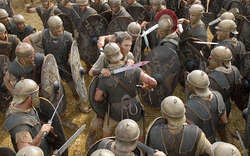
* Students you need to bring your
Julius Caesar book with you to class today.
CLASSWORK
I. Journal - Title: Julius Casear Dictator or Savior
Explain why Julius Caesar may represent Jesus Christ.
What religious connotations can you find imbedded within the play?
Give examples on how Shakespeare uses Christianity to make Caesar appear larger than life. WRITE 1/2 Page
Tuesday May 31, 2011
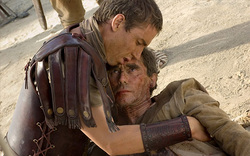
* Students you need to bring your
Julius Caesar book with you to class today.
CLASSWORK
I. COPY JC Notes from Screen - Literary Devices (All Lit Terms will be on the Julius Caesar Final Exam)
Get your Notes Stamped when complete if you want to obtain full credit.
1) Anachronism:
Something that is misplaced in a story because it is out of time.
In Julius Caesar, a clock strikes though there were no clocks in Caesar’s day.
2) Irony (verbal)
Verbal irony is saying one things but meaning another. In Julius Caesar, when Mark Antony
refers in his funeral oration to Brutus as "an honorable man" repeatedly, he really means the opposite.
3) Hyperbole:
Exaggeration; overstatement. Examples: (1) He [Julius Caesar] doth bestride the narrow world like a Colossus, and we petty men walk under his...huge legs.–Shakespeare. (Caesar has become a giant.) (2) Ten thousand oceans cannot wash away my guilt. (3) Oscar has the appetite of a starving lion.
4) Alliteration:
repetition of the same sound beginning several words in sequence. Veni, vidi, vici. Julius Caesar
5) Apostrophe: (not the punctuation)
a sudden turn from the general audience to address a specific groupor person or personified abstraction absent or present.
*For Brutus, as you know, was Caesar's angel.
Judge, O you gods, how dearly Caesar loved him. Shakespeare, Julius Caesar
6) Allusion
"why, man he doth bestride the narrow world like a Colossus" (Cassius, Act 1, Scene 2)
This is an allusion to the Colossus of Rhodes, one of the seven wonders of the ancient world
"Ay, as Aeneas, our great ancestor, did from the flames of Troy upon his shoulder the old Anchises bear.." (Cassius, Act 1, scene 2) Aeneas was the son of Anchises and Aphrodite. He is associated with the founding of Rome, and his story is told in Virgil's Aeneid.
7) Anaphora:
The deliberate repetition of a word or phrase at the beginning of several successive verses, clauses, or paragraphs.
One of the devices of repetition, in which the same phrase is repeated at the beginning of two or more lines.
"And Brutus is an honorable man."
8) Foreshadowing:
Foreshadowing is a key literary device in the play. We see foreshadowing from the beginning of the play, when the Soothsayer tells Caesar to "Beware the Ides of March" in Act I, Scene I, which happens to be the day that Caesar is killed. Calpurnia later dreams of Caesar's death, but he does not heed her warning. this not only tells us what is going to happen, but it also shows us how Caesar's status and ego are getting to his head. Foreshadowing gives us a hint of what is to come, and can also reflect upon a character or characters.
9) Antithesis
A figure of speech in which sharply contrasting ideas are juxtaposed in a balanced or parallel phrase or grammatical structure. "Not that I loved Caesar less, but that I loved Rome more." from speech by Brutus in J. Caesar
10) Paradox:
"Cowards die many times before their deaths." Is a quote made by Ceasar in the book. This quote is a paradox because man can't actually die several times, but men fear death so much that they may as well be dead because they aren't living their lives to the fullest.
11) Oxymoron
Using contradiction in a manner that oddly makes sense. Examples of oxymora include jumbo shrimp, sophisticated rednecks, and military intelligence. The best oxymora seem to reveal a deeper truth through their contradictions. For instance, "without laws, we can have no freedom." Shakespeare's Julius Caesar also makes use of a famous oxymoron: "Cowards die many times before their deaths" (2.2.32).
12) Aside:
An aside is words spoken to the audience or perhaps to another character while other characters are on stage. The other characters pretend to not hear and we the audience get to listen in on the thoughts. In William Shakespeare's Julius Caesar, Trebonius is told to stay close to Caesar's side and he replies to Caesar: "Caesar, I will (and in an aside to the audience) and so near will I be,/That your best friends shall wish I had been further." (II. iv. 124-125) The audience hears everything, but everyone pretends that Caesar does not hear Trebonius' threatening words. It is a device used so that the audience gets to hear the candid, inner thoughts of the characters.
13) Pun (double entendre)Comic relief, a word or expression that has two different meanings
JC Act 1; Scene 1; Line 15 "a mender of bad souls"
14) Monolouge
Refers to a speech by one person in a drama, a form of entertainment by a single speaker, or an extended part of the text of a play uttered by an actor. ANTONY: Friends, Romans, countrymen, lend me your ears; Act III, Scene ii
15) Metaphor
Upon what meat doth this our Caesar feed / That he is grown so great? (I, ii, 149-50)
Analysis: Cassius compares Caesar to a carnivore and the common citizens to meat, not a very flattering comparison.
Metaphor: Let me have men about me that are fat, / Sleek-headed men, and such as sleep o' nights. / Yond Cassius has a lean and hungry look; / He thinks too much, such men are dangerous. (I, ii, 192-5).
16) Onomatopoeia
Use of words to imitate natural sounds. Brutus says "The exhalations whizzing in the air,: whizzing is an example of onomatopoeia. Act 2; Scene 1; Line 44
17) Simile
The skies are painted with unnumbered sparks, / They are all fire, and every one doth shine; / But there's but one in all doth hold his place. / So in the world: 'tis furnished well with men. / And men are flesh and blood, and apprehensive, / yet in the number I do not know but one / That unassailable holds on his rank, / Unshaked of motion; and that I am he. (III, i, 63-70).
Analysis: The reader gains a glimpse of the arrogant Caesar, who compares himself to the Northern star, that the conspirators fear.
18) Iambic pentameter
A ten-syllable line consisting of five iambs is said to be in iambic pentameter ("penta" = five). Its stress pattern (five pairs of unstressed/stressed syllables) is conventionally represented U /U / U /U / U /
/ / - / - - / - - /
Friends, Romans, countrymen, lend me your ears;
19) Personification
Giving human traits (qualities, feelings, action, or characteristics) to non-living objects (things, colors, qualities, or ideas) Addressing conspiracy as if it were a person. (see example below)
20) Soliloquy
An utterance or discourse by a person who is talking to himself or herself or is disregardful of or oblivious to any hearers present. Cassius in soliloquy about Brutus Act 1 Scene 2
O conspiracy,
Sham’st thou to show thy dan’rous brow by night,
When evils are most free? O, then by day
Where wilt thou find a cavern dark enough
To mask thy monstrous visage? Seek none, conspiracy;
Hide it in smiles and affability:
For if thou path, thy native semblance on,
Not Erebus itself were dim enough
To hide thee from prevention.
II. READ JC ACT V - Pages 167 - Scene 1 - The plains of Philippi
Scene 2 - The same field of battle. Scene 3 - Another part of the field.
REMINDERS
* Julius Caesar Theme Park Project- 50 points - Due Monday June 6, 2011
*Julius Caesar Persuasive Essay(100 Points) - DUE WEDNESDAY JUNE 8, 2011
(5-Paragraph Essay, Typed, Double Spaced, #12 Arial Font, 1" Margins)
* Book Report #4- Due Friday June 10, 2011
(See instructions under the BOOK REPORTS TAB for details)
http://abcusdcerritoshsmarzo.weebly.com/book-rpts.html
Friday May 27, 2011
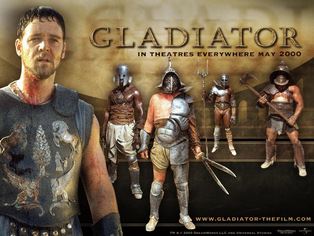
Circus Maximus
The Circus Maximus was the largest stadium in ancient Rome. At one point the Circus could seat 250.000 people, one quarter of Rome's population.
Early History
Chariot races were one of the Roman's most popular form of entertainment. Romulus, the first of Rome's seven kings, is said to have held chariot races. The origins of the Circus Maximus go back to the 6th century BC when Tarquinius Priscus, the fifth king of Rome, created a track between the Palatine and
Aventine hills. The first permanent starting gates were created in 329 BC. In 174 BC the gates were rebuilt and seven wooden eggs were placed on top of the spina, the central wall in the arena. The eggs were used to count the number of laps; after each lap one egg was removed. In 33 BC seven bronze dolphins were added to the spina for the same purpose.
Wooden Structures
A fire in 31 BC, the first of three, destroyed the wooden structure. It was rebuilt by emperor Augustus who also added an imperial box on the palatine hill. A large obelisk from Heliopolis was added to the spina as a decoration. The obelisk can now be found at the center of the Piazza del Popolo. Another obelisk was added much later, in the 4th century.
A second fire, in AD 64, which started in wooden shops at the bottom around the track started the fire that burned much of Rome during the reign of emperor Nero.
The Marble Stadium
After yet another fire the Circus was rebuilt by Trajan in AD 103. The Roman empire was at the height of its power and the new Circus Maximus reflected this status. The Circus was now a stone construction, three stories high. The lower part of the cavea (seating area) was built in marble. The arena complex was now more than 600m long and 150m wide (2000x500ft).
Popular Events
The Circus Maximus was occasionally used for events such as processions or gladiator combats, but on most days only chariot races with quadrigaes, pulled by four horses, were held here. The races themselves were wildly popular with people fanatically supporting one of the four factions: red, white, green and blue representing summer, winter, spring and autumn respectively. Bets were laid on one of the factions and supporters of the different factions often clashed, sometimes resulting in deaths among the spectators.
The Last Race
The last race at the Circus Maximus was held in AD 549, almost a millennium after the first races were held at this location. Today only the layout of the original circus can be seen in what is now a large grassland. Most of the original structure has been used as building material for medieval and Renaissance constructions.
REMINDERS
* Julius Caesar Theme Park Project- 50 points - Due Monday June 6, 2011
*Julius Caesar Persuasive Essay(100 Points) - DUE WEDNESDAY JUNE 8, 2011
(5-Paragraph Essay, Typed, Double Spaced, #12 Arial Font, 1" Margins)
* Book Report #4- Due Friday June 10, 2011
(See instructions under the BOOK REPORTS TAB for details)
http://abcusdcerritoshsmarzo.weebly.com/book-rpts.html
Tuesday May 24, 2011
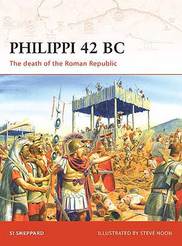
* Students you need to bring your
Julius Caesar book with you to class today.
REMINDERS
* Julius Caesar Theme Park Project- 50 points - Due Monday June 6, 2011
*Julius Caesar Persuasive Essay(100 Points) - DUE WEDNESDAY JUNE 8, 2011
(5-Paragraph Essay, Typed, Double Spaced, #12 Arial Font, 1" Margins)
* Book Report #4- Due Friday June 10, 2011
(See instructions under the BOOK REPORTS TAB for details)
http://abcusdcerritoshsmarzo.weebly.com/book-rpts.html
Monday May 23, 2011
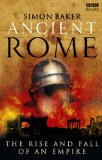
CLASSWORK:
I. FILM Continued:
BBC's Ancient Rome: The Rise and Fall of an Empire - Part II
REMINDERS
* Julius Caesar Theme Park Project- 50 points - Due Monday June 6, 2011
*Julius Caesar Persuasive Essay(100 Points) - DUE WEDNESDAY JUNE 8, 2011
(5-Paragraph Essay, Typed, Double Spaced, #12 Arial Font, 1" Margins)
* Book Report #4- Due Friday June 10, 2011
(See instructions under the BOOK REPORTS TAB for details)
http://abcusdcerritoshsmarzo.weebly.com/book-rpts.html
EXTRA CREDIT - 85 Points - Last day to turn in is Friday June 8, 2012

EXTRA CREDIT 85 Points - Tour the Getty Villa and take a picture of yourself in the Villa dei Papyri next to any one of the 6 black statues of the Girl Fastening her Peplos (See picture below ) The statues are all surrounding a impluvium (collecting pool) located in Atrium. Return the picture along with your ticket stub , current Getty Museum Brochure and a two page (Typed, Double Spaced, #12 Arial Font, 1" Margins) paper.
Your report MUST include detailed descriptions of five ancient artifacts from the time of Julius Caesar (July 100 BC – 15 March 44 BC) that are on display at the Getty Villa Museum. You must also explain your experiences at the Museum and your overall impression of it. Provide enough detail so that the reader of your report, will get a sense of having made the observations themselves.
Visit the Getty Villa, an educational center and museum dedicated to the
study of the arts and cultures of ancient Greece, Rome, and Etruria.
http://www.getty.edu/visit/
Address
Getty Villa
17985 Pacific Coast Highway
Pacific Palisades, CA 90272
Important! Please note: You must make a reservation at the Getty Website
before being able to gain enterance to the museum.Access to the Getty Villa entrance
is only from the northbound right-hand lane of Pacific Coast Highway (PCH).
Book your free tickets to the Getty Villa here.
What to See
-
Greek, Roman, and Etruscan antiquities arranged by themes including Gods and
Goddesses, Dionysos and the Theater, and Stories of the Trojan War - Roman-inspired architecture and gardens
Admission to the Getty Villa
Admission to the Getty Villa and to all exhibitions is FREE. An advance, timed ticket is required for each adult. Each Villa general admission ticket allows you to bring up to three children ages 15 and under with you in one car. (This does not apply to tickets for events, such as lectures and performances.)
Book your free tickets to the Getty Villa now.
For tips on receiving and printing tickets to the Getty Villa, see frequently asked questions.
Public Transportation
Get to the Getty Villa via public transport! The Getty Villa is served by Metro Bus 534, which stops at Coastline Drive and Pacific Coast Highway directly across from the Getty Villa entrance. To find the route that is best for you, call 323-GO-METRO ( 323-466-3876 ) or use the Trip Planner on www.metro.net, the Web site of the Los Angeles County Metropolitan Transportation Authority. (Please note that passengers riding the bus to visit the Getty Villa must have their Villa admission ticket hole-punched by the driver before exiting the bus.)
See suggested bus and rail routes to the Getty Villa.
L.A. Metro Bus and Metro Rail Map (874 KB)
Parking
Parking is $15 per car or motorcycle. It is FREE for all evening public programming, including theater, music, film, lectures, and other special programs held after 5:00 p.m. For more parking information, see hours, directions, parking and frequently asked questions.
Opening Hours
Hours for the Getty Villa site and galleries:
Wednesday–Monday
10:00 a.m.–5:00 p.m.
Tuesday
CLOSED
Closed Tuesdays and on January 1, July 4 (Independence Day)
How to get there
Take the Santa Monica Freeway I-10 west from L.A., until you get to the Pacific Coast Highway (US-1). Turn north and arrive at the entrance to the Getty Villa after 5.1 miles. Stay in the right lane and pay close attention to the signs. You cannot miss the entrance, or you have to do a difficult circle back.
Keep in mind that traffic will be heavy on all roads leading into the greater L.A. area during a weekday. This includes PCH and 101. Make sure you plan your travel accordingly.
GPS position
Friday May 20, 2011
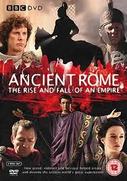
* Students you need to bring your
Julius Caesar book with you to class today.
Hand in Homework Questions from Julius CaesarACT IV
SCENES 1, 2, 3 Pg 133 -165 Q 1-15 (See classroom whiteboard for questions)
CLASSWORK:
I Review Julius Caesar ACT IV SCENES 1, 2, 3 Pg 133 -165
II. FILM: BBC's Ancient Rome: The Rise and Fall of an Empire
REMINDERS
* Julius Caesar Theme Park Project - 50 points - Due Monday June 6, 2011
*Julius Caesar Persuasive Essay(100 Points) - DUE WEDNESDAY JUNE 8, 2011
(5-Paragraph Essay, Typed, Double Spaced, #12 Arial Font, 1" Margins)
* Book Report #4- Due Friday June 10, 2011
(See instructions under the BOOK REPORTS TAB for details) http://abcusdcerritoshsmarzo.weebly.com/book-rpts.html
